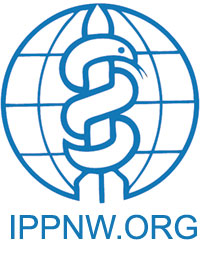Acerca del caso de antiterrorismo chino
para la salvaguarda de las etnias y de las religiones de Xinjiang
Ir a noticias recientes (arco histórico 2019-2020)
25.12.20
Transmisión de electricidad anual de Xinjiang supera 100 mil millones de kilovatios hora
La región autónoma uigur de Xinjiang, en el noroeste de China, ha transmitido más de 100 mil millones de kilovatios hora de electricidad a otras partes del país desde el comienzo de este año, informaron las autoridades locales. El volumen de transmisión alcanzó los 100.010 millones de kilovatios hora a las 18:00 horas (hora de Beijing) del miércoles, superando por primera vez la marca de 100 mil millones de kilovatios hora durante un período de un año, de acuerdo con la Compañía de Energía Eléctrica de Xinjiang de la Red Estatal. Una importante línea de ultra-alta tensión entre Xinjiang y la provincia oriental china de Anhui fue actualizada en julio para aumentar la capacidad total de transmisión de Xinjiang a 16,4 millones de kilovatios, según la sucursal de Xinjiang de la Red Estatal. Haciendo frente al impacto de la epidemia COVID-19 a principios de este año, la sucursal de Xinjiang de la Red Estatal utilizó drones, robots y otras tecnologías para el mantenimiento de las estaciones de conversión y las líneas de transmisión a fin de garantizar el buen funcionamiento del proyecto de transmisión de energía.
24.12.20
Train express Chine-Europe: arrivée du premier train de fret Istanbul-Xi’an
Avec 42 conteneurs de réfrigérateurs d’une valeur de plus de 10 millions de yuans (1,53 millions de dollars) à son bord, un train express de fret venant de Turquie est arrivé le 19 décembre à Xi’an, chef-lieu de la province chinoise du Shaanxi, à l’issue d’un voyage de 8693 km sur une ligne du réseau ferroviaire Chine-Europe. Parti le 4 décembre depuis Istanbul, le train a traversé l’Azerbaïdjan et le Kazakhstan avant d’entrer en Chine par le port de Khorgas (région autonome du Xinjiang). Il s’agit du premier train de fret en partance d’une ville turque à destination de la Chine après la mise en service en novembre 2019 de la ligne ferroviaire reliant la Chine, la Turquie et l’Europe. Selon une source proche du projet, il fallait par le passé une quarantaine de jours pour acheminer la grande partie des importations depuis la Turquie en Chine par voie maritime. La nouvelle voie ferroviaire permet à la fois de réduire énormément le coût du transport et de moins être à la merci des intempéries. L’ambassadeur de Turquie en Chine, Abdulkadir Emin Önen, s’est félicité du lancement des services de fret ferroviaire entre la Turquie et la Chine, considérant qu’ils étaient indispensables pour accélérer les échanges et renforcer les liens économiques entre les deux pays. Il a par ailleurs annoncé que le deuxième train de fret était parti quelques jours plus tôt et devrait arriver à Xi’an début janvier 2021.
23.12.20
Ante los hechos, ¿quién todavía cree en la mentira del "trabajo forzoso"?
"¿Acaso salimos a trabajar, ganamos más dinero, aprendemos más habilidades y mejoramos nuestra vida con nuestras propias manos todavía necesitamos ser forzados por otros?" El 21, Xieri Maimaitimin de Hetian, Xinjiang, China, así respondió a la pregunta sobre el llamado "trabajo forzoso en Xinjiang" en la conferencia de prensa sobre el tema de Xinjiang. De hecho, la población local tiene más derecho a palabra en Xinjiang. En la conferencia de prensa, cuatro personas en Xinjiang, incluido Xiari, tuvieron intercambios cara a cara con reporteros chinos y extranjeros, utilizando su propia experiencia para descubrir la gran mentira inventada por algunos políticos de Estados Unidos y Occidente. Desde principios de este año, algunas fuerzas anti-China en Estados Unidos y Occidente han seguido promocionando el tema del "trabajo forzoso" en Xinjiang bajo la bandera de los derechos humanos, y aprovecharon la oportunidad para lanzar proyectos de ley relacionada para imponer sanciones a funcionarios, instituciones y empresas en Xinjiang. Además de los factores de los intereses económicos existentes, algunos políticos estadounidenses quieren utilizar deliberadamente esto para perturbar las relaciones nacionales de China, engañando así a la opinión pública internacional con su siniestro propósito de desacreditar y contener a China.
22.12.20 Zhao Ying
From 24 to 634: The Przewalski's horse returns to the wild
At the end of World War II, there were only 31 Przewalski's horses left in captivity, and nine of them that were able to reproduce became the ancestors of all the Przewalski's horses we see today. The inbreeding problem was always the "Sword of Damocles" hanging over the species. In the 1980s and 1990s, international conservation organizations began to re-introduce the Przewalski's horse into China and Mongolia where it once lived, in the hope of bringing the species to the wild steppes again and increasing genetic diversity. Considering that the Przewalski's horse used to roam in Junggar Basin in northwest China's Xinjiang Uygur Autonomous Region, 11 Przewalski's horses were first sent from Germany and Britain to the zoo in Urumqi, Xinjiang, for transition in 1985, and relocated to the Xinjiang Wild Horse Breeding and Research Center after 16 months. Another three batches of horses from the U.S. and Germany arrived at the center later, bringing the total number to 24. They became the forefathers of the Przewalski's horses living in Xinjiang today. In 1988, the first foal was born at the center after the horse returned to its homeland, and named "Junggar No.1." The young lady soon gave birth to the second generation in 1995, signaling that the species can successfully breed in China.
22.12.20
La Chine réfute les allégations de « travail forcé » au Xinjiang
Les responsables de la région autonome ouïghoure du Xinjiang (nord-ouest de la Chine), ont réfuté les critiques sur les questions liées au Xinjiang dans des rapports occidentaux, affirmant que les allégations sur des questions telles que le « travail forcé » et les « camps de rééducation » sont de la pure calomnie. Xu Guixiang, chef adjoint du département de la communication du Comité du Parti communiste chinois de la région autonome ouïghoure du Xinjiang, a déclaré le 21 décembre lors d'un point de presse que cette histoire de « travail forcé » est ridicule et que les travailleurs de tous les groupes ethniques du Xinjiang choisissent leur travail de leur plein gré et signent des contrats de travail volontaires conformément à la loi. Selon M. Xu, les travailleurs qui recherchent un emploi en dehors de la région gagnent en moyenne 40 000 yuans (6 108 dollars) par an, tandis que ceux qui restent travailler au Xinjiang pourraient gagner environ 30 000 yuans par an, plus que le travail agricole sur place.
22.12.20
Collection of ancient manuscripts unearthed in Xinjiang published
A collection of more than 26,000 pieces of manuscripts written in Chinese characters, previously unearthed in the current-day Xinjiang Uygur Autonomous Region, was recently published by the Zhonghua Book Company. The manuscripts were part of the relics looted to Western countries in the early 20th century. Their publication marks the first time the manuscripts were unveiled to the public. Currently part of the manuscript collection of Lushun Museum in the northeastern Chinese city of Dalian, they were considered the "last treasure" of ancient Dunhuang and Turpan manuscripts. The manuscripts include Buddhist, Confucian and Taoist classics, as well as official paperwork from various dynasties, said Rong Xinjiang, a professor with Peking University, at a seminar held Sunday. Rong also underlined the manuscripts' academic significance in the study of the ancient Silk Road, as well as the spread of Chinese culture in Xinjiang in ancient times.
22.12.20
Moving moments from 2020
Lyu Jun, a medical staff member at Xinjiang Medical University says goodbye to his wife as he leaves for Wuhan to support frontline medics, Urumqi City, northwest China's Xinjiang Uygur Autonomous Region, January 28, 2020.
22.12.20
Comentário: Palavras do povo de Xinjiang revelam mentiras da mídia ocidental
"Precisamos ser forçados por outros quando saímos para trabalhar, ganhar mais dinheiro, aprender mais habilidades e mudar nossas vidas?" perguntou um homem da região Hotan, em Xinjiang, na China na coletiva de imprensa realizada no dia 21. Quatro pessoas de Xinjiang participaram da coletiva de imprensa e eles revelaram a mentira do chamado “trabalho forçado em Xinjiang” com suas próprias experiências de vida. O “fenômeno de trabalho forçado em Xinjiang” é uma mentira criada por Adrian Zenz, um alemão anti-China e pelo Instituo de Pesquisa de Estratégias da Austrália (ASPI, na sigla em inglês). Em março deste ano, o site norte-americano “The Grayzone” já tinha relatado que esta mentira é uma intriga das forças anti-China nos Estados Unidos e na Austrália para tentar provocar uma nova Guerra Fria. O fato já demonstrou que o ASPI é uma organização patrocinada por departamentos de defesa e diplomacia e por traficantes de armas dos EUA. No entanto, alguns políticos norte-americanos não pararam de se aproveitar desta mentira para intrigar as relações étnicas da China e difamar a China na comunidade internacional.
20.12.20
Los hechos y la verdad cortan la "cadena de mentiras" que desacredita a Xinjiang
Recientemente, bajo la instigación de algunas fuerzas occidentales anti-China, las mentiras sobre Xinjiang han sido promocionadas nuevamente. El Center for Global Policy, un grupo de expertos de EE. UU., emitió un informe el día 15, afirmando falsamente que más de 500.000 uigures en Xinjiang, China, se vieron obligados a dedicarse a la recolección de algodón. El Parlamento Europeo aprobó el día 17 una resolución que ataca el llamado "trabajo forzoso" de minorías étnicas como los uigures de Xinjiang. De hecho, el llamado "trabajo forzoso" es una versión totalmente falsa, una mentira fabricada de la nada por algunos elementos anti-China y los "comerciantes" detrás de ellos. Deliberadamente llaman los esfuerzos del gobierno chino para ayudar a las personas de todos los grupos étnicos en Xinjiang a lograr un empleo estable como el llamado "trabajo forzoso" para confundir al público y tratar de desacreditar la imagen de China, alienar las relaciones étnicas de China y contener el desarrollo de China. En los últimos meses, China ha publicado documentos como el libro blanco "Seguridad en el trabajo y el empleo en Xinjiang" y el "Informe de la encuesta sobre el trabajo y el empleo para las minorías étnicas en Xinjiang", utilizando datos detallados para presentar en detalle a las minorías étnicas de Xinjiang. Los hechos del "empleo voluntario" y el "trabajo decente" aclaran que la política de empleo de Xinjiang respeta plenamente la voluntad de los trabajadores al empleo, garantiza los derechos básicos de los trabajadores de conformidad con la ley y ayuda a la gente de Xinjiang a crear una vida mejor.
20.12.20
Xinjiang Situation: 'Camera installed to monitor Muslims' is 'pure lie'
Against the accusations made by certain Western media outlets, officials and religious people from northwest China's Xinjiang Uygur Autonomous Region say rumors like "forced labor" in Xinjiang and local government installed cameras "to supervise religious people" are purely "slander". Elijan Anayit, spokesperson for the Information Office of the People's Government of Xinjiang, said at Monday's news briefing that the accusations of so-called "forced-labor" and "oppression" couldn't be further from the truth. "The so-claimed 'persecution' is nonsense. People in Xinjiang are just like everyone else in China's other regions, enjoying the same rights and protected by the law," he said, adding 70 percent of the region's public expenditure is spent on improving the livelihood of local people, from employment and education to medical care. He explained that by 2020, at least one person in every household in Xinjiang has a job. And for those who hunted for jobs outside of the region, they earned an average of 40,000 yuan annually by the latest count. "It can be said that we are now living the life that previously only existed in our dreams," he added.
20.12.20 Andrew Korybko
Pompeo's Sinophobia a sign of his 2024 presidential ambitions
Outgoing U.S. Secretary of State Mike Pompeo went on yet another of his infamous Sinophobic rants on Friday while speaking to popular conservative talk show host Mark Levin. What was different about this one, however, is that it occurred almost a month before he's supposed to leave office. This makes it seem like he might have personal motives in presenting himself as the Trump administration's most radical anti-Chinese hawk during its final days. It could very well be the case that he hopes to cement his legacy on this issue for the purpose of advancing a possible 2024 presidential bid. Before discussing why the scenario is more than plausible, it's important to touch upon some of the things that he said during his interview. Levin is Pompeo's friend, and America's top diplomat even spoke highly about one of his host's books. Levin has interviewed Pompeo before. The talk show host is among incumbent U.S. President Trump's most vocal supporters, especially when it comes to criticizing the outcome of last month's election. This backdrop means that it is a "softball," precisely the sort of interview that conservatives always criticize liberals for engaging in. Pompeo wasn't asked any tough questions. On the contrary, it seems like they both prepared for the interview ahead of time since everything seemed perfectly scripted. Levin immediately allowed Pompeo to rail against China, after which his guest proceeded to make false claims about the country, such as accusing it of covering up the COVID-19 pandemic. However, the real cover-up was the Trump administration's deliberate downplaying of this disease and utter mismanagement of America's response to it. Nevertheless, Pompeo wants everyone to forget about that and only focus on information warfare narratives against China. It was also very racist of Pompeo to say that Americans "see these Chinese students that are acting in ways that are deeply inconsistent with just somebody who's coming to study," which implies that they're spies. Just because Chinese students take their studies much more seriously than many of their American peers and consequently excel in them doesn't mean that they're engaged in espionage. Pompeo is also flat-out wrong in claiming that American media is "beholden" to the Communist Party of China (CPC) since it routinely criticizes it and even spreads fake news. Perfect examples of this concern Hong Kong, Huawei and Xinjiang, among others.
19.12.20
Hallan enorme reserva de gas en Xinjiang, noroeste de China
Un enorme depósito de gas con reservas previstas de más de 100 mil millones de metros cúbicos fue hallado en la región autónoma uygur de Xinjiang, en el noroeste de China, de acuerdo con la oficina local de PetroChina. Una sonda preliminar indica que el depósito, que abarca un área de 156 millones de metros cuadrados bajo el centro del borde sur de la cuenca de Junggar, contiene 109 mil millones de metros cúbicos de gas, dijo el viernes Huo Jin, gerente general de la oficina de PetroChina en Xinjiang. Se espera que sea capaz de producir 610 mil metros cúbicos de gas natural y 106,3 metros cúbicos de petróleo crudo por día, señaló Huo. "El descubrimiento marca un gran avance en la exploración de gas en el borde sur de la cuenca de Junggar, que garantizará aún más el suministro de gas de nuestra empresa y contribuirá a la estabilidad y la prosperidad de la región", dijo.
19.12.20
Winter view of Yarkant River in Xinjiang
Aerial photo taken on Dec. 18, 2020 shows the winter view of Yarkant River in Zepu County, northwest China's Xinjiang Uygur Autonomous Region.
18.12.20
Natural gas exploration achieves giant leap in Xinjiang's Junggar Basin
Oil exploration achieved a breakthrough at a well in Hutubi County, Xinjiang Uyghur Autonomous Region, PetroChina's Xinjiang Oilfield Company announced Wednewsday. Located in the middle of southern margin of Junggar Basin, the well boasts a daily production capacity of 61,000 cubic meters of natural gas and 106.3 cubic meters of crude oil. The well is estimated to store a billion cubic meters of oil and gas.
18.12.20
Región china de Xinjiang no reporta nuevos casos de COVID-19
La región autónoma uygur de Xinjiang, en el noroeste de China, no registró el jueves nuevos casos confirmados ni asintomáticos de COVID-19, informó hoy viernes la comisión regional de salud. Hasta el jueves Xinjiang no tenía casos confirmados existentes, en tanto que había cuatro casos asintomáticos de COVID-19, todos ubicados en el distrito de Gaochang de la ciudad de Turpan, de acuerdo con la comisión.
18.12.20
Liu Lipeng's 23 help Xinjiang overcome Sichuan in CBA
Liu Lipeng's career-high 23 points helped the Xinjiang Flying Tigers beat the Sichuan Blue Whales 107-92 in the 2020-21 Chinese Basketball Association (CBA) here on Friday night. In a lifeless first quarter, Xinjiang missed their first 8-of-9 shootings and fell behind Sichuan 23-22. Donatas Motiejunas continued his incredible performance this season that powered Xinjiang up after the slow start, making 23 points and nine rebounds in the first half. Sichuan played without key players Su Ruoyu and Yuan Tangwen, but their confidence never wavered. Marcus Hunt's 20 points in the second period helped them keep a one-point lead at the halftime break. Xinjiang couldn't get much going in the third and rookie Zhu Songwei's highlight performance gave Sichuan a 84-79 lead into the fourth period.
17.12.20
Injured bird rescued by police turns out to be rare falcon
Police rescued a large bird that turned out to be from a rare species while on patrol along the Changan Guole Border in Altay Prefecture, Xinjiang Uygur Autonomous Region. The authorities took the injured animal lying on a snowfield back to the station for treatment. It was later identified as an Altai falcon (Falco cherrug altaicus), which is under second-class national protection in China. The Altai falcon is a medium-sized bird of prey with a light-brown striped upper body and dark lower body that can grow from 45 to 51 centimeters long. It resides in the mountains of Central Asia and lives in barren plateaus ranging from 1,475 to 2,750 meters above sea level. The police then transferred the bird to the Qinghe County Forestry police station for further treatment. It will be released back into nature once it has fully healed.
17.12.20
(COVID-19) Chine : aucun nouveau cas au Xinjiang
Aucun nouveau cas confirmé de COVID-19 ou de cas asymptomatique n'a été signalé mercredi dans la région autonome ouïgoure du Xinjiang, dans le nord-ouest de la Chine, a indiqué jeudi la commission régionale de la santé. Mercredi, le Xinjiang ne comptait aucun cas confirmé et quatre cas asymptomatiques, tous dans l'arrondissement de Gaochang de la ville de Turpan, selon la commission.
17.12.20
Han lifts Liaoning, Guangdong bags fifth straight win
Center Han Dejun grabbed a key offensive rebound and made a lay-up to help the Liaoning Flying Leopards edge the Guangzhou Loong Lions, led by Liaoning's former coach Guo Shiqiang, 95-93 in the 19th round of the Chinese Basketball Association (CBA) on Wednesday. Liaoning opened the game with a 10-0 run and extended the lead to 19 points for a while in the first quarter. Dallas Moore found his form and headed Guangzhou to cut the deficit to 10 points at the half-time break. The Loong Lions continued rallying back and narrowed the gap to only three points back from the locker room, forcing Liaoning to call a timeout. Coming from seven points down in the last quarter, Guangzhou tied the game 93-93 after Marreese Speights hit a three-pointer. Han's key offensive rebound and layup nailed the victory for Liaoning, as Speights missed a buzzer-beater. O.J. Mayo had a game-high 29 points for Liaoning, Han finished with 22 points and 12 rebounds, and Guo Ailun contributed 21 points. For Guangzhou, Speights got 21 points, Moore scored 20 points, and Guo Kai took 10 points along with 10 rebounds. The defending champion Guangdong Southern Tigers defeated the powehouse Xinjiang Flying Tigers 115-102, extending their winning streak to five games. Marshon Brooks and Sonny Weems each bagged 26 points for Guangdong, Du Runwang and Hu Mingxuan had 12 points respectively, and Zhao Rui added 11 points. Donatas Motiejunas scored a game-high 28 points and 13 rebounds for Xinjiang, Qi Lin took 17 points, and Tang Caiyu contributed 10 points.
16.12.20 Hannan Hussain
CGP report on Xinjiang labor is full of holes
In a new report this week, U.S.-based Center for Global Policy (CGP) mounts malicious propaganda against labor engagement in China's Xinjiang Uygur Autonomous Region, falsely asserting that ethnic minorities involved in cotton picking are subject to a "coercive state-mandated labor transfer and poverty alleviation scheme." Claiming to unearth "new evidence," the report simply repackages toxic anti-China narratives, including alleged "intrusive on-site surveillance" by government and law enforcement officials, the forced transfer of cotton-pickers into "tightly supervised groups," and some far-fetched fairy tales about elderly Uygur and children being made to follow two distinctly restrictive stands for cotton-picking. Taken together, such blatant distortion of facts only establishes the report's predetermined bias against the cotton-picking exercise in Xinjiang, the fair and equal treatment of minorities, and the role of a state they roundly trust. Beginning with China's labor-responsive policies in the country's largest cotton-growing area, it is an incontrovertible fact that scores of locals – as early as 2018 – were lifted from the shackles of poverty to embrace a new degree of economic mobility, contrary to CGP suggestions of coercion. Unlike the hollow conjecture cited in the report, there is no seamless "transition" between securitization and poverty alleviation in Xinjiang to harm labor rights in the region, let alone under the pretext of "extralegal internment." Touting such propaganda only reveals an astronomical gap in the report's embrace of "state-citizen rapport" in Xinjiang's cotton growing areas, backed by equal protection under the law, and an unparalleled regard for the rich ethnic variation that underpins labor engagement in Xinjiang. In a sign of thinly veiled fiction, Adrian Zenz – the lead author of the report – concludes that any legitimate interaction between state entities and select ethnic minorities in cotton fields must be seen as a "degree of consent in relation to this process [the process of allegedly high-risk labor transfer]" and that these minorities "may benefit financially."
16.12.20
Alivio de pobreza mediante atención médica da sus frutos en regiones chinas de Tíbet y Xinjiang
La asistencia de profesionales de hospitales en toda China ha ayudado a las instituciones sanitarias en las remotas regiones chinas de Tíbet y Xinjiang a mejorar su capacidad de servicio y gestión, contribuyendo al alivio de la pobreza y a la mejora de la salud de la población local, destacó hoy martes un funcionario del gobierno. Durante cada uno de los últimos cinco años, alrededor de 900 expertos de hospitales del interior del país han participado en la campaña de apoyo a los hospitales de la región autónoma del Tíbet, la región autónoma uygur de Xinjiang y el Cuerpo de Producción y Construcción de Xinjiang, explicó Mi Feng, funcionario de la Comisión Nacional de Salud. En una conferencia de prensa sobre la asistencia del sector sanitario como parte de los esfuerzos para aliviar la pobreza durante el período del XIII Plan Quinquenal (2016-2020), Mi afirmó que las instituciones sanitarias que habían recibido apoyo incluían hospitales localizados en 106 distritos empobrecidos. Los expertos aportaron tecnologías médicas sofisticadas y experiencia en gestión a las instalaciones médicas de las dos regiones autónomas, dijo Mi.
16.12.20
Arrestada ex vicepresidenta del Gobierno regional de Xinjiang por soborno
Ren Hua, ex vicepresidenta del Gobierno de la región autónoma uygur de Xinjiang, en el noroeste de China, ha sido arrestada bajo acusación de aceptar sobornos, de acuerdo con una decisión adoptada por la Fiscalía Popular Suprema, según una declaración oficial emitida hoy miércoles. El caso de Ren, también exmiembro del grupo dirigente de miembros del Partido del Gobierno regional, fue transferida a las autoridades fiscales para su investigación y procesamiento, tras la conclusión de una investigación de la Comisión Nacional de Supervisión. El procesamiento del caso aún está en curso.
16.12.20
Average life expectancy in Xinjiang reaches 74.4
The average life expectancy in northwest China's Xinjiang Uygur Autonomous Region has reached 74.4 years, a senior Chinese health official said Tuesday. Medical services have been greatly improved in Xinjiang, Li Dachuan from the National Health Commission told a press conference, noting that 50 percent of county-level hospitals across the autonomous region are now capable of performing complicated surgeries like those for brain tumors and cervical spine diseases. In the years that immediately followed the region's peaceful liberation in 1949, the average life expectancy in Xinjiang was 30 years. The figure reached 72.35 years in 2018.
16.12.20
Guangdong overcome Xinjiang in CBA
Sonny Weems and Marshon Brooks combined for 52 points as the Guangdong Southern Tigers beat Xinjiang Flying Tigers 115-102 in the Chinese Basketball Association (CBA) league here on Wednesday, extending its winning streak to five. Weems and Brooks scored 26 points apiece for Guangdong. Donatas Motiejunas scored a game-high 28 points. Weems and Brooks combined for 20 points to inspire Guangdong to a 39-32 lead after the first quarter. Guangdong continued its momentum and increased the advantage to 60-51 at halftime.
15.12.20 Andrew Korybko
China's dual circulation paradigm has nothing to do with 'decoupling'
The Washington Post published a provocative opinion piece on December 15 by columnist Ishaan Tharoor titled "Xi's China is preparing for a new world order". The author claims in the text that the "similarly adversarial worldview" of outgoing U.S. President Trump's envisioned "decoupling" of the American and Chinese economies "is crystallizing in China" through the latter's new development paradigm of dual circulation. He also quotes an expert who describes this model as "an economic strategy fit for a new Cold War." This is a grossly inaccurate way to interpret the role that China's dual circulation paradigm plays in its grand strategy. A possible explanation for Tharoor's mistaken views might be due to him being politically biased against China. Earlier in his article, he condemned China as a "regime" which he claims behaves "ruthlessly" in Hong Kong SAR, Xinjiang Uygur Autonomous Region, and Taiwan, as well as against India. With such a mindset, it's not all that surprising that he'd wrongly regard China's dual circulation paradigm as having a hostile geopolitical angle. Even so, however, he earlier acknowledged that Chinese President Xi's recent speeches emphasizing the role of the domestic marketplace are "in keeping with how other more mature economic powers developed over time in the West." This schizophrenic assessment doesn't make sense and is inconsistent with the narrative that he's pushing throughout his piece, though he should nevertheless be applauded for telling the truth at least once. Dual circulation is a naturally occurring development in many advanced economies, but it shouldn't be associated with the superficially similar protectionist trends that sprouted up in the West over the past few years, especially after the global economic crisis brought about by COVID-19. Dual circulation and protectionism are actually two very different visions.
14.12.20
Children Play at Immersive-Digital Entertainment Experience Tunnel in Xinjiang
Children play at an immersive-digital entertainment experience tunnel at a tourist resort in Nanshan scenic spot of Urumqi, northwest China's Xinjiang Uygur Autonomous Region.
14.12.20
Región china de Xinjiang no reporta nuevos casos confirmados ni asintomáticos de COVID-19
La región autónoma uigur de Xinjiang, en el noroeste de China, no reportó el domingo ningún nuevo caso confirmado ni asintomático de la neumonía COVID-19, informó hoy lunes la comisión regional de salud. Hasta el domingo, en Xinjiang no había casos confirmados de la afección, pero sí cuatro casos asintomáticos, todos en el distrito de Gaochang de la ciudad de Turpan, de acuerdo con la fuente.
13.12.20
Región china de Xinjiang reporta cuatro nuevos casos asintomáticos de COVID-19
Cuatro nuevos casos asintomáticos de COVID-19 fueron reportados el sábado en la ciudad de Turpan, ubicada en la región autónoma uigur de Xinjiang, en el noroeste de China, informó el domingo la comisión de salud local. Un hombre de 32 años, que trabaja para una empresa local de comercio, dio positivo el sábado durante una prueba de ácido nucleico de rutina. Su esposa, su madre y uno de sus colegas fueron confirmados como casos asintomáticos en exámenes realizados en toda la ciudad entre sus contactos cercanos. Los cuatro fueron enviados a un hospital designado para llevar a cabo su observación médica. Otros contactos cercanos de los pacientes están bajo observación aislada y sus resultados de prueba de ácido nucleico han resultado todos negativos. No se han reportado nuevos portadores o casos en otras partes de Xinjiang.
12.12.20
Región china de Xinjiang reporta tres nuevos casos asintomáticos de COVID-19
Tres nuevos casos asintomáticos de la COVID-19 fueron reportados el sábado en la ciudad de Turpan, ubicada en la región autónoma uigur de Xinjiang, en el noroeste de China, según la comisión de salud local. Un hombre de 32 años, su esposa y su madre dieron positivo durante una prueba de ácido nucleico de rutina. Los tres fueron enviados a un hospital designado para llevar a cabo su observación médica. El primer caso asintomático reciente en Turpan fue un trabajador de una empresa de comercio y las pruebas en toda la ciudad han comenzado entre los contactos cercanos del paciente y sus allegados.
11.12.20
Arqueólogos desentierran vajilla de bronce de cinco mil años de antigüedad en noroeste de China
Arqueólogos han descubierto restos de una vajilla de bronce que data de hace más de cinco mil años en un sitio en la región autónoma uigur de Xinjiang, en el noroeste de China, informaron el jueves las autoridades locales. La vajilla de bronce, hallada en el sitio de Tongtiandong, es considerada como la más antigua de su tipo desenterrada en Xinjiang, señaló el jefe del equipo del proyecto de excavación, Yu Jianjun, del instituto regional de reliquias culturales y arqueología. Yu ha conjeturado que se trata de un objeto que tenía funciones decorativas. El hallazgo tiene gran importancia para el estudio de la metalurgia en los pastizales euroasiáticos. El sitio de Tongtiandong, descubierto en 2014, cuenta con tres cuevas principales y varias más pequeñas. Es la primera cueva paleolítica descubierta en Xinjiang. A partir de 2016, arqueólogos han desenterrado en el sitio cerca de 2.600 artefactos y restos de cultivos y plantas, así como unos 10 mil fósiles de animales.
11.12.20
West’s misconception of China creates senseless attitudes: Global Times editorial
French footballer Antoine Griezmann said on Thursday he was ending his sponsorship contract with Huawei over allegations that the Chinese telecoms giant was involved in the development of a facial recognition software that suppresses Uygurs in Xinjiang. Griezmann perhaps has never been to Xinjiang, but he resorted to such radical means to draw a line with Huawei. This shows how seriously France and the West have defamed Huawei. In the West, everything connected with Xinjiang would be suspected of assisting suppression of the Uygurs. Products from Xinjiang are said to be made with forced labor, and even opening a business is Xinjiang would be accused of supporting suppression. The Chinese people can clearly feel the hysteria and ludicrousness of such extremism. Griezmann's action makes him a fool. Xinjiang is by no means what the West describes. Violence and terrorism have been wiped out and its economy is recovering. The epidemic control situation is far better than that in France. Huawei is a great company. France has not even one high-tech company as Huawei. Double standards also play a role. According to strict Western moral standards, companies such as Intel and NVIDIA whose chips are installed in Xinjiang's facial recognition system should also be targeted. However, Western opinion seldom makes such harsh criticism, while Chinese companies like Huawei become the target of attack by Western opinion. The West-chanted morality only serves Western interests.
11.12.20 YANG ZEKUN
Uygurs not 'persecuted', Xinjiang spokesman says
Uygurs enjoy the same legitimate rights as all other ethnic groups in China, and it is groundless to label them as "persecuted people", a spokesman from the Xinjiang Uygur autonomous region's government said on Wednesday. Ilijan Anayt said at a news conference held in the autonomous region that a claim in Pope Francis's new book calling Uygurs in China "persecuted people" was not supported by facts or evidence. Ilijan said that China protects the lawful rights and interests of all ethnic groups. He added that Uygurs enjoy the same legal status and rights as all other ethnic groups in China, including the right to vote and stand for elections, the right to participate in the administration of State affairs and freedom of religion. The Xinjiang government devotes 70 percent of its annual general public budget to improving people's livelihoods through a series of projects in employment, culture, education and medical care, ensuring that all ethnic groups in the region enjoy full rights to subsistence and development, Ilijan said. The government has formed a mechanism to guarantee that at least one person in every family gets employed, he said. It has also conducted the integrative development of rural-urban education, bringing the enrollment rate of children in compulsory education to 99.9 percent. In terms of healthcare, all residents in Xinjiang can access free physical examinations, and all impoverished people also have basic medical insurance, major illness insurance and an old-age pension.
11.12.20 Fiona Sim
The National Endowment for Democracy is a threat to Uygurs' human rights
On Human Rights Day, December 10th, a tweet by the official account for the National Endowment for Democracy (NED) has caused a stir on social media platform Twitter. The tweet stated: "To further #humanrights & human dignity for all people in China, the National Endowment for Democracy has funded Uygur groups since 2004." For critics of the human rights allegations made against China, this information comes as no surprise. The past few years have seen human rights activists leveling accusations of human rights violations at China concerning the Xinjiang Uygur Autonomous Region, which have ranged from repression of Islam in daily life to genocide of Uygur Muslims in concentration camps. Human rights groups such as Amnesty International and Human Rights Watch, alongside the NED, have reported on these allegations based on a range of testimonies and information from anonymous sources, dissidents of the region, and Uygur separatist groups based in Xinjiang.
10.12.20 Feng Yilei
Xinjiang Muslims: Worshipping goes on as usual despite twisted reports on China's de-radicalization
Muslims in northwest China's Xinjiang Uygur Autonomous Region refuted claims by overseas media reports that China restricts their religious freedom. They clarified that China's ongoing counter-terrorism measures have never targeted regular religious activities. Instead, they are practicing their belief under better conditions. Iminjan Keram, imam at Tuanjie Mosque in Korla, said, by fighting against extremism in Xinjiang, the government is actually protecting regular religious activities.
10.12.20
CCTVs in Xinjiang do not target any particular ethnic minority: Chinese FM
Responding to an inquiry to Intel and NVIDIA CEOs by US Senator Marco Rubio on the sale of advanced computer chips that allegedly power a so-called supercomputer used in Northwest China's Xinjiang Uygur Autonomous Region, Chinese Foreign Ministry spokesperson Hua Chunying denounced such a claim, saying the US politician has no sincerity. "People all know Rubio's consistent anti-China mindset. He is keen on making up a variety of lies to smear China in order to seek personal gains from politics. He has no political sincerity at all," Hua told daily briefing on Thursday. Using modern technology and big data to improve social governance is an established practice in global society, Hua noted. "The legal installment of CCTV cameras in relevant public places in Xinjiang does not target any particular ethnic minority group. The aim is to improve social governance, prevent and fight crime effectively," the spokesperson said, adding that such measures in fact increased social stability and have won general support from local ethnic groups. Citing media reports and relevant statistics, Hua said the US' use of mass surveillance has been criticized by the world. According to US media, the US government in 2017 asked 20 US airports to scan all passengers using technology for facial recognition. The FBI's facial recognition office was able to search databases with more than 641 million photos, including 21 state databases, a report by the US Government Accountability Office showed on June 4, 2019.
10.12.20
Zhao Lijian denounces U.S.-fabricated video on Xinjiang issue
Chinese Foreign Ministry Spokesperson Zhao Lijian denounced a U.S.-fabricated video on Xinjiang Wednesday, saying that "There are Tibetan, Uygur, Mongolian and ethnic Zhuang languages printed beside Mandarin on China's RMB banknotes. By contrast, is there any language other than English on a U.S. dollar banknote?"
10.12.20 Robert Lawrence Kuhn
Full Episode - This Land: story of border guard Mametnur Obulesen Ⅰ
Located in northwest China, Xinjiang Uygur Autonomous Region borders multiple countries, including Tajikistan, Afghanistan and Pakistan. With a long border of more than 5,600 kilometres, guarding it is a heavy task. In the past, the herdsmen here followed the seasons to graze and had no permanent homes. Nowadays, with the implementation of the policy to eradicate poverty in the Xinjiang Uygur Autonomous Region, they are offered new jobs as border guards. Together with the local border troops, they form a military-police-civilian joint defense system on the frontier. As border guards, they receive monthly subsidies and live in settlements built by the government, with access to water, electricity, roads and internet. Children are sent to schools at the foot of the mountain. Elders move into relocation sites in the county. For the young men, they stay on the high hill and remain at their posts as border guards. They protect the land that nurtures them, to ensure the stability of the country.
09.12.20
Importante ferrocarril entra en operación y forja nuevos enlaces en oeste de China
Una importante línea ferroviaria que une la región autónoma uigur de Xinjiang y la provincia de Qinghai, ambas en el noroeste de China, se puso en funcionamiento hoy miércoles, forjando el camino para el desarrollo acelerado de la región occidental del país. El ferrocarril Golmud-Korla de 1.206 kilómetros de largo, que une la ciudad de Golmud en Qinghai y la de Korla en Xinjiang, es el tercer ferrocarril que facilita los intercambios entre la región autónoma y otras regiones. La construcción se dividió en dos secciones. La sección de Xinjiang supera 734 kilómetros y la de Qinghai entró en operación en junio de este año. La línea reducirá el tiempo de viaje entre las dos ciudades de cerca de 26 a unas 12 horas. La nueva arteria ferroviaria también se conecta con el ferrocarril Qinghai-Tíbet, el sistema ferroviario más alto del mundo. La red conectará a Xinjiang, Qinghai y la región autónoma del Tíbet, facilitando los intercambios en el oeste del país.
09.12.20
Ouverture prochaine d'un nouvel aéroport au Xinjiang
Un nouvel aéroport ouvrira ses portes le 26 décembre à Yutian, un district éloigné de la région autonome ouïgoure du Xinjiang (nord-ouest), a-t-on appris des autorités locales. Selon Li Yigang, chef du projet de construction de l'aéroport, le vol d'essai réussi effectué lundi à l'aéroport a testé la capacité de l'aéroport à exploiter des avions de passagers. En tant qu'arrêt majeur sur l'ancienne Route de la Soie, le district de Yutian, situé dans la préfecture de Hotan du sud du Xinjiang, se trouve à plus de 180 kilomètres de l'aéroport le plus proche de la ville de Hotan. L'aéroport de Yutian permettra d'améliorer les conditions de transport du district et des régions environnantes dans le sud du Xinjiang, offrant aux résidents locaux des déplacements plus rapides.
08.12.20
Región china de Xinjiang tendrá un nuevo aeropuerto
Un aeropuerto en Yutian, un distrito remoto en la región autónoma uigur de Xinjiang, en el noroeste de China, está programado para ser inaugurado el 26 de diciembre, según informaron las autoridades locales. El exitoso vuelo de prueba completado el lunes demuestra la capacidad del aeropuerto para operar aviones de pasajeros, de acuerdo con Li Yigang, a cargo del proyecto de construcción del aeropuerto. El distrito de Yutian es un importante punto de conexión en la antigua Ruta de la Seda. Situado en la prefectura de Hotan, en el sur de Xinjiang, el distrito está a más de 180 kilómetros del aeropuerto más cercano en la ciudad de Hotan. El aeropuerto de Yutian mejorará la situación del transporte del distrito y sus alrededores en el sur de Xinjiang, proporcionando una opción de transporte más rápida para los residentes locales. La construcción del aeropuerto comenzó en octubre de 2019. Tiene una pista de 3.200 metros, un edificio terminal de 3.010 metros cuadrados, instalaciones para el control del tráfico aéreo, y suministros de energía y combustible.
08.12.20
Four Great Wall sites in Xinjiang listed as national-level relics
The National Cultural Heritage Administration of China released its first list of major national-level Great Wall sections recently. Four relic sites from Tang Dynasty (618-907) in Xinjiang Uygur Autonomous Region were included into the list. They are Tuoxike beacon tower, Kiyakkuduk beacon tower, Kizil Gaha beacon tower and Mazartag fortress.All the towers were integrated military facilities used to transmit war signals in ancient China. There are now 212 sections of the Great Wall in Xinjiang on the list.
07.12.20
Proyecto de expansión del Aeropuerto de Urumqi en Xinjiang
La principal estructura de la Sección I del pasillo de espera sur del proyecto de expansión del Aeropuerto de Urumqi cerró el viernes en medio del clima frío. La expansión del aeropuerto, el cual es también el mayor proyecto de construcción de una edificación individual hasta ahora en Xinjiang, se espera que sea completada y puesta en operación en 2023.
06.12.20
Nuevo ferrocarril en Xinjiang deja pasajes para migración de vida silvestre
Una nueva línea ferroviaria que conecta la región autónoma uygur de Xinjiang y la provincia noroccidental china de Qinghai ha dejado 140 pasadizos para la migración de vida silvestre, informaron los diseñadores del ferrocarril. Los pasajes están reservados en la sección Xinjiang del ferrocarril Golmud-Korla ya que atraviesa Lop Nur, una reserva natural nacional para camellos salvajes. Se han construido un total de 13 túneles y 127 puentes para la migración de animales grandes, medianos y pequeños en la reserva, hogar de más de 500 camellos salvajes, precisó Wang Xinshuan, gerente de proyecto de un instituto de diseño ferroviario local afiliado a China Railway First Survey and Design Institute Group Co., responsable de la sección de Xinjiang. La línea también ha evitado pasar por una importante fuente de agua para la vida silvestre a costa de una inversión adicional para garantizar que la construcción y operación del ferrocarril no afecten la fuente de agua potable de los animales salvajes.
06.12.20
Nueva línea de ferrocarril entra en operación en región china de Xinjiang
La sección Altay-Fuyun de la línea ferroviaria Afuzhun (Altay-Fuyun-Zhundong) en la región autónoma uigur de Xinjiang, en el noroeste de China, entró en operación hoy domingo. Tanto trenes de pasajeros como de carga circularán en este ferrocarril recién inaugurado, de 148 kilómetros de largo, según informó China Railway Urumqi Group Co., Ltd. La sección Fuyun-Zhundong fue puesta en funcionamiento a finales de 2019. Con una extensión de 419 kilómetros, el ferrocarril Afuzhun está conectado con otra vía férrea, y juntos forman parte de una red ferroviaria circular en la parte norte de Xinjiang.
03.12.20
China critica a EEUU por bloquear importaciones de algodón de Xinjiang
Algunos políticos estadounidenses inventaron la llamada cuestión "trabajo forzoso" con el propósito de restringir y reprimir a las empresas chinas y contener el desarrollo de China, dijo hoy jueves una portavoz del Ministerio de Relaciones Exteriores. La portavoz Hua Chunying hizo las declaraciones en una rueda de prensa diaria cuando se le pidió que comentara sobre la decisión de Estados Unidos de bloquear las importaciones de algodón de Xinjiang con el pretexto del "trabajo forzoso". Las acciones de Estados Unidos violan las reglas del comercio internacional y los principios de la economía de mercado, dañan las cadenas industrial y de suministro globales y perjudican los intereses de las empresas y los consumidores de todos los países, incluido Estados Unidos, dijo Hua. "Cabe señalar que ayudar a personas de todos los grupos étnicos a encontrar un empleo estable y 'trabajo forzoso' son conceptos completamente diferentes", señaló Hua, quien agregó que los trabajadores de todos los grupos étnicos en Xinjiang eligen el trabajo por su propia voluntad. Ellos firman voluntariamente contratos con empresas conforme al principio de igualdad y "no serán discriminados debido a diferencias de etnia, género y creencias religiosas", dijo.
03.12.20
Completan reparación de asentamiento de dos mil años de antigüedad en noroeste de China
Restauradores culturales de China han completado las obras de reparación de emergencia en los vestigios de lo que se cree son ruinas del antiguo reino de Loulan, en la región autónoma uigur de Xinjiang, en el noroeste de China. Loulan fue un próspero asentamiento construido hace unos 2.000 años para servir a los comerciantes que transitaban por la antigua Ruta de la Seda. Sin embargo, con el tiempo, las referencias a Loulan desaparecieron misteriosamente. El sitio se localiza en la actualidad en zonas silvestres del distrito de Ruoqiang en el sur de Xinjiang. En 2019, los investigadores descubrieron que los cimientos de una pagoda y tres casas desenterradas en las ruinas se habían derrumbado en varios grados. Las estructuras estaban estropeadas por grietas, agujeros y erosión. Los trabajos de reparación que comenzaron en junio de este año reforzaron las estructuras de tierra de las tres casas y las ruinas de la pagoda.
02.12.20
Centro chino de cría ayuda caballos en peligro de extinción a pasar invierno
Numerosos caballos Przewalski están disfrutando de auténticos manjares de invierno gracias a un nutritivo bufé preparado por criadores chinos. "Almacenamos más de 400 toneladas de forraje, incluidos tréboles, maíz y zanahorias, para los Przewalski en cautiverio", dijo Yang Jianming, director del Centro de Investigación y Cría de Caballos Salvajes de Xinjiang, en la región autónoma uigur de Xinjiang, en el noroeste de China. En todo el mundo hay alrededor de dos mil caballos Przewalski. El centro es la base de cría de caballos salvajes más grande del mundo, con un total de 481 ejemplares, a saber, 97 en cautiverio, 267 en estado salvaje y 117 en semi-cautiverio. Hace apenas unos días, una tormenta de nieve azotó la cuenca de Junggar, donde se encuentra el centro, por lo que las temperaturas llegaron a 12 grados centígrados bajo cero. "La comida, especialmente las zanahorias y el maíz, puede satisfacer las necesidades nutricionales de los caballos salvajes en invierno y prepararlos para la temporada de reproducción en primavera", sostuvo Yang.
01.12.20
Pakistan says to support China on South China Sea, Taiwan, Xinjiang and Tibet
Pakistani President Arif Alvi and Prime Minister Imran Khan met with visiting Chinese State Councilor and Defense Minister Wei Fenghe in Islamabad on Tuesday. Noting that Pakistan and China are dear brothers and partners with a long friendship, Alvi said Pakistan will continue to support China on issues related to the South China Sea, Taiwan, Xinjiang, and Tibet, and his country hopes to work with China to strengthen bilateral cooperation in the construction of Pakistan-China Economic Corridor, and sectors including defense and security. China's success in fighting against the pandemic is unparalleled and its efforts in poverty alleviation are unprecedented in human history, said the prime minister. He said the two countries should carry out more comprehensive and closer strategic cooperation so as to lift the "Iron Brothers" ties to a new height.
30.11.20
Former vice chairperson of Xinjiang regional gov't expelled from CPC, public office
Ren Hua, a former vice chairperson of the government of Xinjiang Uygur Autonomous Region in northwest China, has been expelled from the Communist Party of China (CPC) and dismissed from public office over serious violations of Party discipline and laws, the country's top anti-graft body announced Monday. The announcement by the CPC Central Commission for Discipline Inspection and the National Supervisory Commission came on the heels of an investigation carried out by the authority into the case of Ren, also a former member of the leading Party members group of the regional government. Ren was found to have flouted the original aspiration and founding mission of the CPC and was disloyal to the Party, the anti-graft body said. Failing to abide by the central Party leadership's eight-point decision on improving conduct at work, she attended banquets and accepted other extravagant consumption arrangements that could affect the fair execution of her official duties, as well as gifts and money, according to the investigation findings.
30.11.20
Expulsada de PCCh y cargo público ex vicepresidenta del gobierno regional de Xinjiang
Ren Hua, ex vicepresidenta del gobierno de la región autónoma uigur de Xinjiang, en el noroeste de China, fue expulsada del Partido Comunista de China (PCCh) y destituida de su cargo público acusada de graves violaciones a la disciplina y las leyes del Partido, anunció hoy lunes el máximo cuerpo anticorrupción del país. El anuncio por parte de la Comisión Central de Control Disciplinario del PCCh y la Comisión Nacional de Supervisión se produjo inmediatamente después de una investigación llevada a cabo por las autoridades sobre el caso de Ren, también ex miembro del grupo dirigente de miembros del Partido del gobierno regional. Se constató que Ren había burlado la aspiración original y la misión fundadora del PCCh y era desleal al Partido, afirmó el organismo anticorrupción. Al no cumplir con la decisión de ocho puntos del liderazgo central del Partido sobre la mejora de la conducta en el trabajo, asistió a banquetes y aceptó otros acuerdos que incluyeron consumos extravagantes que podrían haber afectado la justa ejecución de sus atribuciones oficiales. Además, aceptó regalos y dinero, según los resultados de la investigación.
30.11.20
Chutes de neige et vague de froid dans le Xinjiang
Des chutes de neige ont balayé dimanche 29 novembre le nord-ouest de la Chine, entraînant la baisse des températures de 5℃, ont annoncéles autorités météorologiques de Chine. La région autonome ouïgoure du Xinjiang a été touchée. Le bureau météorologique d’Urumqi, le chef-lieu, demande aux habitants des zones touchées de prendre leurs précautions concernant la circulation, les transports et l’approvisionnement en énergie.
29.11.20
Xinjiang tourism industry gears up for travel boom
As winter sets in, snow-sport fans across China are flocking to the snow-clad mountains in northwest China's Xinjiang Uygur Autonomous Region, where the local tourism industry has geared up for the travel boom. In the capital Urumqi, ski resorts across the city have upgraded recreational facilities, skiing trails, and food courts. Meanwhile, to the north of Urumqi, the Altay Prefecture has launched a series of sports events and products featuring local culture and handcraft.
28.11.20
Nevadas azotarán noroeste de China
Las nevadas azotarán el noroeste de China en los próximos días, trayendo bajas temperaturas, informó hoy sábado el Centro Meteorológico Nacional. Desde el sábado hasta el martes, nevadas ligeras y moderadas o aguanieves afectarán la región autónoma uigur de Xinjiang, la región autónoma de Mongolia Interior, y las provincias de Gansu y Qinghai, según la misma fuente. Algunas áreas cerca de las Montañas Tianshan en Xinjiang recibirán fuertes nevadas. El centro también pronosticó lluvias ligeras en algunas regiones del suroeste de China.
26.11.20
Xinjiang : un coursier à cheval dans la neige
Le comté de Habahe, situé dans la région de l'Altaï de la région autonome ouïghoure du Xinjiang (nord-ouest de la Chine) a été touché par les chutes de neige pendant plusieurs jours, confrontant les livraisons de colis à un grand défi. Afin de garantir que les résidents locaux puissent recevoir leurs colis express à temps, ce coursier a fait ses livraisons à cheval dans la neige.
25.11.20
Embajada China en Uruguay indignada con actividad de su colega de Estados Unidos
La Embajada de China en Uruguay emitió un comunicado donde hace saber su indignación y rechazo por una actividad realizada el 23 de noviembre de 2020: «La Embajada de los Estados Unidos en Uruguay organizó con desembozo una mesa redonda virtual sobre las llamadas “violaciones a los derechos humanos de la comunidad uigur”, en la cual se dio rienda suelta a comentarios irresponsables trastrocando lo verdadero por lo falso, en una burda intromisión en los asuntos internos de China». El comunicado que se puede leer en el sitio http://uy.china-embassy.org/esp/ de la Embajada de la República Popular China en Uruguay, además de dejar públicamente planteado su rechazo y malestar, da su versión de los hechos que cuestionaron los diplomáticos norteamericanos. «Entre 1990 y fines de 2016, las fuerzas nacionalistas de secesión, extremistas religiosos y terroristas violentos fraguaron y perpetraron miles de atentados terroristas violentos en Xinjiang, ocasionando la pérdida de un gran número de vidas humanas inocentes y centenares de policías caídos en cumplimiento de su deber, así como incalculables daños materiales, con el pueblo de las diversas etnias de la región sumido en una terrible tragedia. Con el objeto de eliminar desde sus raíces el terrorismo y el extremismo religioso, se establecieron en Xinjiang centros de capacitación para ayudar a los jóvenes a aprender la lengua común, las leyes y los oficios, de modo que al graduarse, puedan autosustentarse y encaminarse hacia el enriquecimiento mediante su laboriosidad, siempre en el marco del estado de derecho. ¿Alguien había conocido en la historia universal este tipo de “campos de concentración”? Los uigures son uno de los 56 grupos étnicos de la gran familia de la nación china. El gobierno chino siempre ha protegido los derechos e intereses legítimos de las minorías étnicas y su política poblacional ha otorgado un trato preferencial a ellas, incluidos los uigures. La población uigur en Xinjiang no ha dejado de crecer, en 1978, eran 5,55 millones, en 2018, llegaron a 12,71 millones, más del doble que hace 40 años. Entre 2010 y 2018, la población uigur en Xinjiang aumentó en 2,54 millones, un 25% de crecimiento, más alto que el aumento de toda la población de la región y 10 veces mayor que el crecimiento en el mismo período de la etnia han, la mayor del país. ¿Acaso llaman a esto “genocidio”? ¿Qué dirían entonces del exterminio de los indios americanos que vivían en territorio estadounidense antes de la llegada de Cristóbal Colón a América, cuya población no llegaba a las 250 mil personas para el siglo XIX? China siempre ha sido abierta y transparente en este tema. Desde fines de 2018, más de mil funcionarios de la ONU y el cuerpo diplomático acreditado en China, pasando por representantes ante Ginebra, amigos de los medios de información y líderes religiosos provenientes de más de 90 naciones visitaron la región, y se prevé una próxima visita de Michelle Bachelet, Alta Comisionada de la ONU para los Derechos Humanos. Los de Xinjiang son meramente asuntos internos de China, que no tienen nada que ver con los derechos humanos, la etnia o la religión, sino con la lucha contra el terrorismo violento y la secesión. En el reciente debate general de la Tercera Comisión de la Asamblea General de la ONU, 48 países firmaron una declaración conjunta para apoyar firmemente las medidas antiterroristas y de desradicalización de China en Xinjiang, oponiéndose firmemente a la politización de los derechos humanos y la práctica del doble rasero».
24.11.20
Puerto fronterizo de Xinjiang despacha cifra récord de trenes de carga China-Europa
El puerto de Horgos, en la región autónoma uigur de Xinjiang, ha procesado en lo que va de año 4.000 trenes de carga China-Europa, una cifra récord a pesar del impacto de la epidemia de COVID-19, anunciaron hoy martes las autoridades aduaneras. La cifra ya supera el total del año pasado, según la aduana de Horgos, ubicado en el noroeste de China y fronterizo con Kazajistán. Durante la pandemia, un creciente número de empresa ha recurrido a los servicios de trenes de carga China-Europa por sus bajos precios, gran capacidad de transporte y gran estabilidad y conectividad, indicó Long Teng, funcionario de la aduana de Horgos. Liu Kai, gerente de una compañía de carga con sede en Horgos, indicó que su empresa ha recibido más pedidos diarios este año por parte de clientes de dentro y fuera del país. Entre enero y octubre, la compañía ayudó a transportar cerca de 650 mil toneladas de mercancías en más de 600 viajes de trenes de carga China-Europa, detalló Liu.
24.11.20
Maze-like red canyon draws adventure seekers in NW China's Xinjiang
A red-hued canyon in northwest China's Xinjiang Uygur Autonomous Region is gaining popularity among outdoor enthusiasts. Located in Baicheng County, Aksu Prefecture, the canyon features steep rock formations in brick-red and maroon colors that create maze-like paths stretching to the mysterious ends. The peaks and ridges are carved into various peculiar shapes as a result of wind and water erosion. After a thrill-filled, energy-consuming hike, a group of trekkers managed to get on top of the mountain by using their hands and feet to climb up the steep slopes. "It's beautiful here. Though the journey is not easy, it gives me a sense of achievement getting up here," said Wang Shanshan from the trekking group.
23.11.20
Declaración de la Embajada de China en Uruguay
El 23 de noviembre de 2020, la Embajada de los Estados Unidos en Uruguay organizó con desembozo una mesa redonda virtual sobre las llamadas “violaciones a los derechos humanos de la comunidad uigur”, en la cual se dio rienda suelta a comentarios irresponsables, trastrocando lo verdadero por lo falso, en una burda intromisión en los asuntos internos de China. Al respecto, la Embajada de China en Uruguay manifiesta su gran indignación y categórico rechazo. Entre 1990 y fines de 2016, las fuerzas nacionalistas de secesión, extremistas religiosos y terroristas violentos fraguaron y perpetraron miles de atentados terroristas violentos en Xinjiang, ocasionando la pérdida de un gran número de vidas humanas inocentes y centenares de policías caídos en cumplimiento de su deber, así como incalculables daños materiales, con el pueblo de las diversas etnias de la región sumido en una terrible tragedia. Con el objeto de eliminar desde sus raíces el terrorismo y el extremismo religioso, se establecieron en Xinjiang centros de capacitación para ayudar a los jóvenes a aprender la lengua común, las leyes y los oficios, de modo que al graduarse, puedan autosustentarse y encaminarse hacia el enriquecimiento mediante su laboriosidad, siempre en el marco del estado de derecho. ¿Alguien había conocido en la historia universal este tipo de “campos de concentración”? Los uigures son uno de los 56 grupos étnicos de la gran familia de la nación china. El gobierno chino siempre ha protegido los derechos e intereses legítimos de las minorías étnicas y su política poblacional ha otorgado un trato preferencial a ellas, incluidos los uigures. La población uigur en Xinjiang no ha dejado de crecer, en 1978, eran 5,55 millones, en 2018, llegaron a 12,71 millones, más del doble que hace 40 años. Entre 2010 y 2018, la población uigur en Xinjiang aumentó en 2,54 millones, un 25% de crecimiento, más alto que el aumento de toda la población de la región y 10 veces mayor que el crecimiento en el mismo período de la etnia han, la mayor del país.
23.11.20
Ski resort in NW China's Xinjiang launches winter tourism season
This year's winter tourism season has started at Jiangjun Mountain Ski Resort in Altay, northwest China's Xinjiang Uygur Autonomous Region, drawing flocks of visitors from across the country. The recent snowfall in northern China has also stirred up enthusiasm among skiers. "We were waiting for the ski resort to open before it snowed," Wang Qin, a citizen from the region's capital Urumqi, said. A series of entertainment projects, dining services and guest houses were upgraded before the opening of the season to provide skiing enthusiasts with a better tourism experience. So far, a total of 41 ski trails have been built at the site.
22.11.20
Xinjiang de China despliega robot para inspeccionar red eléctrica subterránea
La región autónoma uigur de Xinjiang, en el noroeste de China, ha desplegado un robot de inspección en una subestación local para monitorear y examinar su red eléctrica subterránea. El robot fue desplegado el viernes en una subestación en Urumqi, la capital regional. Moviéndose a lo largo de una pista y equipado con una cámara de alta definición y una cámara infrarroja, el robot puede enviar imágenes en tiempo real de la red eléctrica al personal de inspección, dijo Zhou Shuqiang, de la compañía de suministro de electricidad de Urumqi de la red estatal de electricidad. El robot también puede identificar riesgos de seguridad con sensores que detectan la temperatura, la humedad y la concentración de gases tóxicos y combustibles. Zhou dijo que previamente enviaban a dos o tres empleados cada 15 días para inspeccionar la red eléctrica, lo que consumía mucho tiempo y era laborioso y exponía a los inspectores a riesgos como incendios y envenenamiento por gas.
20.11.20
China declara a Xinjiang libre de casos confirmados de COVID-19
La región autónoma uigur de Xinjiang, en el noroeste de China, quedó libre de casos confirmados de COVID-19, aseguró hoy viernes la comisión regional de salud. El jueves cayó a cero el número de casos confirmados de la enfermedad existentes después de que cuatro pacientes de la prefectura de Kashgar fueran dados de alta del hospital, según la comisión. Al mismo tiempo, 34 portadores asintomáticos concluyeron su período de observación médica. El mismo día no se informó de nuevos casos confirmados ni asintomáticos en toda la región, aunque hasta la medianoche todavía tenía dos casos asintomáticos confirmados previamente, señaló el organismo.
20.11.20
China hits back at allegations in international media about Xinjiang
"We're against anyone who looks at Xinjiang through colored lenses," said Elijan Anayit, Spokesperson of Information Office in Xinjiang Uygur Autonomous Region at a press conference. Officials in Urumqi, capital of Xinjiang Uygur Autonomous Region, have rejected a range of allegations made about what's happening there, including religion ban, reports of forced labor and suppression of the population in the region. Western reports have long spoken about forced birth control taking place in Xinjiang. But officials say the numbers tell a different story. Data from 2010 to 2018 show that the total population of ethic minorities, Uygurs and Han combined is increasing steadily, with a 22 percent increase for ethnic minorities, 25 percent increase for Uygurs, and 2 percent for Han. Xinjiang officials also hit back at allegations made by foreign media outlets about the destruction of mosques. They stressed that the places of worship are not being permanently closed, but are under reconstruction and being protected.
17.11.20
Población uigur en Xinjiang aumenta 25 por ciento en 8 años: Portavoz de cancillería
La población de la etnia uigur en la región autónoma uigur de Xinjiang de China aumentó 25 por ciento, de 10,17 millones de habitantes que tenía en 2010 a 12,72 millones en 2018, lo que significa un incremento de 2,55 millones de personas en ocho años, señaló hoy un portavoz del Ministerio de Relaciones Exteriores de China. La tasa de crecimiento demográfico es casi el doble de toda la población de Xinjiang, que aumentó 14 por ciento, y es significativamente superior a la tasa de crecimiento de 2 por ciento de la población de la etnia han, dijo el portavoz Zhao Lijian en una conferencia de prensa cuando se le preguntó sobre los comentarios hechos por el embajador de Canadá ante las Naciones Unidas, Bob Rae, sobre cuestiones de Xinjiang. Al parecer, Rae dijo que lo que China está haciendo en Xinjiang corresponde a la definición de genocidio. Zhao indicó que la tasa de crecimiento en Xinjiang es casi 18 veces la de la población canadiense. Zhao mencionó que la población de Canadá se incrementó 1,42 por ciento en 2019, en su mayoría atribuido a la inmigración. "Si su lógica es razonable para encontrar quién corresponde mejor a la clasificación de genocidio, parece que no son los uigures quienes son perseguidos, sino más bien el pueblo de Canadá", dijo Zhao, quien añadió que el comentario del embajador es "ridículo".
15.11.20
Zhejiang smashes Fujian, Xinjiang beats Nanjing
The Zhejiang Golden Bulls saw off the Fujian Sturgeons 143-90, delivering the latter its 11th consecutive loss while title favorites the Xinjiang Flying Tigers won over the Nanjing Monkey Kings 112-108 at the Chinese Basketball Association (CBA) 2020-21 season in Zhuji, China, on Saturday. From a two-point advantage in the first quarter, Zhejiang had an 8-0 point dash to start the second period, dominated the court from the midway of the quarter leading 67-44 at the half break. In the midway of the third period, Zhejiang added a 10-2 dash and put the game beyond Fujian's reach, making Fujian finish the season's first phase with a 1-11 record in 12 matches. Seven players of Zhejiang pocketed double-digit points, with Liu Zeyi scoring a game-high 25 points, plus 11 rebounds and four assists. Wu Qian made four points but grabbed 10 rebounds.
15.11.20
(COVID-19) Aucun nouveau cas confirmé de COVID-19 au Xinjiang
La région autonome ouïgoure du Xinjiang, dans le nord-ouest de la Chine, n'a signalé samedi aucun nouveau cas confirmé ou asymptomatique de COVID-19, a déclaré dimanche la commission régionale de la santé. Un total de quatre patients ont quitté l'hôpital après leur rétablissement samedi, et 24 cas asymptomatiques sont sortis d'observation médicale, selon la commission. D'après le bilan établi samedi, le Xinjiang compte un total de 25 cas confirmés et de 187 cas asymptomatiques. Du 24 octobre à samedi, 53 patients sont sortis guéris de l'hôpital, et 165 cas asymptomatiques ont quitté l'observation médicale au Xinjiang.
14.11.20
Alle Kreise in Xinjiang von Armut befreit
Auch die letzten zehn bisher als arm eingestuften Kreise in Xinjiang sind laut der entsprechenden Bewertungsmaßstäbe von Armut befreit worden. Dies gab die Regierung der Uigurischen Autonomen Region Xinjiang am Samstag bekannt. Das Gebiet Xinjiang wird vom chinesischen Staat als besonders arm eingestuft, in den Regionen Kashgar und Hotan lebten die meisten armen Menschen. Aufgrund widriger Umweltbedingungen und einer schwachen Infrastruktur stellten die beiden Ortschaften in der Armutsbekämpfung Chinas die größte Herausforderung dar.
14.11.20
Xinjiang: des travailleurs réfutent les mensonges de l'étranger sur le "travail forcé"
Plusieurs travailleurs migrants dans la région autonome ouïgoure du Xinjiang (nord-ouest de la Chine) ont réfuté les mensonges de l'étranger sur le "travail forcé" dans la région. Au début de cette année, Abudou Wa'ersi Maitusong, originaire de la préfecture de Hotan, a vu les informations de recrutement d'une entreprise de construction basée à Urumqi. Il a postulé et a signé un contrat de travail avec l'entreprise. ''Ici, j'ai fait la connaissance de nombreux amis qui sont venus dans l'entreprise via le recrutement, comme moi. Je n'ai jamais entendu dire que quelqu'un était venu par la force'', a-t-il déclaré lors d'une conférence de presse vendredi. ''Je suis très enthousiaste à l'idée de mon travail dans cette entreprise. L'environnement et les conditions de travail sont favorables'', a déclaré Abudou Wa'ersi Maitusong. Halidan Abudilimu, venue d'un village de Tourfan, travaille dans un hôtel de la ville. ''Fin 2016, mon mari et moi-même avons postulé pour travailler à l'hôtel par le biais d'un salon de l'emploi. Quarante-quatre villageois sont également partis travailler en ville, comme nous. Nous voulons tous gagner plus d'argent pour créer une vie meilleure'', a-t-elle déclaré lors de la conférence de presse.
14.11.20
China's Yunnan, Xinjiang cast off absolute poverty
Southwest China's Yunnan Province and northwest China's Xinjiang Uygur Autonomous Region have bidden farewell to absolute poverty as the country has vowed to eradicate absolute poverty by 2020.
14.11.20 Jerry Grey
Why do we keep reading false reports about Xinjiang?
Sometimes we get daily reports about "atrocities" in the Xinjiang Uygur Autonomous Region. Phrases like "concentration camps," "forced labor," "genocide" or "language destruction" are part of the vocabulary in these stories. But time and time again, the reality is different. "Concentration camps" turned out to be schools or shopping centers. "Forced labor" were actually job opportunities for rural people. Stories about "genocide," including forced abortions and sterilizations, when examined fell apart. "Language destruction" is nothing more than enforcement of a nationwide regulation that requires students to study Mandarin in school so that more job and social opportunities are available later. There have been terrorist incidents in Xinjiang. These are an undeniable matter of record. China's approach, exactly as the rest of the world does now, is to arrest and punish terrorists. But it's much more complicated than this. The perfect breeding grounds for extremism are poverty and under-education. Many people don't commit crimes but, because of poverty and lack of educational opportunities, they may have ideas that lead to the extremes. China is not anti-Islam or anti-Uygur. Like other countries, China is anti-extremism and anti-terrorism. It's these issues China is combating through education for children, re-training for adults and poverty alleviation for all.
14.11.20
Región china de Xinjiang se deshace de pobreza absoluta
En una hazaña histórica, la región autónoma uigur de Xinjiang, en el noroeste de China, se ha deshecho de la pobreza absoluta. Los últimos diez distritos empobrecidos de Xinjiang han logrado acabar con la pobreza absoluta, anunció hoy sábado el gobierno regional. Los diez distritos, incluidos Shache, Moyu y Akto, ya no son distritos pobres según los estándares oficiales, informó el Gobierno local en un comunicado publicado en línea. La totalidad de los diez distritos se ubica en el sur de Xinjiang, donde se encuentra el desierto más grande del país. La población local solía tener un acceso limitado a ingresos estables y servicios públicos debido al duro entorno natural y la mala infraestructura.
11.11.20
Xinjiang utiliza trenes de alta velocidad para entregar paquetes comprados en festival de "Día del Soltero"
La región autónoma uigur de Xinjiang, en el noroeste de China, está utilizando trenes de alta velocidad para entregar los pedidos realizados en línea durante el festival de compras del "Día del Soltero". El evento, que se celebra hoy miércoles, es similar al conocido "Black Friday" (Viernes Negro) en los países occidentales. El primer tren bala cargado con frutas y nueces locales, así como con materiales de control epidémico salió de la capital regional, Urumqi, el martes rumbo a las ciudades de Lanzhou y Xi'an usando la línea férrea de alta velocidad entre Lanzhou y Urumqi, informó Tong Hui, gerente de marketing de la sucursal de Urumqi de China Railway Express. Al llegar a Xi'an, los paquetes serán distribuidos a diferentes partes del país usando otras líneas ferroviarias de alta velocidad, lo que ha reducido en gran medida el tiempo de tránsito, enfatizó Li Shouguo, subgerente general de la sucursal de Xinjiang de SF Express. Los trenes bala también han sido utilizados para la entrega de parcelas dentro de Xinjiang, dijo Tong.
09.11.20
Jujube trees cultivation increases local villagers' income in Xinjiang
A total of 890,000 mu (about 59,333 hectares) of red jujubes have entered harvest season in the prefecture. The jujube trees cultivation here has increased local villagers' income in recent years.
09.11.20
Shanghai realiza exposición de arte sobre Ruta de la Seda
Una exposición de arte con obras de 222 artistas de 70 países de la Franja y la Ruta fue inaugurada en Shanghai. Copatrocinada por la Asociación de Artistas Chinos y el Museo de Arte de Shanghai, la exposición denominada "Nuestro hogar: Exposición de Arte de las Naciones de la Franja y la Ruta", estará abierta hasta el 31 de marzo de 2021. La creación del renombrado escultor chino Wu Weishan es una de las principales atracciones del evento. Las estatuas de bronce de Leonardo Da Vinci y del pintor chino Qi Baishi parados uno al lado del otro han detenido el tiempo, dijo Wu. La pintura al óleo Turpan, que fue creada con arena de la región autónoma uigur de Xinjiang de China, muestra un cielo dorado, montañas, valles y ríos, dijo Alberto Manai, director del Instituto Italiano de Cultura de Shanghai. La pintura está llena de emociones fuertes y cálidas, lo que permite a personas de diferentes culturas y regiones sentir el gran encanto profundo de la Ruta de la Seda, dijo Manai. "En un momento en que las actividades artísticas presenciales se están cancelando en todo el mundo, Shanghai está organizando una exhibición de este tipo, que transmite un mensaje cálido e importante de que los seres humanos todavía somos interdependientes, compartiendo una familia y la belleza juntos", dijo Manai.
09.11.20
Región china de Xinjiang no reporta nuevos casos de COVID-19
La región autónoma uigur de Xinjiang, en el noroeste de China, no registró el domingo ningún nuevo caso confirmado o asintomático de la neumonía COVID-19, comunicó hoy lunes la comisión regional de salud en su informe diario. Un total de tres pacientes de la neumonía COVID-19 fueron dados de alta de los hospitales el domingo después de la recuperación en la prefectura de Kashgar, y nueve casos asintomáticos concluyeron su observación médica, según la comisión. Hasta ese mismo día, en Xinjiang había 59 casos confirmados del nuevo coronavirus, todos en Kashgar, y 306 asintomáticos en Kashgar y la prefectura autónoma kirguís de Kizilsu.
08.11.20
Equipment manufacturing upgraded in Xinjiang
Urumqi has made efforts to propel the transformation and upgrading of its equipment manufacturing sector. A modern industrial system with a focus on intelligent, green and customized manufacturing is gradually taking shape in the city. At present, Xinjiang is home to more than 40 enterprises of scale in developing intelligent manufacturing.
08.11.20
Qingdao upsets Xinjiang in CBA (updated)
The Qingdao Eagles defeated former Chinese Basketball Association (CBA) champions the Xinjiang Flying Tigers 112-89 in the 10th round of the 2020-21 CBA season here on Sunday. With center Zhou Qi injured, Xinjiang fell behind 26-17 in the first quarter. Led by Darius Adams, the Eagles launched a 10-3 run and extended their lead to 26 points in the second quarter. Rookie Wang Ruize scored 11 points for Qingdao in the quarter.
07.11.20
Xinjiang reporta dos casos asintomáticos de COVID-19
La región autónoma uigur de Xinjiang, en el noroeste de China, reportó el viernes dos nuevos casos asintomáticos de COVID-19, informó hoy sábado la comisión regional de salud. Ambos contagios fueron de personas que están bajo observación médica aislada. Un total de cuatro pacientes con COVID-19 fueron dados de alta del hospital el viernes después de la recuperación en la prefectura de Kashgar, y 14 casos asintomáticos fueron dados de alta de observación médica, según la comisión. Hasta ese mismo día, Xinjiang ha tenido un total de 74 casos confirmados, todos en Kashgar, y 327 casos asintomáticos en Kashgar y la prefectura autónoma kirguís de Kizilsu.
06.11.20
Pompeo's green light for Xinjiang terrorism is callous opportunism
Whilst the world is distracted by the ongoing drama and controversy of the U.S. presidential election, the U.S. Secretary of State Mike Pompeo made a very quiet but sinister move. In a published memo, the State Department delisted the "Eastern Turkistan Islamic Movement" (ETIM), a jihadist organization emerging in China's Xinjiang Uygur Autonomous Region that has posed threats to China, as a terrorist group. Despite the group being designated as such around the world, being active alongside Jihadist groups in the Syrian civil war and having over 200 acts of documented terrorist acts, apparently the label is no longer worthy to be applied by Washington, marking a clear attempt to encourage and promote unrest and separatism in Xinjiang.
06.11.20
Beijing overwhelms Xinjiang 109-78
The Beijing Royal Fighters smashed the Xinjiang Flying Tigers 109-78 in the Chinese Basketball Association (CBA) league here on Friday. "They made the adjustments during the game. They played together, they played hard, and they played smart," Beijing head coach Stephon Marbury talked about his guys after the game. Zhang Fan led Beijing with 29 points, followed by Yu Changdong's big double-double of 24 points and 19 rebounds. Li Gen added 19 points.
05.11.20
Chinese vice premier demands efforts to curb epidemic spread in Xinjiang
Chinese Vice Premier Sun Chunlan has stressed a science-based and targeted approach, as well as resolute measures to curb the spread of the COVID-19 epidemic in northwest China's Xinjiang Uygur Autonomous Region to safeguard the lives and health of people of all ethnic groups. Sun made the remarks during her visit to Kashgar and Kirgiz Autonomous Prefecture of Kizilsu in southern Xinjiang on Wednesday and Thursday. The cluster COVID-19 cases in Kashgar were discovered at an early stage, Sun said, adding that with a timely emergency response mechanism and decisive measures, major progress was achieved in containing the outbreak, and the epidemic situation is on the whole manageable.
04.11.20
Se completará construcción de puente ferroviario en desierto más grande de China este mes
La construcción de un puente ferroviario de 8,6 kilómetros en el desierto de Taklimakan, el más grande de China, será completada a finales de este mes, según informaron sus constructores. El puente Yimlakut es el más largo de los cinco construidos sobre arena del ferrocarril Hotan-Ruoqiang. En total, los puentes representan 53,7 kilómetros del ferrocarril de 825 kilómetros que atraviesa el sur de la región autónoma uygur de Xinjiang, en el noroeste de China. El puente cubre una sección del desierto de Taklimakan donde las dunas de arena se mueven un promedio de 20 metros cada año, explicó Zhang Gang, gerente de proyecto de China Railway 14th Bureau Group Co., Ltd., que supervisa la construcción del ferrocarril. El puente permite que la arena se deslice debajo de él para que los trenes y las vías se vean menos afectados por las tormentas de arena, señaló Zhang.
04.11.20
Zhou Qi injured, Liaoning rally past Xinjiang to extend perfect record in CBA (updated)
Guo Ailun scored 35 points as Liaoning Flying Leopards beat Xinjiang Flying Tigers 121-108 to win all eight games in the 2020-21 Chinese Basketball Association (CBA) here on Wednesday night. Xinjiang held their own rhythm in the game's opening minutes. After Qi Lin hit consecutive 3-pointers they had got a 36-19 lead. With O. J. Mayo coming off the bench, Liaoning dominated the second quarter, using a 17-0 run to cut down the deficit to three. Star center Zhou Qi got injured midway through the quarter which gave Xinjiang a dilemma. Guo Ailun scored 11 points, most from driving layups to help Liaoning outscore 90-84 going to the final period.
04.11.20
Trenes de carga China-Europa facilitan entrega de paquetes para festival de compras
Los trenes de carga China-Europa han empezado a transportar este año algunas mercancías de Tmall, la plataforma del mercado en línea de Alibaba, como parte de la logística para el "Día de los Solteros", un festival de compras similar al viernes negro en occidente. Xie Zhiyu, gerente de Cainiao Network, la sucursal logística de Alibaba, informó que el servicio quedó inaugurado el martes con la partida de un tren con 200 mil paquetes desde la zona franca del Paso Alataw, ubicada en la región autónoma uigur de Xinjiang, en el noroeste de China. Los paquetes, que incluyen equipos digitales y deportivos y suministros diarios, llegarán en 10 días a Europa y se distribuirán a más de 20 países en camiones, detalló Xie. Se espera que cuatro millones de paquetes sean transportados a Europa en trenes desde el Paso Alataw y las ciudades de Zhengzhou (centro) y Yiwu (este). El Paso Alataw, que alberga el mayor número de líneas de carga China-Europa en el país asiático, se ha vuelto popular entre las empresas de comercio electrónico transfronterizo que exportan a occidente.
04.11.20
Publican informe sobre la libertad de creencias religiosas en Xinjiang
Recientemente, algunas fuerzas anti-China de países occidentales como Estados Unidos han estado difundiendo falacias sobre Xinjiang, señalan que se "restringe la libertad de creencias religiosas", "deniegan el derecho de las creencias religiosas a las etnias con minorías ", "derriban mezquitas por la fuerza" y "maltratan personajes religiosos", entre otras mentiras. La Asociación Islámica de la Región Autónoma Uigur de Xinjiang destacó que sus acusaciones falsean la verdad, dañan gravemente los sentimientos de los sacerdotes islámicos y los musulmanes en dicha región y despiertan fuerte indignación y oposición de ellos. Basados en sus propias experiencias, publicaron este informe para mostrar la situación real de la libertad de creencia religiosa en Xinjiang, con el objetivo de aclarar la situación. Dicho informe se divide en cuatro partes: El derecho a la libertad de creencias religiosas está plenamente garantizada; Las actividades religiosas normales se llevan a cabo de forma ordenada; El extremismo religioso se ha frenado; Los intercambios internacionales se llevan a cabo en profundidad.
03.11.20
Horses run through rimed wetlands in Xinjiang
The air temperature dropped to -7 degrees Celsius in Xinjiang Uygur Autonomous Region, and rime formed in more than 171,000 acres of wetland. Horses ran across the wetlands, creating an impressive scene.
03.11.20
CBA: Xinjiang beat Tianjin, Jilin's six-game winning streak ends
The Xinjiang Flying Tigers had a 117-106 victory over the Tianjin Pioneers, while the Jilin Northeast Tigers' six-game winning streak was ended by Shandong Heroes in the Chinese Basketball Association (CBA) league on Monday. Tang Caiyu contributed 32 points, four rebounds and two assists for Xinjiang, while Zhou Qi finished with 28 points and 13 rebounds to help Xinjiang extend their winning streak to four. Xinjiang established a 36-25 lead in the first quarter and extended it to 13 points. Tianjin tried to overturn the game before the second half and narrowed the gap to three points with Lin Tingjian's continuous scoring momentum.
02.11.20 Tom McGregor
China's Xinjiang region sees rapid development potential
Actions speak louder than words and results matter more than empty promises. The Western media and a number of Western government officials have been very vocal and highly critical of the Chinese government's policies in northwestern China's Xinjiang Uygur Autonomous Region. The critics claim Beijing has engaged in human rights abuses against Uygur communities. There's very little real hard evidence proving the allegations are true, but what can be known with facts and figures is that Xinjiang has witnessed rapid development and soaring economic growth patterns in recent years.
01.11.20
Xinjiang: aviazione civile, ferrovie, autostrade e altri mezzi di trasporto da e per Kashgar funzionano normalmente
Alle 20:00 del 31 ottobre, l’ufficio di stampa del governo popolare della regione autonoma del Xinjiang Uygur ha tenuto una confernza stampa sull’epidemia a Kashgar, illustrando che da quanto si è verificata l’epidemia nella contea di Shufu, Kashgar si è prodigato per fare un buon lavoro nella prevenzione e nel controllo dell’ epidemia, e nella garanzia dei trasporti. Attualmente, l'aviazione civile, la ferrovia, l'autostrada e altri mezzi di trasporto in entrata e uscita da Kashgar funzionano normalmente. Dal 24 al 30 ottobre, il numero dei passeggeri entrati e usciti dall'aeroporto internazionale di Kashgar e l'aeroporto di Shache Yarkand, ha toccato 27.700 e il numero dei voli ha raggiunto 328; alla stazione ferroviaria di Kashgar sono arrivati 76 treni e da li sono partiti 74 treni con un volume di trasporto passeggeri di 45.500, mentre 49.600 persone sono entrate in o uscite da Kashgar con le auto.
31.10.20
Región autónoma de Xinjiang reporta 6 nuevos casos de COVID-19
La región autónoma uigur de Xinjiang, en el noroeste de China, reportó el viernes seis nuevos casos confirmados de COVID-19 y 15 nuevos casos asintomáticos, informó hoy sábado la comisión regional de salud. Los casos confirmados, todos en el distrito de Shufu de la prefectura de Kashgar, en el sur de la región, fueron recategorizados de casos asintomáticos reportados anteriormente. Los nuevos casos asintomáticos, que habían estado bajo observación médica, se detectaron en la segunda ronda de detección gratuita de COVID-19 en todo el distrito. Hasta el viernes, Xinjiang había reportado un total de 51 casos confirmados de la enfermedad, incluidos seis en estado crítico, y 161 asintomáticos, todos en el distrito de Shufu.
29.10.20
Puerto de Karasu en Xinjiang, China
El puerto de Karasu, situado a más de cuatro mil metros sobre el nivel del mar, es testigo de grandes cantidades de mercancías despachadas por la aduana cada año.
28.10.20
Xinjiang realiza el test de COVID-19 a 4,75 millones de personas en la región de Kashgar
En la región autónoma uigur de Xinjiang, en el noroeste de China, se han completado recientemente los tests de coronavirus a un total de 4,75 millones de personas para evitar la propagación del virus en la región. En concreto, las pruebas se han realizado en la prefectura sureña de Kashgar, tras el aumento reciente de nuevos casos de contagios locales, según han señalado funcionarios locales. Y es que hasta las cinco de la tarde del 27 de octubre, la región de Kashgar registraba cinco casos confirmados de COVID-19 además de 178 casos asintomáticos, todos localizados en el distrito de Shufu. Aparte de estos 183 casos, el resto de la población local resultó negativo en las pruebas realizadas, según anunció en una conferencia de prensa Li Linyu, jefa del Partido en la Comisión de Salud de la prefectura de Kashgar. Li dijo además que las investigaciones han demostrado que los nuevos casos no tienen relación con el contagio grupal registrado en Urumqi en julio y que el rastreo de la fuente de nuevos casos en Shufu está ya en marcha.
26.10.20
Xinjiang de China reporta 137 casos asintomáticos de COVID-19
La región autónoma uigur de Xinjiang, en el noroeste de China, había identificado 137 nuevos casos asintomáticos de la COVID-19 hasta las 14:00 horas de hoy domingo, dijeron las autoridades sanitarias locales en rueda de prensa. Todos los casos nuevos fueron reportados en la prefectura de Kashgar, en el sur de Xinjiang, después de que una aldeana de 17 años de edad de la localidad de Shufu de la prefectura fuera confirmada como portadora asintomática del virus el sábado durante pruebas de rutina de ácido nucleico. Todos los casos están relacionados con una fábrica en Shufu donde trabajan los padres de la aldeana, dijo Gu Yingsu, subdirector de la comisión regional de salud, en la conferencia de prensa. La joven ha sido puesta en cuarentena bajo observación médica en un hospital designado en Kashgar y aún ha desarrollado síntomas como fiebre o tos, dijo la comisión de salud. Una investigación epidemiológica que comenzó el sábado ha examinado todos los contactos cercanos de los nuevos casos y aquellos en riesgo, y se han implementado medidas de cuarentena sanitaria entre ellos, agregó Gu. Kashgar ha tomado muestras de más de 2,83 millones de residentes desde el sábado, y se han obtenido resultados de las pruebas de 334.800 personas. La prefectura se comprometió a realizar pruebas a aproximadamente 4,75 millones de personas en total, incluidas 245.000 en Shufu.
25.10.20
Live: The mysterious Tianshan Grand Canyon in Xinjiang – Ep. 7
Tianshan Grand Canyon, also known as Keziliya Grand Canyon, is located 48 kilometers away from Urumqi city center in northwest China's Xinjiang Uygur Autonomous Region. Stretching over 5.5 kilometers, the canyon stands 1,600 meters above sea level, with an average altitude of 2,000 meters. After hundreds of years of wind and rain erosion, the colored rocks make the canyon a masterpiece of nature. With mysterious mist, sounds, lights and shadows frequently seen in the canyon, tourists enjoy themselves during the adventure.
25.10.20
Chinese health authority sends working group to Xinjiang
China's National Health Commission on Sunday sent a working group to northwest China's Xinjiang Uygur Autonomous Region to oversee COVID-19 epidemic-control work. Xinjiang reported one asymptomatic COVID-19 case on Saturday, according to local health authorities. The patient, a 17-year-old female villager from Kashgar Prefecture, has been placed under quarantine for medical observation at a designated hospital in Kashgar. All the patient's close contacts have been quarantined for medical observation and nucleic acid testing. The local epidemic prevention and control headquarters has started an epidemiological investigation into the case.
24.10.20
Does China care about human rights? By Robert Lawrence Kuhn
I'm Robert Lawrence Kuhn and here's what I'm watching: Human Rights in China, a sensitive topic. In October, at the United Nations, Germany led various countries, including the US, UK, Japan, in making accusations against China on issues related to Xinjiang and Hong Kong. A larger number of countries, mainly African, Asian and Arab, showed support for China's efforts to safeguard national sovereignty, security and unity. Why the sharp division over human rights? For the West to understand China, we must understand what China means when it heralds the country's great achievements in human rights. Look no further than the 2019 government white paper titled "Seeking Happiness for People: 70 Years of Progress on Human Rights in China."
24.10.20
WCBA roundup: Xinjiang smashes Shaanxi, Dongguan defeats Tianjin
China's national team center Han Xu pocketed 18 points to help Xinjiang climb to second in the table after smashing Shaanxi 112-85 in the Women's Chinese Basketball Association (WCBA) here on Saturday. Xinjiang established a 31-23 lead after the first quarter, before extending its advantage to 28 points by half-time. Shaanxi stopped Xinjiang's strong attack in the second half, but was unable to change the result. Wang Siyu got 16 points for Xinjiang and Wang Lili added 15 points. Yu Jiarui scored a team-high 17 points for Shaanxi and Chen Yanyu added 16 points.
22.10.20
Aumenta transmisión de electricidad en Xinjiang, China, en tercer trimestre
La región autónoma uigur de Xinjiang, en el noroeste de China, transmitió 32.300 millones de kilovatios/hora (kWh) de electricidad a otras partes el país en el tercer trimestre de este año, lo que significa un aumento de 77,7 por ciento interanual, dijeron las autoridades locales. El volumen de transmisión mensual de la región superó los 10.000 millones de kWh por tres meses consecutivos de julio a septiembre, y su volumen trimestral alcanzó una altura récord. Un importante enlace de voltaje ultra alto entre Xinjiang y la provincia oriental china de Anhui se actualizó en julio para incrementar la capacidad total de transmisión de Xinjiang a 16,4 millones de kilovatios. Xinjiang, que cuenta con abundantes recursos de carbón y energía eólica, actualmente transmite electricidad a 19 regiones provinciales chinas.
22.10.20
Proyecto de vivienda para beneficiar a pastores locales en Xinjiang
Gracias a un proyecto de vivienda para beneficiar a cientos de hogares de pastores locales, se ha completado recientemente la construcción de 20 edificios residenciales en Axili. Hasta ahora, más de 30 familias se han mudado a sus nuevos hogares.
21.10.20
Xinjiang de China publica informe sobre empleo de grupos étnicos
La región autónoma uigur de Xinjiang, en el noroeste de China, publicó este martes un informe sobre el empleo entre los grupos étnicos en la región. El informe, publicado por el Centro de Investigación del Desarrollo de Xinjiang, concluye que los gobiernos de todos los niveles, así como las empresas en Xinjiang y otras provincias y ciudades han ayudado activamente a las personas de distintos grupos de minorías étnicas a hallar empleo y han salvaguardado plenamente sus derechos básicos, como el derecho al trabajo y el derecho al desarrollo. En los años recientes, los gobiernos locales en Xinjiang han otorgado gran importancia a la promoción de oportunidades de empleo para los trabajadores de los grupos étnicos tanto dentro como fuera de la región. La región autónoma ha construido un sistema y mecanismo de empleo completo, científico y eficiente para que los trabajadores encuentren empleo y garantiza su seguridad laboral al mismo tiempo que respeta plenamente los deseos personales. Xinjiang ha invertido fuertemente en capacitación vocacional a lo largo de los años. Las estadísticas indican que la región organizó varias capacitaciones de habilidades para alrededor de 6,96 millones de personas de 2014 a 2019. Por otro lado, una serie de políticas y regulaciones favorables relacionadas con el empleo han sido formuladas para aclarar los derechos legales de los trabajadores en Xinjiang y proteger su libertad religiosa.
21.10.20
¿Pueden los políticos occidentales inventar las desvergonzadas mentiras que difaman a Xinjiang?
Durante algún tiempo, organizaciones como el Instituto Australiano de Política Estratégica, financiado por fuerzas anti-China, han publicado los llamados informes relacionados con la Región Autónoma Uigur de Xinjiang, afirmando falsamente la existencia del llamado "fenómeno del trabajo forzoso a gran escala" en Xinjiang. Algunos políticos occidentales han utilizado esto para desacreditar la situación de los derechos humanos en Xinjiang y difamar al gobierno chino llevando a cabo ataques sin sentido. Pero ¿cuáles son los hechos? En la noche del 19, el Centro de Investigación para el Desarrollo de Xinjiang publicó el "Informe de investigación sobre el empleo de las minorías étnicas en Xinjiang", que combina visitas de campo y los resultados de los trabajos de investigación, que demostraron firmemente que la política de empleo de Xinjiang respeta plenamente la voluntad de los trabajadores de las minorías étnicas de trabajar de forma independiente y garantiza sus derechos laborales, de desarrollo y otros de derechos humanos. Frente a una gran cantidad de pruebas contundentes, ¿pueden algunos think tanks y políticos occidentales inventar más mentiras relacionadas con Xinjiang?
19.10.20
Proyecto ecológico se pondrá en servicio para mejorar el medio ambiente en Changji, Xinjiang
Se espera que un proyecto ecológico destinado a construir cinco parques temáticos alrededor del Gran Teatro de Xinjiang sea puesto en servicio a fines de este año, como una forma de mejorar el medio ambiente a lo largo del río Toutun.
18.10.20
Art show integrated with ethnic features attracts tourists to Xinjiang
Dancers perform on stage at the culture and art center in Aksu Prefecture, northwest China's Xinjiang Uygur Autonomous Region, Oct. 17, 2020. Integrated with ethnic features, the art show, which has been performed for over 30 times since May 2019, is now one of the major attractions for tourists.
17.10.20
Xinjiang: Mantenimiento de estación transformadora en Changji
Una estación transformadora en una línea de transmisión de corriente continua de voltaje ultra alto que transmite electricidad desde Xinjiang a Anhui, en el este de China, comenzó el lunes su mantenimiento. Durante el mantenimiento de 13 días, se emplearán tecnologías 5G para garantizar el flujo de trabajo fluido del proyecto de transmisión de electricidad.
16.10.20
Media: Hainan's Boao airport to resume flights to Xinjiang
Hainan's Boao Airport will resume regular flights to Xinjiang Uygur Autonomous Region from October 25. The flights were suspended several months ago amid the coronavirus epidemic, reported the Hainan Daily newspaper. According to the newspaper, at about the same time, Boao will launch two more flights - to Shenzhen (southern Guangdong province) and Chengdu (southwestern Sichuan). The flights will be conducted by Hainan Airlines. As for Xinjiang, it is planned to carry out transportation there jointly with Urumqi Air.
14.10.20
Xinjiang: Pastizal de montaña en distrito de Yecheng
El pastizal de montaña, se halla en el distrito de Yecheng, en la región autónoma uigur de Xinjiang, en el noroeste de China.
13.10.20 Gu Cheng
Comentario: La "diplomacia de la mentira" desacreditada
"Mentimos, engañamos y robamos". Desde que Pompeo, que comenzó como director de la CIA hasta convertirse en secretario de Estado de Estados Unidos, la diplomacia estadounidense se ha convertido en una "diplomacia de la mentira". En la 75.ª Asamblea General de las Naciones Unidas, EE.UU. llevó descaradamente la "diplomacia de la mentira" a la reunión solemne de la Asamblea General de la ONU. El presidente, el Secretario de Estado y el representante permanente ante la ONU de EE.UU. desacreditaron a China por turnos en diversas ocasiones sobre el tema de Covid-19 y los derechos humanos. Sin embargo, ninguno de esos ataques tenían sentido, y por el contrario, desacreditaban una vez más la diplomacia estadounidense. La imagen de la Casa Blanca con una ¨nube tóxica" en la portada de la revista Time es inquietante. La muerte de 210 mil personas por el nuevo coronavirus está removiendo la conciencia de los políticos. Estados Unidos se ha convertido en el peor país del mundo en la lucha contra la epidemia, no porque "China haya ocultado supuestamente la epidemia", sino porque EE.UU. ignoró la información ofrecida por China y engañó a su pueblo. De hecho, desde el 3 de enero, China ha notificado a Estados Unidos información sobre la epidemia y sobre las medidas de prevención y control. El diario Washington Post señaló el 4 de abril que la Casa Blanca conocía desde hacía mucho tiempo la gravedad de la epidemia, pero la minimizó. En ese momento, habían desperdiciado 70 días. Desde el estallido de la epidemia en EE.UU., los políticos estadounidenses continúan creando y actualizando rumores. Su intento de echar la culpa es conocido por todos. Hasta ahora, el número de muertes por COVID-19 en Estados Unidos ha superado las 200 mil. Las autoridades estadounidenses intentaron utilizar mentiras para desviar la atención de su gente y encubrir su propia incapacidad para combatir la epidemia, lo que ha sido durante mucho tiempo el consenso de los analistas de todo el mundo. En un momento en que el mundo necesita con urgencia unidad y cooperación, el actual gobierno de Estados Unidos recurre con frecuencia a la "mentira", la "coerción" y las "sanciones" por "medios diplomáticos". No solo no asume la responsabilidad de una gran potencia, sino que también difama y chantajea a las organizaciones internacionales. En un momento crítico de la lucha global contra la epidemia, Estados Unidos se retiró de la Organización Mundial de la Salud y actualmente tiene más de 3 mil millones de dólares de cuotas sin pagar. La revista The Lancet comentó el 9 de julio que la salida de Estados Unidos de la OMS es ilegal y amenazará la salud y seguridad del mundo y del pueblo estadounidense. Hagas lo que hagas, todo está mal. Lo primero es difundir rumores. Pompeo y sus allegados están dispuestos a ser "fábricas de rumores". La "seguridad nacional" y los "derechos humanos" a menudo se convierten entonces en un simple disfraz. La mentira de que "supone un problema para la seguridad nacional" ha provocado que TikTok, que estaba creciendo notablemente, ha hecho que la red social sufra un acoso humillante en el mercado estadounidense. La misma mentira ha sido utilizada por Estados Unidos varias veces como arma para reprimir a empresas y aplicaciones chinas como Huawei, ZTE y WeChat. Pero, de hecho, Estados Unidos está detrás de la vigilancia, el robo y los ataques cibernéticos del mundo, como se pudo saber con el incidente "Prism Gate", bien conocido en todo el mundo. La propia seguridad nacional de Estados Unidos es "tan importante" que tienen que acosar a una compañía de videos cortos. Sin embargo, la Ley de Seguridad Nacional contra Divisionismo de China fue desacreditada por el Secretario de Estado de EE.UU. por "socavar los derechos humanos y las libertades fundamentales del pueblo de Hong Kong". Estados Unidos también ha fabricado mentiras sobre la cuestión de los derechos humanos en Xinjiang muchas veces y ha aprobado la llamada Declaración de Derechos del Pueblo Uigur. El hecho es que no ha habido casos de violencia y terrorismo en Xinjiang en 40 meses. De 2010 a 2018, la población uigur en Xinjiang aumentó de 10,17 millones a 12,71 millones, un crecimiento del 25,04%, en comparación con el aumento de la población de etnia Han. Durante el festival del Día Nacional de China, Xinjiang recibió más de 15,35 millones de turistas del resto del país, un aumento interanual de más del 10%. Las medidas de China en Xinjiang han protegido eficazmente los derechos de supervivencia y desarrollo de las personas de todos los grupos étnicos.
13.10.20
Paquetes salientes a través de puerto de Xinjiang superan los 30 millones
El Paso de Alataw, un importante puerto terrestre en la región autónoma uigur de Xinjiang, en el noroeste de China, ha sido testigo de un auge en el comercio electrónico transfronterizo, al haber gestionado más de 30 millones de paquetes salientes en este año. Los paquetes, principalmente juguetes, muebles, vestuario y artículos de uso diario, alcanzan un valor de casi 100 millones de dólares, según la aduana del puerto. Entre los principales destinos se cuentan Bélgica y Alemania, desde donde los pedidos se entregan a través de oficinas de correos locales o servicios expresos como DHL y UPS. Con las ventajas que ofrece su ubicación geográfica y el tránsito continuo de los trenes de carga China-Europa, el Paso de Alataw ha experimentado un aumento constante en el comercio electrónico transfronterizo desde el inicio de sus operaciones, en enero. Paquetes enviados por las principales plataformas de compras en línea, incluidas Alibaba y Amazon, han pasado por el puerto, con la participación de 506.000 empresas dedicadas al comercio electrónico transfronterizo en China, según la misma fuente.
12.10.20
Aumenta comercio en zonas francas integrales de región china de Xinjiang
Las zonas francas integrales de la región autónoma uigur de Xinjiang, en el noroeste de China, registraron un sólido crecimiento comercial en los primeros ocho meses de este año, según datos de las autoridades aduaneras. El volumen comercial de las zonas aumentó un 79 por ciento interanual hasta los 9.420 millones de yuanes (alrededor de 1.400 millones de dólares) en el período enero-agosto, informó la Aduana de Urumqi, la capital regional. Las importaciones registraron un crecimiento de 65 por ciento hasta 5.800 millones de yuanes, mientras que las exportaciones subieron más del 106 por ciento y se ubicaron en 3.600 millones de yuanes, de acuerdo con la misma fuente. Xinjiang también ha experimentado un rápido crecimiento de las importaciones transfronterizas de comercio electrónico en formato de zona franca. Wu Wei, subdirector de la Aduana de Urumqi, informó que mediante esta vía ingresaron a las zonas en los últimos tres meses, hasta el cierre de agosto, un total de 19.000 bienes por valor de 1,27 millones de yuanes.
12.10.20
Región china de Xinjiang abre antiguas grutas budistas de forma gratuita
Las Grutas de Kizil, un lugar de Patrimonio Mundial de la UNESCO en la región autónoma uigur de Xinjiang, en el noroeste de China, empezó a ofrecer entrada gratuita al público desde hoy lunes. El popular destino turístico, ubicado en el distrito de Baicheng de la prefectura de Aksu, estará abierto a los visitantes sin costo alguno hasta el 30 de abril de 2021, según el instituto de investigación del sitio. Las reservas en línea comenzaron en abril pasado, permitiendo a los turistas reservar un viaje con una semana de anticipación. Construidas en el siglo III, las Grutas de Kizil hacen parte de las primeras estructuras budistas de este tipo de gran escala en el país. Con 10.000 metros cuadrados de frescos y coloridas esculturas, revelan la historia de la difusión del budismo hacia el este a través de la región occidental.
12.10.20
Maintenance staff work at converter station in Xinjiang
Maintenance staff work at a converter station in Hui Autonomous Prefecture of Changji, northwest China's Xinjiang Uygur Autonomous Region, Oct. 12, 2020. A converter station on an ultra-high-voltage direct current transmission line transmitting electricity from Xinjiang to Anhui in east China started maintenance on Monday. During the 13-day maintenance, 5G technologies will be employed to ensure the smooth workflow of the electricity transmission project.
10.10.20
Jiangsu rolls past Xinjiang to keep perfect record in WCBA
Jiangsu recorded its fourth win in as many games, overcoming Xinjiang 90-78 in the Women's Chinese Basketball Association (WCBA) here on Saturday. Five Jiangsu players scored in double figures, led by center Xu Chenyan's 21 points. Chen Xiaojia and Liang Jiamei bagged 16 and 15 respectively. "We came into this match with the mentality of challenging Xinjiang. I hoped that our players could show our style in such an intense game," said Jiangsu coach Ding Tie.
10.10.20 Su Yuting
Walnut industry in Xinjiang helping many poor families
A key poverty-stricken county in Xinjiang has succeeded in helping many poor families shake off poverty through the vigorous development of its walnut industries. It's harvest season, so workers are busy sorting peeled walnuts into grades. The price of each grade is different, and they must make sure each one turns a profit. The lucrative business of walnut processing has provided jobs for local people.
09.10.20
Xinjiang recibe más de 15 millones de visitantes durante feriado del Día Nacional
La región autónoma uigur de Xinjiang, en el noroeste de China, recibió más de 15,35 millones de visitantes durante el feriado del Día Nacional, que en esta ocasión duró ocho días, con un 10,78 por ciento más que en el mismo período del año pasado, sobre una base comparable, según las autoridades locales. Los ingresos por concepto de turismo durante las vacaciones, que se extendieron del 1 al 8 de octubre, alcanzaron los 8.410 millones de yuanes (1.240 millones de dólares), dijeron fuentes del departamento regional de cultura y turismo. Los 440 lugares escénicos más populares de Xinjiang abrieron de manera gratuita durante la temporada vacacional, y la región ofreció una serie de pintorescas rutas para recorridos conducidos por los propios visitantes, con el objetivo de reavivar el sector, uno de los más afectados por la epidemia de COVID-19.
09.10.20
Xinjiang: a multi-ethnic region
A girl is seen behind a painted door in Shubaigou Village of Piqan Township in Shanshan County, northwest China's Xinjiang Uygur Autonomous Region, Jan. 11, 2020. Xinjiang is a multi-ethnic region.
09.10.20
El embajador Dai Bing refuta en Naciones Unidas las infundadas acusaciones de Estados Unidos contra China
El 7 de octubre, el embajador Dai Bing, representante permanente adjunto de China ante las Naciones Unidas, habló durante la Tercera Comisión de la Asamblea General de las Naciones Unidas. En dicha ocasión, el alto diplomático refutó las infundadas acusaciones contra China expresadas por el representante permanente de Estados Unidos ante Naciones Unidas sobre temas vinculados al COVID-19 y los derechos humanos.
09.10.20
Live: Feast your eyes on golden poplar leaves in NW China's Xinjiang
Bachu Red Sea tourism area is a national 4A-level scenic spot that integrates desert, poplar forest, wetlands and other natural landscapes as well as folk customs. In recent years, it has become popular among tourists and photographers from both inside and outside the area. As poplar leaves turn golden, people from all over the country thronged this area during the National Day holiday.
09.10.20
Le Xinjiang a investi 393,7 milliards de yuans dans la construction de routes entre 2014 et 2019
Selon les autorités locales, le Xinjiang a investi 397,3 milliards de yuans (environ 58,3 milliards de dollars) dans la construction de routes entre 2014 et 2019. C'est 1,53 fois les investissements totaux faits entre 1949 et 2013 dans la construction de routes au Xinjiang, a indiqué le département régional des transports.
08.10.20
Live: It's cotton harvest season in Xinjiang's Marabishi County
Over 6.6 hectares of cotton in Marabishi County in Xinjiang's Kashgar is now ready to be harvested. Take a look at this busy scene. Farmlands in Marabishi County are now centralized, mechanized, and intensively managed, making agriculture a key industry able to bring a stable revenue for local farmers.
08.10.20
Live: The most fascinating sceneries in Xinjiang
CGTN has set up cameras at Sayram Lake, Kumtag Desert, Grape Valley, Flaming Mountains and desert poplars in Hotan across China's Xinjiang Uygur Autonomous Region, to capture these amazing sceneries in real time. Join us to view amazing Xinjiang.
08.10.20
Live: China's largest Akhal-Teke horse base in Xinjiang's Urumqi
Urumqi, the capital of northwest China's Xinjiang Uygur Autonomous Region, is home to the country's largest base for Akhal-Teke horses, which are renowned for their beauty, speed and endurance. Follow CGTN to find out more about Akhal-Teke and other horse breeds.
08.10.20
Xinjiang hand drum: Traditional instrument takes new form
Northwest China's Xinjiang Uygur Autonomous Region is known for its beautiful music made by instruments unique to the diverse ethnic groups living in the region. Many of these, including hand drums, still play a leading role in local performances. And as CGTN's Feng Yilei discovers, they are being innovated and improved.
08.10.20
Watch: What is Xinjiang's Economic Zone like?
CGTN crew have arrived in Urumqi, Xinjiang's capital. Like any other Chinese city, Urumqi has witnessed tremendous growth over the past years, with the city filled with skyscrapers and shopping centers. What makes the city stand out is its unique landscape and street sight. As autumn rolls around, myriad colors turn the city into a park, and Mount Bogda, a snow-capped mountain peak all year round, is within sight. Join CGTN reporters Li Jianhua and Zhu Danni to zip through the streets of Urumqi.
07.10.20
La Portavoz del Ministerio de Relaciones Exteriores, Hua Chunying, Responde a la Prensa sobre la Declaración Conjunta de Países Amigos en la Tercera Comisión de la Asamblea General de la ONU en Apoyo a China
PREGUNTA: Hace unos días, en respuesta a que algunos países occidentales discutieran arbitrariamente cuestiones relacionadas con Hong Kong y Xinjiang en la Tercera Comisión de la Asamblea General de la ONU, casi 70 países expresaron su apoyo y se hicieron eco de la posición de China y se opusieron a la interferencia de los países occidentales en los asuntos internos de China. ¿Cómo comenta China sobre esto? RESPUESTA: Hace unos días, casi 70 países hablaron en la Tercera Comisión de la 75ª Asamblea General de la ONU, apoyando y haciéndose eco de la posición de China. Entre ellos, Pakistán hizo una declaración conjunta sobre cuestiones relacionadas con Hong Kong en nombre de 55 países, y Cuba hizo una declaración conjunta sobre cuestiones relacionadas con Xinjiang en nombre de 45 países, apoyando la posición y las medidas de China sobre cuestiones relacionadas con Hong Kong y Xinjiang. Estos países creen que la promulgación y aplicación por China de la Ley de Seguridad Nacional en la Región Administrativa Especial de Hong Kong favorece la estabilidad y el desarrollo a largo plazo de "Un país, dos sistemas" y favorece el mantenimiento de la prosperidad y estabilidad de Hong Kong. Los derechos y libertades legales de los residentes de Hong Kong también pueden protegerse mejor en un entorno seguro. Estos países aprecian que Xinjiang de China haya adoptado una serie de medidas de conformidad con la ley para hacer frente a las amenazas del terrorismo y el extremismo, y proteger los derechos humanos de las personas de todos los grupos étnicos en Xinjiang. Estos países enfatizan que la no injerencia en los asuntos internos de los estados soberanos es un principio importante de la Carta de la ONU, y se oponen firmemente a la politización de las cuestiones de derechos humanos y a la práctica del doble rasero, y se oponen a las acusaciones injustificadas y a la interferencia irrazonable en China.
06.10.20
China rejects EU groundless accusations over Xinjiang, Tibet, HKSAR
China firmly rejects and opposes the groundless accusations made by representatives from the EU, the Czech Republic and Canada over issues related to Xinjiang, Tibet and Hong Kong and urges them to stop interfering in China's internal affairs, said a Chinese official on Monday. Dai Bing, China's deputy permanent representative and ambassador to the United Nations, made the remarks on Monday at a meeting of the United Nations (UN) General Assembly, after these representatives accused China of its handling on affairs related to Xinjiang, Tibet and Hong Kong. These accusation are "complete disinformation" which totally inconsistent with the facts, Dai pointed out. Issues related to Xinjiang, Tibet, and Hong Kong are not human rights issues in any definition, said Dai, stressing that they are China's internal affairs.
06.10.20
My vlog: A day with an archaeologist exploring the oldest site in Xinjiang
On day 25 of our Amazing Xinjiang trip, we arrived in Luntai County in Bayingolin Mongol Autonomous Prefecture in the middle of Xinjiang Uygur Autonomous Region. It's 200 kilometers from the Taklamakan Desert. Today, we meet the archaeological team of the site, the oldest ever excavated in Xinjiang.
06.10.20
Lluvias continúan afectando oeste de China
China experimentará lluvias y humedad en las regiones occidentales, mientras que corrientes de frío afectarán el norte de la región autónoma uigur de Xinjiang, en el noroeste del país, informó hoy martes el observatorio nacional. En los próximos tres días, lluvias moderadas azotarán parte del noroeste de China y la mayoría del suroeste del país, mientras que algunas zonas del Tíbet, Yunnan y las regiones costeras meridionales experimentarán aguaceros, de acuerdo con el Centro Meteorológico Nacional. Otra ola de aire frío castigará el norte de Xinjiang entre el martes y el miércoles. Algunas regiones experimentarán caídas de temperaturas de más de 10 grados centígrados, según la fuente. El observatorio alertó que algunas partes de Xinjiang recibirán lluvias y nevadas, y añadió que ciertas regiones montañosas experimentarán tormentas de nieve.
06.10.20
Live: Jiaohe, an ancient city spanning over 2,000 years in Xinjiang
Jiaohe ancient city on the western outskirts of Turpan is the largest, oldest and best-preserved city of native architecture in the world. It is a witness of Xinjiang's uniqueness and a testament to the integration of cultures and peoples. Follow CGTN and the deputy director of the Turpan Museum as they walk through the mysteries of the former city of Jiaohe.
04.10.20
Xinjiang atrae más inversión
La región autónoma uigur de Xinjiang, noroeste de China, atrajo 237.200 millones de yuanes (35.350 millones de dólares) de inversión mediante las plataformas en línea durante los primeros ocho meses del año, un aumento interanual de 14,77 por ciento, según informó el departamento de comercio regional. Un total de 3.482 proyectos de inversión fueron firmados durante el lapso, 306 más que el mismo periodo del año pasado, según la misma fuente. Xinjiang ha estado haciendo esfuerzos este año para atraer inversión presentando sus importantes proyectos y políticas favorables en las plataformas en línea, como la popular aplicación china de vídeos cortos Douyin.
04.10.20
Xinjiang: Vistas nocturnas en Urumqi
Se publican fotografías de Urumqi, en la región autónoma de la etnia uigur de Xinjiang, en el noroeste de China.
03.10.20
Cosechan caléndula en Yutian, Xinjiang
Como uno de los cinco distritos de la prefectura de Hotan que no ha salido de la pobreza, el distrito de Yutian está acelerando sus pasos para deshacerse de la pobreza plantando caléndula.
03.10.20
Construcción de subestación transformadora de 220 KV en Xinjiang
Como resultado del desarrollo industrial y la optimización de la estructura energética del carbón a la electricidad en los últimos años, la demanda de energía en la prefectura de Hotan ha aumentado. En consecuencia, State Grid Xinjiang Electric Power Co., Ltd. ha impulsado los proyectos de subestaciones transformadoras de 220 KV en la ciudad de Hotan y el distrito de Qira, las cuales se espera que se pongan en funcionamiento a fines de este año, como una forma de optimizar la red de energía eléctrica y mejorar la capacidad de suministro.
30.09.20
RESUMEN: Expertos elogian esfuerzos del gobierno chino para promover desarrollo socioeconómico de Xinjiang
Como resultado de los enormes esfuerzos realizados por el gobierno chino durante las últimas décadas, se han obtenido enormes logros en el desarrollo socioeconómico de la Región Autónoma Uigur de Xinjiang representados en la mejora constante de las condiciones de vida de la población local, resaltaron los expertos. El presidente chino, Xi Jinping, pidió en el tercer simposio central sobre el trabajo relacionado con Xinjiang, que se celebró el viernes y el sábado, esfuerzos para construir Xinjiang bajo el concepto de socialismo con características chinas de la nueva era y exigió una gobernanza basada en la ley y esfuerzos a largo plazo para convertir a Xinjiang en una región unida, armoniosa, próspera y culturalmente avanzada, con ecosistemas saludables y gente satisfecha. Naeem Bukhari, director ejecutivo del Instituto de Gestión del Capital Humano de Pakistán, dijo que la política de China sobre Xinjiang es muy positiva, viable y productiva, lo que primero ha establecido la paz en la región y también ha cambiado su panorama con una serie de proyectos de desarrollo de infraestructura, empleo, educación y entrenamiento.
30.09.20
Comercio exterior de región china de Xinjiang aumenta 1,1% entre enero y agosto
La región autónoma uigur de Xinjiang, ubicada en el noroeste de China, registró más de 89.000 millones de yuanes (13.000 millones de dólares) en comercio exterior durante los primeros ocho meses de este año, para un crecimiento interanual del 1,1 por ciento, informaron las autoridades locales. El departamento regional de comercio indicó que el volumen de exportación de Xinjiang entre enero y agosto llegó a 60.450 millones de yuanes, mientras que las importaciones se ubicaron en 28.640 millones de yuanes. El comercio general ocupó 42.410 millones de yuanes del volumen total, para un 34,4 por ciento de crecimiento entre año y año. Las empresas privadas continuaron desempeñando un papel de liderazgo en el comercio exterior de la región. El departamento precisó que las exportaciones de bienes mecánicos y eléctricos, prendas de vestir y productos agrícolas mantuvieron su crecimiento durante el período.
29.09.20
Xinjiang: Vista aérea de lago Ulunggur
29.09.20
Xinjiang de China ofrece subsidios en electrodomésticos para impulsar consumo
La región autónoma uigur de Xinjiang, en el noroeste de China, ha ofrecido a los residentes subsidios al consumo por un valor de más de 60 millones de yuanes (alrededor de 8,46 millones de dólares) para estimular las ventas de electrodomésticos, informaron las autoridades locales. Además de los subsidios al consumo, subsidios al comercio de electrodomésticos por 30 millones de yuanes y subsidios para electrodomésticos por 20 millones de yuanes vendidos en áreas rurales fueron asignados para este mes, de acuerdo con el departamento regional de comercio. La ayuda financiera patrocinada por el gobierno regional es financiada también por la sucursal de Xinjiang del gigante de ventas minoristas chino Suning Holdings Group. "Nos enfocaremos en subsidiar las ventas de electrodomésticos en las áreas rurales del sur de Xinjiang", dijo Han Lei, gerente general de la filial de Xinjiang de Suning, quien añadió que la compañía ofrecerá subsidios para acondicionadores de aire, televisiones, utensilios de cocina, electrodomésticos pequeños, teléfonos móviles y otros productos. El subsidio promedio de cada artículo es de entre 8 y 10 por ciento del precio original.
29.09.20
Región china de Xinjiang logra éxito en negocio de flor marigold
El negocio de las flores marigold ha ayudado a mejorar la vida en Shache, el distrito más poblado de la región autónoma uigur de Xinjiang, en el noroeste de China. La superficie de plantación de marigold en Shache, uno de los diez distritos de Xinjiang que aún tienen pendiente la eliminación de la pobreza, ha alcanzado alrededor de 8 667 hectáreas desde 2011, cuando se introdujo esta flor para ajustar la estructura de las industrias agrícolas locales. Shache ha establecido 70 cooperativas para el cultivo de plántulas y la compra de materiales, proporcionando puestos de empleo permanentes a más de tres mil personas. Más de 70 mil residentes locales se dedican a industrias relacionadas con las marigold, casi la mitad de ellos provenientes de hogares pobres. Para apoyar a los productores pobres, el gobierno del distrito les ofreció plántulas y fertilizantes gratuitos. "Mis marigold están creciendo bien este año. La temporada de cosecha puede durar desde junio hasta finales de octubre. Mi pueblo empleó personas desocupadas para ayudar a cosechar las flores", relató Abduheli Ablikim, un habitante de Shache.
27.09.20
China's Xinjiang sees unprecedented development of its society with people better off
From 2014 to 2019, overall statistics show that China's Xinjiang Uygur Autonomous Region has seen a positive trend in economic development and people's livelihoods have significantly improved. Development is the crucial foundation for the region's long-term stability, said Chinese President Xi Jinping who called for efforts to build a socialist Xinjiang with Chinese characteristics in a new era. Xi demanded law-based governance and long-term efforts to develop Xinjiang into a region that is united, harmonious, prosperous, and culturally advanced, with healthy ecosystems and people living and working in contentment.
27.09.20
Región china de Xinjiang crea 2 millones de puestos de trabajo en 6 años
La región autónoma uigur de Xinjiang de China creó unos 2 millones de nuevos puestos de trabajo para sus residentes entre 2014 y 2019. Xinjiang se encuentra en el noroeste del país. Por razones históricas y ambientales, se ha quedado atrás durante mucho tiempo en comparación con otras partes del país en términos de desarrollo, por lo que tiene una significativa cantidad de población empobrecida. Desde el XVIII Congreso Nacional del Partido Comunista de China (PCCh) celebrado en 2012, Xinjiang ha estado implementando vigorosamente proyectos de empleo y reforzando la formación profesional, y ha estado ampliando los canales y la capacidad de empleo. Entre 2014 y 2019, el número total de personas empleadas en Xinjiang aumentó de 11,35 millones a 13,3 millones, según un libro blanco sobre el empleo y los derechos laborales en Xinjiang publicado por la Oficina de Información del Consejo de Estado el 17 de septiembre. Cada vez son más los trabajadores rurales que son empleados en las ciudades después de la capacitación en diferentes habilidades. El aumento anual del empleo urbano abarca a más de 471.200 personas, incluidas 148.000 en el sur de Xinjiang, lo que representa un 31,4 por ciento.
26.09.20
Ciudad antigua de Kashgar, Xinjiang
Desde que Xinjiang reanudó las excursiones transprovinciales en septiembre, la industria turística de la ciudad antigua de Kashgar se ha recuperado rápidamente. En 2010, se inició un proyecto de renovación por un valor de 7 billones de yuanes (alrededor de un billón de dólares) en la ciudad antigua de Kashgar, que permitió a los residentes disfrutar de la comodidad de la vida moderna sin perder su estilo de vida tradicional. Algunos éxitos de ventas como casas de alojamiento, artesanías y especialidades locales traen un flujo constante de turistas para experimentar el encanto de la ciudad antigua.
25.09.20
Expertos refutan falsedades extranjeras sobre política demográfica de Xinjiang
Expertos chinos han refutado las falsedades extranjeras sobre la política demográfica y los derechos humanos en la región autónoma uigur de Xinjiang, ubicada en el noroeste de China. "Con un sostenido desarrollo económico, una sociedad armoniosa y estable, y una vida pacífica y feliz de los residentes, Xinjiang se encuentra ahora en su mejor período de prosperidad y desarrollo", dijo Zulhayat Esmayil, decano de la Escuela de Marxismo de la Universidad de Xinjiang, en un seminario presencial y en línea realizado el jueves en la municipalidad de Chongqing, en el suroeste de China. La reunión fue patrocinada por la Misión Permanente de la República Popular China ante la ONU en Ginebra, otras organizaciones internacionales en Suiza y la Sociedad para Estudios de Derechos Humanos de China. Entre los asistentes estuvieron expertos de la Universidad de Xinjiang y de la Universidad Suroeste de Ciencia Política y Leyes. Xinjiang ha logrado un crecimiento sin contratiempos en su población y notables mejorías en la salud y la educación de las personas, indicó Zulhayat Esmayil.
23.09.20
Envían más cuadros a Xinjiang para apoyar desarrollo
El grupo más reciente de personal de instituciones centrales del Partido y del Estado, así como de empresas de China llegó el lunes a Urumqi para iniciar su mandato de trabajo de tres años en un programa de asistencia para el desarrollo de la región autónoma uigur de Xinjiang. El décimo grupo está integrado por 579 cuadros y profesionales de más de 110 instituciones centrales del Partido y del Estado y de empresas de propiedad estatal administradas centralmente, indicó el Departamento de Organización del Comité Central del Partido Comunista de China (PCCh). El grupo trabajará en sectores clave, incluyendo educación, finanzas, turismo, salud y tecnología agrícola, o asumirá posiciones en áreas de urgente necesidad. China ha estado implementando el programa de asistencia para el desarrollo de Xinjiang desde 1997, canalizando apoyo financiero a Xinjiang desde otras regiones del país y enviando más de 20.000 cuadros y profesionales a la región.
21.09.20
Traditional handicraft industry supports poverty alleviation in Xinjiang
Over 6,000 residents have relocated to the relocation settlements in Aketao County from less hospitable areas in the deep Kunlun Mountain. In response to the employment of relocated residents, local authorities have put great efforts into developing the traditional handicraft industry, as a way to support the poverty alleviation efforts.
21.09.20
Rare look into Xinjiang Ep. 8: Diligent young woman with quick promotion
China Media Group (CMG) on September 18 released an eight-episode documentary titled "Rare Look into Xinjiang" which interviewed eight migrant workers from the Xinjiang Uygur Autonomous Region who work far away from home, depicting how they earned a better life through their own hard work. The eighth episode tells the story of Amangul, a young woman from Xinjiang's Kashgar Prefecture. Amangul arrived in Hefei City, east China's Anhui Province, in 2016. She first worked as a quality inspector. Even after work, Amangul never stops reading and learning new things. She was soon promoted to be a group leader after just four months because of her diligence and eager to learn knowledge. #China #Xinjiang #Uygur
21.09.20
Rare look into Xinjiang Ep. 7: Man making fortune through hard work
China Media Group (CMG) on September 18 released an eight-episode documentary titled "Rare Look into Xinjiang" which interviewed eight migrant workers from the Xinjiang Uygur Autonomous Region who work far away from home, depicting how they earned a better life through hard work. The seventh episode recounts the story of Imin, a 32-year-old man from Xinjiang's Kashgar Prefecture. Imin came to work as a packer in an electronics factory in Hefei City, east China's Anhui Province, last year. After working for 15 months, Imin saved about 40,000 yuan (about 5,600 U.S. dollars), and he decided to get married this summer. The family of Imin's fiancee is very satisfied with Imin for he proved himself to be a capable fella who was able to make the fortune with his own efforts. #China #Xinjiang #Documentary
20.09.20
Rare look into Xinjiang Ep. 6: Young mother preparing to open own hair salon
China Media Group (CMG) on Friday released an eight-episode documentary titled "Rare Look into Xinjiang," which interviewed eight migrant workers from the Xinjiang Uygur Autonomous Region who work far away from home, depicting how they have earned a better life through their hard work. The sixth episode tells the story of Aykinar, a young mother from Akto County in Xinjiang's Kizilsu Kyrgyz Autonomous Prefecture. She went to work in a home appliances factory in Huizhou City, south China's Guangdong Province, a year ago. Aykinar found that the level of service and the barbers' skills at hair salons in Huizhou were so much better than in her hometown. She has now decided to train to be a hairdresser and, when she has made enough money, will go back to her hometown and open a salon of her own. #China #Xinjiang
20.09.20
Rare look into Xinjiang Ep. 5: Worker caring for fellows as big brother
China Media Group (CMG) on September 18 released an eight-episode documentary titled "Rare Look into Xinjiang," which interviewed eight migrant workers from Xinjiang Uygur Autonomous Region who work far away from home, depicting how they earned a better life through their own hard work. The fifth episode tells the story of Dolihunjan, a 50-year-old man from Xinjiang. Dolihunjan began working away from his hometown 19 years ago and now works in an electronics factory in Nanjing City, east China's Jiangsu Province. As the oldest among the factory's 40 workers from Xinjiang, Dolihunjan is like a big brother to them. In the video, he was making naan bread for his colleagues on his day off. He said food from home will help the young workers adapt to the new life there. #China #Xinjiang
20.09.20
Rare look into Xinjiang Ep. 3: Couple strives for a better life
China Media Group (CMG) released an eight-episode documentary titled "Rare Look into Xinjiang," which interviewed eight migrant workers from #Xinjiang Uygur Autonomous Region who are creating a better life for themselves far from home. The third episode tells the story of Gulhahir, a 26-year-old woman from Akqi County, Xinjiang's Kizilsu Kyrgyz Autonomous Prefecture. Gulhahir and her husband Bahtyar work together as assembly line operators in an electronics factory in Nanjing City, east China's Jiangsu Province. Bahtyar's ancestors roamed the grasslands for generations, but his parents' expectations for their children go beyond the pastures. With the support from their family, the couple left home to start a career. At the factory in Nanjing, they learned many new skills and earned a much higher salary.
19.09.20
Rare look into Xinjiang Ep. 4: Spoiled girl learns to be independent
China Media Group (CMG) on Friday released an eight-episode documentary titled "Rare Look into Xinjiang," which presented eight migrant workers from the northwestern Xinjiang Uygur Autonomous Region who work far away from home, depicting how they earned a better life through their own hard work. The fourth episode tells the story of Guljinit, a 19-year-old girl from Xinjiang's Kashgar Prefecture. She started to work in an electronics factory in Hefei City, east China's Anhui Province, a year ago. Guljinit was once a spoiled child who was reckless with money. She and her sister used to buy a lot of clothes and throw away those they didn't like anymore, even after wearing them only once or twice.
19.09.20
Rare look into Xinjiang Ep. 1: Acryback's struggle
China Media Group (CMG) on Friday released an eight-episode documentary titled "Rare Look into Xinjiang" with interviews on eight migrant workers from northwest China's Xinjiang Uygur Autonomous Region who work far away from home, depicting how they improve their life through hard work. The first episode tells the story of Acryback, a young man from Akto County in Xinjiang's Kizilsu Kyrgyz Autonomous Prefecture. He started working in an electronics factory in Huizhou City of south China's Guangdong Province a year ago. Acryback's father passed away when he was little, and his mother was the sole breadwinner in the family. To help his mother, Acryback started to work after graduating from high school. With the money he earned, he bought the first mobile phone in his life and sent money back home to support his family and his sister's study.
19.09.20
Rare look into Xinjiang Ep. 2: Ulan's story in Nanjing
The China Media Group (CMG) on Friday released an eight-episode documentary "Rare Look into Xinjiang," an interview on how eight migrant workers from the Xinjiang Uygur Autonomous Region earned a better life through their own hard work far away from home. The second episode tells the story of Ulan, a 20-year-old woman from Xinjiang's Ili Kazakh Autonomous Prefecture. She came to work in an electronics factory in Nanjing City, east China's Jiangsu Province, a few months ago. Ulan is one of the few of her peers who work far away from home. Many of her friends and classmates have already got married and have their own family. The work at the factory is hard for a girl, but Ulan said she likes the feeling of making a living through her own hard work. When she earns enough money, she said, she will buy an apartment for her parents in the county, making their living better, too.
18.09.20
Políticas y prácticas de empleo de Xinjiang se ajustan a leyes y estándares internacionales, según libro blanco
Las políticas y prácticas de la región autónoma uigur de Xinjiang en materia de empleo y seguridad laboral cumplen con la Constitución de China y las leyes pertinentes, se ajustan a las normas internacionales de empleo y derechos humanos y apoyan la voluntad de todos los grupos étnicos locales de vivir una vida mejor, según un libro blanco publicado hoy jueves por la Oficina de Información del Consejo de Estado, el gabinete del país. Durante años, ciertas fuerzas internacionales, debido a prejuicios ideológicos contra China, han estado aplicando dobles raseros en Xinjiang y criticando supuestas "violaciones de los derechos humanos", mientras ignoran los tremendos esfuerzos que ha llevado a cabo la región para proteger los derechos humanos, refiere el documento titulado "Empleo y derechos laborales en Xinjiang". Ellas han fabricado hechos para respaldar sus falsas afirmaciones de "trabajo forzoso" en la región y han difamado sobre las labores del Gobierno local relacionadas con el empleo y la seguridad laboral, señala el libro blanco.
18.09.20
China publica libro blanco sobre empleo y derechos laborales en Xinjiang
China publicó hoy jueves un libro blanco sobre el empleo y los derechos laborales en la región autónoma uigur de Xinjiang. El libro blanco, publicado por la Oficina de Información del Consejo de Estado, el gabinete de China, refiere que Xinjiang considera la facilitación del empleo como el proyecto más fundamental para garantizar y mejorar el bienestar de las personas. A través de sus políticas laborales y de empleo proactivas, Xinjiang ha mejorado continuamente la vida material y cultural de las personas, al tiempo que ha garantizado y desarrollado sus derechos humanos en todos los campos, según el documento titulado "Empleo y derechos laborales en Xinjiang".
18.09.20
Xinjiang ofrece capacitación vocacional para facilitar empleo, según libro blanco
La región autónoma uigur de Xinjiang se ha centrado en mejorar la capacidad laboral de los trabajadores y en promover empleos estables, según un libro blanco publicado hoy jueves por la Oficina de Información del Consejo de Estado, el gabinete de China. La región ha desarrollado un sistema integral de educación y capacitación vocacional, con el objetivo de elevar la calidad básica de los estudiantes y organizar una formación orientada a demandas, puestos y empleadores específicos, según el documento titulado "Empleo y derechos laborales en Xinjiang".
18.09.20
Puerto fronterizo en Xinjiang gestiona tres mil trenes de carga China-Europa
El número de trenes de carga China-Europa gestionados por el puerto de Horgos, en la región autónoma uigur de Xinjiang, en el noroeste de China, ha alcanzado los tres mil en lo que va del año, según las autoridades aduaneras. Un tren que partió el jueves de la ciudad de Chengdu, en la provincia suroccidental de Sichuan, con destino a Lodz, en Polonia, se convirtió en el tren de carga China-Europa número 3.000 en pasar por Horgos desde el 1 de enero de 2020. El puerto se hizo cargo de 495 trenes del citado servicio en julio, con un aumento del 55,17 por ciento interanual, y en agosto gestionó el paso de 482 convoyes, materializando un incremento interanual del 62,29 por ciento.
17.09.20
Xinjiang previene y castiga resueltamente cualquier incidente de trabajo forzoso, según libro blanco
17.09.20
Región china de Xinjiang garantiza libertad religiosa de trabajadores, según libro blanco
La región autónoma uigur de Xinjiang, en el noroeste de China, garantiza la libertad religiosa de los trabajadores y el derecho a utilizar sus propios idiomas orales y escritos, de acuerdo con un libro blanco publicado hoy jueves por la Oficina de Información del Consejo de Estado, el gabinete del país.
17.09.20
Libro blanco destaca nivel histórico de matriculación en escuelas de Xinjiang
17.09.20
Asegura China respeto a derechos y preferencias laborales en Xinjiang
China aseguró hoy que respeta y protege mediante la ley los derechos y preferencias laborales en la región autónoma uigur de Xinjiang (noroeste), además de prevenir y castigar cualquier incidente de trabajo forzoso. Según un texto divulgado por la Oficina de Información del Consejo de Estado (Gabinete), el Gobierno local garantiza que la población –mayormente musulmana- tome sus propias decisiones sobre la profesión favorita. También tiene en cuenta las preferencias antes de diseñar políticas, ampliar los canales laborales, crear puestos de trabajo, organizar programas de capacitación vocacional y proporcionar servicios de colocación'. El denominado libro blanco indica que esas medidas cumplen con la Constitución de China y las leyes pertinentes, se ajustan a las normas internacionales de empleo y derechos humanos, y permitieron mejorar la vida material y cultural de las personas en Xinjiang. Cifra por debajo de 3,5 por ciento la tasa de desocupación urbana allí en los últimos años y adelantó que la zona eliminará por completo la pobreza en este 2020, gracias al impulso del desarrollo sostenible.
16.09.20
A petición de la UE, China está dispuesta a organizar una visita independiente a Xinjiang
El Ministerio de Asuntos Exteriores de China afirmó este martes que China está de acuerdo y dispuesta a coordinar, bajo petición de la Unión Europea (UE), una visita independiente a la Región Autónoma de Xinjiang Uigur. El portavoz Wang Wenbin, durante la rueda de prensa habitual, respondió sobre la concesión de la visita de observadores independientes a Xinjiang, mencionada durante la reunión de líderes China-Alemania-UE, celebrada este lunes. Wang precisó que China da la bienvenida a Xinjiang para comprender sobre el terreno la situación real que se vive allí antes de creer en los rumores y las mentiras que circulan.
14.09.20
Adrian Zenz's lies on Xinjiang's population debunked
US Secretary of State Mike Pompeo published a press statement titled "On China's Coercive Family Planning and Forced Sterilization Program in Xinjiang" on 29 June 2020. On the same day, the Associated Press released an investigation report titled "China forces birth control on Uygurs to suppress population" (See this report at https://apnews.com/e2674c069d46f6d5c9a3d3be40d612d4, accessed on September 1, 2020.). Both Pompeo' statement and the Associated Press's report claimed that aiming to curb the Muslim population in Xinjiang, Chinese government has taken a series of draconian measures to slash birth rates among Uygurs and other minorities. One research report, written by Adrian Zenz and titled by "Sterilizations, IUDs, and mandatory birth control: The Chinese Communist Party's campaign to suppress Uygur birth rates in Xinjiang" (hereinafter, referred to as Zenz's report), was published by Jamestown Foundation in June 2020. Zenz's report is the main citing source of Pompeo's statement and the Associated Press's investigation report. Zenz's report claimed that its data was quoted from China's official documents and statistical yearbook, yet in fact, this report has a large number of problems, mainly including fabricating facts and falsifying data. The wording that Chinese government has adopted compulsory sterilization to Uygur women in Xinjiang, in the essence, is a baseless fake news which was concocted by US government and some western foundations and scholars with anti-communist background.
12.09.20 LIU, G.
Documentary nails lies about Xinjiang
For the past few years, the United States has been using the vocational education and training centers in the Xinjiang Uygur autonomous region as a pretext to attack China's human rights record and gain the upper hand in its strategic competition with China. From the second half of 2017, the US and some other Western countries have ramped up their attacks against these centers, claiming they are "prisons" where the "religious freedom and human rights" of the "ethnic minority groups" are trampled upon. Such lies have invoked violent criticisms in the West against China. The documentary, Lies and Truth-Vocational Education and Training in Xinjiang, was telecast on China Central Television on Aug 24. Loaded with facts and cases, the documentary in four parts-Source of Violence and Terror, Road to Rebirth, Light of Hope, and Voice of Justice-shows the welcome changes in the trainees after graduation. The documentary, telecast across the border, also enables global viewers to get the real knowledge about the centers. The aim of Xinjiang's vocational education and training centers is to safeguard people's human rights, not to violate them. The vocational schools strictly follow the people-first policy, and have been established in accordance with the law.
10.09.20
Xinjiang college program offers opportunities for foreign students

Xinjiang is proactively working on its openness to the international community. Education is an ideal channel. Many foreign students at Shihezi University say they enjoy their time living and studying there.
10.09.20
My vlog: Exploring a Kazakh yurt in Xinjiang

As a Kazakh folk song goes, the Kazakhs walk the most in the world, as well as move homes the most. Kazakhs often move their yurts in summer and winter in search of the best meadow for grazing their livestock. As the most common type of nomadic dwelling, a yurt is a circular tent traditionally constructed of wood, bamboo, felt and animal skins, and crowned with a dome. It is also portable and usually takes about two hours to set up. On CGTN's Amazing Xinjiang 2020 to Kanas Lake, in Altay Prefecture, Xinjiang Uygur Autonomous Region, we saw lots of Kazakh yurts along the way. What's inside a Kazakh yurt? what is nomadic life like in Xinjiang? CGTN's Zang Shijie spent a day with a Kazakh family.
09.09.20
China: U.S. oppresses Chinese customers, incites instability in Xinjiang

Chinese Foreign Ministry on Wednesday slammed U.S.' oppressing Chinese customers and inciting instability in China's Xinjiang Uygur Autonomous Region. Zhao Lijian, a spokesperson from the ministry, made the remarks after reports that the United States may ban some imports from Xinjiang over alleged human rights violations. U.S. Customs and Border Protection officials have prepared orders to block imports of cotton and tomato products from Xinjiang over allegations that "they are produced with forced labor", although a formal announcement has been delayed. This is a pretext to oppress Chinese customers, incite instability in Xinjiang and defame China's Xinjiang policies, Zhao said at a daily news conference.
07.09.20
Nuevo ferrocarril en sur de Xinjiang hace incursión en mayor desierto de China

Un nuevo ferrocarril que atraviesa la región sur de la región autónoma uigur de Xinjiang, en el noroeste de China, incursionó en el mayor desierto del país con la aceleración del ritmo de construcción del transporte luego de la contención efectiva de los casos de la COVID-19 localmente. Los trabajadores comenzaron hoy lunes a colocar las vías en una sección del ferrocarril Hotan-Ruoqiang, en el distrito de Qiemo de la prefectura autónoma mongola de Bayingolin, un distrito localizado en el extremo sur del desierto de Taklimakan. Se están utilizando lonas para proteger de las tormentas de arena a partes importantes de los vehículos de construcción, de acuerdo con Zhang Gang, un gerente de proyecto de la empresa China Railway 14th Bureau Group Co. Ltd., que supervisa la construcción. El ferrocarril se extiende más de 825 kilómetros con una velocidad diseñada de 120 kilómetros por hora. Cuando sea concluido, formará parte de una tercera línea de transporte importante que conecte al este y al oeste de Xinjiang.
04.09.20
The 'Xinjiang Three Gorges Dam': Altash Water Conservancy Project

The Altash Water Conservancy Project stands on the border between Kashgar and Kizilsu Kirghiz. It was started in 2011 with the aim of solving the basin's extreme seasonal flooding. The project costs nearly 11 billion yuan in total and is sometimes called the "Xinjiang Three Gorges Dam." In May 2020, the main part of the dam was finished, at a height of 164.8 meters. The project will be able to store 2.25 billion cubic meters of water when fully completed. It's expected to control flooding, relieve spring droughts and power the south of Xinjiang.
04.09.20
Políticos estadounidenses inventan mentiras sobre la población de Xinjiang

El Centro de Investigación para el Desarrollo de Xinjiang emitió el día 3 un "Informe de investigación sobre la especulación en el extranjero sobre la población de Xinjiang", que expone y explica la cuestión de la población en Xinjiang, China, y refuta con datos y hechos detallados las mentiras sensacionales de algunos políticos estadounidenses sobre la población de Xinjiang y el trabajo de nacimiento. Frente a pruebas contundentes, el siniestro complot de políticos estadounidenses bajo el disfraz de "derechos humanos" para perturbar la estabilidad y prosperidad de Xinjiang y buscar el interés político propio ha quedado al descubierto. Recientemente, algunas fuerzas anti-China en los Estados Unidos afirmaron falsamente que el crecimiento de la población de Xinjiang ha disminuido drásticamente, y luego promocionaron la llamada falacia de que "el gobierno chino controla a la población uigur", que confunde a la gente de la comunidad internacional. En este sentido, el informe brindó datos específicos para dar una respuesta contundente. Según las estadísticas, la población de Xinjiang ha seguido creciendo de 2010 a 2018. La población permanente aumentó en un 13,99%, de la cual la población Han aumentó en un 2,0%, la población minoritaria aumentó en un 22,14% y la población uigur aumentó en un 25,04%. Esto muestra que el gobierno chino no solo protege los derechos e intereses legítimos de las personas de todos los grupos étnicos por igual, sino que también otorga un trato preferencial a las minorías étnicas, incluidos los uigures, en su política de población. En los últimos cuarenta años, la población uigur en Xinjiang se ha duplicado de 5,55 millones en 1978 a 11,68 millones en 2018. ¿De dónde proviene la falacia del "control de la población" e incluso el "genocidio" inventado por algunas personas en los Estados Unidos?
03.09.20
La vida en Xinjiang vuelve a la normalidad a medida que cede epidemia de COVID-19

La región autónoma uigur de Xinjiang, en el noroeste de China, está acelerando el regreso a una vida cotidiana y unas rutinas laborales normales, al tiempo que se promueven las medidas antiepidémicas de forma regular, toda vez que el brote de COVID-19 continúa menguando y hasta el miércoles no se habían reportado nuevos casos confirmados durante 15 días consecutivos. En la capital regional, Urumqi, siete centros comerciales, seis supermercados y 60 tiendas de conveniencia de la cadena minorista Youhao, abrieron al público el miércoles. Ese mismo día, y tras un minucioso trabajo de desinfección, las líneas de autobuses de la ciudad reanudaron sus operaciones. A su vez, la capacidad de los taxis que circulan por sus calles viene aumentando gradualmente.
02.09.20
Wang Yi Enfatiza que Ningún País Debe Interferir en Asuntos Internos de Otros Países

El 1 de septiembre de 2020, hora local, cuando el Consejero de Estado y Ministro de Relaciones Exteriores Wang Yi y el Ministro de Relaciones Exteriores alemán Heiko Maas se reunieron conjuntamente con reporteros en Berlín, algunos reporteros mencionaron una vez más temas relacionados con Hong Kong y Xinjiang. Wang Yi presentó en primer lugar la legitimidad de la promulgación de la Ley de Seguridad Nacional de Hong Kong por parte de China para mejorar el entorno legal de Hong Kong con cifras y hechos específicos, aclaró los resultados positivos logrados en la promoción de medidas de desradicalización en Xinjiang y destacó que las diversas políticas adoptadas por China han sido ampliamente apoyadas y respaldadas por la gente de todos los grupos étnicos de China, incluidos los compatriotas de Hong Kong. Wang Yi dijo que durante el viaje a Europa hubo muchos consensos. Al mismo tiempo, algunos colegas preguntaron sobre los asuntos de Xinjiang y Hong Kong de China, pero todos enfatizaron primero el respeto por la soberanía de China y no tenían la intención de interferir en los asuntos internos de China.
01.09.20
China "hace lo que dice" ante cambio climático, afirma el canciller
 En cuanto a Xinjiang, una de las regiones autónomas de China colindante con Afganistán, solía ser un canal para que fuerzas terroristas internacionales penetraran a China, dijo Wang. A través de los años, Xinjiang fue asolada por varios miles de ataques terroristas violentos que causaron cientos de víctimas entre gente inocente, incluyendo a los residentes uigures, dijo. "Desde luego, el Gobierno chino debe asumir la responsabilidad de proteger la vida de las personas y combatir con decisión el terrorismo. Por otra parte, hemos tomado medidas preventivas en el combate al terrorismo y hemos logrado la desradicalización a través de la educación", dijo Wang.
En cuanto a Xinjiang, una de las regiones autónomas de China colindante con Afganistán, solía ser un canal para que fuerzas terroristas internacionales penetraran a China, dijo Wang. A través de los años, Xinjiang fue asolada por varios miles de ataques terroristas violentos que causaron cientos de víctimas entre gente inocente, incluyendo a los residentes uigures, dijo. "Desde luego, el Gobierno chino debe asumir la responsabilidad de proteger la vida de las personas y combatir con decisión el terrorismo. Por otra parte, hemos tomado medidas preventivas en el combate al terrorismo y hemos logrado la desradicalización a través de la educación", dijo Wang.29.08.20
Única zona franca integral en sur de región china de Xinjiang registra aumento de comercio en primer semestre de 2020
 La zona franca integral de la prefectura de Kashgar, la única de su tipo en el sur de la región autónoma uigur de Xinjiang, en el noroeste de China, registró un sólido crecimiento comercial en la primera mitad del año. El volumen de comercio se multiplicó 4,4 veces sobre la base interanual hasta alcanzar un total de 330 millones de yuanes (48 millones de dólares) en el primer semestre en la zona, que maneja el almacenamiento y procesamiento aduanero, el tránsito internacional, y la adquisición y distribución, mostraron datos de aduanas. Las importaciones subieron más del 250 por ciento hasta llegar a los 140 millones de yuanes, mientras que las exportaciones superaron los 180 millones, lo que supone casi nueve veces la cifra del primer semestre de 2019.
La zona franca integral de la prefectura de Kashgar, la única de su tipo en el sur de la región autónoma uigur de Xinjiang, en el noroeste de China, registró un sólido crecimiento comercial en la primera mitad del año. El volumen de comercio se multiplicó 4,4 veces sobre la base interanual hasta alcanzar un total de 330 millones de yuanes (48 millones de dólares) en el primer semestre en la zona, que maneja el almacenamiento y procesamiento aduanero, el tránsito internacional, y la adquisición y distribución, mostraron datos de aduanas. Las importaciones subieron más del 250 por ciento hasta llegar a los 140 millones de yuanes, mientras que las exportaciones superaron los 180 millones, lo que supone casi nueve veces la cifra del primer semestre de 2019.25.08.20
Lies and truth: Vocational education and training in Xinjiang
Beginning in the 1990s, terrorism driven by religious extremism wrecked havoc across northwest China's Xinjiang Uygur Autonomous Region. On the premise of creating a caliphate, terrorists committed bombings, stabbings and incited mass riots that saw hundreds of police officers killed in the line of duty and countless civilian lives lost. Last August, China released a white paper that laid out detailed strategy in combating terrorism. The paper focused on the importance of vocational education and training centers, which were set up to redirect people away from religious extremism and provide trainees with the professional skills necessary for them to reenter society. As many have pointed out, China's response to the highly-complex problem of terrorism within its borders isn't perfect or all-wise. Yet, the course it chooses – to educate those influenced by extremist ideology and try to change their lives for the better – is still far superior than America's War on Terror which saw the vast expansion of the state surveillance in the U.S. and started the endless cycle of brutality and hatred in faraway land. Still, China's response to terrorism in Xinjiang has been repeatedly criticized by some Western media outlets as "authoritarian" and "inhumane." The vocational training centers have been at the center of controversy and painted as "concentration camps" where Chinese ethnic minorities are "indoctrinated."
So, what is vocational education and training really about? Watch this documentary to find out.
25.08.20
Chinese envoy rejects accusations by U.S., UK representatives over Xinjiang
 A Chinese UN envoy on Monday dismissed accusations by U.S. and UK representatives over China's northwestern region of Xinjiang as "baseless and absurd." "China firmly rejects the accusation against China by certain members of the (Security) Council. It is baseless and absurd as usual," said Geng Shuang, China's deputy permanent representative to the United Nations. The situation in Xinjiang is totally China's internal affairs, it is not a religion issue or a human rights issue, rather, it is about counter-terrorism and anti-extremism, Geng said. "Terrorism is our common enemy. There is no such thing as good or bad terrorists. China is firmly opposed to politicization and double standards in counter-terrorism." Xinjiang has suffered deeply from terrorism and violent extremism in the past. To address the threat, Xinjiang has taken a series of preventive counter-terrorism and de-radicalization measures. This is consistent with Security Council resolutions, the UN Global Counter-Terrorism Strategy, and the UN Plan of Action to Prevent Violent Extremism, Geng told a virtual meeting of the Security Council on threats to international peace and security caused by terrorist acts.
A Chinese UN envoy on Monday dismissed accusations by U.S. and UK representatives over China's northwestern region of Xinjiang as "baseless and absurd." "China firmly rejects the accusation against China by certain members of the (Security) Council. It is baseless and absurd as usual," said Geng Shuang, China's deputy permanent representative to the United Nations. The situation in Xinjiang is totally China's internal affairs, it is not a religion issue or a human rights issue, rather, it is about counter-terrorism and anti-extremism, Geng said. "Terrorism is our common enemy. There is no such thing as good or bad terrorists. China is firmly opposed to politicization and double standards in counter-terrorism." Xinjiang has suffered deeply from terrorism and violent extremism in the past. To address the threat, Xinjiang has taken a series of preventive counter-terrorism and de-radicalization measures. This is consistent with Security Council resolutions, the UN Global Counter-Terrorism Strategy, and the UN Plan of Action to Prevent Violent Extremism, Geng told a virtual meeting of the Security Council on threats to international peace and security caused by terrorist acts. 22.08.20
Región china de Xinjiang no reporta nuevos casos de COVID-19
La región autónoma uigur de Xinjiang, en el noroeste de China, no registró el viernes ningún nuevo caso confirmado o asintomático de la neumonía COVID-19, informó hoy sábado la comisión regional de salud en su informe diario. Hasta ese mismo día, en Xinjiang había 227 casos confirmados de la neumonía COVID-19 y 78 asintomáticos, mientras 5 342 personas permanecían bajo observación médica.
21.08.20
Rare beaver rescued in Xinjiang
 On the afternoon of August 17, villagers found an injured beaver near the Bulgan River in Qinghe County, northwest China's Xinjiang Uygur Autonomous Region. When local police arrived at the scene, they found the beaver was injured in one leg and couldn't move. The police bandaged its leg and sent it to the beaver protection station for feeding. It will be released back to the wild after it has healed.
On the afternoon of August 17, villagers found an injured beaver near the Bulgan River in Qinghe County, northwest China's Xinjiang Uygur Autonomous Region. When local police arrived at the scene, they found the beaver was injured in one leg and couldn't move. The police bandaged its leg and sent it to the beaver protection station for feeding. It will be released back to the wild after it has healed.20.08.20
Xinjiang recorta más de 30 mil millones de kVh de electricidad a carbón en comercio de nueva energía desde 2016
 El centro de electricidad del noroeste de China, la región autónoma uigur de Xinjiang, ha reemplazado más de 30 mil millones de kilovatios/hora (kVh) de electricidad generada a carbón con nuevas alternativas energéticas en los últimos cinco años como parte de una campaña de energía verde. Las plantas de carbón han comprado cerca de 30.190 millones de kVh de energía eólica o solar a través de un esquema comercial, lo que suma una reducción en la quema de alrededor de 9,6 millones de toneladas de carbón estándar, según la sucursal en Xinjiang de la Corporación de la Red Estatal de China. El volumen de comercio se traduce en una reducción de emisiones de más de 25,92 millones de toneladas de dióxido de carbono, 81 600 toneladas de dióxido de azufre y 71 mil toneladas de óxidos de nitrógeno.
El centro de electricidad del noroeste de China, la región autónoma uigur de Xinjiang, ha reemplazado más de 30 mil millones de kilovatios/hora (kVh) de electricidad generada a carbón con nuevas alternativas energéticas en los últimos cinco años como parte de una campaña de energía verde. Las plantas de carbón han comprado cerca de 30.190 millones de kVh de energía eólica o solar a través de un esquema comercial, lo que suma una reducción en la quema de alrededor de 9,6 millones de toneladas de carbón estándar, según la sucursal en Xinjiang de la Corporación de la Red Estatal de China. El volumen de comercio se traduce en una reducción de emisiones de más de 25,92 millones de toneladas de dióxido de carbono, 81 600 toneladas de dióxido de azufre y 71 mil toneladas de óxidos de nitrógeno.12.08.20
Región china de Xinjiang ya tiene más de 100 atracciones turísticas de primera categoría
 El número de atracciones turísticas de primera categoría a nivel nacional en la región autónoma uigur de Xinjiang, en el noroeste de China, superó 100 este año, lo que ha convertido a Xinjiang en una de las regiones a nivel provincial con más atracciones turísticas en el país. Xinjiang agregó a una zona turística a la clase 5A, la calificación más alta en China para las atracciones turísticas a nivel nacional, y 13 atracciones turísticas a la clase 4A este año. En la actualidad, la región tiene 13 atracciones turísticas nacionales 5A y 90 de 4A, según el departamento de cultura y turismo de Xinjiang.
El número de atracciones turísticas de primera categoría a nivel nacional en la región autónoma uigur de Xinjiang, en el noroeste de China, superó 100 este año, lo que ha convertido a Xinjiang en una de las regiones a nivel provincial con más atracciones turísticas en el país. Xinjiang agregó a una zona turística a la clase 5A, la calificación más alta en China para las atracciones turísticas a nivel nacional, y 13 atracciones turísticas a la clase 4A este año. En la actualidad, la región tiene 13 atracciones turísticas nacionales 5A y 90 de 4A, según el departamento de cultura y turismo de Xinjiang.10.08.20
Región china de Xinjiang se encamina a cumplir objetivos de desarrollo de red 5G
 La región autónoma uigur de Xinjiang, en el noroeste de China, ha logrado un progreso constante en la construcción de estaciones base 5G, como parte de los esfuerzos por acelerar su desarrollo a través de conexiones inalámbricas ultrarrápidas. Unas 3 700 estaciones base 5G se habían construido en la región hasta finales de julio, según el organismo local de supervisión de telecomunicaciones. Xinjiang planea instalar este año 4 140 estaciones de este tipo.
La región autónoma uigur de Xinjiang, en el noroeste de China, ha logrado un progreso constante en la construcción de estaciones base 5G, como parte de los esfuerzos por acelerar su desarrollo a través de conexiones inalámbricas ultrarrápidas. Unas 3 700 estaciones base 5G se habían construido en la región hasta finales de julio, según el organismo local de supervisión de telecomunicaciones. Xinjiang planea instalar este año 4 140 estaciones de este tipo.09.08.20
Cosechan tomates en distrito de Bohu, Xinjiang
07.08.20
CBA highlights on Aug. 7: Liaoning edge out Xinjiang 119-113
 The Liaoning Flying Leopards edged out the Xinjiang Flying Tigers 119-113 during the China Basketball (CBA) game on Friday. It was the second loss for Xinjiang to Liaoning after their 88-116 defeat during the first semifinal on August 5. Liaoning's Han Dejun scored a game-high 35 points, 20 blocks while his teammate Guo Ailun added nine assists.
The Liaoning Flying Leopards edged out the Xinjiang Flying Tigers 119-113 during the China Basketball (CBA) game on Friday. It was the second loss for Xinjiang to Liaoning after their 88-116 defeat during the first semifinal on August 5. Liaoning's Han Dejun scored a game-high 35 points, 20 blocks while his teammate Guo Ailun added nine assists.07.08.20
Chinese mainland reports 37 new COVID-19 cases, 26 in Xinjiang
01.08.20
Xinjiang prevé buena cosecha de trigo en verano
25.07.20 VAIRON, L.
Xinjiang: a convenient target to destabilize China
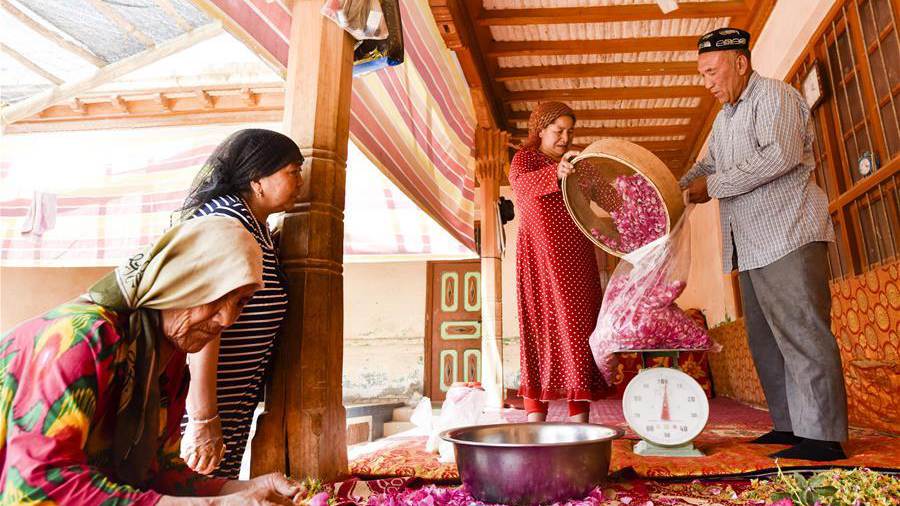 The topic of Xinjiang has resurfaced in world news after a few weeks' rest during which the anti-China campaign led by the United States shifted its focus to the new national security law in Hong Kong. A campaign built on daily declarations of the U.S. administration, passing of bills by Congress and threats of sanctions from Donald Trump. China's management of the Xinjiang Uygur Autonomous Region has been subject to repeated accusations by Washington of persecution against Muslim minorities in the region, notably the Uygurs. According to the United States, which has consistently been presenting itself as the defender of Chinese Muslims, they are deprived of their right to worship freely and are subject to all kinds of vexations/torments and prohibitions. These accusations have reached new heights over the past few days as China is now being accused of genocide. A grave accusation founded on a "study" by U.S.-based German "researcher" Adrian Zenz. Considered as the "best world expert on Chinese oppression against minorities" by certain media, he is an anthropologist for others, or even a "China scholar" according to respected British daily The Guardian. He only began appearing in media in 2019, his academic profile being inexistent and information prior to this Xinjiang campaign very scarce. The author's only academic title is his teaching at the "Akademie für Weltmission," an evangelical institution. Additionally, and noticeably, he is a senior fellow in China studies at the Victims of Communism Memorial Foundation in Washington D.C., an organization that envisions a "world free from the false hope of communism".
The topic of Xinjiang has resurfaced in world news after a few weeks' rest during which the anti-China campaign led by the United States shifted its focus to the new national security law in Hong Kong. A campaign built on daily declarations of the U.S. administration, passing of bills by Congress and threats of sanctions from Donald Trump. China's management of the Xinjiang Uygur Autonomous Region has been subject to repeated accusations by Washington of persecution against Muslim minorities in the region, notably the Uygurs. According to the United States, which has consistently been presenting itself as the defender of Chinese Muslims, they are deprived of their right to worship freely and are subject to all kinds of vexations/torments and prohibitions. These accusations have reached new heights over the past few days as China is now being accused of genocide. A grave accusation founded on a "study" by U.S.-based German "researcher" Adrian Zenz. Considered as the "best world expert on Chinese oppression against minorities" by certain media, he is an anthropologist for others, or even a "China scholar" according to respected British daily The Guardian. He only began appearing in media in 2019, his academic profile being inexistent and information prior to this Xinjiang campaign very scarce. The author's only academic title is his teaching at the "Akademie für Weltmission," an evangelical institution. Additionally, and noticeably, he is a senior fellow in China studies at the Victims of Communism Memorial Foundation in Washington D.C., an organization that envisions a "world free from the false hope of communism".
21.07.20 VAIRON, L.
Western policies on Xinjiang are about geopolitics and ideology
 Most of the Western rhetoric on Xinjiang originates from one person – Adrian Zenz. When he writes about things like the Chinese government persecuting people of certain religions or conducting inhuman policies in the region, western media and politicians listen to him and amplify his message. Lionel Vairon, a former French diplomat, sinologist, and president of CEC Consulting Company in Luxembourg, shares his views on the West's policies towards Xinjiang. The views expressed in the video are his own, and not necessarily those of CGTN. Lionel Vairon: This guy is German. He's called Adrian Zenz. He's not an expert at all, neither of China or Islam or of human rights. He is teaching computer science. And he's an evangelist. He is a member of an American organization which is called Victims of Communism Memorial Foundation, which is a far-right organization in the U.S. with people coming from the CIA. This is a joke. This is really a joke because you just have to look behind this guy. So I think this is very important because the whole business, the whole thing today is coming from one guy, who's supported by an organization in the United States – a far-right organization. So, this is not credible. If we talk about 2009, the troubles in 2009, it's interesting because at that time, and I was following very closely what happened. At that time, all the Western media were present in Xinjiang, from the UK, from Europe, all of them. They said the troubles are coming from the Uygurs. These were all Western media, I'm not talking about Chinese media, saying this is a main terrorist attack against Han Chinese in Xinjiang. But as usual, if you look two or three weeks later what came out in the news, it was only about repression and control of Uygurs in Xinjiang by the Chinese authorities and so on. So, it's interesting because as usual, this is only a double standard. You probably don't notice it in China, when you take the newspapers, when terrorist attacks happen in China, like it was in Kunming, for instance, or in Tiananmen (Square) years ago, all the (Western) papers, when they said this is supposed to be a terrorist attack, they put the word terrorists in brackets. All of them – in France, in Germany, and in UK, it's never terrorist, it's always in brackets. It means we don't know what it is. Even if you have the proof that they kill people with knives in the train station like in Kunming, terrorism is still in brackets.
Most of the Western rhetoric on Xinjiang originates from one person – Adrian Zenz. When he writes about things like the Chinese government persecuting people of certain religions or conducting inhuman policies in the region, western media and politicians listen to him and amplify his message. Lionel Vairon, a former French diplomat, sinologist, and president of CEC Consulting Company in Luxembourg, shares his views on the West's policies towards Xinjiang. The views expressed in the video are his own, and not necessarily those of CGTN. Lionel Vairon: This guy is German. He's called Adrian Zenz. He's not an expert at all, neither of China or Islam or of human rights. He is teaching computer science. And he's an evangelist. He is a member of an American organization which is called Victims of Communism Memorial Foundation, which is a far-right organization in the U.S. with people coming from the CIA. This is a joke. This is really a joke because you just have to look behind this guy. So I think this is very important because the whole business, the whole thing today is coming from one guy, who's supported by an organization in the United States – a far-right organization. So, this is not credible. If we talk about 2009, the troubles in 2009, it's interesting because at that time, and I was following very closely what happened. At that time, all the Western media were present in Xinjiang, from the UK, from Europe, all of them. They said the troubles are coming from the Uygurs. These were all Western media, I'm not talking about Chinese media, saying this is a main terrorist attack against Han Chinese in Xinjiang. But as usual, if you look two or three weeks later what came out in the news, it was only about repression and control of Uygurs in Xinjiang by the Chinese authorities and so on. So, it's interesting because as usual, this is only a double standard. You probably don't notice it in China, when you take the newspapers, when terrorist attacks happen in China, like it was in Kunming, for instance, or in Tiananmen (Square) years ago, all the (Western) papers, when they said this is supposed to be a terrorist attack, they put the word terrorists in brackets. All of them – in France, in Germany, and in UK, it's never terrorist, it's always in brackets. It means we don't know what it is. Even if you have the proof that they kill people with knives in the train station like in Kunming, terrorism is still in brackets.
18.07.20
Altos funcionarios chinos rechazan las acusaciones de EE UU sobre la falta de libertad religiosa
 Las autoridades de la región autónoma uigur de Xinjiang, en el noroeste de China, han mostrado su rechazo a un reciente informe de Estados Unidos sobre la libertad de culto. En el informe, publicado en junio, critican las políticas religiosas vigentes en Xinjiang. Dicho informe hace mención a supuestas destrucciones de mezquitas al tiempo que asegura que las minorías religiosas estarían bajo supuesta vigilancia, aseveraciones que han sido desmentidas por el director de la Comisión de Asuntos Regionales Étnicos de Xinjiang. Toda una sección dedicada a criticar el estado de la libertad religiosa en Xinjiang. Un informe publicado recientemente por el Departamento de Estado de Estados Unidos asegura que la libertad y las prácticas religiosas están siendo violadas en la región autónoma uigur de Xinjiang. Alega, además, que se ha practicado la destrucción masiva de mezquitas, incluyendo la Mezquita Keriya Aitiki, en la prefectura de Hotan y de 800 años de antigüedad.
Las autoridades de la región autónoma uigur de Xinjiang, en el noroeste de China, han mostrado su rechazo a un reciente informe de Estados Unidos sobre la libertad de culto. En el informe, publicado en junio, critican las políticas religiosas vigentes en Xinjiang. Dicho informe hace mención a supuestas destrucciones de mezquitas al tiempo que asegura que las minorías religiosas estarían bajo supuesta vigilancia, aseveraciones que han sido desmentidas por el director de la Comisión de Asuntos Regionales Étnicos de Xinjiang. Toda una sección dedicada a criticar el estado de la libertad religiosa en Xinjiang. Un informe publicado recientemente por el Departamento de Estado de Estados Unidos asegura que la libertad y las prácticas religiosas están siendo violadas en la región autónoma uigur de Xinjiang. Alega, además, que se ha practicado la destrucción masiva de mezquitas, incluyendo la Mezquita Keriya Aitiki, en la prefectura de Hotan y de 800 años de antigüedad.
17.07,20
"Demolición forzada de mezquitas" en Xinjiang es completamente un disparate: Funcionario
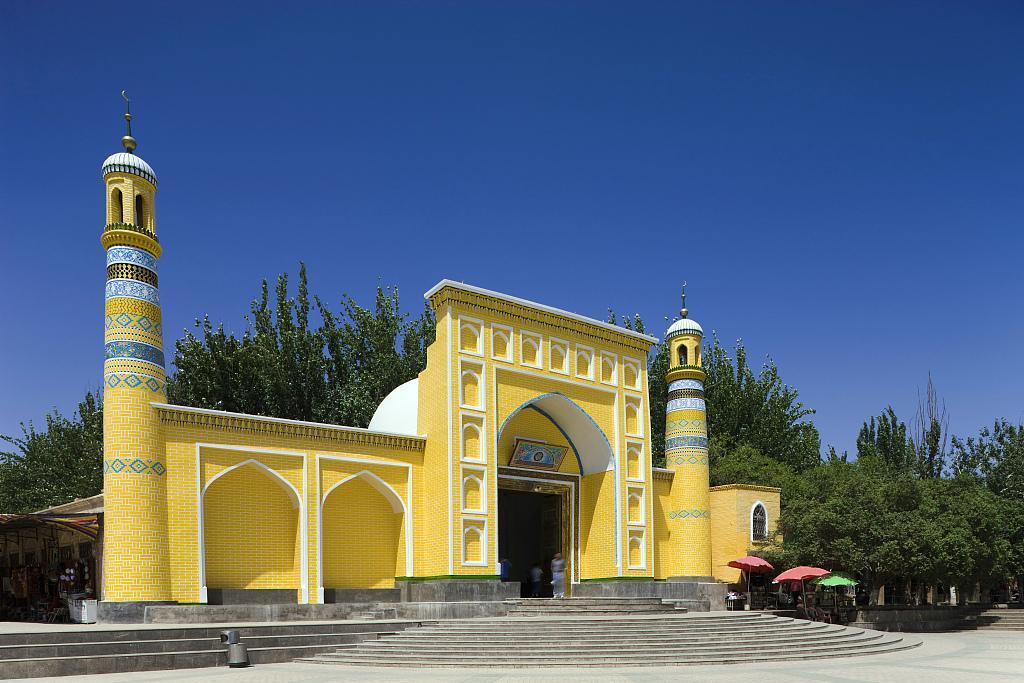 La llamada "demolición forzada de mezquitas" en Xinjiang es completamente un disparate, dijo hoy viernes un funcionario de la región autónoma uigur de Xinjiang, en el noroeste de China. Al comentar el informe 2019 sobre la libertad religiosa internacional emitido por Estados Unidos, que afirma que Xinjiang está desmantelando mezquitas, Mehmut Usman, director de la comisión regional de asuntos étnicos, dijo en una conferencia de prensa que, siempre y cuando se registren lugares para actividades religiosas ante el gobierno de acuerdo con la ley, tienen estatus legal y todos sus derechos e intereses están protegidos por la ley.
La llamada "demolición forzada de mezquitas" en Xinjiang es completamente un disparate, dijo hoy viernes un funcionario de la región autónoma uigur de Xinjiang, en el noroeste de China. Al comentar el informe 2019 sobre la libertad religiosa internacional emitido por Estados Unidos, que afirma que Xinjiang está desmantelando mezquitas, Mehmut Usman, director de la comisión regional de asuntos étnicos, dijo en una conferencia de prensa que, siempre y cuando se registren lugares para actividades religiosas ante el gobierno de acuerdo con la ley, tienen estatus legal y todos sus derechos e intereses están protegidos por la ley.
16.07.20
Trabajadores de mantenimiento ferroviario revisan las irregularidades sobre la línea del ferrocarril Golmud-Korla en Xinjiang
13.07.20
China sanctions U.S. entity and officials over Xinjiang-related issues
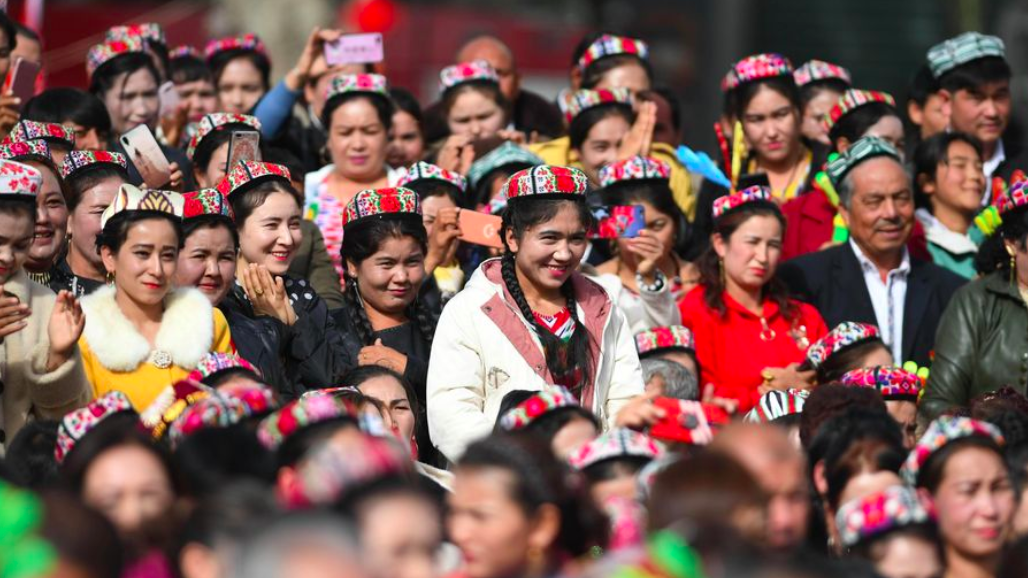 China on Monday announced sanctions on a U.S. entity and four officials in response to U.S. sanctions on multiple Chinese officials in Xinjiang Uygur Autonomous Region. The four U.S. officials are Senator Marco Rubio, Senator Ted Cruz, Congressman Chris Smith, and Sam Brownback, the U.S. State Department ambassador-at-large for International Religious Freedom, announced Hua Chunying, spokesperson for the Chinese Foreign Ministry, at a daily news briefing. The sanctions will also be applied on the U.S. Congressional-Executive Commission on China. The decision comes after the U.S. on July 9 imposed sanctions on a Chinese government institution and four Chinese officials in Xinjiang.
China on Monday announced sanctions on a U.S. entity and four officials in response to U.S. sanctions on multiple Chinese officials in Xinjiang Uygur Autonomous Region. The four U.S. officials are Senator Marco Rubio, Senator Ted Cruz, Congressman Chris Smith, and Sam Brownback, the U.S. State Department ambassador-at-large for International Religious Freedom, announced Hua Chunying, spokesperson for the Chinese Foreign Ministry, at a daily news briefing. The sanctions will also be applied on the U.S. Congressional-Executive Commission on China. The decision comes after the U.S. on July 9 imposed sanctions on a Chinese government institution and four Chinese officials in Xinjiang.
13.07.20
Terremoto de 5,0 grados de magnitud sacude a Xinjiang de China
Un terremoto de 5,0 grados de magnitud azotó el distrito de Huocheng en la región autónoma uigur de Xinjiang, en el noroeste de China, a las 9:28 horas de hoy lunes (hora de Beijing), de acuerdo con el Centro de Redes de Terremoto de China (CENC, por sus siglas en inglés).
13.07.20
Paso Alataw de Xinjiang maneja más de la mitad de transporte ferroviario China-Europa en primer semestre
 Las aduanas del Paso Alataw, un principal puerto ferroviario en la región autónoma uigur de Xinjiang, en el noroeste de China, manejó un total de 2 128 trenes de carga China-Europa durante la primera mitad del año, según informó la entidad. Durante el período de enero a junio, el puerto manejó más de la mitad del total de los trenes de carga China-Europa del país.
Las aduanas del Paso Alataw, un principal puerto ferroviario en la región autónoma uigur de Xinjiang, en el noroeste de China, manejó un total de 2 128 trenes de carga China-Europa durante la primera mitad del año, según informó la entidad. Durante el período de enero a junio, el puerto manejó más de la mitad del total de los trenes de carga China-Europa del país.
11.07.20
Xinjiang: Separating fact from fiction in recent media reports
The U.S. has just announced sanctions and visa restrictions in response to so-called ongoing human rights violations and abuses in Xinjiang. And an Associated Press report published on June 29 claims the Chinese government is taking measures to cut birth rates among Uygurs and other minorities as part of a campaign to curb its Muslim population. China's Ministry of Foreign Affairs has called the accusations "groundless."
https://news.cgtn.com/news/2020-07-11/Xinjiang-Separating-fact-from-fiction-in-recent-media-reports-S26kn9ZBok/index.html
https://news.cgtn.com/news/2020-07-11/Xinjiang-Separating-fact-from-fiction-in-recent-media-reports-S26kn9ZBok/index.html
10.07.20
China to take countermeasures against U.S. groups, persons for egregious behavior on Xinjiang
China will take countermeasures against U.S. organizations and individuals who have shown egregious behavior on Xinjiang, the Chinese Foreign Ministry said on Friday. Zhao Lijian, a spokesperson for the ministry, made these remarks after the U.S. Treasury Department sanctioned one Chinese government entity and four current or former government officials in connection with what it called "serious rights abuses against ethnic minorities" in Xinjiang.
https://news.cgtn.com/news/2020-07-10/China-to-take-countermeasures-against-U-S-groups-persons-on-Xinjiang-S0NrIkKqgE/index.html
https://news.cgtn.com/news/2020-07-10/China-to-take-countermeasures-against-U-S-groups-persons-on-Xinjiang-S0NrIkKqgE/index.html
08.07.20
Concluyen principales obras de nuevo aeropuerto en Xinjiang
La construcción de las estructuras principales de las instalaciones de un nuevo aeropuerto en la región autónoma uigur de Xinjiang, noroeste de China, han concluido. Según Xinjiang Airport Group, las obras de la torre de control del Aeropuerto de Yutian, con una altura de siete pisos, se completaron a comienzos de este mes, y actualmente avanzan las obras de decoración de interiores y exteriores del terminal y otras edificaciones del aeródromo.
03.07.20
Completan nuevo ferrocarril en región china de Xinjiang
La vía férrea se extiende por 420 kilómetros. Se conecta con otra vía en el norte y juntas forman parte de una red ferroviaria circular en la parte norte de Xinjiang. El Ferrocarril Afuzhun reduce la distancia entre Altay y la capital regional Urumqi a 640 kilómetros, a diferencia del anterior recorrido de 760 kilómetros, y recorta el tiempo de viaje en dos horas, informó Qiao Jianmin, de China Railway First Group Co., Ltd. El ferrocarril ayudará a impulsar el transporte y el turismo local, dijo Qiao.
02.07.20
46 countries voice support for China's anti-terrorism and de-radicalization work in Xinjiang
China's policies in Xinjiang are protecting human rights by keeping citizens safe from terrorism, a group of 46 nations told the United Nations Human Rights Council. In a statement read by the representative of Belarus, Vadim Pisarevich, the countries said that extremism posed a threat to all humanity.
30.06.20
China's C919 jet conducts high-temperature test flights in Xinjiang
China's indigenously-developed C919 large passenger aircraft has started high-temperature test flights in Turpan, a city known as the land of fire in northwest China's Xinjiang Uygur Autonomous Region. The test plane arrived in Turpan on Sunday and the testing will last for a month.
26.06.20
6.4-magnitude quake hits Xinjiang: CENC
A 6.4-magnitude earthquake jolted Yutian County of Hotan Prefecture in northwest China's Xinjiang Uygur Autonomous Region at 5:05 a.m. Beijing Time on Friday, according to the China Earthquake Networks Center (CENC).
19.06.20
Exclusive interview with deputy director general of Xinjiang Public Security Department
In an exclusive interview with CGTN, Deputy Director General of Xinjiang Public Security Department Yalqun Yaqup talked about the necessity of stepping up security measures in this far-western region of China.
19.06.20
Police officer slain in own home by terrorist in China's Xinjiang
Twenty years ago, terrorists stormed into the home of police officer Xudaberdi Toxti in Xinjiang's Zepu County and murdered him and his son. His second daughter, who survived the incident, recounted the tragedy and took CGTN to where it all happened.
19.06.20
CGTN reedita el documental sobre la lucha contra el terrorismo en Xinjiang ¿Siguen en silencio los medios de comunicación occidentales?
CGTN emitió esta mañana el documental "Majestuosa Montaña Tianshan – Memoria de la Lucha contra el Terrorismo en Xinjiang de China". Algunos espectadores lo han calificado como "usar sangre y lágrimas para explicar qué es el terrorismo". El poder de hacer que los espectadores sean incapaces de aguantarse las lágrimas proviene de la realidad. Esto no es una película, sino la vida de muchas personas. Entre 1990 y 2016, se produjeron miles de ataques terroristas en Xinjiang. En el documental, la historia de cada guardián, superviviente e incluso atacante es lo suficientemente impactante: "Había sido acuchillado por todas partes", recordó la hija de una persona que fue apuñalada más de treinta veces, dejando su cuerpo sin una zona intacta. "Long Fei ha terminado", dijo un policía especial antiterrorista al conocer el sacrificio de sus camaradas durante la lucha. "He sobrevivido a un desastre, me siento afortunada", afirmó una bailarina de etnia Uigur, que perdió una pierna durante un ataque terrorista, aunque aún ama la vida...
12.06.20
More than 20,000 Tibetan antelopes give birth in NW China's Xinjiang
More than 20,000 Tibetan antelopes are giving birth in the Altun Mountains National Nature Reserve in northwest China's Xinjiang Uygur Autonomous Region, showing a good result in wildlife conservation. Tibetan antelope is a special species on the Qinghai-Tibet Plateau. From late June to mid-July every year, they migrate to other places for giving birth. Surrounded by snow mountains, the Rabbit Lake or the Tuzi Lake in the Altun Mountains National Nature Reserve is a natural delivery place. In recent years, the living environment of wildlife has been improved by technological management, entry and exit control, and other actions.
CGTN Nature: Altai Mountains Series | Episode 2: The Deep Lake
Home to a diverse fauna and multiple types of vegetation, Altai Mountains represent the most complete sequence of altitudinal vegetation zones in central Siberia. The 16-episode Altai Mountains Series brings a glimpse of the magnificent biodiversity in northwest China's Xinjiang Uygur Autonomous Region.
https://news.cgtn.com/news/2020-06-04/CGTN-Nature-Altai-Mountains-Series-Episode-2-The-Deep-Lake-QZnyIAzNHG/index.html
03.06.20
Xinjiang young man ventures out for better employment
Elkem Emet has worked in an electronics factory in east China's Anhui Province for over a year. The 22-year-old man from northwest China's Xinjiang Uygur Autonomous Region set a goal before departing his hometown – make money, and then marry his beloved girlfriend.
https://news.cgtn.com/news/2020-06-03/Xinjiang-young-man-ventures-out-for-better-employment-R1NIiUL7DG/index.html
02.06.20 Jinghao, Y. - Yang, L.
Xinjiang refutes claim of detaining children in preschool facilities
China's Xinjiang Uygur Autonomous Region Monday refuted claim about "holding children of detained Xinjiang Muslims in preschool facilities," slamming the accusation as "nonsense" and "total slander" against Xinjiang's education development.
https://news.cgtn.com/news/2020-06-01/Xinjiang-refutes-claim-of-detaining-children-in-preschool-facilities-QYqWJFBnKU/index.html
31.05.20
Live: How do apricots help alleviate poverty in Xinjiang?
China's Luntai County, northwestern Xinjiang Uygur Autonomous Region, has 2,500 years of history of growing little white apricots, known as "white honey." The yellow-skinned fruit has a reputation for being juicy and very sweet and is regarded as local farmers' cash cow. At the end of May, the local white apricot ushers in a harvest.
https://news.cgtn.com/news/2020-05-30/Live-How-do-apricots-help-alleviate-poverty-in-Xinjiang--QVaplK20fK/index.html
27.05.20
End of Ramadan met with muted celebrations in Xinjiang due to COVID-19
The coronavirus has turned things upside down this year, especially in northwestern China's Xinjiang Region. Eid al-Fitr, or the Roza Festival as it is known in Xinjiang, is usually a bustling day of celebrations. This year things are far more subdued. Abulaitituersun, the owner of the popular Nanahan Bakery in Urumqi, the region's capital, said the usual pastries and baked goods made for the Roza Festival were still flying off the shelves.
https://newsus.cgtn.com/news/2020-05-27/End-of-Ramadan-met-with-muted-celebrations-in-Xinjiang-due-to-COVID-19-QORGBMpblC/index.html
26.05.20
China se opone firmemente a sanciones de EEUU contra empresas e instituciones chinas por Xinjiang
China expresa su fuerte insatisfacción y firme oposición al hecho de que Estados Unidos añadió empresas, instituciones e individuos chinos a su "lista de entidades" por causa de los asuntos de Xinjiang, dijo hoy lunes un portavoz del Ministerio de Relaciones Exteriores. El portavoz, Zhao Lijian, hizo los comentarios en una conferencia de prensa cuando se le pidió comentar la afirmación que hizo el Departamento de Comercio de Estados Unidos el viernes en el sentido de que sancionaría a las empresas e instituciones chinas pertinentes por abusos a los derechos humanos en la región autónoma uigur de Xinjiang, China.
http://spanish.xinhuanet.com/2020-05/26/c_139087265.htm
22.05.20
Sitio de construcción del túnel Shengli Tianshan en Xinjiang
El túnel Shengli Tianshan, es un proyecto de seis años en la carretera Urumqi-Yuli, pasa por una zona fría y de gran altitud, con condiciones climáticas y geológicas adversas.
21.05.20
Xinjiang: Feria nocturna en Hotan
A medida que el clima se ha vuelto cálido, las actividades de turismo local se han recuperado gradualmente, en una feria nocturna en Hotan, en la región autónoma de la etnia uigur de Xinjiang, en el noroeste de China.
http://spanish.xinhuanet.com/photo/2020-05/21/c_139070894.htm
20.05.20
Xinjiang: Construcción de carretera en desierto de Taklimakan
La construcción de la carretera Yuli-Qiemo, la tercera ruta norte-sur que atraviesa el desierto de Taklimakan ha entrado en la etapa final. Los trabajadores de China Communications Construction Company Ltd. están laborando en la duna más grande de este proyecto, con un volumen estimado de 1,2 millones de metros cúbicos de arena para tratar. Establecieron campamentos junto a la duna para la conveniencia del trabajo, y reciben las necesidades diarias de manera regular. Se espera que la finalización de la carretera mejore las condiciones de transporte en el sur de Xinjiang y promueva el desarrollo local.
http://spanish.xinhuanet.com/photo/2020-05/20/c_139068959.htm
19.05.20
Puerto Alashankou de Xinjiang registra firme crecimiento en trenes de carga China-Europa
El número de trenes de carga China-Europa que atravesaron el puerto interior de Alashankou en la región autónoma uigur de Xinjiang, noroeste de China, volvió a aumentar en el primer cuatrimestre de este año. Las autoridades aduaneras de Alashankou supervisaron 1.211 trenes de carga China-Europa de enero a abril, un aumento interanual de 28,28 por ciento. Estos trenes transportaron un total de 109.064 unidades equivalentes a veinte pies (TEU) de bienes, un incremento interanual de 37,05 por ciento. Estas cifras representan el 41,47 y 41,63 por ciento del total nacional de trenes de carga China-Europa y productos transportados, respectivamente, ambas cifras el primer lugar en China.
http://spanish.xinhuanet.com/2020-05/19/c_139067582.htm
15.05.20
Región china de Xinjiang lanza museo móvil sobre terremotos
La región autónoma uigur de Xinjiang, en el noroeste de China, ha lanzado un museo móvil de ciencia y tecnología dedicado a los terremotos. Se trata del primer centro de su tipo en el país.
http://spanish.xinhuanet.com/2020-05/15/c_139059489.htm
14.05.20
Cuerpo de Producción y Construcción de Xinjiang invertirá en proyectos de transporte
El Cuerpo de Producción y Construcción de Xinjiang, en la región autónoma uigur de Xinjiang, aumentará la inversión en proyectos de transporte en 2020. Las autoridades invertirán 9.500 millones de yuanes (1.340 millones de dólares) en 60 principales proyectos para construir o renovar carreteras con una longitud combinada de 2.281 kilómetros, según informó el departamento de transporte local.
http://spanish.xinhuanet.com/2020-05/14/c_139056578.htm
13.05.20
Earthquake rescue drill uses 5G technology for the first time
China's Xinjiang Uygur Autonomous Region used 5G technology for the first time in an earthquake emergency rescue drill. The drill was held just before May 12, China's 12th national day for disaster prevention and relief. A 5G emergency communication vehicle was deployed near the epicenter. It shortens the network delay from 150 to 200 milliseconds in 4G conditions to merely one to 10 milliseconds.
https://news.cgtn.com/news/2020-05-13/Earthquake-rescue-drill-uses-5G-technology-for-the-first-time-QsXDBrTDIA/index.html
12.05.20
Tourists encounter herd of red deer at Xinjiang's Tianshan scenic area
As the environment improves at Tianshan Tianchi Scenic Area in northwest China's Xinjiang Uygur Autonomous Region, the population of wildlife has also increased. And on May 8, two tourists encountered a herd of red deer.
12.05.20
Tourists encounter herd of red deer at Xinjiang's Tianshan scenic area
As the environment improves at Tianshan Tianchi Scenic Area in northwest China's Xinjiang Uygur Autonomous Region, the population of wildlife has also increased. And on May 8, two tourists encountered a herd of red deer.
Brown bear in courtship spotted in NW China
Recently, staff of the forestry department of Tianshan Mountain near Urumqi City of northwest China's Xinjiang Uygur Autonomous Region found some interesting footage of a brown bear on infrared cameras that are located in the forest.
China Europe Express Railway shipments rise in April
The number of shipments from the Urumqi land port on the China Europe Express Railway dropped by 35 percent in the first three months of 2020, but the one in April rose fast, even slightly topping April of 2019, according to Zhou Kai, executive deputy general manager of the Xinjiang International Land Port Group.
https://news.cgtn.com/news/2020-05-08/China-Europe-Express-Railway-shipments-rise-in-April-QkswE3NnRC/index.html
07.05.20
China says coronavirus Wuhan lab footage from UK media is edited
Chinese Foreign Ministry spokeswoman Hua Chunying said on Thursday the video footage released by Daily Telegraph on May 4 about the Wuhan Virology Institute (WVI) was edited, adding similar tricks have been seen many times on Xinjiang and Hong Kong issues.
03.05.20
Taklamakan Desert: Is China's largest desert getting bigger?

On April 10, 1895, Swedish geographer and explorer Sven Hedin tried to cross the Taklamakan Desert, also known as "the place of no return," in northwest China's Xinjiang Uygur Autonomous Region via Tusluk to the Khotan River. His water supply was insufficient due to a lack of information about the mysterious desert. In the end, he lost seven camels and two of his escorts.
02.05.20 YE, S.- BIAO, Ch.-SAI, Y.
Urumqi Grand Bazaar in NW China's Xinjiang enters peak season
More than 60,000 visited the bazaar on Friday, as the bazaar, the biggest in northwest China's Xinjiang Uygur Autonomous Region, enters its peak travel season, while far from its daily record accommodation of 300,000 from previous years.
30.04.20
Graphics: How has China's military relieved poverty in rural Xinjiang?
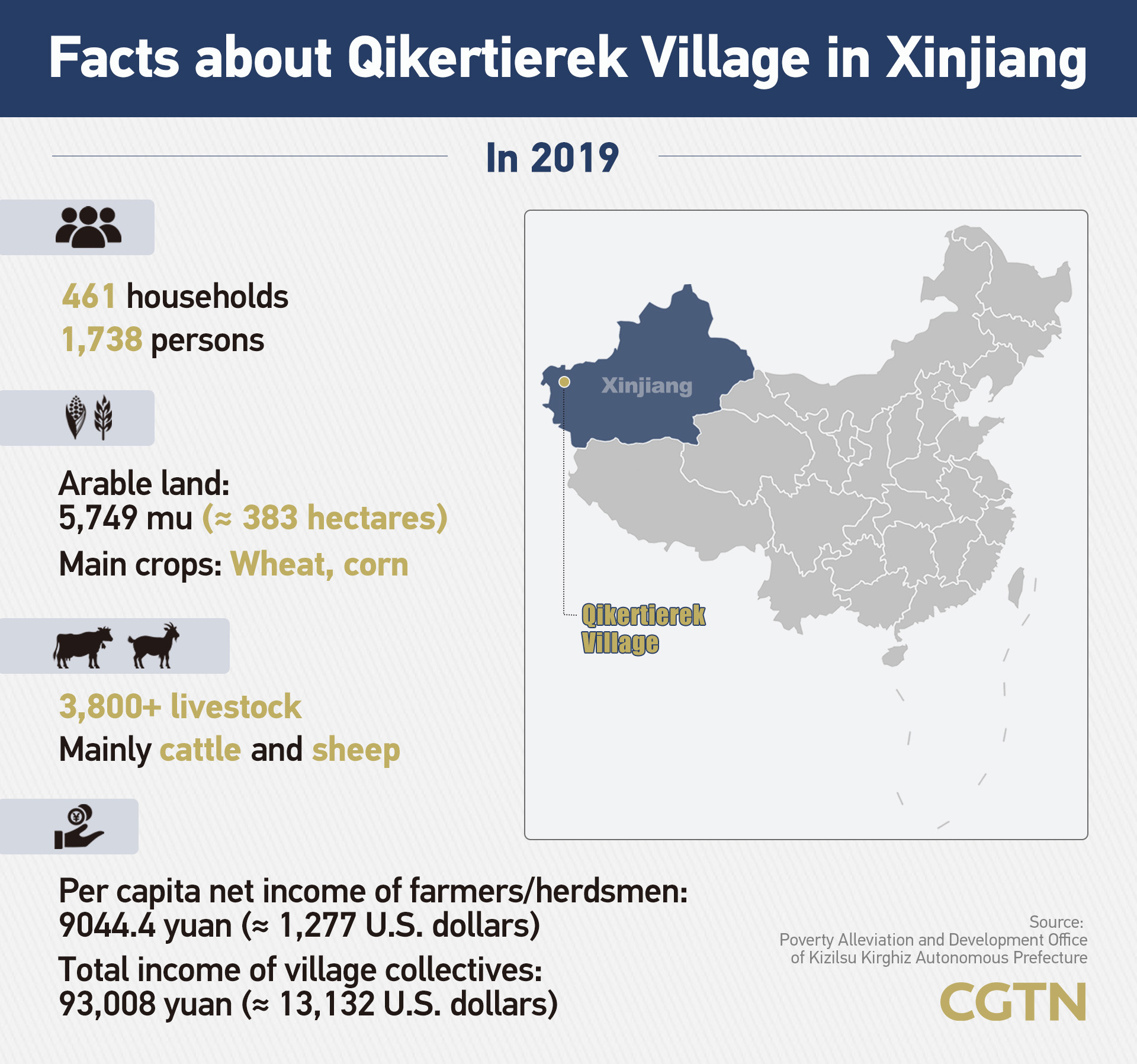
A small village with less than 2,000 people in the far west of northwest China's Xinjiang Uygur Autonomous Region has been lifted out of poverty with the help of members of the armed forces stationed there.
29.04.20
Authorities refute allegations that ethnic minority officials are marginalized in Xinjiang
Authorities in northwest China's Xinjiang Uygur Autonomous Region refuted on Wednesday the rhetoric that ethnic minority officials are marginalized in Xinjiang.
28.04.20
Investigadores chinos cuantifican claridad de agua con datos de teledetección
Investigadores chinos han cartografiado la claridad del agua de numerosos lagos y embalses del país con una resolución de 30 metros utilizando datos de imágenes de teledetección.
27.04.20 JINGHAO, Y.-YANG, L.-LIANG, L.
Construction of China's westernmost airport begins on the Pamirs
The construction of China's westernmost airport began in northwest China's Xinjiang Uygur Autonomous Region on Sunday, which will also be the region's first plateau airport upon completion.
26.04.20
Xinjiang invierte 800 millones de yuanes en modernización y promoción turística
La región autónoma uigur de Xinjiang en el noroeste de China planea invertir 880 millones de yuanes (unos 124,3 millones de dólares) este año para promover la construcción y modernización de las instalaciones de servicios turísticos, según las autoridades locales.
24.04.20
PIB de Xinjiang cae solo 0,2% en primer trimestre de 2020
El producto interno bruto (PIB) de la región autónoma uigur de Xinjiang, en el noroeste de China, totalizó 305 550 millones de yuanes (unos 88 400 millones de dólares) en el primer trimestre de este año, con un descenso de 0,2 por ciento interanual, según la oficina regional de estadísticas.
22.04.20
Región china de Xinjiang transmite 77 mil millones de kWh de electricidad limpia
La región autónoma uigur de Xinjiang, en el noroeste de China, ha transmitido más de 77 mil millones de kWh de electricidad más allá de sus fronteras desde 2010, toda generada por energía limpia.
20.04.20
Equipo de trabajo chino especializado en prevención y control epidémico se dirige a Kirguistán
Un equipo de trabajo especializado en prevención y control epidémico partió hoy lunes hacia Kirguistán, desde la región autónoma uigur de Xinjiang, en el noroeste de China, para unirse a la batalla contra la pandemia COVID-19.
18.04.20
U.S. website says Western reports on Xinjiang's 'forced labor' dubious
Recent Western media coverage on so-called "forced labor" in China's Xinjiang relies almost entirely on a series of "questionable studies" by a few Western think tanks, an independent U.S. news website said in a recent investigative article.
17.04.20
Se duplica población de animales ungulados salvajes en reserva natural de Xinjiang
Una reserva natural nacional en la región autónoma uigur de Xinjiang, en el noroeste de China, registra un creciente número de animales ungulados salvajes gracias a la mejora de su ambiente ecológico.
14.04.20
Rare Animals in China: Przewalski's horse and onager donkey
Horses and donkeys are common in many countries; but some of them are so rare that they are listed as endangered species by the International Union for Conservation of Nature (IUCN). The CGTN Nature film crew have spotted rare Przewalski's horses and onager donkeys in the Altai Mountains of northwestern China.
11.04.20
Xinjiang ofrece más de 20 mil millones de dólares en préstamos para compañías afectadas por COVID-19
El sector bancario de la región autónoma uigur de Xinjiang, en el noroeste de China, ha ofrecido préstamos por casi 145 mil millones de yuanes (20 600 millones de dólares) a las empresas afectadas por el nuevo coronavirus, para ayudarlas a acelerar la reanudación de la actividad. Las instituciones financieras de la región también están intensificando los esfuerzos en otras áreas, como por ejemplo en la creación de nuevos productos financieros aprovechando las plataformas en línea para apoyar la reanudación del trabajo y el control epidémico. Además, también se están abriendo canales verdes que aceleran los procedimientos de aprobación de préstamos para las empresas.
09.04.20
Xinjiang de China hará de su harina una marca regional
Las autoridades de la región autónoma uigur de Xinjiang, en el noroeste de China, planean hacer de su harina una reconocida marca en la región. Los esfuerzos ayudarán a promover los productos alimenticios locales en los mercados fuera de la región, según el departamento regional de alimentos y reservas estratégicas. El logotipo de "Harina de Xinjiang" ha recibido la aprobación de la Administración Nacional de Propiedad Intelectual, y se pondrá en uso en un par de meses, dijo Ma Xueyuan, economista jefe del departamento.
08.04.20
Creación de trabajos ha sido una alta prioridad para Xinjiang para combatir pobreza
Xinjiang ha tomado una serie de medidas ayudando a los habitantes afectados por la pobreza a encontrar trabajos en sus ciudades de origen o en otras áreas en la región y deshacerse de la pobreza de acuerdo con sus intenciones. La creación de trabajos ha sido una alta prioridad para Xinjiang para mejorar el bienestar de las personas y combatir a la pobreza. La región está determinada para erradicar la absoluta pobreza sacando al resto de las 165 800 personas de la pobreza este año.
03.04.20
Conferencia de Prensa Habitual Ofrecida 3 de abril de 2020 por Hua Chunying, Portavoz de Ministerio de Relaciones Exteriores
CCTV: El 2 de abril, el Embajador para la Libertad Religiosa Internacional, Brownback, declaró en una sesión informativa del Departamento de Estado de Estados Unidos que China ha encarcelado a un gran número de personas, incluidos millones de musulmanes de Xinjiang debido a sus creencias religiosas, y llamó a China a liberar "presos religiosos" durante la pandemia. ¿Cuál es tu comentario sobre esto? Hua Chunying: Brownback también es un experto en mentir, sus afirmaciones sobre encarcelamiento de gran número de personas en China debido a sus creencias religiosas, incluidos millones de musulmanes de Xinjiang son puramente inventadas sin fundamento y son disparates. Después de un arduo esfuerzo, el pueblo chino ha logrado resultados positivos en la lucha contra la epidemia, ha salvaguardado efectivamente la salud y la seguridad de la vida de todo el pueblo chino, incluida la mayoría de los compatriotas musulmanes, y también ha hecho importantes contribuciones a la seguridad de salud pública mundial. Esto es universalmente reconocido, pero Brownback y un número reducido de políticos estadounidenses son reacios y cobardes para encarar a este hecho. El gobierno chino protege la libertad de creencias religiosas de sus ciudadanos de conformidad con la ley, y la gente de todos los grupos étnicos en China disfruta de la plena libertad de creencias religiosas de conformidad con la ley. No hay los llamados "presos religiosos" en China, ni mucho menos la llamada "encarcelamiento de millones de musulmanes en Xinjiang". Al mismo tiempo, como país de estado de derecho, China nunca permitirá a nadie a dedicarse a las actividades ilegales y criminales bajo el nombre de religión. En la actualidad, hay casi 200 millones de creyentes religiosos en China, de los cuales más de 20 millones son musulmanes, más de 380,000 personas de oficio religioso, alrededor de 5,500 grupos religiosos y más de 140,000 lugares para las actividades religiosas registradas en conformidad con la ley. Hay 24,400 mezquitas en Xinjiang, y un promedio de una mezquita por cada 530 musulmanes. No importa cómo repitan las mentiras inventadas por unos pocos políticos estadounidenses y del mundo occidental, no pueden cambiar estos hechos.
01.04.20
Personas con sentido común deben luchar firmemente contra las noticias falsas sobre Xinjiang, según portavoz
La portavoz del Ministerio de Relaciones Exteriores chino Hua Chunying llamó hoy miércoles a las personas con sentido común a combatir las noticias falsas sobre la política de Xinjiang de China. Hua hizo las declaraciones en una rueda de prensa cuando se le pidió que comentara sobre una investigación de The Grayzone, un sitio web de noticias independiente de Estados Unidos, según la cual un reciente informe sobre el supuesto programa de "trabajo forzado" de China en la región autónoma uigur de Xinjiang ha sido, en realidad, iniciado por una organización australiana respaldada por el país norteamericano. "Eso demostró que ciertas personas actúan con agendas ocultas", sostuvo la vocera. El sitio web también añade que el informe no ha presentado "ninguna evidencia original" de los trabajadores en el supuesto programa de "trabajo forzado". Aún así, el texto citó "testimonios" anónimos de un blog en línea de fanáticos religiosos "oscuro y de extrema derecha".
27.03.20
Conferencia de Prensa Habitual Ofrecida 27 de marzo de 2020 por Portavoz de Ministerio de Relaciones Exteriores Geng Shuang
TV de Shenzhen: El Instituto de Política Estratégica de Australia (ASPI) dijo en un informe reciente que el gobierno chino ha transferido a los uigures y otras minorías de los "campamentos de reeducación" en Xinjiang a las fábricas de todo el país para realizar trabajos forzados. La Comisión Ejecutiva del Congreso de Estados Unidos sobre China (CECC) publicó un informe sobre "Cadenas mundiales de suministro, trabajo forzoso y la región autónoma uigur de Xinjiang". James McGovern y Marco Rubio, copresidentes de la comisión, también propusieron un proyecto de ley denominado Ley de prevención del trabajo forzado uigur. ¿Me pregunto si China tiene un comentario? Geng Shuang: Un puñado de políticos estadounidenses que buscan ganancias políticas de la retórica contra China, junto con instituciones académicas apoyadas por fondos estadounidenses, arrojaron una absurda acusación tras otra sobre Xinjiang, cocinaron todo tipo de noticias falsas desde "campos de reeducación" hasta "trabajos forzados" para acusar sin fundamento a China por su política de Xinjiang interfiriendo gruesamente en los asuntos internos de China. La parte china lo deplora y rechaza con firmeza. Como hemos subrayado repetidamente, los llamados "campos de reeducación" son inexistentes. Los centros de educación y formación profesional establecidos legalmente en Xinjiang son útiles para experimentar y explorar medidas preventivas contra el terrorismo y la desradicalización. Son esencialmente las mismas prácticas de otros países para este fin. Todos los aprendices en estas instalaciones se han graduado. En cuanto a la supuesta cuestión del "trabajo forzoso", las autoridades en Xinjiang ya realizaron una conferencia de prensa para exponer nuestra posición y punto de vista y compartir la política de empleo y el progreso en la región el 16 de marzo.
26.03.20
Región china de Xinjiang ahorrará 946,6 millones de dólares en primas de seguros a 100 mil empresas
Las autoridades de la región autónoma uigur de Xinjiang, en el noroeste de China, eximirán o reducirán las primas de seguros de casi 100 mil empresas por un valor de 6 730 millones de yuanes (unos 946,6 millones de dólares), ante el impacto de la epidemia de COVID-19. Las medianas, pequeñas y microempresas, así como los negocios privados, no tendrán que pagar los seguros básicos de pensión, desempleo y lesiones laborales para sus empleados entre febrero y junio, informó el departamento regional de recursos humanos y seguridad social. En el caso de las grandes empresas, el pago de estos seguros se reducirá a la mitad de febrero a abril, al tiempo que se permitirá retrasar las erogaciones por un máximo de seis meses sin ninguna multa a las compañías que se enfrentan a graves dificultades operativas. Sun Zhanxue, investigador del departamento, dijo que sólo en febrero, la región recortó o eximió primas de seguros de pensión básica, desempleo y lesiones laborales por valor de 1 430 millones, 44 millones y 49 millones de yuanes, respectivamente, cubriendo 96 mil empresas. Se calcula que el valor total reducido y exento llegue a 6 730 millones de yuanes en junio.
25.03.20
Xinjiang invierte 14 millones de dólares para modernizar red eléctrica en zonas rurales
La región autónoma uigur de Xinjiang, en el noroeste de China, ha invertido casi 100 millones de yuanes (14 millones de dólares) desde 2018 para construir y mejorar la red eléctrica en sus zonas limítrofes. Más de 9 mil hogares de 86 aldeas rurales se beneficiarán de la inversión, según la sucursal en Xinjiang de la Corporación de la Red Estatal de China.
24.03.20
Xinjiang dona 380 mil máscarillas a ocho países
La región autónoma uigur de Xinjiang, en el noroeste de China, ha donado 380.000 mascarillas médicas a ocho países para ayudarlos en la lucha global contra el nuevo coronavirus COVID-19. Las mascarillas fueron entregadas a Pakistán, la República de Corea, Malasia, Irán, Irak, Líbano, Túnez y Argelia.
20.03.20
Xinjiang: Base agrícola en distrito Shache
El trabajo agrícola se ha reanudado de manera ordenada en Shache. A principios de 2018, con el apoyo de Shanghai, los agricultores locales establecieron una base agrícola para aumentar sus ingresos.
19.03.20
Xinjiang invertirá más de 450 millones de dólares en construcción de aeropuertos
La región autónoma uigur de Xinjiang, en el noroeste de China, planea gastar 3 190 millones de yuanes (unos 451,2 millones de dólares) en la construcción de 10 aeropuertos este año, informaron hoy jueves fuentes del sector. El Grupo de Aeropuertos de Xinjiang indicó que los planes forman parte de sus esfuerzos para mejorar la conectividad y convertir la región en un centro de transporte a lo largo de la Franja y la Ruta. Los proyectos involucran la continuación de las obras en cinco aeropuertos en Kashgar, Aksu, Yining, Yutian y Zhaosu, así como la construcción de cinco nuevos en Turpan, Taxkorgan, Qitai, Bayanbulak y Barkol, según el grupo.
16.03.20
Xinjiang realizará grandes inversiones para ampliar la cobertura 4G en aldeas pobres
La región autónoma de Xinjiang Uigur invertirá más de 330 millones de renminbi (alrededor de 47 millones de dólares estadounidenses) para la construcción de estaciones base 4G que proporcionen este año ese apreciado servicio a 334 aldeas afectadas por la pobreza. Una vez terminada la obra, las aldeas tendrán cobertura, ya sea a través de redes cableadas o inalámbricas. Como Xinjiang posee amplios territorios y una población pequeña, sus zonas rurales, especialmente las aldeas pobres, sufren malas condiciones en el transporte y las comunicaciones. Y la cobertura de redes de banda ancha y redes 4G está relativamente atrasada con respecto a otras provincias y regiones del país.
14.03.20
La llamada cuestión de los "derechos humanos" en Xinjiang es una mentira política
Afectada por la nueva epidemia de neumonía de nuevo coronavirus, la 43.ª sesión del Consejo de Derechos Humanos de las Naciones Unidas, que se celebraba en Ginebra, se ha suspendido temporalmente desde el 13 de marzo. Sin embargo, el ataque a China por parte de los países involucrados sobre Xinjiang no se detuvo. Estados Unidos lanzó recientemente el llamado "Informe Nacional de Derechos Humanos para 2019", que una vez más atacó la situación de derechos humanos de China y las políticas territoriales de Xinjiang y calumnió a China por detener a uigures en "campos de detención". Estas falacias, como la calumnia contra China por parte de representantes de los Estados Unidos y otros países occidentales en la Conferencia de Derechos Humanos de las Naciones Unidas en Ginebra, no tienen una base objetiva y son esencialmente mentiras políticas. El propósito es interferir en los esfuerzos antiterroristas de Xinjiang y obstaculizar el desarrollo de China.
13.03.20
Xinjiang liberará de la pobreza a 42 mil hogares restantes en 2020
La región autónoma uigur de Xinjiang, en el noroeste de China, erradicará la pobreza absoluta en 2020 al liberar de la pobreza a sus restantes 165 800 habitantes de 42 mil hogares y sacará a 10 distritos de la lista de pobreza, se anunció hoy jueves en conferencia de prensa. La conferencia señaló que el problema de la seguridad de agua potable para los restantes 15 300 habitantes de Xinjiang se resolverá completamente en el primer semestre de este año.
12.03.20
La vida vuelve a normalidad, la producción se reanuda por completo en Xinjiang de China
La región autónoma uigur de Xinjiang, en el noroeste de China, ha reanudado por completo la producción y la vida de la gente local ha vuelto a la normalidad, ya que la región no ha reportado casos confirmados de COVID-19 durante 23 días consecutivos. Sin embargo, aún deben implementarse medidas para prevenir cualquier infección importada, según la oficina regional sobre la prevención y el control del brote. Hasta la fecha, el 91,7 por ciento de las grandes empresas de Xinjiang con un volumen comercial anual de al menos 20 millones de yuanes han reanudado sus negocios, mientras que todas las compañías de propiedad estatal bajo la administración del Gobierno central chino en Xinjiang han reiniciado su trabajo.
03.03.20
Exposición sobre Xinjiang se presenta en Ginebra durante sesión de Consejo Derechos Humanos ONU
Chen Xu, representante permanente de China ante la Oficina de las Organización de las Naciones Unidas (ONU) en Ginebra, habla durante la ceremonia de inauguración de la exposición fotográfica "En casa: una mirada a los diferentes grupos étnicos de Xinjiang" en Ginebra, Suiza, el 2 de marzo de 2020. Más de 100 fotografías y vídeos que muestran un Xinjiang hermoso, abierto y de gran riqueza estuvieron expuestos el lunes dentro del Palacio de las Naciones en Ginebra, Suiza, durante la 43.ª sesión regular del Consejo de Derechos Humanos de la ONU. La exposición se divide en tres grandes áreas: paz y estabilidad, prosperidad cultural y armonía religiosa.
01.03.20
Cosechan fresas en invernadero en Xinjiang
Agricultores cosechan fresas en un invernadero en la región autónoma de la etnia uigur de Xinjiang, en el noroeste de China, el 27 de febrero de 2020.
27.02.20
Enviada de China califica de falsas las acusaciones sobre Xinjiang en sesión de derechos humanos de ONU
Las acusaciones del Reino Unido y otros países sobre las políticas chinas en Xinjiang son falsas e interfieren con los asuntos internos y la soberanía judicial de China, aseguró este miércoles en Ginebra la enviada china para la 43.ª sesión del Consejo de Derechos Humanos de las Naciones Unidas. Los acusadores han desafiado los hechos, ya que desconocen o no quieren admitir la verdad sobre la situación de los derechos humanos en la región autónoma uigur de Xinjiang de China, dijo Liu Hua, representante especial para los derechos humanos del Ministerio de Relaciones Exteriores de China. Peor aún, algunos han empleado los derechos humanos como una herramienta política para difamar y desacreditar a China, indicó Liu, criticando a esos países por practicar dobles raseros con respecto a las medidas que China ha tomado legalmente contra el terrorismo y desradicalización en Xinjiang. Estos países y fuerzas afirmaron que las medidas de China son excesivas y violan los derechos humanos, mientras que prácticas similares que han sido adoptadas en sus propios países son consideradas como parte del estado de derecho, dijo. Rechazaron la invitación de China a visitar Xinjiang, y cuando más de 70 países apoyaron explícitamente las políticas de China en Xinjiang a través de cartas o declaraciones conjuntas, considerándolas prácticas positivas contra el terrorismo y la desradicalización y medidas efectivas para proteger los derechos humanos básicos de todos los grupos étnicos, dijeron que esos países estaban bajo la presión de China y que solo los rumores que ellos han repetido son la verdad, señaló.
27.02.20
Vuelo fletado trae de vuelta a trabajadores migrantes de Xinjiang a su trabajo

Un vuelo fletado trasladó el miércoles a 135 trabajadores migrantes del distrito de Akqi, de la región autónoma uigur de Xinjiang, en el noroeste de China, para que reanuden su trabajo en la ciudad de Wuxi, en la provincia oriental de Jiangsu. La aeronave fue desinfectada estrictamente, a los pasajeros y a la tribulación se les detectó la temperatura de forma obligatoria antes del embarque, según Song Lijun, capitán del vuelo operado por la aerolínea Urumqi Air. "Los pasajeros y la tripulación usaron mascarillas, y también estuvo disponible toallitas de desinfección, para minimizar el riesgo de propagación del virus durante el vuelo", detalló Song. Los trabajadores migrantes al llegar a Wuxi tomaron autobuses fletados para dirigirse a la compañía Sunra Electric Vehicle, y después de una cuarentena regresarán a trabajar.
24.02.20
La “lista de nombres” de Xinjiang es un engaño terrorista
Las autoridades de la región autónoma de Xinjiang Uigur declararon que la "lista de nombres" de personas presuntamente enviadas a centros de educación y formación profesional por tener relaciones con personas en el extranjero, fue fabricada por las fuerzas terroristas del Movimiento Islámico del Turkestán Oriental (ETIM, por sus siglas en inglés). La llamada "Lista de Karakax", publicada el 17 de febrero por el profesor alemán Adrian Zenz, detalla que 311 personas del condado de Moyu (también conocido como Karakax), en la prefectura de Hotan, Xinjiang, fueron enviadas a centros de educación y capacitación vocacional por tener relaciones con personas que salieron hacia el extranjero y no regresaron a China. Zenz afirmó que el contenido se basa en documentos del gobierno chino que fueron filtrados.
17.02.20
Trabajadora de la salud enseña danza étnica de Xinjiang a sus pacientes de un hospital temporal de Wuhan
Bahargul Toleheng, una trabajadora de la salud de la región autónoma de Xinjiang Uigur, se popularizó en las redes sociales después de que apareciera en un vídeo enseñando danza a pacientes en un hospital temporal, instalado en el Centro de Exposiciones Wuhan Parlour.
10.02.20
Xinjiang prohíbe el comercio de animales salvajes y eventos circenses con animales
La región autónoma uigur de Xinjiang ha prohibido el comercio y el tráfico de animales salvajes, sus partes y productos derivados. Tampoco se podrá realizar actuaciones de circo que involucren animales.
08.02.20
Enviado chino refuta acusaciones de EEUU sobre combate a terrorismo en Xinjiang
En una reunión del Consejo de Seguridad sobre la amenaza que el Estado Islámico representa, Wu Haitao, representante permanente asistente de China ante la ONU, dijo que las declaraciones del representante de Estados Unidos sobre Xinjiang son "injustificadas". Michael Barkin, asesor de políticas sénior de la misión de Estados Unidos ante la ONU, quien habló ante el consejo antes que Wu, afirmó que los "uigures" y otros musulmanes han sido "detenidos en campos de reclusión con el pretexto del terrorismo" en Xinjiang. Barkin describió las medidas de China contra el terrorismo como "confinamiento que se basa y se impone sobre la base de la etnia y la religión". Wu dijo que los "ataques" de Barkin son "completamente infundados y representan una desenfrenada interferencia en los asuntos internos de China y un descarado intento por provocar una confrontación". De hecho, dijo, los problemas que Xinjiang enfrenta no tienen que ver con grupos étnicos o religión o derechos humanos, sino que más bien tienen que ver con el combate al terrorismo. Al recordar el pasado, Wu dijo que durante algún tiempo, Xinjiang sufrió frecuentes ataques terroristas, lo cual puso en serio peligro la vida y las propiedades de las comunidades de todas las etnias y violó gravemente la dignidad humana. "En respuesta, China ha tomado medidas resueltas basadas en la ley para combatir el terrorismo y el extremismo, eliminando en la medida de lo posible el caldo de cultivo y las condiciones para el terrorismo y el extremismo, frenando efectivamente la tendencia de las actividades terroristas incontroladas y salvaguardado los derechos básicos de los ciudadanos, incluyendo el derecho a la vida y al desarrollo", explicó Wu.
14.01.20
CGTN visita el cementerio de Xinjiang y rompe la mentira de “destrucción deliberada de tumbas uigures” en Occidente
Un cementerio en el condado de Xayar de la prefectura de Aksu, en la región autónoma uigur de Xinjiang, noroeste de China, se ha convertido recientemente en el foco de controversia internacional. CNN informó que las autoridades estaban demoliendo los cementerios de la región, destacando historias como la de Aziz Isa Elkun, un poeta uigur que ahora reside en Londres, quien dijo que no podía encontrar la tumba de su padre en Google Maps. El artículo implica que la “destrucción” de estos cementerios uigures, una parte central de las comunidades locales, fue parte de un esfuerzo sistemático para borrar la cultura uigur.
12.01.20
La Ruta de la Seda: viaje a Xinjiang - Hecho en Xinjiang CGTN
Muchos de nosotros no hemos visto el algodón crecer en la tierra. Este año, la producción de este campo de algodón alcanzará las 5 000 toneladas. El cultivo del algodón comenzó hace mucho tiempo en Xinjiang, se remonta al período de la antigua Ruta de la Seda.
05.01.20
Exclusiva de CGTN: Lo que probablemente no sabes sobre Xinjiang
Respecto de Xinjiang, Beijing ha dicho en repetidas ocasiones que no se produjo ningún ataque terrorista importante en los últimos tres años y que la estabilidad y el crecimiento se han restablecido. Pero, ¿qué significa todo esto realmente para las personas que viven aquí?
27.12.19
Exclusiva de CGTN: Refutada la propaganda occidental sobre los "campos" de Xinjiang
La región autónoma uigur de Xinjiang, región más occidental de China, es un área con múltiples etnias y religiones. Para empezar, entender su complejidad es difícil, y la propaganda occidental no lo ha hecho más fácil. El presentador y periodista de CGTN Wang Guan viajó al corazón de Xinjiang y refutó cuatro mitos inventados por los medios occidentales sobre Xinjiang y sus llamados "campos de reeducación".
15.12.19
La mano negra: el MITO y el terrorismo en Xinjiang
La situación de la lucha contra el terrorismo era tirante en la región más occidental de China. Ataques violentos se dirigían a civiles de todos los grupos étnicos... Los caos terroristas eran frecuentes en casi todas las partes de la región autónoma uigur de Xinjiang. Xinjiang se convirtió en un campo de batalla en la lucha de China contra el terrorismo. Según estadísticas inconclusas, miles de ataques terroristas se perpetraron en Xinjiang desde 1990 hasta finales de 2016. Este programa trata de llegar a la raíz del problema, sacar a la luz la verdad que está detrás de estas muertes y dolor, recordar a las víctimas y a los supervivientes, y servir de referencia sobre la situación actual de la región más occidental de China.
https://www.youtube.com/watch?v=nV4u-AVY_kM&list=PLNr3xkpgXhlH6f-0db41v3Xz4wY98NoyY&index=165
https://www.youtube.com/watch?v=nV4u-AVY_kM&list=PLNr3xkpgXhlH6f-0db41v3Xz4wY98NoyY&index=165
La región autónoma uigur de Xinjiang es próspera y segura
El turismo ha sido un importante contribuyente a la economía local. El año pasado más de 150 millones de turistas, tanto de China como extranjeros, visitaron Xinjiang, lo que representa un incremento del 40 por ciento año con año. Además, la región en el extremo occidental del territorio chino es también el centro de la Franja Económica de la Ruta de la Seda. En los primeros 10 meses de este año, las importaciones y exportaciones totales aumentaron cerca de 30 por ciento año con año, con un aumento de más del 60 por ciento para las importaciones. De acuerdo con las autoridades, la paz y la estabilidad que prevalecen en Xinjiang no fueron una tarea fácil.
08.12.19 By Liu Xin
China airs Xinjiang truths
Western media selectively report to fit their stereotype: analysts. China's state broadcasters consecutively aired three documentaries from Thursday illustrating the anti-terrorism efforts in Northwest China's Xinjiang Uyghur Autonomous Region, a terrorist organization East Turkistan Islamic Movement's (ETIM) role in plotting terrorist attacks in China and US hypocrisy on human rights issues. The documentaries sparked wide discussions on domestic and overseas media. Many netizens commented that the documentaries disclosed rare video footage on terrorist attacks that Xinjiang had suffered, fully reflecting the severe threat of terrorism Xinjiang was facing. They also said Western media that criticized China's Xinjiang policies should watch these videos carefully. But many Western media, especially those which tried to hype the "leaked documents" on vocational education and training centers in Xinjiang in recent weeks, kept silent over the heated discussions on the Chinese mainland generated by the documentaries. Chinese mainland experts said that some Western media outlets selectively report what fits their stereotypes and interests. These outlets also went great lengths to slander on Xinjiang. Their silence on the documentaries showed their double standards in regards to China's Xinjiang issues, they said. Two of the three documentaries were newly made and aired on CGTN on Thursday and Saturday respectively, telling of the overall counter-terrorism work in Xinjiang and ETIM's role in inciting terrorist attacks in China's Xinjiang and other Chinese cities. One documentary, initially aired in April 2018, was streamed again on CGTN on Friday night, deploring the human rights crisis created by the US in the Middle East since 2003.
04.12.19
China rechaza proyecto de ley en EE.UU. sobre región de Xinjiang
“Bajo el pretexto de la situación en Xinjiang, Estados Unidos intenta sembrar la discordia entre los distintos grupos étnicos de China, socavar la prosperidad y estabilidad de Xinjiang y obstaculizar el crecimiento de China. Pero eso no sucederá”, destacó Chunying. Las autoridades de China rechazaron este miércoles el proyecto de ley aprobado por la Cámara de Representantes de Estados Unidos (EE.UU.) sobre la región autónoma de Xinjiang, donde cuestiona las garantías de los derechos humanos en esa zona del gigante asiático. La vocera del Ministerio de Relaciones Exteriores de China, Hua Chunying, exigió la anulación del proyecto legislativo, el cual calificó como una injerencia en los asuntos internos de la Nación. En ese sentido, la portavoz de la cancillería destacó que la llamada “Ley de Política de Derechos Humanos de Uigur de 2019” representa una intromisión en los esfuerzos que realiza China en la lucha contra el terrorismo, el separatismo y la violencia.
30.11.19
Explained: China's national minorities policy in Xinjiang
China has been a multi-ethnic country since ancient times. There are so far 56 ethnic groups identified and confirmed by the central government. In the country's far-western frontier, over a dozen ethnic groups maintain close relations and share weal and woe. They work hard to develop their home – Xinjiang, a shimmering land on the ancient Silk Road – into a region that seeks to retain its diverse, multicultural heritage while measuring up to the modernity of the inland. Since the peaceful liberation of Xinjiang in 1949, and the founding of the Xinjiang Uygur Autonomous Region in 1955, it has seen continued improvement in people's well being, social stability and economic development.
27.11.19
Scenery of Ulunggur Lake in NW China's Xinjiang
People visit a scenic spot of Ulunggur Lake in Fuhai County, northwest China's Xinjiang Uygur Autonomous Region, Nov. 26, 2019. Famous for its unique Yardang landform and water landscape, the scenic spot of Ulunggur Lake in Fuhai County has attracted a lot of visitors.
26.11.19
Proyecto Esperanza brinda asistencia financiera a más de 100 mil estudiantes en Xinjiang de China
Más de 100 mil estudiantes de varios grupos étnicos de zonas afectadas por la pobreza de la región autónoma uigur de Xinjiang, en el noroeste de China, han recibido asistencia financiera del Proyecto Esperanza, informó la Fundación de Desarrollo Juvenil regional. De acuerdo con la fundación, el proyecto ha permitido durante las últimas tres décadas la financiación de 103 700 estudiantes, la construcción de 517 escuelas primarias y jardines de infancia, así como un hospital. Asimismo, se han lanzado 2 480 proyectos centrados en la enseñanza de deportes, música, conocimientos informáticos y lectura en las escuelas de los poblados. Fundado en 1989 por el Comité Central de la Liga de la Juventud Comunista de China y la Fundación de Desarrollo Juvenil de China, el Proyecto Esperanza se dirige a ayudar a niños en zonas afectadas por la pobreza para garantizarles un mayor acceso a la educación. El secretario general de la Fundación de Desarrollo Juvenil regional, Shi Lei, prometió mayores esfuerzos para cuidar mejor a los adolescentes en Xinjiang y aumentar la consciencia social en apoyo al Proyecto Esperanza.
23.11.19
Xinjiang to hold winter tourism trade fair
The 14th Xinjiang Winter Tourism Trade Fair is scheduled to be unveiled in the city of Altay, northwest China's Xinjiang Uygur Autonomous Region, on November 27, when the region will embrace its golden period for winter tourism this year, local authorities said on Wednesday. The trade fair will last from November 2019 to March 2020. More than 400 cultural and tourism activities will be launched during the period, according to the regional culture and tourism department. Three meetings and forums, as well as four exhibitions on winter tourism products and cultural tourism, will also be held during the fair. From November 27 to 30, the ice and snow equipment and creative cultural products exhibition will be presented in Altay. From December 13 to 15, winter tourism products will be displayed on a fair in the city of Urumqi, the capital of the region.
20.11.19
Presa hídrica del proyecto de conservación de agua Aratax en Xinjiang
La presa hídrica del proyecto de conservación de agua Aratax, la más importante en la región autónoma uygur de Xinjiang debido a su magnificencia y la dificultad para su construcción, comenzó a acumular agua del río Yarkant el martes. El proyecto Aratax tendrá un rol importante en el control de inundaciones, irrigación y generación de energía.
18.11.19
Conferencia de Prensa Habitual Ofrecida 18 de noviembre de 2019 por Geng Shuang, Portavoz de Ministerio de Relaciones Exteriores
PREGUNTA: El New York Times informó el día 16 que un lote de documentos internos chinos reveló que China había establecido "campo de internados" en Xinjiang y había llevado a cabo una "represión" a gran escala contra los musulmanes. ¿Cuál es el comentario de China sobre esto? RESPUESTA: China ha respondido repetidamente a la cuestión de Xinjiang, nuestra posición y política son consistentes y claras. Los asuntos de Xinjiang son puramente asuntos internos de China. La cuestión de Xinjiang no es la cuestión de religión, étnia o derechos humanos, sino es la cuestión de la lucha contra el terrorismo y la anti secesión. Desde 2015, China ha publicado siete libros blancos sobre la campaña antiterrorista y la lucha contra el extremismo, los trabajos sobre la educación y la capacitación profesional en Xinjiang, incluido el "Trabajo de la educación y capacitación profesional en Xinjiang". Las cuestiones relativas a todos los aspectos de Xinjiang se han explicado claramente. Desde 1990 hasta finales de 2016, ocurrieron miles de incidentes terroristas en Xinjiang, causando gran cantidad de víctimas inocentes y pérdidas materiales. Ante una situación tan grave, Xinjiang ha tomado medidas severas contra los crímenes terroristas violentos de conformidad con la ley, también ha otorgado importancia a la erradicación desde raíces para maximizar la protección de los derechos humanos básicos de los ciudadanos sin ser dañados por el terrorismo y el extremismo. Precisamente debido a una serie de medidas preventivas de lucha contra el terrorismo y el extremismo de manera oportuna, Xinjiang, que ha sido profundamente perjudicado por el terrorismo, no ha experimentado incidentes violentos durante tres años, y los derechos básicos de su pueblo, incluido el derecho a la vida, la salud y el desarrollo, han sido efectivamente garantizados. Los cuadros y las masas populares de todos los grupos étnicos en Xinjiang apoyan sinceramente las medidas antiterroristas y de mantenimiento de la estabilidad tomadas por el gobierno. La lucha contra los terroristas en China será con mano dura, y la protección de la vida de masas populares se realizará con toda la energía. Miles de embajadores y diplomáticos extranjeros, funcionarios de organizaciones internacionales y los personajes de los medios de comunicación han visitado sucesivamente a Xinjiang. Todos ellos tienen el consenso de que Xinjiang ha hecho importantes contribuciones a la lucha de la comunidad internacional contra el terrorismo y el extremismo y ha acumulado valiosas experiencias, que vale la pena tomarlas como referencia. El New York Times no solo se tapó sus ojos y oídos ante los hechos anteriormente mencionados, incluso tomó las medidas absurdas de hacer pasar una cosa por otra y tergiversar el contenido para realizar la propaganda sobre los llamados "documentos internos", difamando los esfuerzos antiterroristas y de anti extremismo de China en la zona Xinjiang. Continuaremos haciendo bien nuestras propias cosas, implementaremos nuestra política de gobernanza en Xinjiang y seguiremos desarrollando y construyendo bien a Xinjiang. El mantenimiento continuo de la prosperidad y la estabilidad de Xinjiang, y la unidad de todas las étnias y la armonía social constituyen una respuesta más enérgica a esos pocos medios e individuos.
17.11.19
GT reporters’ visits unveil facts about Xinjiang By Liu Xin and Fan Lingzhi in Yining
The People's government of Northwest China's Xinjiang Uyghur Autonomous Region released a statement on November 9 refuting US Secretary of State Mike Pompeo's remarks,claiming that relatives of so-called Uyghur activists have been detained. Pompeo issued a statement on November 5, titled "Harassment of the Family Members of Uighur Activists and Survivors in Xinjiang, China," claiming that family members of the so-called activists Furkhat Jawdat, Alapat Arkin, Zumrat Dawut have been subject to harassment, imprisonment and arbitrary detention. What Pompeo stated "is simply not the case," an official English-language statement from a spokesperson of the people's government of Xinjiang said recently. The relatives of those mentioned live and work normally in Xinjiang, and "they are ashamed of the scum among their families," it read. Global Times reporters visited the relatives of Furkhat Jawdat, Alapat Arkin and Zumrat Dawut in Urumqi, the regional capital city of Xinjiang, and in Yining and discovered that what Pompeo said is not consistent with the truth. No family members of the three people have been mistreated and they lead a normal life and are in receipt of much assistance from their residential communities.
14.11.19
Poblados de Xinjiang se despiden de caminos sin pavimentar
Todos los poblados de la región autónoma uygur de Xinjiang, en el noroeste de China, se despidieron de los caminos de tierra gracias a que se completó recientemente un camino asfaltado de 82 kilómetros que une al poblado de Tar Tajik. El poblado de Tar Tajik era el último poblado en Xinjiang sin un camino pavimentado. El único acceso al poblado solía ser un estrecho camino sin pavimentar. La construcción del camino fue completada y fue abierto al tránsito el domingo. El proyecto de construcción de caminos fue lanzado en agosto del año pasado. Con una inversión total de 517 millones de yuanes (alrededor de 73,7 millones de dólares), la nueva carretera mide 4,5 metros de ancho y se sitúa entre 1.700 y 3.500 metros sobre el nivel del mar. Muchas secciones del camino fueron construidas sobre acantilados escarpados. Como parte del proyecto de liberación de la pobreza en la región, se espera que el camino lleve prosperidad a las personas pobres e impulse la economía local en el sur de Xinjiang.
07.11.19
Xinjiang receives over 200 mln tourists in first 10 months
The number of tourists to northwest China's Xinjiang Uygur Autonomous Region exceeded 200 million from January to October this year, up 42.62 percent year on year, local authorities said. The tourism revenue in the first 10 months of 2019 reached 341.73 billion yuan (about 48.7 billion U.S. dollars), up 43.39 percent from the same period last year, reaching a record high, according to the regional culture and tourism department. With diverse ethnic culture and unique landscapes, Xinjiang has vowed to build itself into a popular destination for tourists from home and abroad. A series of measures have been taken, such as improving infrastructure construction, tackling parking problems and ensuring stable mobile phone signals for tourists. "Winter is coming, and Xinjiang will enrich winter tourism products and ensure smooth traffic flow to attract more tourists to enjoy the beautiful winter scenery of Xinjiang," said Wu Feng, head of the Association of Xinjiang Travel Service.
31.10.19
Xinjiang: Distrito de Ruoqiang, famoso por sus azufaifos
Imagen del 29 de octubre de 2019 de un agricultor recogiendo azufaifos en un huerto, en el distrito de Ruoqiang, en la Región Autónoma de la etnia Uygur de Xinjiang, en el noroeste de China. El distrito de Ruoqiang es famoso por sus azufaifos. El ingreso per capita anual de agricultores de azufaifo excede los 30.000 yuanes (alrededor de 4.249 dólares).
27.10.19
No casualties reported in Xinjiang earthquake
No casualties or economic loss have been reported after a 5.0-magnitude earthquake hit Uqturpan County of Aksu Prefecture, northwest China's Xinjiang Uygur Autonomous Region at 1:29 p.m. Sunday. The county government said strong tremors were felt during the quake, and an emergency response has been activated. Local officials have been sent to evaluate the impact of the quake. The prefectural firefighting department has loaded quake relief equipment and supplies and is ready for rescue operations. According to the China Earthquake Networks Center, the epicenter was monitored at 41.21 degrees north latitude and 78.82 degrees east longitude. The quake struck at a depth of 11 km. The Xinjiang seismological bureau said the epicenter was 34 km from Uqturpan and 778 km from Urumqi, the regional capital. No villages are located within 20 km of the epicenter.
26.10.19
Chinese experts, scholars brief journalists on Xinjiang, Hong Kong, Tibet
Chang Jian, member of China Society for Human Rights Studies and director of the Research Center for Human Rights at China's Nankai University, speaks at a briefing on issues related to China's Xinjiang, Tibet and Hong Kong in New York, the United States, Oct. 25, 2019. A number of Chinese experts and scholars briefed Chinese and foreign journalists on issues related to Xinjiang, Tibet and Hong Kong here on Friday. The briefing was held by the Chinese mission to the United Nations and the China Society for Human Rights Studies (CSHRS). A number of Chinese experts and scholars briefed Chinese and foreign journalists on issues related to Xinjiang, Tibet and Hong Kong here on Friday. The briefing was held by the Chinese mission to the United Nations and the China Society for Human Rights Studies (CSHRS). Chang Jian, director of the Research Center for Human Rights at China's Nankai University, highlighted China's ethnic and religious policies, stressing that China is a unified multi-ethnic country where multiple religions coexist. "China implements the policy of equality, unity and mutual assistance among all ethnic groups, respects and protects the people of all ethnic groups' right to freedom of religious belief, promotes the long-term harmonious coexistence of the people of all ethnic groups, and promotes the sustained and all-round development of the ethnic minorities in political, economic, social and cultural fields," he said. Xu Jianying, a researcher at the Chinese Academy of Social Sciences, elaborated on the exploration and practice of counter-terrorism and de-extremization in Xinjiang, including the establishment of counter-terrorism and de-extremization mechanisms in accordance with the law, and emphasized that counter-terrorism and de-extremization are related to the basic human rights of people of all ethnic groups in Xinjiang, including the right to survival and development. "In light of China's national conditions, it is wise to explore and innovate policies against terrorism and extremism in a practical and innovative way and formulate measures tailored to local conditions," said Xu. Zuliyati Simayi, dean of School of Marxism at Xinjiang University, said that the realization of full human rights is a long-term goal for all the Chinese people, including people of all ethnic groups in Xinjiang. "At present, China is making great efforts to develop various undertakings in Xinjiang, effectively safeguarding the right of people of all ethnic groups to participate in development on an equal footing and share the fruits of development, so as to make new progress in human rights in Xinjiang," she said. Chen Xinxin, a researcher at the Chinese Academy of Social Sciences, said that since the return of Hong Kong to the motherland, China's central government has been dealing with Hong Kong affairs in strict accordance with the Constitution and the Basic Law of the Hong Kong Special Administrative Region.
25.10.19
Saline soil rice near Xinjiang desert enters harvest season
Experts examine rice paddies in Bayiawati Township, Yopurga County under Kashgar, northwest China's Xinjiang Uygur Autonomous Region, Oct. 24, 2019. A public yield monitoring was conducted Thursday in the saline soil rice paddies on the western margin of the Taklimakan Desert in Xinjiang Uygur Autonomous Region. The saline soil rice, developed by the R&D team of Yuan Longping, the pioneer of hybrid rice, achieved a theoretical yield of 546.74 kg per mu (about 0.07 hectares), based on a random drawing of a paddy. A public yield monitoring was conducted Thursday in the saline soil rice paddies on the western margin of the Taklimakan Desert in Xinjiang Uygur Autonomous Region. The saline soil rice, developed by the R&D team of Yuan Longping, the pioneer of hybrid rice, achieved a theoretical yield of 546.74 kg per mu (about 0.07 hectares), based on a random drawing of a paddy. The test field, in the township of Bayiawati, Yopurga County under Kashgar, was 20 hectares in size. The salinity of the soil was as high as around 1.7 percent, with a pH value of over eight, indicating a high degree of salinity. Surrounding the Taklimakan, China's largest desert, are large areas of saline land that were long deemed unsuitable for agricultural production. However, the experts say the saline soil rice can improve soil and lower salinity, turning saline soil into fertile farmland. The saline soil R&D center, based in east China's Qingdao, began field testing in Xinjiang, Heilongjiang, Shandong, Zhejiang and Shaanxi in May 2018, in a bid to screen the best variety for countrywide promotion.
23.10.19
Sky road on the Pamir Plateau, NW China's Xinjiang
The road, constructed on the Pamir Plateau at an altitude of more than 4,200 meters with a 1,000-meter drop in height, is hailed as the "plateau sky road" by local residents. Northwest China's Xinjiang Uygur Autonomous Region spent billions of yuan on building or improving roads in recent years as the region strives to become a transportation hub on the Silk Road Economic Belt. More expressways, national or regional highways, and rural roads have been built. And roads in townships and villages have been improved, benefiting local people. By the end of 2017, the total length of roads in Xinjiang reached 186,000 km, with 4,578 km of expressways. Fourteen cities in the region have been connected with expressways.
22.10.19
Autumn scenery in NW China's Xinjiang
Tourists take photos at the Baisha Lake scenic area in Akto County, northwest China's Xinjiang Uygur Autonomous Region, Oct. 21, 2019.
22.10.19
Cotton harvest season in Xinjiang
Farmers harvest cotton in Gulebage Town, Xayar County, Northwest China’s Xinjiang Uyghur Autonomous Region, Oct. 21, 2019. The county, an important base of high-quality cotton in China, has cotton plantations covering more than 120,000 hectares.
21.10.19
Aerial view of "plateau sky road" in NW China's Xinjiang
Aerial photo taken on Oct. 20, 2019 shows a view of a mountain road in Tajik Autonomous County of Taxkorgan, northwest China's Xinjiang Uygur Autonomous Region. The road, constructed on the Pamir Plateau at an altitude of more than 4,200 meters with a 1,000-meter drop in height, is hailed as the "plateau sky road" by local residents.
20.10.19
Red dates harvested in Qiemo County, China's Xinjiang
A villager shows red dates at an organic date garden in Qiemo County, northwest China's Xinjiang Uygur Autonomous Region, Oct. 19, 2019.
14.10.19
Xinjiang: Vista aérea del lago Bosten
14.10.19
West's smearing of Xinjiang policy hypocritical By Xu Jianying
The Xinjiang Uygur autonomous region in the northwest of China borders eight countries in Central and South Asia, some of which are deeply troubled by terrorism and violent extremism. As a result, extremism infiltrated Xinjiang after reform and opening-up and the three evil forces of terrorism, separatism and religious extremism have assembled centered on the East Turkestan Islamic Movement, seeking to spread extremism, exert mind control on certain groups and interfere with normal State management in a bid to split Xinjiang and establish caesaropapism. Thousands of violent terrorist attacks were carried out to this end, killing and injuring a huge number of people and inflicting immeasurable losses. Confronted with the rise of terrorism and extremism, the Chinese government has introduced a series of innovative deradicalization measures in Xinjiang which take into account both China's reality and international experience, and emphasize both targeted strikes and preemptive action. For instance, vocational skills training centers have been established to help the large number of people in South Xinjiang free themselves of the influence of extremism. Meanwhile large-scale poverty alleviation programs have been implemented to reduce poverty and wipe out the conditions conducive to the spread of extremism. Border controls have been strengthened to resist infiltration. That Xinjiang has not seen a single terrorist attack in the past three years and people of all ethnic groups largely enjoy a peaceful life and improved livelihoods speaks volumes to the effectiveness of these measures. But some Western countries accuse China of trampling on the human rights of Uygurs and other Muslim groups to bluntly interfere in China's internal affairs regardless of all the obvious and positive results China has attained with its anti-extremism efforts. Some people with ulterior motives even claim that China's anti-terrorism campaign specifically targets Uygurs and other Muslim groups. Publicly or covertly, they support the East Turkestan Islamic Movement and agitate for Islamic states to oppose China. It is shocking that these countries have politicized human rights issues to such an extent that they don't hesitate for a second to use them to interfere in another country's internal affairs.
13.10.19
Pompeo slammed for lying that Xinjiang woman was sent to training center, forcibly sterilized By Fan Lingzhi
The elder brother of Zumrat Dawut on Sunday slammed US Secretary of State Mike Pompeo for making up lies, saying his sister has never been sent to a vocational education and training center in Northwest China's Xinjiang Uyghur Autonomous Region and forcibly sterilized. Abdulhelil Dawut on Sunday posted a Uyghur language video to "tell the truth to the world" on Chinese short video platform Kuaishou. "This is an outright lie," he says in the video of Pompeo's speech in the Vatican earlier this month. "My sister Zumrat Dawut has never been to any vocational education and training center and has never been forced to get sterilized," he said. He said her sister once went to hospital to have an operation for myoma of uterus. "I think Mr. Pompeo, as the US Secretary of State should have based his words on facts; stop using my sister Zumrat Dawut to make up lies and disturbing our otherwise quiet life." US-based Breitbart News reported on October 3 that at a symposium in the Vatican on October 2, Pompeo said Zumrat Dawut "was shackled, interrogated, and taken to an internment camp where she was forced to recite Chinese propaganda and beaten for giving an ailing fellow prisoner her food. She was injected with unknown drugs." Pompeo said he got to know Dawut's story during a conference in New York in September, VOA reported. The Chicago Tribune reported on September 28 that Zumrat Dawut was "even sterilized." "Using the so-called victim to testify [against China] is actually finding someone to talk nonsense," Lü Xiang, an expert on US study at the Chinese Academy of Social Sciences in Beijing, told the Global Times on Sunday. "This is the US' typical tactic, like supporting the cults in the past. The CIA has been doing this for decades," he said. "Pompeo is secretary of state, but he makes up lies on public occasions, which shows that he is a typical opportunist," Lü said. "Pompeo once said that work at the CIA was about deception. He seems to take the work style there to his position as secretary of state."
11.10.19
Xinjiang makes headway in poverty alleviation
Local residents visit their new home at a relocation site in Yecheng County in Kashgar, northwest China's Xinjiang Uygur Autonomous Region, Aug. 19, 2019. Xinjiang lifted over 2.3 million people above the poverty line between 2014 to 2018 and nearly 1.9 million of them were from the south part of the region. Promoting tailored industries, relocation of poverty-stricken villagers and employment transfers are among measures taken by southern Xinjiang in a decisive battle against poverty. Over the years, tremendous changes have taken place in the region, which has long been bothered by floods, droughts, and extreme weather. "Some fellow villagers died without seeing tap water," said Wsitam Nurjyung, a resident in Kashgar. "But now life is getting better." From 2014 to 2018, Xinjiang Uygur Autonomous Region lifted over 2.3 million people above the poverty line, defined by a per capita annual income of 2,300 yuan (around 324 U.S. dollars) at 2010 prices. The poverty rate in the region is now at 6 percent. By next year, these remaining people are expected to be taken off the impoverished list. During the period, nearly 1.9 million people in southern Xinjiang were lifted out of poverty, with its poverty rate dropping from 29.1 percent to 10.9 percent.
10.10.19
Xinjiang tourism trains ease travel around region By CHENG SI/MAO WEIHUA
Traveling in the vast Xinjiang Uygur autonomous region by train has become a popular choice for domestic visitors, helping a region that was once restricted by poor transportation embrace a boom in tourism. First launched on July 1, 2013, the so-called "tourism trains" have expanded their routes and offer better services. These routes now cover main attractions such as Kanas, Turpan and Kashgar, and the trains are now equipped with bathrooms, gyms, catering services and entertainment rooms, helping to ensure a good traveling experience. So far, 19 provincial regions in other parts of the country have tourism trains that travel to Xinjiang, according to Lin Wen, deputy director of the tourism department of the Xinjiang Railway Tourism Development Co. He said about 121 domestic tourism trains were in operation so far. That number will climb to 200 by the end of this year. Although Xinjiang boasts rich natural resources and marvelous landscapes, its tourism development has long been hampered by poor transportation, Lin said. "Attractions are scattered throughout the region, which means it takes a rather long time to travel from one to another and creates more travel costs," he said. "It usually took dozens of days to visit all the famous scenic spots in Xinjiang before the tourism trains opened." Huang Tingfen, the company's deputy general manager, said that they are making efforts to connect tourism trains with attractions in neighboring provinces-for example, Dunhuang in Gansu province which is famous for its wall paintings-and, in the future, to connect countries and regions in Central Asia.
09.10.19
Beautiful view of desert poplar in Xinjiang
A view of a forest of desert poplar or populus euphratica in Yiwu County, Northwest China’s Xinjiang Uygur Autonomous Region.
06.10.19
Peking Opera performed in Urumqi, northwest China's Xinjiang
Artists perform Peking Opera at a theater in Urumqi, capital of northwest China's Xinjiang Uygur Autonomous Region, Oct. 6, 2019.
03.10.19
Tourists experience homestay with strong local characteristic in Xinjiang
Tourists visit a homestay at kanas scenic spot in Altay, northwest China's Xinjiang Uygur Autonomous Region, Sept. 26, 2019. More and more tourists choose to experience homestay with strong local characteristic in Xinjiang.
30.09.19
Xinjiang embraces future with vitality and stability
The city of Shihezi is a sprawling green area home to 670,000 people. As September ends and the harvest season arrives, farmers are ready to reap the large cotton fields on its outskirts. Shihezi is a young city, established in the 1950s about 150 kilometers northwest of Urumqi, the capital of northwestern China's Xinjiang Uygur autonomous region. It is one of nine bustling cities that have risen from the bleak Gobi Desert. About 1,600 km away, in the southwest of the region, Kashgar, an ancient Silk Road city, maintains the charm and authenticity of a 2,000-year-old town. The contrasting landscapes mark the vastness of Xinjiang, which covers about one-sixth of China's land territory, and epitomizes how Xinjiang has progressed both economically and culturally. This progress was made possible by the peaceful liberation of the region, the 70th anniversary of which was celebrated on Sept 25. In 1949, the liberation struggle gained momentum across the country and the revolutionary struggle of people of all ethnic groups surged forward in Xinjiang. Tao Zhiyue, garrison commander of Xinjiang, and Burhan, chairman of the Xinjiang provincial government, renounced their allegiance to the Kuomintang and welcomed in the First Army Group of the First Field Army of the Chinese People's Liberation Army, led by General Wang Zhen. From then on, Xinjiang embarked upon a journey of increasing prosperity, unity and stability.
28.09.19
New station building of Korla Railway Station put into use in China's Xinjiang
Passengers prepare to take trains at the new station building of the Korla Railway Station in northwest China's Xinjiang Uygur Autonomous Region, Sept. 28, 2019. The new station building of the railway station was officially put into use on Saturday after seven-month long upgrading construction. The building covers an area of 15,000 square meters and has the capacity to receive 3,000 passengers simultaneously.
26.09.19
Canciller chino ofrece propuestas para combatir terrorismo y pide cooperación internacional
"China seguirá involucrándose profundamente en la cooperación internacional de combate al terrorismo", dijo Wang Yi. El jefe de la diplomacia también señaló que las medidas preventivas de combate al terrorismo y a la radicalización tomadas en la región autónoma uygur de Xinjiang, China, han contribuido de forma significativa a la causa internacional del combate al terrorismo. Estas medidas han demostrado ser eficaces y China también ha puesto en práctica el Plan de Acción de la ONU para Prevenir el Extremismo Violento, añadió Wang.
25.09.19
Facts & Figures: Xinjiang's social, economic progress over 70 years
Northwest China's Xinjiang Uygur Autonomous Region has entered a new era of development, unity and stability since its peaceful liberation on Sept. 25, 1949. Here are some facts and figures about the region's tremendous social and economic progress over the past 70 years. Xinjiang's GDP stood at 791 million yuan (111 million U.S. dollars) in 1952. Last year, the figure soared to 1.22 trillion yuan, an increase of about 200 times calculated at comparable prices. Over the period, the region's GDP recorded an average annual growth rate of 8.3 percent. The central government has invested about 2.35 trillion yuan in Xinjiang over the past seven decades to boost the region's social and economic development. As China's largest provincial-level region in terms of landmass, Xinjiang now boasts 21 civilian airports and a road network connecting almost all villages across the region. Xinjiang has seen continued optimization of its industrial structure, as the proportion of the three industries changed from 64.7: 22: 13.3 in 1952 to 13.9: 40.3: 45.8 last year. The tertiary industry including tourism and internet plus contributed to 62.3 percent of the region's economic growth in 2018. Xinjiang's foreign trade volume reached 20 billion U.S. dollars last year, about 1,481 times of that in 1950. The region has been deepening economic exchanges and cooperation with the neighboring countries thanks to the China-proposed Belt and Road Initiative. The region's urban and rural per capita disposable incomes both surged more than 100 times from 1978 to 2018. Last year, the figures were 32,764 yuan and 11,975 yuan, respectively. Xinjiang has achieved a decisive advance in poverty alleviation over the past 70 years. From 2014 to 2018, about 2.3 million people were lifted out of poverty, with the region's poverty headcount ratio dropping from 19.4 percent to 6.1 percent. With improved health care, the average life span of Xinjiang residents has risen from about 30 years in 1949 to 72.35 years at present. In 1949, about 90 percent of Xinjiang's population was illiterate, and the enrollment rate of school-age children was less than 20 percent. Last year, the enrollment rate of school-age children at the primary school stage reached 99.91 percent. Xinjiang has witnessed a tourism boom in recent years with its unique natural sceneries, folk culture and overall social stability. Last year, the region received more than 150 million tourists from home and abroad, up 40.1 percent year on year.
25.09.19
70 years on, China's Xinjiang embraces future with vitality, stability
A local resident dances to the music at a tea house in the ancient city of Kashgar, northwest China's Xinjiang Uygur Autonomous Region, July 7, 2019. Xinjiang's progress was made possible by the peaceful liberation of the region, the 70th anniversary of which will be celebrated Wednesday.
The region has seen improved living standards for its people and as proof of the general stability and sound development momentum, not a single terrorist attack has occurred in Xinjiang over the past three years. The city of Shihezi is a sprawling green area home to 670,000 people. As September ends and the harvest season arrives, farmers are ready to reap the large cotton fields in the city's suburbs. Shihezi, about 150 km northwest of Urumqi, is a young city established in the 1950s in Xinjiang Uygur Autonomous Region. It is one of the nine bustling cities that has risen from the bleak Gobi Desert. While about 1,600 km away in the southwest, Kashgar, an ancient Silk Road city, maintains the charm and authenticity of a 2,000-year-old town. The contrasting landscape marks the vastness of Xinjiang, which covers about one-sixth of China's land territory, and epitomizes how Xinjiang has progressed both economically and culturally. This progress was made possible by the peaceful liberation of the region, the 70th anniversary of which will be celebrated Wednesday. In 1949, the liberation struggle gained momentum across the country and the revolutionary struggle of the people of all ethnic groups surged forward in Xinjiang, Tao Zhiyue, garrison commander of Xinjiang, and Burhan, chairman of the Xinjiang Provincial Government, renounced their allegiance to the Kuomintang and welcomed in the First Army Group of the First Field Army of the Chinese People's Liberation Army (PLA), led by General Wang Zhen.
24.09.19
Three Gorges project builder to build world's highest dam in Xinjiang
China Gezhouba Group Co. Ltd. (CGGC) has signed an agreement to undertake the construction of a water control project at the upper reaches of the Aksu River in northwest China's Xinjiang Uygur Autonomous Region, which will be the world's highest dam once completed. CGGC inked a public-private partnership (PPP) agreement worth 8.99 billion yuan (about 1.26 billion U.S. dollars) with local authorities for the Dashixia Water Control Project, which requires a dam as high as 247 meters to tame Aksu River. The river along with Yarkant, Hoten and other rivers spill out into the Tarim River, China's longest inland river. Chen Dongming, deputy director of the Tarim Valley administration, said the damming of Aksu River would need a wall height equivalent to an 80-floor building, which would create a reservoir with a storage capacity of 1.17 billion cubic meters.
17.09.19
Eco China: Xinjiang carries out projects to improve local ecological environment
An outdoor enthusiast hikes at a mountainous area in Daban City, northwest China's Xinjiang Uygur Autonomous Region, July 29, 2018. Located in northwest China, Xinjiang Uygur Autonomous Region boasts three mountains, namely Tianshan, Kunlun and Altay, and two basins, Junggar and Tarim. Its various landscapes and natural beauties attract tourists from home and abroad. In recent years, Xinjiang has carried out a number of projects, including natural forest protection, returning farmland to forest or grassland, prevention and control of desertification and wildlife protection, to improve local ecological environment. From Sept. 16 to 18, the "Xinjiang Day" event is held at the ongoing Beijing International Horticultural Exhibition to welcome visitors worldwide.
16.09.19
Xinjiang visit exposes hollow Western media claims By Fabio Massimo Parenti
Members of the UN envoys delegation visit a village known for ethnic instrument making in Shufu county of Kashgar, Northwest China's Xinjiang Uyghur Autonomous Region on August 31.From September 3 to 7, I took part in a study visit to Northwest China's Xinjiang Uyghur Autonomous Region, where I had the opportunity to see the capital, Urumqi, and Kashgar, a multi-ethnic city located in the far west. Xinjiang is an autonomous Muslim region, bordering eight countries, with a unique archaeological and natural richness, where multiple Central Asian ethnic groups have been mixing for centuries. It is no coincidence that it has always been at the fundamental junction of the ancient and contemporary Silk Road. The trip, along with Chinese and foreign scholars from Europe and Asia, was extremely instructive. We first visited the Xinjiang International Convention and Exhibition Center in Urumqi, which hosts an exhibition of the major terrorist attacks and violent crimes that took place in Xinjiang from 1990 to 2015. Original videos, photographs, descriptions, explosive devices and weapons used to carry out crimes are on display. It is a unique and shocking exhibition, which presents everything that was ignored by Western media. After this first visit, we headed to the Xinjiang Islamic Institute, a college for Muslim students. This institute is largely funded by the central government, which guarantees a large part of the resources for its operation, as well as contributing to scholarships for families in need. Founded in 1983, the institute awards degrees and also offers non-academic training aimed at performing religious services. Students take courses in languages, religion, law, culture and history. In September 2017, the new campus, 5.7 times larger than the old one in the downtown of Urumqi, was built in the suburban part of the capital. In other words, this institute is just one example that shows how legal religious activities, carried out in compliance with national laws, are widely supported, promoted and protected by local governments in close collaboration with the central government. We then went to Kashgar and visited the only vocational education and training center in the city, what is called "concentration camp" or "forced re-education camp" by Western media and non-independent NGOs. These labels have been used to discredit the Chinese government as a repressor of minorities. The fact is the vocational education and training centers in Xinjiang are real ones established to implement new, advanced and non-repressive counter-terrorism and de-radicalization measures. They are structures created to respond to the socioeconomic, and above all, cultural causes of the "three evils" - terrorism, separatism and religious extremism. Following these new experiments, the Xinjiang government has achieved initial results: For almost three years, 32 months to be precise, no more terrorist attacks have occurred in Xinjiang.
11.09.19
Aldeanos de Xinjiang salen de pobreza por plantación y cría de ganado
Imagen del 14 de agosto de 2019 de una mujer y su hija trabajando en un palomar, en Kashgar, en la región autónoma de la etnia uygur de Xinjiang, en el noroeste de China. Muchos aldeanos de Xinjiang han salido de la pobreza a través de la plantación y la cría de ganado. En los últimos cinco años, alrededor de 1,89 millones de personas en Kashgar, Hotan, Aksu y Kizilsu Kirgiz se libraron de la pobreza, reduciendo la tasa de pobreza del 29,1 al 10,9 por ciento en las cuatro prefecturas en el sur de Xinjiang.
11.09.19
Ancient Charm of China: Hemu Village in Xinjiang By Cui Xingyu
This episode of "Ancient Charm of China" takes you to the far west region of the Xinjiang Uygur Autonomous Region to get a glimpse of a rather isolated and primitive village that might bring some inspirations for your future trip plans in China. Located near Kanas Lake in Burqin County, Hemu Village boasts a picturesque natural landscape. Many might have already heard of the serene beauty of Kanas Lake, but here in Hemu Village, the green grassland, boundless forest and misty snowcapped mountains welcome you to a hidden Chinese fairyland.
10.09.19
Banquete con vecinos en Tacheng, Xinjiang
Imagen del 4 de septiembre de 2019 de un residente preparándose para cocinar chuletas de cordero asadas durante un banquete con vecinos en Tacheng, en la región autónoma Uygur de Xinjiang, en el noroeste de China.
09.09.19
Nalati grassland in Xinjiang enriched with local culture
The beautiful landscape of Nalati grassland in Xinjiang Uyghur autonomous region on Sept 8. Known for its mountainous scenery and unique local culture, the area has long been a summer resort and winter ski destination.
08.09.19
Xinjiang helps impoverished farmers, herders relocate to eradicate absolute poverty
Aerial photo taken on Aug. 19 shows a resettlement site in Yecheng County in Kashgar, northwest China's Xinjiang Uygur Autonomous Region. To fulfill the mission of eradicating absolute poverty by 2020, Xinjiang has been helping impoverished farmers and herders move from mountainous regions and desert hinterland to resettle in plains and oases. As of the end of 2018, a total of 140,000 poverty-stricken people in the region were relocated. Another 21,000 people will be relocated in 2019.
07.09.19
Xinjiang: Condado de Hotan se encuentra llegando a su temporada de cosecha de nueces
Granjeros clasifican nueces en una cooperativa especializada en el condado de Hotan, en la Región Autónoma Uygur de Xinjiang, en el noroeste de China, el 6 de septiembre de 2019. El condado de Hotan se encuentra llegando a su temporada de cosecha de nueces.
03.09.19
UN envoys from 8 countries visit Xinjiang
Members of the UN envoys delegation experience manicure at a vocational training center in Hotan County of Hotan Prefecture, northwest China's Xinjiang Uygur Autonomous Region, Aug. 30, 2019. A delegation of UN envoys from eight countries has visited northwest China's Xinjiang Uygur Autonomous Region to gain a better understanding of the region's achievements from de-radicalization to poverty eradication. The five-day tour brought them to the regional capital Urumqi, and Hotan and Kashgar in southern Xinjiang, where they visited factories, bazaars, communities, mosques and vocational training centers.
30.08.19
Nighttime economy booms in China's Xinjiang
Tourists and a performer dance at the Grand Bazaar in Urumqi, capital of northwest China's Xinjiang Uygur Autonomous Region, July 24, 2019.
29.08.19
Flower Economy in Kashgar of Xinjiang
Salima Sultan checks the growth of flowers at her home in Qianjin Village of Kashgar, northwest China's Xinjiang Uygur Autonomous Region, Aug. 18, 2019. Blooming flower economy turned Qianjin Village into a place of idyllic beauty and increased the income of locals in Kashgar, northwest China's Xinjiang. Dwellings surrounded by fragrant blossom in profusion, well-arranged houses and alleys of a neat appearance, sundry trees lining along the streets where children enjoy themselves, the pastoral scene can be seen everywhere in Qianjin Village. The Idyllic beauty in Qianjin Village derives from its booming flower economy, in which Salima Sultan is a pioneer. Salima, a 60-year-old villager, developed the fondness of flowers since young and turned flower cultivation into an important source to improve her livelihood. In early 2018, a working team at the grassroots level for improving people's wellbeing launched a project in Qianjin Village to help villagers boost their income by offering free flowerpots and seeds and contacting florists. With the help of team members and her children, Salima started to run the courtyard business and has now planted over 1,000 pots of flowers, attracting many wholesalers to purchase during holidays. Last year, Salima's family was awarded as a model household in building beautiful courtyards by local authorities. The courtyard economy now serves as an important channel for local villagers to enhance their income, with about 60 households involved. The annual income of each household who planted flowers increases by 5,000 yuan (about 698 U.S. dollars) to 18,000 yuan (about 2,514 U.S. dollars). Like Salima, more villagers are joining in to build the flower economy and endow the village with vitality.
29.08.19
Xinjiang soccer ‘golden boy’ sets sights on Chinese national team By Shan Jie
Subi Ablimit always seemed destined to become China's first soccer "golden boy." Born in 2002 in Yining, Northwest China's Xinjiang Uyghur Autonomous Region, Subi has been training at the Luneng Taishan Football School in East China's Shandong Province since the age of 9. Subi told the Global Times that he could not speak a word of Putonghua when he first came to Luneng, but gradually grasped it and went on to play a key role in his team. Consistently calm, decisive and active on the field, he developed into a reliable leader and was chosen to be the captain of China's national youth teams. In 2017, he won the Golden Boy prize at the China Footballer of the Year awards, the first time the prize for young talent was given. This year, 17-year-old Subi skipped a level and joined the Chinese Under-19 national team, putting him well on his way to gaining a place on the Chinese national team.
28.08.19
A taste of Xinjiang at Kashgar's night market
You will never know the real Xinjiang if you've never been to Kashgar, and a journey to Kashgar is never complete without savoring its local specialties. As one of the best cities to sample authentic Xinjiang cuisine, Kashgar is noted for its diversified food culture. Opposite the Id Kah Mosque in Kashgar's old town lies the Haan Bazaar. When the evening closes in, the twilight marks the beginning of a culinary adventure. The market draws in large crowds of locals and visitors to fulfill their inner foodie desires.
24.08.19
Diplomats from 7 countries visit Xinjiang
Bounma Thipphonleuang, second secretary of the Lao Embassy in China, tries out a traditional Uygur hat at the Xinjiang International Grand Bazaar in Urumqi, capital city of northwest China's Xinjiang Uyghur Autonomous Region, Aug. 19, 2019. Ambassadors and envoys from seven countries visited Xinjiang Uyghur Autonomous Region from Aug. 19 to 21 at the invitation of the regional government. The diplomats from Laos, Cambodia, the Philippines, Nepal, Sri Lanka, Bahrain and Nigeria visited the cities of Urumqi and Turpan, getting to know the region's economic and social development. They positively evaluated the Chinese government's efforts in promoting local economic development and improving people's livelihood, safeguarding citizens' freedom of religious belief, as well as combating and preventing terrorism in accordance with the law, saying that Xinjiang's successful experience is worth learning. Ambassadors and envoys from seven countries visited Xinjiang Uyghur Autonomous Region from Aug. 19 to 21 at the invitation of the regional government. The diplomats from Laos, Cambodia, the Philippines, Nepal, Sri Lanka, Bahrain and Nigeria visited the cities of Urumqi and Turpan, getting to know the region's economic and social development. They positively evaluated the Chinese government's efforts in promoting local economic development and improving people's livelihood, safeguarding citizens' freedom of religious belief, as well as combating and preventing terrorism in accordance with the law, saying that Xinjiang's successful experience is worth learning. Xinjiang is a key battlefield in the fight against terrorism and extremism in China. For a long time, the "three forces" of terrorism, separatism and extremism both at home and abroad have plotted and organized thousands of violent terrorist activities and gravely damaged the stability, solidarity and progress of Xinjiang, trampling the basic human rights to life, health, property and development of the people in the region.
19.08.19
Xinjiang's int'l hospital to provide cross-border health services
An international hospital began operation on Friday in Urumqi, capital of northwest China's Xinjiang Uygur Autonomous Region, to provide cross-border health services for neighboring countries. With an investment of 850 million yuan (about 121 million U.S. dollars), the Phase I project of Urumqi International Hospital covers 57,000 square meters. It has 355 medical staff and has set up studios for leading doctors and an international medical department, aiming to provide medical services for Central and Western Asian countries. Located in the core area of the Silk Road Economic Belt, Urumqi is to be built as a center of transportation, trade and logistics, financial services, and medical services. Liu Jinping, director of the hospital, said that the hospital has already established links with 24 hospitals in five countries through a cross-border telemedicine service platform. The hospital has also equipped with modern facilities, such as solar water heating system, logistics system, underground three-dimensional parking garage, first aid apron, according to Liu.
18.08.19
In pics: Dushanzi-Kuqa highway in NW China's Xinjiang
Cycling enthusiasts ride on the Dushanzi-Kuqa highway, northwest China's Xinjiang Uygur Autonomous Region, Aug. 17, 2019. The Dushanzi-Kuqa section of National Highway 217 runs through various of natural landscapes including glaciers, lakes, forests and grasslands, which make it a popular travelling route among self-driving travelers, cycling enthusiasts and hikers.
17.08.19
Xinhua Headlines: Xinjiang: Far west region, heart of Silk Road By Xinhua writers Xue Yanwen, Gu Yu and Pan Ying
Tradition, travel and trade: What can these #Xinjiang tales tell us about this far western region of China? In Yongxin, a village administered by Urumqi around 30-km away, a gigantic monument shoots up into the sky -- this is the geographical center of the Asian continent. While tourists pose for photographs under the landmark, potato farmer Chen Gong, 70, explains that he has never left the outer limits of Urumqi. "I am Urumqi born and bred. I've never been to the coast. If I had the chance, I'd love to see the sea," he says.
17.08.19
Accordions displayed at Tacheng Accordion Museum in China's Xinjiang
Photo taken on Aug. 15, 2019 shows Russian accordions on display at the Tacheng Accordion Museum in Tacheng, northwest China's Xinjiang Uygur Autonomous Region. Taking up an area of 500 square meters, the Tacheng Accordion Museum boasts a collection of accordions made in China, Russia, Germany, Italy, Ukraine and five other countries. A border city in China's far west, Tacheng is characterized by multiple cultural backgrounds. Many of its residents are accordion fans who love to play this musical instrument at festivals and parties.
16.08.19
Aldea de Qiongkushitai gana gran popularidad por su bello paisaje
Imagen del 13 de agosto de 2019 de una residente ordeñando una vaca, en la aldea de Qiongkushitai en el municipio de Karadala del distrito de Tekes, en la región autónoma de la etnia Uigur de Xinjiang, en el noroeste de China. La aldea de Qiongkushitai ha ganado gran popularidad por su bello paisaje, sus construcciones de madera únicas y el estilo de vida original de los residentes. En los últimos años, las autoridades locales han mejorado la infraestructura y la administración para aumentar los ingresos de los lugareños.
16.08.19
China releases white paper on vocational education and training in Xinjiang
China released a white paper on vocational education and training in Xinjiang Friday. There are six chapters in the white paper: urgent needs for education and training, law-based education and training, content of education and training, protection of trainees' basic rights, remarkable results in education and training, and experience in countering extremism. The white paper, published by the State Council Information Office, said that terrorism and extremism are the common enemies of humanity, and the fight against terrorism and extremism is the shared responsibility of the international community. It is a fundamental task of any responsible government, acting on basic principles, to remove the malignant tumor of terrorism and extremism that threatens people's lives and security, to safeguard people's dignity and value, to protect their rights to life, health and development, and to ensure they enjoy a peaceful and harmonious social environment, according to the white paper. Over the years, to ensure public safety and wellbeing, the international community has spared no effort and made tremendous sacrifices in preventing and combating terrorism and extremism. Many countries and regions, in light of their own conditions, have developed effective measures and drawn valuable lessons from these efforts.
14.08.19
Ex-NBA center Zhou Qi returns to CBA's Xinjiang
Former Houston Rockets center Zhou Qi will remain in the Chinese Basketball Association (CBA) after signing a new contract with Xinjiang Guanghui, the Chinese club reported on Tuesday. It's reported that the new deal will earn Zhou an annual salary of nearly 20 million RMB (2.8 million U.S. dollars), second only to Yi Jianlian among domestic players. Zhou, who was drafted 43rd overall in the 2016 NBA Draft, played 19 games for Houston during the 2017-2018 NBA season, averaging 6.5 minutes, 1.3 points 1.2 rebounds and 0.1 assists per game. He spent the majority of the past two seasons playing for the Rockets' minor league affiliate, the Rio Grande Valley Vipers, in the G League, before Houston waived Zhou last December.
12.08.19
Intercity bullet trains start operation in Xinjiang
Bullet trains that can run at 160 km per hour have been put into operation to replace the older and slower models in northwest China's Xinjiang Uygur Autonomous Region. The electric multiple units (EMU) train is named Fuxing, the same as the 350 km/h model that runs between Beijing and Shanghai. It can run on the existing rails in the region but has sealed compartments, internal temperature control, and lower noise. The first such trains started operation on Aug. 8 from Urumqi to Korla, with a total of three pairs of trains running daily. The train can cut the intercity travel time from 5 hours to 3 hours. In the future, there will be 20 more sets of Fuxing trains linking multiple cities in the region, according to China Railway Urumqi Group Co., Ltd.
11.08.19
Turkish reporters recognize Xinjiang’s de-radicalization By Liu Xin and Bai Yunyi
Many Turkish reporters have been invited to visit Northwest China's Xinjiang Uyghur Autonomous Region. They witnessed Xinjiang's social and economic development and people's happy lives there, which are opposite to what they heard previously. Many Turkish people are under the influence of the Western media's biased news on China's Xinjiang issues. Serif Egemen Ahmet, an editor with the Star Newspaper in Turkey, talks to a local resident in Xinjiang during his visit in Xinjiang in June. Photo: Courtesy of Ahmet. Some Turkish reporters have recently published stories in Turkish media on their experience visiting Northwest China's Xinjiang Uyghur Autonomous Region, clarifying rumors that had hurt China-Turkey ties, and recognizing China's de-radicalization work. For a long time, influenced by the Western media and the East Turkistan separatists living in Turkey, many Turkish people have misunderstandings on China's Xinjiang policies. They wrongly thought "their Uyghur brothers are under oppression in Xinjiang," despite the fact that China has issued a white paper in July stating Uyghurs are "not descendants of Turks." The Global Times reached three Turkish reporters who shared their experience of visiting Xinjiang and how they changed their previous bias toward Xinjiang after seeing local people's happy lives with their own eyes. To dispel misunderstandings and fight against biased news on China's policies in Xinjiang, China has ramped up efforts on inviting foreign media and diplomats to visit Xinjiang, analysts said. They noted that more and more people wanted a full picture of what is happening in Xinjiang and recognize the effectiveness of the current policies on fighting against terrorism and de-radicalization work.
11.08.19
Corban Festival celebrated in Kashgar, China's Xinjiang
People dance to music during Corban Festival celebrations in Kashgar, northwest China's Xinjiang Uygur Autonomous Region, Aug. 11, 2019. The Corban Festival, also known as Eid al-Adha or the feast of the sacrifice, falls on Sunday.
11.08.19
Farmers busy with collecting Jiashi cantaloupes in Kashgar, China's Xinjiang
Farmers select and pack Jiashi cantaloupes at a market in Jiashi county of Kashgar, northwest China's Xinjiang Uygur Autonomous Region, Aug. 10, 2019. Farmers here are busy with collecting Jiashi cantaloupes as the harvest season comes.
09.08.19
Visitors view exhibits at Xinjiang Uygur Autonomous Region Museum
Visitors view exhibits at the Xinjiang Uygur Autonomous Region Museum in Urumqi, northwest China's Xinjiang Uygur Autonomous Region, Aug. 8, 2019. The museum has received more than 10,000 visitors per day recently during the peak tourism season in summer.
05.08.19
Chinese team claims first victory at 'Suvorov Attack' race in Korla, Xinjiang
Chinese combat vehicle competes at 'Suvorov Attack' Individual Race on Sunday in Korla, NW China's Xinjiang. The first event of the competitions hosted by China as part of the International Army Games 2019 began on Sunday in Korla, Northwest China's Xinjiang Uyghur Autonomous Region. A Chinese combat vehicle team competed against teams from Iran and Zimbabwe, and set a winning record of 00:16:13 for the first round of Suvorov Attack Individual Race.
02.08.19
Xinjiang Muslims welcome govt’s efforts on hajj journeys By Liu Xin
Muslims from Northwest China's Xinjiang Uyghur Autonomous Region embark on their journey from Urumqi to Saudi Arabia for the annual hajj on July 23. Trips show commitment to religious freedom. Muslims in Northwest China's Xinjiang Uyghur Autonomous Region performing hajj in Mecca, Saudi Arabia, hailed the considerate arrangements by Xinjiang government during their overseas trip. More than 11,000 Muslims from China took chartered flights to Saudi Arabia for the annual hajj pilgrimage. The group began their journey from Urumqi on July 23, Aibaidula Saidula, head of the Xinjiang Muslim hajj group, told the Global Times. Feng Jinzhong, a pilgrim from Urumqi, told the Global Times that he was excited to visit Mecca and Medina in Saudi Arabia for this year's hajj. "As a Muslim, it was my dream to perform hajj in Mecca. I used to worry about managing the hajj pilgrimage since I've never gone abroad nor can I speak Arabic," Feng told the Global Times. He noted that all his worries vanished since the government arranged the trip. Like Feng, most of the pilgrims from Xinjiang had never traveled overseas. Many of them live in remote areas in southern Xinjiang and said that without the government's help, they would have faced language issues and other problems. Staff arranged the pilgrims' accommodations, including a medical team and other personnel to guide them through hajj, Feng said. "Each of us has a name card with information written in Chinese, English, and Arabic in case we get lost," Feng said. "Hajj is one of the five pillars of Islam and an important religious activity requiring overseas travel. Organizing pilgrims to successfully perform hajj shows the Xinjiang government's commitment to religious freedom and care to religious believers," Aibaidula said. Before heading to Saudi Arabia, Xinjiang organized lectures on traveling overseas and training on what to do during hajj. It also assigned staff to assist the pilgrims before and during the trip, including getting a visa, exchanging money, undergoing a physical examination, booking tickets and getting insurance, Aibaidula said.
29.07.19
Fifty ambassadors throw weight behind China on Xinjiang By Xie Wenting and Bai Yunyi
China reasonable to strengthen security and provide bilingual education in Xinjiang: Saudi Arabia expert. As of 6 pm on Friday (Geneva local time), 50 Ambassadors to the UNOG signed a joint letter to the president of the UN Human Rights Council and the UN High Commissioner for Human Rights, positively evaluating human rights developments in China's Uyghur Autonomous Region. The figure is 13 more than the original 37 countries which sent the letter on July 12. Iran, Iraq, Sri Lanka, Djibouti and Palestine are among the countries that newly joined to support China's policies in Xinjiang. Some other countries also expressed support in their separate letters and press releases. Many of them have seen the real situation in Xinjiang on recent visits. In the joint letter, the ambassadors gave credit to China's counter-terrorism and de-radicalization efforts. They commend China for its economic and social progress, effective counter-terrorism and de-radicalization measures, and strong guarantee of human rights; appreciate the opportunities provided by China for diplomatic envoys, officials of international organizations, and media professionals to visit Xinjiang. They point to the contrast in the views on Xinjiang between those who have visited it and the one portrayed in Western media, and urge the countries to stop using uncorroborated information to make unfounded accusations against China. "Faced with the grave challenge of terrorism and extremism, China has undertaken a series of counter-terrorism and de-radicalization measures in Xinjiang, including setting up vocational education and training centers. Now safety and security has returned to Xinjiang and the fundamental human rights of people there have enjoyed stronger senses of fulfillment, happiness and security," they said.
28.07.19
Turpan se ha convertido en una de las mejores opciones para realizar pruebas de alta temperatura en productos
Imagen del 17 de julio de 2019 del inspector You Liwu ajustando el ángulo del panel fotovoltaico en un área de pruebas de calor seco para panel fotovoltaico en una gran parcela de tierra del Centro de Investigación Experimental de Medio Ambiente de Turpan de Xinjiang, en la Región Autónoma Uigur de Xinjiang, en el noroeste de China. You Liwu, de 26 años de edad, ha sido inspector de pruebas de exposición al aire libre del Centro de Investigación Experimental de Medio Ambiente de Turpan de Xinjiang desde que se graduó hace dos años. Su trabajo consiste en inspeccionar los elementos de prueba y monitorear y recopilar datos, por lo que estaría expuesto a la tierra de prueba tórrida hasta por cinco horas cada día. En Turpan, la temperatura de la superficie terrestre puede superar los 70 grados centígrados bajo el Sol en verano, lo que es muy duro para la vida pero puede ser el mejor lugar para las pruebas de exposición al aire libre. Turpan se ha convertido en una de las mejores opciones para que las compañías automovilísticas, las empresas de fabricación de material y los institutos de investigación del mundo realicen pruebas de alta temperatura en sus productos. Más de 30.000 productos y piezas se prueban aquí.
28.07.19
Xinjiang sees steady growth in new energy power generation
New energy power generation in northwest China's Xinjiang Uygur Autonomous Region reported double digit growth in the first half of 2019 amid efforts to improve the energy mix and fight pollution. Wind and solar power generation rose 18 percent and 12.5 percent to 20.73 billion kilowatt hours (kWh) and 6.18 billion kWh respectively, according to the regional development and reform commission. It said 16.9 percent of installed wind power generating capacity and 10.7 percent of the solar power capacity in Xinjiang were left idle in the January-June period, 12 percentage points and 9 percentage points lower than a year ago. The lower idle rates came after local authorities encouraged more local consumption and transmitted more to regions in the country's bustling east, according to the State Grid Xinjiang Electric Power Co., Ltd.
23.07.19
China Focus: Journalists from 24 countries visit Xinjiang
A group of journalists from 24 countries visited northwest China's Xinjiang Uygur Autonomous Region from July 14 to 22 at the invitation of China's State Council Information Office. During the trip, the journalists, from countries including China, the United States, Russia, Italy, Japan, Saudi Arabia, Turkey and Iran, interacted extensively with local farmers, students, clerics, workers as well as trainees at vocational education and training centers. They agreed that the Chinese government has made progress in cracking down on and preventing terrorism according to the law, safeguarding the religious freedom of its citizens, preserving traditional culture of minor ethnic groups and improving people's livelihoods.
21.07.19
Full Text: Historical Matters Concerning Xinjiang
The State Council Information Office of the People's Republic of China published a white paper titled "Historical Matters Concerning Xinjiang" on Sunday.
20.07.19
Niños de Xinjiang disfrutan vacaciones de verano
Imagen del 6 de julio de 2019 de niños practicando artes marciales en el parque Renmin, en Urumqi, en la Región Autónoma Uygur de Xinjiang, en el noroeste de China. Los niños de Xinjiang disfrutan sus vacaciones de verano.
18.07.19
Economía nocturna en Urumqi, Xinjiang
Imagen del 14 de julio de 2019 de personas tomando un descanso frente a una tienda de conveniencia, en Urumqi, en la región autónoma de la etnia uygur de Xinjiang, en el noroeste de China. La economía nocturna se ha ido recuperando desde julio en Urumqi. Las personas disfrutan de las noches frescas de verano realizando compras y degustando alimentos.
16.07.19
China highlights support to Xinjiang through pairing assistance
Wang Yang, a member of the Standing Committee of the Political Bureau of the Communist Party of China (CPC) Central Committee, who is also in charge of coordinating the CPC Central Committee's work on Xinjiang, visits a village in Hotan, northwest China's Xinjiang Uygur Autonomous Region, July 15, 2019. Wang Yang stressed comprehensive, targeted and long-term support to Xinjiang through the "pairing assistance" program at the seventh national meeting on pairing-assistance to Xinjiang held in Hotan from Sunday to Tuesday. Wang visited an exhibition on the achievements of the pairing assistance program, inspected local organizations and companies and called on needy families during his stay in Hotan. Wang Yang, a senior Party official, stressed comprehensive, targeted and long-term support to Xinjiang through the "pairing assistance" program at a meeting from Sunday to Tuesday. The "pairing assistance" program should thoroughly implement the Party's policy for governing Xinjiang in the new era, said Wang, a member of the Standing Committee of the Political Bureau of the Communist Party of China (CPC) Central Committee, at the seventh national meeting on pairing-assistance to Xinjiang held in Hotan, a city in the south of Xinjiang Uygur Autonomous Region. China has been implementing the "pairing assistance" program in Xinjiang since 1997, channeling financial support to Xinjiang from other regions of the country and sending cadres and professionals to work and hold tenures there. The program should adopt a new vision for development, contribute to economic development and people's wellbeing, and help unify people, said Wang, who is in charge of coordinating the CPC Central Committee's work on Xinjiang. Acknowledging the notable progress achieved in the new round of the pairing assistance program, Wang urged other regions in the country to send competent officials and professionals to Xinjiang and support the region in advancing local industrial development, improving people's livelihoods and alleviating poverty. Efforts should be made to promote exchanges among different ethnic groups as well as between people in Xinjiang and other regions and encourage people from ethnic minority groups in Xinjiang to seek development in other regions of the country, he said.
11.07.19
Antigua ciudad de Kashgar en Xinjiang
Imagen del 9 de julio de 2019 de una residente barriendo la calle en la antigua ciudad de Kashgar, en la región autónoma de la etnia Uigur de Xinjiang, en el noroeste de China. En la primera mitad de 2019, la antigua ciudad de Kashgar recibió más de 310 mil visitas.
10.07.19
Guardabosques en desierto en Xinjiang
Imagen del 21 de junio de 2019 del guardabosques Eli Niyaz (d), preparándose para comenzar a patrullar con su colega en el condado de Yuli, en la Región Autónoma Uygur de Xinjiang, en el noroeste de China. Siguiendo el borde del desierto Taklimakan, el río Tarim, de 1.321 kilómetros de longitud en la Región Autónoma Uygur de Xinjiang, en el noroeste de China, alimenta la mayor área de bosques de álamos del desierto en el mundo. Después de que el gobierno local lanzó un programa para la reforestación de los bosques de álamo del desierto a lo largo del río Tarim hace tres años, la vegetación ha incrementado y los guardabosques han jugado un papel cada vez más importante en el mejoramiento del ecosistema. Eli Niyaz, de 46 años de edad ha participado en la protección del bosque por 26 años. El y sus colegas se encargan de los álamos del desierto que cubren más de 12.480.000 hectáreas de tierra en la región remota, lejos de sus familias. Cada día, Eli Niyaz necesita patrullar docenas de kilómetros a través de diferentes terrenos para asegurarse de que los bosques de álamos del desierto estan en circunstancias favorables. "Es difícil, pero sé el valor de cada árbol de álamo del desierto. Me gusta cuidarlos, como ellos cuidan mi ciudad natal." dijo.
07.07.19
Vida cotidiana en la Región Autónoma Uigur de Xinjiang
Imagen del 5 de julio de 2019 de turistas comprando artesanías en el Gran Bazar Internacional, en Urumqi, en la Región Autónoma Uygur de Xinjiang, en el noroeste de China.
06.07.19
Turismo en Xinjiang se ha desarrollado rápidamente
Comerciantes venden melones en el Gran Bazar de Urumqi, en la Región Autónoma Uygur de Xinjiang, en el noroeste de China, el 5 de julio de 2019. En los últimos años, el turismo en Xinjiang se ha desarrollado rápidamente. En 2018, Xinjiang recibió más de 150 millones de viajes turísticos, un 40,09 por ciento más que en 2017. En los primeros cinco meses de 2019, Xinjiang ha recibido casi 50 millones de viajes turísticos, un 51,4 por ciento más que en el mismo periodo de 2018.
05.07.19
Xinjiang residents hail improved livelihood, stability a decade after Urumqi riot By Liu Xin in Urumqi and Fan Lingzhi
Poverty eradication has blunted extremist influence in Xinjiang. As one of the main roads that run through the downtown district of Urumqi, capital city of Northwest China's Xinjiang Uyghur Autonomous Region, Jiefangnan Road sees cars and thousands of passersby every day. The doors to shops along the road are wide open with their owners standing outside to solicit customers. Some elderly sit by the road, chatting and laughing. Naughty boys playing around make faces at their parents after being scolded. A glimpse of what is happening along Jiefangnan Road may give visitors a view of the local residents' peaceful and abundant life. However, it was a totally different scene on Jiefangnan Road ten years ago. "Buses were turned upside down on the roads. Cars were smashed and set on fire. I never saw this in my life," Yili, a 28-year-old man from the Kirgiz ethnic group who lives in Urumqi, recalled his experience on July 5, 2009. Yili told the Global Times that he happened to see three men with knives and bricks in their hands. He saw blood on the knives and was terrified. That was the worse time in his life. On July 5, 2009, terrorists and rioters gathered along Jiefangnan Road and Heping Road. They smashed shops, turned buses and cars upside down and set them on fire. They beat and attacked people in the area, according to witnesses reached by the Global Times. The riot, which was engineered by the "East Turkistan" terrorists inside and outside China, caused 197 deaths and injured 1,700. A total of 331 stores and 1,325 vehicles were smashed and burned, and many public facilities were damaged, according to a white paper released by the State Council Information Office in March.
04.07.19
Gran Bazar de Urumqi, destino turístico popular de Xinjiang
Imagen del 2 de julio de 2019 de empleadas bailando con los turistas en el Gran Bazar Internacional de Xinjiang, Urumqi, capital de la región autónoma de la etnia uigur de Xinjiang, en el noreste de China. Un destino turístico popular, el Gran Bazar de Urumqi, ha recibido más de 1,7 millones de visitantes desde junio de 2019.
03.07.19
Tourists experience sand therapy in Kum Tag Desert of Xinjiang
Tourists experience sand therapy in Kum Tag Desert in Shanshan County, Turpan, northwest China's Xinjiang Uygur Autonomous Region, July 2, 2019. In summer, tourists come to the desert to experience sand therapy, which is a combination of sunbath, heat therapy and massotherapy.
02.07.19
New residential houses built for farmer families in Datong Township, China's Xinjiang
A family pose for photos at their new house in Datong Township, Tajik Autonomous County of Taxkorgan, northwest China's Xinjiang Uygur Autonomous Region, June 17, 2019. Datong Township is located on the mountainous area of Pamirs, where backward development leads to poor living conditions. In recent years, with the help of local government, new residential houses have been built for all the farmer families in the region.
01.07.19
Xinjiang proporciona asistencia especializada en zonas que sufren la pobreza extrema Por Jiang Shan y Li Yanan
Gracias a los incesantes esfuerzos de la Región Autónoma Xinjiang Uigur, Turghun Rose, padre de una familia pobre del municipio Awati, en Kashgar, posee ahora un ingreso estable como guardabosques y con la asistencia del gobierno local, dirige un negocio de agroturismo rural. "Turghun pertenece a una familia de cuatro personas. Recibe un subsidio de 10 mil renminbi por el negocio de agroturismo y otros 10 mil renminbi anuales como guardabosques. Además, también genera ingresos extras criando aves de corral en su patio", precisó He Jing, secretario del Comité Municipal del PCCh en Awati. "El ingreso per cápita anual de su familia ha superado los 5 mil renminbi, y a finales de este año lograrán salir de la pobreza", añadió. El Comité del Partido Comunista de la Región Autónoma Xinjiang Uigur, elaborando políticas específicas, planes de promoción y detalladas estrategias de implementación se ha concentrado en las áreas donde aún persiste la pobreza extrema y en fortalecer a los grupos más vulnerables.
28.06.19
Freight trains on track to drive Xinjiang economy By Cui Jia and Wang Xiaoyu
With the completed customs clearance documents for 80 imported high-end cars in his hand, Zhang Xiafei arrived at the customs office at the land port of Alataw Pass, Xinjiang Uygur autonomous region. Within minutes, a customs officer had logged all the details required for the vehicles to enter the Chinese market via a freight train service that connects Europe and China. "These Porsche cars left Poland nine days ago. In a few days, they will arrive in Chongqing. The China Railway Express service is very reliable and punctual. More important, it has helped cut transportation times by half compared with moving the goods by sea," said Zhang, an employee of Jie'an Logistics, a freight company that has used the service regularly in the past year.
27.06.19
Interview: Vocational education and training centers in Xinjiang impact positively on youth: Belarusian diplomat
A senior Belarusian diplomat, after his recent trip to China's Xinjiang Uygur Autonomous Region, has expressed his conviction that the vocational education and training centers there have contributed to "regional and global stability" by uprooting terrorists' influence on the young people. In a recent interview with Xinhua, Vadim Pisarevich, deputy permanent representative of Belarus to the UN Office at Geneva, said he still retains a "very positive image" of the tour to Xinjiang in February with other Geneva-based diplomats.
23.06.19
Checkerboard sand barriers help curb desertification in Xinjiang
Aerial photo taken on June 20, 2019 shows the desert area paved by checkerboard sand barriers (C) and trees in Aqqik desertification area of Yuli County, northwest China's Xinjiang Uygur Autonomous Region. Located on the northern edge of the Taklimakan Desert, Yuli County has started a project since 2016 to curb desertification by paving checkerboard sand barriers.
23.06.19
Farmers harvest honeydew melons in Bachu County of NW China's Xinjiang
Farmers show harvested honeydew melons in Bachu County of northwest China's Xinjiang Uygur Autonomous Region, June 23, 2019. Located on the western edge of the Taklimakan Desert, Bachu County features sandy soil and a big temperature difference between day and night with its frost-free period lasting over 200 days a year, which are very favorable for honeydew melons' growth. So far, the planting area of honeydew melons in Bachu totaled 10,000 mu (about 666.67 hectares), and the total output value is expected to exceed 35 million yuan (about 5.11 million U.S. dollars).
22.06.19
Farmers busy with harvest work of full-bloom marigold flowers in Xinjiang
Full-bloom marigold flowers are seen on a farm in Shache County, northwest China's Xinjiang Uygur Autonomous Region, June 21, 2019. Farmers are busy with harvest work of about 130,000 mu (8,666.7 hectares) of full-bloom marigold flowers here recently.
20.06.19
21 rare wild horses born in China's Xinjiang
Twenty-one foals of the rare Przewalski's horses have been born in the wild in northwest China's Xinjiang Uygur Autonomous Region since this spring, conservationists have said, pointing to a steady recovery of the species that once went extinct in China. The Przewalski's horse, named after its Russian discoverer, is an endangered species native to the desert grassland of Central Asia. It is considered the only wild horse in existence today. The 21 foals were born in the Kalamaili Nature Reserve, the main habitat of the wild horses in northern Xinjiang's Junggar Basin, bringing up its wild population in the autonomous region to 217, according to the Qiaomuxibai wild release station in the reserve. Three and four more foals are expected to be born this year, said Bulan, director of the station. The latest data from the Xinjiang Wild Horse Breeding and Research Center said the horse population in Xinjiang and neighboring Gansu Province, its only two habitats in China, has exceeded 500. Once extinct in China due to hunting and a deteriorating environment, the horses were reintroduced to the country in the 1980s from Europe and raised in Xinjiang and Gansu. There are around 2,000 Przewalski's horses in total worldwide.
17.06.19
Xinjiang manufacturer rush socks to the US amid tariff threats By Wang Cong
Workers package socks bound for the US at Aksu Hengchang Textile Ltd's factory in Aksu, Northwest China's Xinjiang Uyghur Autonomous Region on Sunday.On Sunday afternoon at a textile industrial park in Aksu, Northwest China's Xinjiang Uyghur Autonomous Region, factories were closed for their one-day weekend, yet a few remain open. Among them is Aksu Hengchang Textile Ltd. Inside one of the company's workshops, six employees were packaging newly made socks. "We are trying to rush this to the US, before the new tariffs," Hou Jianfu, owner of Hengchang, told the Global Times on Sunday, "If we cannot make it and get hit by a 25 percent tariff, then we make nothing." As the US government threatens to slap a 25 percent tariff on all Chinese products exported to the US, Hou's products could also be targeted. Though US officials have not given a specific timeline for the new tariffs, US President Donald Trump has said that if Chinese President Xi Jinping does not agree to meet him on the sidelines of the G20 Summit in Japan later this month, the US will impose tariffs on $325 billion worth of Chinese goods.
15.06.19
Autopista une a Kashgar, China con Thakot de Pakistán
Trabajadores laboran en el sitio de construcción de una sección de una autopista que une a Kashgar de la Región Autónoma Uygur de Xinjiang de China con Thakot de Pakistán, en el distrito autónomo tayiko de Taxkorgan, en la Región Autónoma Uygur de Xinjiang, en el noroeste de China, el 14 de junio de 2019.
11.06.19
Camel breeding industry helps locals increase income in China's Xinjiang
A herdswoman milks a camel in Fuhai County of Altay, northwest China's Xinjiang Uygur Autonomous Region, June 11, 2019. Fuhai County is located along the ancient Silk Road, where the herdsmen of Kazakh ethnic group have a tradition of raising camels. In recent years, Fuhai County takes full advantage of its camel breeding industry to help locals increase their income, with annual per capita net income of herdsmen here currently reaching more than 30,000 yuan (about 4,339 U.S. dollars).
11.06.19
Any attempts to interfere with China's internal affairs doomed to failure: spokesperson
China's Ministry of Foreign Affairs on Tuesday refuted U.S. Secretary of State Mike Pompeo's remarks on Xinjiang and stressed that any attempts to interfere with China's internal affairs are doomed to failure. Foreign ministry spokesperson Geng Shuang made the comments at a daily press conference in Beijing. Geng said judging from his untrue words, Pompeo lacked the most basic knowledge and understanding of China's Xinjiang. The so-called "re-education camps" do not exist in Xinjiang, Geng said. "The vocational education and training centers in Xinjiang, launched in accordance with the law, aim to help those who are eroded by terrorism and extremism to return to the right track, and help them obtain skills to support themselves and reintegrate into society." No violent and terrorist incidents have happened in Xinjiang over the past three years since the establishment of the education centers, and the security situation has significantly improved in the region, he said. Geng said people of all ethnic groups in Xinjiang enjoyed full freedom of religious belief in accordance with the law, a fact which is obvious to all. According to Geng, Xinjiang currently has 24,400 Mosques, which means one for every 530 Muslims. "The number of Mosques in the United States is less than one-tenth of that in Xinjiang, according to open data," Geng said. The Uygur culture has been effectively protected and promoted, and the Uygur people in Xinjiang enjoy the right to use their own language in accordance with the law, Geng said.
10.06.19
Xinjiang imports frozen beef from Europe for first time
Customs staff check the import frozen meat products at Alashankou port in northwest China's Xinjiang Uygur Autonomous Region, June 6, 2019. A total of 8.545 tonnes of frozen beef have passed inspection and quarantine in Alashankou, a border port in northwest China's Xinjiang Uygur Autonomous Region, making the inland port the region's first to import frozen beef products from Europe, local customs said Monday. The products included beef shank, beef brisket and oyster blade steak, and were imported from Belarus via a China-Europe cargo train. The beef will be sent to designated storage sites before reaching customers all over the country.
10.06.19
En fotos: aves silvestres en el Parque Nacional de Humedales del Lago Ulunggur en Xinjiang
Garzas en el Parque Nacional de Humedales del Lago Ulunggur en Altay, región autónoma uygur de Xinjiang, noroeste de China, 9 de junio de 2019.
10.06.19
Filial en Xinjiang de PetroChina produce más de 100 millones de toneladas de petróleo crudo pesado
La filial en Xinjiang de PetroChina, el mayor productor de petróleo y gas de China, informó de que ha producido más de 100 millones de toneladas de petróleo crudo pesado gracias a sus tecnologías innovadoras. La compañía de Xinjiang indicó que el año pasado produjo 4,32 millones de toneladas de petróleo crudo pesado y se ha convertido en la base de producción más grande de China del petróleo pesado nafténico de alta calidad, que es una materia prima rara de productos industriales como los propulsores de cohetes o los aceites de motor resistentes al frío. El jefe de técnicos de la compañía, Qian Genbao, anunció que, en comparación con las tecnologías tradicionales, las innovaciones han ayudado a la empresa a elevar la eficiencia de la recuperación de petróleo pesado en 30 puntos porcentuales, a más del 60 por ciento. La compañía señaló que sus nuevas tecnologías también se han aplicado en yacimientos petroleros en el noreste de China, así como en Kazajistán, Canadá y Venezuela.
07.06.19
Familias nómadas del grupo étnico kazajo y su ganado realizan un viaje anual
Un pastor conduce el rebaño en un viaje hacia los apacentaderos de verano, en el condado de Fuhai de Altay, en la región autónoma de la etnia uigur de Xinjiang, en el noroeste de China, el 6 de junio de 2019. A principios de junio de cada año, alrededor de mil familias nómadas del grupo étnico kazajo y su ganado de 400 mil ejemplares realizan un viaje anual a los apacentaderos de verano en el distrito de Fuhai.
07.06.19
Nomadic families of Kazak ethnic group go on annual trip to summer pasture in Xinjiang
A woman packs up for a trip to summer pasture in Fuhai County of Altay, northwest China's Xinjiang Uygur Autonomous Region, June 6, 2019. In early June every year, around 1,000 nomadic families of the Kazak ethnic group and their 400,000-strong livestock go on an annual trip to summer pasture in Fuhai County.
04.06.19
Xinjiang’s Kizil Caves showcase history of exchanges between East and West By Liu Xin
The statue of Kumarajiva in the Kizil Cave-Temple Complex in Baicheng, Aksu Prefecture of Xinjiang Uyghur Autonomous Region. After driving east from downtown Baicheng and passing continuous stretches of desert and yardang landforms for more than an hour, a yellow cliff with several hundred caves carved into it eventually emerge. It is the Kizil Cave-Temple Complex, which was built between the 3rd and 8th centuries and is believed to be the earliest Buddhist cave complex in China. The Kizil Caves site is associated with the ancient Buddhist kingdom of Kucha [Qiuci in Chinese], located in the ancient Silk Road. The kingdom lies in present-day Baicheng county of Aksu Prefecture, Northwest China's Xinjiang Uyghur Autonomous Region. There are 339 caves at the site with a total of 4,000 square meters of wall paintings and some colorful clay sculptures within them. All these caves were carved into the cliff of a mountain extending two kilometers from east to west. More domestic and overseas tourists come to visit the Kizil Cave-Temple Complex in Aksu Prefecture of Northwest China's Xinjiang Uyghur Autonomous Region. ○ The Buddhist caves are proof of the close exchanges between the Central Plain and Xinjiang as well as other regions along the Silk Road. ○ Precious wall paintings were damaged during religious conflicts and removed by foreign explorers.
31.05.19
Jewel in NW China: the Emerald Lake
Located in Haixi Mongol and Tibetan Autonomous Prefecture, Qinghai Province in northwest China, there is a lake which has beautiful emerald colored water. Looking from an aerial view, it is like a delicate jewel inlay in the broad ground. The Emerald Lake is a salt lake locates at an altitude of 3,000 meters on the plateau. It covers six square kilometers in total, and famous for its marvelous emerald color of water which is the reason why it is named for. This lake used to be a mining area. After years of mining, the water mixed up with a high concentration of salt and became brine. Different minerals alongside with the crystal of salt reflect the light, making up this miracle.
China is a country which is rich in salt lakes. The four main areas of salt lake distributions are the Xinjiang Uygur Autonomous Region, Qinghai Province, Tibet Autonomous Region and Inner Mongolia Autonomous Region.
27.05.19
Vista del paisaje del punto escénico de la pradera de Narat
Imagen del 24 de mayo de 2019 de una vista del paisaje del punto escénico de la pradera de Narat, en la Prefectura Autónoma kazaja de Ili, en la Región Autónoma Uygur de Xinjiang, en el noroeste de China. Los turistas están llegando a la pradera de Narat para disfrutar su espléndido paisaje mientras el clima se está calentando. El punto escénico de la pradera de Narat recibió a más de 50.000 turistas del 1 de abril al 24 de mayo.
25.05.19
Tourists swarming to Narat grassland in China's Xinjiang as weather getting warmer
A drove of horses are seen at the Narat grassland scenic spot in the Kazak Autonomous Prefecture of Ili, northwest China's Xinjiang Uygur Autonomous Region, May 24, 2019. Tourists are swarming to the Narat grassland to enjoy its splendid landscape as the weather is getting warmer. The Narat grassland scenic spot hosted more than 50,000 tourists from April 1 to May 24.
24.05.19
Gran Bazar Internacional de Xinjiang
Imagen del 22 de mayo de 2019 de vendedores esperando clientes en el Gran Bazar Internacional de Xinjiang, en Urumqi, en la región autónoma de la etnia Uygur de Xinjiang, en el noroeste de China.
24.05.19
Nature reserve in Altun Mountains home to many wild lives
Photo taken on May 18, 2019 shows a wolf in the Altun Mountains, northwest China's Xinjiang Uygur Autonomous Region. There is a nature reserve covering 45,000 square kilometers of the Atlun Mountains, which are home to many wild lives. A lot of effort has gone into environmental protection in Altun over the past few decades. Ecosystems have regenerated on the nature reserve since it was set up in the 1980s to keep poaching, illegal trespassing and mining at bay. Some 400 km away from the uninhabited reserve, 3,000 meters above sea level, the workers are building a railway connecting cities in the northwestern provinces of Xinjiang and Qinghai. They get along quite well with unlikely neighbors.
24.05.19
Four foals of Przewalski's horse born since start of breeding season in Xinjiang
A foal of Przewalski's horse is seen with grown-ups at a wild horse breeding research center in northwest China's Xinjiang Uygur Autonomous Region, May 22, 2019. Four foals of Przewalski's horse, a type of endangered horse, have been born since the breeding season starts in May, a breeding center in northwest China's Xinjiang Uygur Autonomous Region said Thursday. Przewalski's horses are the only surviving horse subspecies never to have been domesticated. They have historically lived on grasslands that are now part of China's Xinjiang and Mongolia.
24.05.19
Tres valientes chinas conquistan la cumbre del Everest
Un equipo de montañismo formado por tres mujeres chinas han escalado con éxito el pico más alto del mundo: el Monte Qomolangma, también conocido como Monte Everest, destacaron este miércoles diversos medios de comunicación. Las tres mujeres chinas que han realizado la proeza son Ma Liyamu, de la Región Autónoma de Xinjiang Uyghur; Ada Tsang Yin-Hung, de Hong Kong; y Sun Ning, de la provincia de Henan. En mayo del 2016, Ma Liyamu se convirtió en la primera mujer de Xinjiang en escalar con éxito la venerada montaña. A pesar de que ella resultara gravemente herida en el año 2015 debido a una avalancha de nieve cuando se encontraba en un campamento de escaladores en Nepal. En mayo del 2017, la escaladora Ada Tsang Yin-Hung se convirtió en la primera mujer de Hong Kong que conquistó el pico más alto del mundo. Por otra parte, esta es la primera vez que Sun Ning pisa la cima de la montaña más alta del planeta. En septiembre del año pasado, ella había subido a la cima del Monte Manaslu, el octavo más alto del mundo, a una altitud de 8.163 metros. Antes de iniciar la epopeya hasta la cima del Everest, el equipo de montañismo femenino chino inició su gran odisea el 8 de abril, primero adaptándose a la gran altitud y entrenándose de forma intensivo durante más de 40 días.
23.05.19
Xinjiang to launch up to 100 trains for tourists
As tours to Xinjiang Uygur Autonomous Region have become increasingly popular among tourists from home and abroad, local authorities have announced a plan recently to launch as many as 100 special trains for tourists from May to October. The local railway authorities will step up cooperation with other parts of the country to boost Xinjiang's tourism development, according to Huang Tingfen, deputy general manager of Xinjiang Railway Tourism Development Group. The trains will provide easier access to both the southern and northern parts of Xinjiang, said Huang. It will also be more convenient for Xinjiang residents to travel to other parts of the country. Special trains connecting Xinjiang with major tourist areas such as the cities of Beijing, Dalian and Qingdao will be launched during the coming summer vacation, which usually spans June to August. In the second half of the year, more trains for tourists will go into operation, linking the region to the Guangdong-Hong Kong-Macao Greater Bay Area, Guiyang City in Guizhou Province, and Guilin City in Guangxi Zhuang Autonomous Region.
23.05.19
Fresh water replenishes China's longest inland river
Herder Ahmat Abla is considering returning to a livelihood abandoned by his people almost 100 years ago - fishing. Ahmat currently grazes his sheep on a small pasture near the lower reaches of the Tarim River, China's longest inland river. Once upon a time, there were dozens of dried-up ponds and lakes dotting the pasture, but thanks to an improved ecosystem, fish are returning to those waters. The 38-year-old says his father once grazed his flock in this area of northwest China's Xinjiang Uygur autonomous region, which he described as being "barren and more like a desert back in the day". The Tarim River runs 1,321 kilometers along the rim of the barren Tarim Basin, a sparsely populated area about the size of Poland. Excessive irrigation in the past used up too much water, which caused the lower 400 km of the Tarim River to run dry in the early 1970s and pushed surrounding trees to the verge of disappearance.
22.05.19
Un proyecto para proteger la biodiversidad de las montañas de Altai en China
Las montañas de Altái están rodeadas de un paisaje de humedales, montañas, bosques, praderas y humedales del río Ulungur; además, en las montañas reside la fuente del río Irtish y el curso bajo de ambos ríos. Los dos ríos nacen en las montañaso de Altái y fluyen por la parte norte de la cuenca de Dzungaria, una imprescindible fuente de agua tanto para las personas como para la vida salvaje de la región norte de Xinjiang. La biodiversidad se ve amenazada por el aumento de la actividad humana como el sobrepastoreo, la construcción de infraestructuras y el desarrollo del turismo. El Programa de las Naciones Unidas para el Desarrollo ha puesto en marcha un proyecto junto con otras organizaciones para proteger esa biodiversidad. Lee la historia completa. Hoy 22 de mayo estamos celebrando el Día Internacional de la Diversidad Biológica.
20.05.19
Stability boosts Xinjiang tourism
Cities and prefectures in northwest China's Xinjiang Uygur Autonomous Region organized cultural and tourist activities to promote China Tourism Day on Sunday. Fourteen cities and prefectures in Xinjiang promoted 187 activities, including 14 on red tourism, 16 on art and 49 promoting China Tourism Day, according to a WeChat account affiliated to the Xinjiang tourism development commission. A cultural and tourist festival kicked off on Saturday in Aksu in southern Xinjiang. Deng Xuanbin, head of the Aksu publicity department, said at the festival opening ceremony that Aksu was developing tourist resources as a historical city to promote cultural development and economy.
18.05.19
Pic story: young man's cultural and creative shop in Kashgar, NW China's Xinjiang
Mewlan Turaq draws clothing patterns in the ancient city of Kashgar, northwest China's Xinjiang Uygur Autonomous Region, May 13, 2019. Mewlan Turaq, a 26-year-old young man grew up in Kashgar, has been obsessed with retro style clothing, as his mother is a local famous tailor. He is addicted to designing vintage clothing and jewelry and seeks design inspiration by consulting materials, asking mother and other craftsmen and visiting the Grand Bazaar. Due to the booming tourism of Kashgar, Turaq opened a cultural and creative shop in the ancient city in October 2018. He rent out his own designs and collections of retro clothing and ethnic jewelry to tourists and sold ethnic handicrafts and souvenirs. "I'm thinking about learning design, and creating more unique design in order to make more people appreciate the culture of Xinjiang," he said.
16.05.19
In pics: construction site of Golmud-Korla Railway in China's Xinjiang
Photo taken on May 15, 2019 shows the construction site of Golmud-Korla Railway in Ruoqiang County, northwest China's Xinjiang Uygur Autonomous Region. The 13.195-kilometer-long tunnel through Altun Mountains is the longest tunnel of the Golmud-Korla railway line. The railway line, connecting Golmud in Qinghai and Korla in Xinjiang, is the third rail artery linking Xinjiang with neighboring provinces. The line will cut the traffic time between Golmud and Korla from 26 hours to 12 hours.
16.05.19
China Focus: China accelerates rice cultivation in saline soil
A leading saline soil rice research center in eastern China's Shandong Province made the decision to expand its experimental land to over 667 hectares early this month. The Saline-Alkali Tolerant Rice Research and Development Center in the coastal city of Qingdao said the move aims to speed up research and development and optimize various types of saline soil rice. The center said one other important purpose of the expansion is to seek the best cultivation methods. "All strains of rice to be grown on the experimental land passed regional experiments in different types of saline soil," said Zhang Guodong, deputy director of the center. Zhang noted that regional experiments were conducted in Xinjiang, Bohai Gulf in eastern China, northeastern China and coastal areas in southeastern China. "We were surprised by parts of the experimental data last year. And this year, we are not only expanding the test area but also making stricter test parameters in order to better simulate actual production," Zhang added.
14.05.19
A taste of Asia: Cumin fever sophisticates NE China's food culture
It’s not hard to tell from northeastern Chinese people's dining tables that cumin is dominating many dishes – stews, soups, vegetable combinations and especially their local specialty of barbecue meat – either being added to spice mixtures or used alone. According to many gourmets, cumin makes roasted meat tender and tasty. It also increases appetite and helps digestion. The spice can be seen in almost every stall at one of the region's biggest wholesale flavoring markets. “Sales grow as the best season of barbecue is coming and more young people are taking a liking to it,” said flavoring store manager Yang Chao, who reported an annual trading volume of about 200 to 300 tons of cumin. Few people know that the increasing cumin appetite in northeast China, where it's too cold for the plant to grow, is fed by suppliers from elsewhere – namely India and China's Xinjiang region.
14.05.19
Chine: paysage du relief Yardang au Xinjiang
Photo prise le 9 mai 2019 montrant le paysage du relief Yardang au district de Fuhai dans la région autonome ouïgoure du Xinjiang (nord-ouest de la Chine).
12.05.19
Scenery of Yardang landform in Fuhai County, NW China's Xinjiang
Photo taken on May 9, 2019 shows the scenery of Yardang landform in Fuhai County, northwest China's Xinjiang Uygur Autonomous Region.
04.05.19
Herd of argali sheep spotted as eco-environment improves in Xinjiang
The rare sight of a herd of argali sheep was recently captured on camera in Taxkorgan Nature Reserve on the Pamirs Plateau in northwest China's Xinjiang Uygur Autonomous Region. In 1984, China created Taxkorgan Nature Reserve on the Pamirs Plateau, which covers an area of 1.5 million hectares at an average altitude of about 4,000 meters. The area contains rich number of species and is home to the argali sheep, a rare type of mountain sheep. The argali sheep is under second-class state protection in China. Its Chinese name "panyang", meaning "curving sheep", comes from the shape of its horns. While horns of females are thin and short, the diameter of male horn roots can grow to a few decimeters. They can also reach as long as one meter and coil up in a circle. A glimpse of one or two argali sheep is hard to come by, which makes the new aerial footage of a herd all the more precious. "The argali sheep usually move in a herd of three or five, according to the distribution of the grassland and sources of water. There are also herds of argali sheep of 20 to 30, 40 to 50, even large herds with over a hundred argali sheep," said Dai Zhigang, director of Kashgar Prefecture's Wild Animal Protection Office.
03.05.19
Farmers busy harvesting greenhouse fruits in China's Xinjiang
A farmer picks nectarines at a greenhouse in Pizhan Township of Shanshan County, Turpan, northwest China's Xinjiang Uygur Autonomous Region, May 3, 2019. In Turpan, a major fruit production center, farmers have been busy harvesting greenhouse fruits such as nectarines, Hami melons and watermelons, which usually become ripe in late April and early May.
03.05.19
Guangdong sweeps Xinjiang 4-0 for 9th CBA title
Unstoppable Yi Jianlian named FMVP with 37 points and 16 rebounds in Game 4 while Guangdong overcame Xinjiang 103-98 to win the championship of 2018-2019 Chinese Basketball Association (CBA) on Friday night. It was the third straight sweep in CBA Finals since 2017, when Guangdong was beaten by Xinjiang two years ago. Guangdong kept the same game strategy that was still working. A 10-1 run capped by Yi Jianlian's 3-pointer, helped Guangdong extended the lead to 15-7. Zeng Lingxu finished a driving layup and cut the deficit to 4 points before the first quarter ended. Zhao Rui hit back-to-back shots from beyond the arc in the second, while Guangdong was up 34-24. The hard situation seemed to motivate Abudushalamu, who scored 11 straight points before Jarnell Stokes added a put-back to stop Xinjiang's slip with 41-44 at halftime break. It was a tough moment for Xinjiang, when Guangdong opened on a 13-3 run in the third period which sparked by Yi Jianlian's 3-pointer and steal. Following a timeout, Xinjiang erased a double-digit deficit before Li Gen made two free throws and Kyranbek added a 3-pointer to outscore Guangdong 75-69. Yi Jianlian dominated the fourth while he tied it up on a dunk and then made a three-point play to retake the control of the game. The Chinese basketball legend hit two free throws in the final minute to close out the game with 103-98 when Guangdong brought their bench to its feet.
02.05.19
Xinjiang's captain Kyranbek plays his heart out in CBA Finals
CBA finals define the legacies of great players, even those players aren't at their best because of injuries, Kyranbek Makan is one of them. The 29-year-old player from Xinjiang side collided with his teammate Sun Tonglin unbalanced on the court after fighting for the ball in Game 2. He didn't find that his two front teeth seriously dislocated until he backed to the locker room. "Your teeth were broken which need to be removed immediately," team doctor told him, who had to face a dilemma in just two days before Game 3. According to a recovery plan, Kyranbek needed at least five days to rest after a surgery of teeth extraction, that meant he had to absent for upcoming two straight game in Urumqi. Xinjiang had fallen behind 2-0 to Guangdong in the best-of-seven finals series, which spurred him to make a tough decision -- Accepting a molar treatment to shorten the dislocated parts now and removing the broken teeth until the finals end. Xinjiang's captain even refused to anesthesia and accepted the surgery directly because of he worried about that will affect his flexibility on the court, which nobody knows what level of pain he suffered during the whole 30 minutes surgery.
29.04.19 By Liu Xin and Fan Lingzhi
Border patrol officers keep Xinjiang secure
Organizing local herdsmen and farmers to act as border guards is one strategy to stop any illegal cross-border incidents as these local people are familiar with the environment in the area, officials from the department on border security in Aksu said. Tuohuti Tilaixi, 54, from the Kirgiz ethnic group in Yamansu village of Wushi county is a third generation border guard in his family. Every day, he walks more than 30 kilometers along China's border with Kyrgyzstan to make sure no suspicious person has been there. He usually takes a nan bread and water for lunch. In winter, when the snow is too heavy to walk, Tuohuti patrols on horseback. "My father taught me what I should pay attention to during patrol - to observe suspicious footprints on the ground, especially in winter, and to talk to strangers and listen to their accents," Tuohuti said. Such long walks and horse rides horses have made Tuohuti's hands and feet swell. The wind and sunshine in the mountains that are 2,000 meters above sea level have weathered his wrinkled face. He began this life when he was 19, following in his father and grandfather's footsteps. In 1962, Tuohuti's grandfather helped local police stop a man who tried to cross the border to Kyrghyzstan. As a teenager, Tuohuti's father followed his father to herd sheep in the mountainous border area and helped local police stop those who wanted to escape or steal into China's Xinjiang. By the end of 1985, his grandfather had retired. His father stopped patrolling one year before he passed away. Tuohuti says he wants to patrol the area until his last breath. "I was born and grew up in the border lands. It is my responsibility to safeguard it. As long as I stick to my duties, the area will be safe, and so will the country," he said. Tuohuti's son and daughter-in-law have taken on the family tradition and now work as the fourth generation of border guards in the family.
29.04.19
CBA Finals: Guangdong get better of Xinjiang to lead series 2-0
Guangdong Southern Tigers crushed Xinjiang Flying Tigers 116-97 to take a 2-0 lead in the best of seven Chinese Basketball Association (CBA) Finals on Sunday. Guangdong are seeking a record-breaking ninth league title, and fourth at the expense of the Xinjiang Flying Tigers, who they beat by 19 points in Game One. The second contest was a similar story for Sonny Weems and the hosts as they looked to take firm control right from the word go. Zeng Lingxu recovered a ball to give Xinjiang the all-important opening basket. Jarnell Stokes then added three of his 24 points, and the Flying Tigers had a quick 5-0 lead.
28.04.19
Spring scenery of Hutubi County, NW China's Xinjiang
Two women take selfies at the Xiangfei crabapple garden in Ershilidian Town of Hutubi County, northwest China's Xinjiang Uygur Autonomous Region, April 28, 2019.
24.04.19
Mechanization rate of Xinjiang's farm work reaches 84.68 percent in 2018
Aerial photo taken on April 19, 2019 shows an unmanned seeder equipped with Beidou navigation satellite system working in a cotton field in northwest China's Xinjiang Uygur Autonomous Region. The mechanization rate of Xinjiang's farm work including ploughing, planting and harvesting sectors reached 84.68 percent in 2018.
23.04.19
Drones agrícolas: excelentes aliados de los productores de frutas de Xinjiang
La aplicación masiva de vehículos aéreos no tripulados (drones) en la polinización artificial, permite que los productores de frutas de Korla, Región Autónoma de Xinjiang Uygur, aprovechen al máximo el período de floración completa y obtengan frutas de alta calidad. En la famosa plantación de la pera fragante en Korla, el período de floración total es de apenas dos semanas. Zhang Wei, operador de drones, es muy popular entre los productores de frutas. Su tecnología puede ser más eficiente que cinco agricultores, y además es mucho más barato. Korla tiene unas 36.666 hectáreas de peras. Los productores prefieren la polinización artificial en lugar de la polinización de las abejas porque evita la propagación de enfermedades vegetales. Zhang solamente tarda 8 minutos en polinizar un peral de 10 MU (0,67 hectáreas). Y obtiene 300 renminbi (44,75 dólares estadounidenses). "Para hacer el mismo trabajo antes se necesitaba cinco persona, cuatro días y 2.000 renminbi como mínimo", asegura el propietario del peral. "Ahora se puede hacer de forma rápida y económica. Además, muchas veces no es fácil encontrar trabajadores agrícolas."
23.04.19
Natural wonder: Panji'er Weird Stone Forest in Xinjiang
Rock formations have been carved by nature in Xinjiang Uyghur Autonomous Region. The Panji'er Weird Stone Forest is comprised of igneous rock shaped by wind erosion. It is the only such formation in China. Rocks in various shapes form an amazing landscape.
22.04.19
Decades of forestation efforts see rich results in Xinjiang
The Taklimakan Desert and the Gurbantunggut Desert cover large areas of land on the north and south sides of Tianshan Mountain respectively, making the color of sand the region's primary hue. Pei Yu, deputy director of a non-commercial forest station in Shanshan county, Turpan, stood on the top of a sand dune on March 3, and watched the lush forest that covers more than 10,000 mu (about 6.7 million square meters) along the edge of the Kumtag Desert. "We planted all the trees, vowing to make the place green. It has become a reality. The place where I'm standing is another forest that we planned to plant this year. It will also become green," Pei said. The development of Xinjiang is closely related to forestation. According to Yang Jianming, the area of the Three-North Shelter forest program in the Xinjiang region has reached more than 66 million mu, and the artificial oasis area is 62,000 square meters. The forestation area for this year is expected to increase by 2 million mu. Carrying out forestation programs in Xinjiang is no easy task, as deserts cover most of the area and it has a temperate continental climate with low rainfall throughout the year. Forestation projects in the region can only be accomplished with a great deal of perseverance. Liu Zhen, an official from Aksu Prefecture, planted his first tree in March 27 this year. More than 1 million mu of forest surround his seedling. Over the past 30 years, the leaders of Aksu have changed and the people who first planted trees here have grown old, but forestation work has never stopped. The prefecture has accomplished more than 4 million mu of forestation.
18.04.19
Development of Shihezi, NW China's Xinjiang
Wang Kede, a man who has worked in tree-planting since 1961, checks the condition of a larch in Shihezi, northwest China's Xinjiang Uygur Autonomous Region, April 16, 2019. Shihezi, some 150 kilometers northwest of Urumqi, is a young city that was established in the 1950s in the gobi desert of Xinjiang. Thanks to several generations' efforts of Xinjiang people and the Xinjiang Production and Construction Corps, it has become a beautiful and developed city in the autonomous region. The urban green area has reached 2,580 hectares, the green space in parks has reached 341 hectares, as well as 8 theme parks are located across the city. Besides the changes of environment, the development of mechanical farming and modern technologies also inject vigor and vitality into the city.
12.04.19
Bailan en Plaza del Pueblo en Xinjiang
Imagen del 10 de abril de 2019 de personas bailando en la Plaza del Pueblo, en Korla, en la región autónoma de la etnia uygur de Xinjiang, en el noroeste de China.
11.04.19
In pics: people dance at square in NW China's Xinjiang
People dance at the People's Square in Korla, northwest China's Xinjiang Uygur Autonomous Region, April 10, 2019.
10.04.19
Lago Sayram: primaveral cuento de hadas en Xinjiang
El hielo se descongela en la superficie del Lago Sayram, en la Región Autónoma Uygur de Xinjiang. Los cisnes, las altas montañas, el agua cristalina y el cielo azul han convertido a este espléndido lago en un primaveral cuento de hadas.
10.04.19
Aral: ciudad de algodón en el desierto de Xinjiang
Aral, ciudad situada en la Región Autónoma Uygur de Xinjiang, constituye una de las principales bases de cultivo de algodón de China. A través de las siguientes fotos, vamos a conocer las tres variedades representativas. Algodón colorido, algodón de fibra larga, y algodón de tierras altas o mexicano son las tres variedades representativas de esta zona. El algodón colorido, ya nace con su color, sin el uso de aditivos o colorantes. No puede ser teñido en los procedimientos y ocupa menos cuota del mercado. El algodón de fibra larga, de mejor calidad, tiene un precio relativamente alto. Aral es la mayor base de cultivo del algodón de fibra larga en China. El algodón de tierras altas o mexicano, forma la variedad más cultivada en Xinjiang, y ocupa la mayor cuota del mercado.
08.04.19
Xinjiang nature reserve sees increasing number of rare animals
Altun Mountain National Nature Reserve in Xinjiang Uygur Autonomous Region saw the number of three rare wild animals reach around 100,000, according to local researchers. The population of wild yak, Tibetan antelope and wild ass is recovering to the level of recorded data in the 1980s when the reserve was first set up, the results of the latest scientific investigation showed. Xu Junquan, a researcher at the nature reserve, said the population of Tibetan antelope has almost doubled in the last three years, and the number of wild yaks has also increased 40 percent compared with two years ago at the 160-square-km heart of the reserve. Set up in 1983, the nature reserve is home to 51 rare and endangered species. Illegal gold mining, poaching and trespassing had threatened the wildlife there, with the population of the three rare wild animals dropping to less than 65,000 in the late 1990s. The reserve suspended all mining activities within its 46,800-square-km parameter in 2018 in an effort to restore its environment.
06.04.19
Strawberry cultivation, agricultural tourism increase farmers' income in Xinjiang, NW China
Tourists pick strawberries at an agricultural cooperative in Queerpan Village of Sunzhaqiniru Township, Qapqal Xibe Autonomous County, northwest China's Xinjiang Uygur Autonomous Region, April 6, 2019. The combination of strawberry cultivation and agricultural tourism has increased local farmers' income.
04.04.19
Scenery of Altun Mountains National Nature Reserve in NW China's Xinjiang
Photo taken on March 31, 2019 shows melting ice in a river in the Altun Mountains National Nature Reserve in northwest China's Xinjiang Uygur Autonomous Region.
02.04.19
Xinjiang Alashankou port to build slaughterhouse for cattle from Kazakhstan
Construction on a slaughterhouse has begun in Alashankou in northwest China's Xinjiang Uygur Autonomous Region, making the inland port the region's first to import live cattle directly from Kazakhstan. The project, with a total investment of 660 million yuan (98 million U.S. dollars), will be composed of five quarantine farms. An estimated 100,000 heads of beef cattle are expected to be quarantined a year once the first phase of the construction is completed in October. Another 140,000 heads a year will be quarantined before being slaughtered after the second phase is completed by next October. Arman Utegulov, representing the agricultural ministry of Kazakhstan, said 10,000 farms and 5,000 to 6,000 food processing factories in Kazakhstan will guarantee the meat supply for the project. Wu Fengjun, a local official, said the project is an important measure to deepen and widen the trade and interconnectivity between the two countries.
28.03.19
China Focus: Driverless tractors, farmerless farms: China explores precision agriculture
"Sometimes, I just sit here, scrolling through my phone, playing a game or making calls." Jiang Liqing is not an office slacker, but an experienced tractor driver at Xinhu Farm in Xinjiang Uygur Autonomous Region. Tractor engines still hum steadily, but the introduction of self-driving vehicles has changed the way Jiang works. Unlike city roads, the wide croplands of Xinjiang have no white or yellow lines to keep tractor drivers in check. To keep a straight path, Jiang once spent up to 40 minutes marking out an 800-meter-long field before starting. Self-driving tractors only need two marks and Jiang does them on a motorbike in five minutes. With a few taps on the control screen, the tractor eases into motion while Jiang sits back in the cabin, checking his phone. From northwestern Xinjiang to Jiansanjiang, a major grain growing base in northeastern Heilongjiang Province, to an automated farm in Xinghua, eastern Jiangsu Province, China is exploring precision agriculture, a new way of farming that might one day lead to no farmers.
27.03.19 By Zhu Mei
A journey along the Chinese border – Kashgar
China has the longest land border in the world totaling more than 22,000 kilometers. Many of the border towns are diverse and share both Chinese and foreign characteristics. CGTN has collected 10 beautiful border cities and towns in China for tourists. This time, let's visit another city in the Xinjiang Uygur Autonomous Region – Kashgar, which is a western gateway in China that borders Tajikistan, Afghanistan and Pakistan. Kashgar has been an important trading center on the ancient Silk Road and is now a multi-ethnic region. Kashgar Old Town. The soul of Kashgar lies in the Kashgar Old Town which has a history of more than 2,000 years. Located in downtown Kashgar, the old town covers an area of 4.25 square kilometers. It is a unique maze city with over 200 narrow alleys. If you get lost, the hexagonal bricks under your feet will lead you out of the old town. But if you walk along the bricks with four corners, you will walk into a blind alley.
Most of the buildings here are a combination of Islamic and Uygur styles. The houses in the core area are the world's largest adobe complexes.
Tourists can get a lot of information from the doors of the local houses. If two doors are open, it represents that the male host is at home. If only one door is open, it means only the hostess is at home. And if a curtain is hung over the front door, it means a guest is visiting this family now.
22.03.19 By Yang Yi
Snow scenery on Pamir Plateau, NW China's Xinjiang
Photo taken on March 21, 2019 shows the snow scenery on Pamir Plateau, northwest China's Xinjiang Uygur Autonomous Region.
22.03.19
Meseta de Pamir cubierta de nieve
Vista de una manada de yaks sobre la meseta de Pamir cubierta de nieve, en la región autónoma de la etnia uygur de Xinjiang, en el noroeste de China, el 21 de marzo de 2019.
22.03.19 By Zhu Mei
A journey along the Chinese border – Ili
China has the longest land border in the world totaling more than 22,000 kilometers. Many of the border towns are diverse and share both Chinese and foreign characteristics. CGTN has collected China's top 10 most beautiful border cities and towns for tourists. Our fifth stop is Ili Kazakh Autonomous Prefecture in northwest China's Xinjiang Uygur Autonomous Region. It borders with three countries – Russia and Mongolia on the northeast and Kazakhstan on its northwest. As local people say, one wouldn't see the true beauty of Xinjiang if she or he hasn't been to Ili, hence Ili is also called the “Little Switzerland of the East.”
21.03.19
Prehistoric stone architecture discovered in Xinjiang
Archaeologists have recently discovered an ancient stone architecture dating back around 3,000 years in northwest China's Xinjiang Uygur Autonomous Region. The regional cultural relics and archaeology research institute said Thursday that the large prehistoric stone architecture was found in Nilka County in Kazak Autonomous Prefecture of Ili. The stone platform is around 120 meters square, surrounded by polished stones. Stone walls and ashes mixed with coal blocks, as well as pottery, stone artefacts and animal bones were unearthed within the platform. The platform is the largest and best-preserved prehistoric stone structure ever found in Xinjiang, according to Wang Yongqiang, of the institute. The structure is part of the Jartai Pass Site, which dates back to 1,600 BC to 1,000 BC. Two excavations had been conducted in Jartai Pass Site between 2015 and 2016, leading to the discovery of 17 house sites, two kiln sites, two tombs, as well as 200 sites of ash pits, coal piles and smelters, and more than 1,000 items.
20.03.19 By Xie Wenting and Bai Yunyi
The untold truth about Xinjiang
Western media refuse to report reality. Misleading headlines, groundless accusations, obscure interviewees, double standards are not hard to spot in many articles covering China's Xinjiang Uyghur Autonomous Region in Western media outlets. Recent months have seen an intensive outburst of such reports which have tainted China's anti-terrorism efforts in the region by adopting tactics including using words with a negative connotation, providing incomplete information and stirring readers' emotions. Global Times reporters Xie Wenting and Bai Yunyi researched Xinjiang reporting in the Western media and interviewed American YouTuber Nathan Rich, Kurbanjan Samat, a Uyghur photographer and director who shoots stories about people from Xinjiang, and Erkin Öncan, a Turkish journalist focused on Xinjiang reporting.
20.03.19
Xinjiang to have more international flights
More air routes will be launched between Urumqi, capital of northwest China's Xinjiang Uygur Autonomous Region, and Asian and European destinations, to boost communication between the region and cities along the Belt and Road Initiative. China Southern Airlines will open a new air route between the southern Chinese city of Guangzhou to Astana in Kazakhstan, via Urumqi on April 1. Another flight will be launched on June 18 linking Guangzhou and Vienna in Austria, via Urumqi, which will be the first direct flight between Urumqi and a western European city, according to Zhong Bin, deputy head of the marketing department of the airline's Xinjiang branch.
19.03.19
"Nang" de Xinjiang
Imagen del 28 de enero de 2019 de una mujer preparando piezas de masa para elaborar "Nang", una especie de pan crujiente, en la villa Daxi del condado de Yuli, en la Región Autónoma Uygur de Xinjiang, en el noroeste de China. La villa Daxi es famosa por su elaboración de "Nang". La villa se ha comprometido para promover el turismo rural, del cual la elaboración de "Nang" constituye una parte integral, así como una forma de impulsar el ingreso de los agricultores.
18.03.19
Full text: The Fight Against Terrorism and Extremism and Human Rights Protection in Xinjiang
China's State Council Information Office published a white paper titled "The Fight Against Terrorism and Extremism and Human Rights Protection in Xinjiang" on Monday.
15.03.19
Xinjiang impulsa industria del turismo de invierno
Imagen del 26 de noviembre de 2018 de turistas visitando una estación internacional de esquí, en el municipio de Koktokay, en la región autónoma de la etnia uygur de Xinjiang, en el noroeste de China. Xinjiang ha organizado diversos eventos para impulsar su industria del turismo de invierno. Xinjiang recibió a más de 11 millones de turistas de casa y el extranjero entre noviembre de 2018 y enero de 2019, un incremento de más del 50 por ciento interanual.
15.03.19
Awat County in NW China's Xinjiang makes efforts to boost all-for-one tourism
People participate in sheep fight game in Daolang scenic spot of Awat County, northwest China's Xinjiang Uygur Autonomous Region, on March 12, 2019. Local authority in Awat County is making efforts to boost the all-for-one tourism to enhance the land's charm as a tourist destination.
15.03.19 By Cui Hui'ao and You Siyuan
Counter-extremism: Major transformation seen in a Xinjiang village
Northwest China's Xinjiang Uygur Autonomous Region has taken measures to battle against any environment that breeds terrorism or religious extremism. In one village near Kashi, the changes are readily apparent, thanks to the local government's support and education. At a kindergarten in Shufu County of Kashi, a group of toddlers are practicing traditional Uygur dance. It is a part of their daily curriculum, along with learning art, sports and language skills. Founded two years ago, the kindergarten now has around 230 pupils, all of ethnic Uygur group. One of the parents told CGTN that his son started last year. "We don't pay a penny. He has three meals a day at school. Books and heating are free, too." Each Uygur child at the kindergarten receives a subsidy of 2,800 yuan (417 U.S. dollars) per year. In a typical language class, two teachers were instructing at the same time, speaking in both Mandarin and Uygur to the students. One of the teachers, Amina Abudureheman said the school believes teaching students Mandarin will make it easier for them to communicate with people from different ethnic groups, and learning the Uygur is equally important because it is part of their ethnic identity. Bilingual education is now a common feature in Uygur kindergartens and schools in Xinjiang. Improved educational quality has led to more Uyghur parents willingly putting their children in local kindergartens. A couple of blocks from the kindergarten, a hair salon tells another story about the change that this village of 3,000 people has experienced.
13.03.19 By Cui Hui'ao and You Siyuan
A look at vocational education and training programs in Xinjiang
Northwest China's Xinjiang Uygur Autonomous Region has long been faced with the threat of imminent terror attacks, but the region has taken measures to prevent and combat violent terrorist crimes in accordance with the law. The vocational education and training programs are one such measure. In 2015, like most high school graduates, Dilireba Alimu attended the national college entrance exam and was admitted to Shenzhen University. Instead of starting her college life, Dilireba was influenced by her friend Adila from high school and flew to Turkey to attend classes there. She was taught the Quran at first, but then something else. "That class always taught us that heretics are taking our land and natural resources. Heretics are our enemy. We (Uygur people) must fight for what belongs to us and battle for Muslims. They also told us there was a (terrorist) group that was hiring and providing free training for Muslims to become jihadists," said Dilireba. Two years later, Dilireba returned to Kashi to attend her brother's funeral. It was then that she heard one of her classmates Hali Del had carried out a terrorist attack in Istanbul. Dilireba said she was terrified when she heard about the assault because she never thought she was this close to being a part of a terrorist group. Meanwhile, all of her friends from high school were busy with college. "They are studying in college, in different places, including Shanghai and Beijing's Peking University. I see they are doing well in their lives. My mother was disappointed with me. She persuaded me to study here (Kashi Vocational Education and Training Center) and change my mindset," said Dilireba. As a part of China's counter-terrorism and extremism measures, Xinjiang launched the vocational education and training program. Most of the attendees are influenced by terrorism and extremist thoughts.
12.03.19 By Cui Meng
Steam locomotives in Xinjiang become online sensation despite era being nearly over
It never occurred to Li He, a 55-year-old steam locomotive driver who works in Sandaoling, Hami Prefecture in Northwest China's Xinjiang Uyghur Autonomous Region, that the place where he had been working for 36 years had suddenly become wildly popular online. Many people came to Sandaoling, which is located more than 80 kilometers away from Hami, to see the steam locomotive after photos and videos of these machines steaming up in cold weather stunned netizens. Sandaoling used to be the largest coal mine in Xinjiang, producing large quantities of high-quality coal. More than 30 steam locomotive ran day and night to transport coal from the pits to factories. However, with the decrease of output in the mines, the once bustling scenes are now a thing of the past. The era of the steam locomotive is also nearing its end, after production of its accessories was suspended and people became more aware of environmental protection. There are still four steam locomotives working in the mines of Sandaoling, but news that they would soon be replaced by trucks has been circulating for a long time. Li, who was born and has lived in Sandaoling all his life and is set to retire on March 25, doesn't really understand why people travel several thousand kilometers to this tiny place just to see "this dirty and broken iron stuff." He has little knowledge of the changes these steam locomotives have undergone from the industrial age to modern times. He knows that his peers depend on the locomotive for a living just as much as they depend on the mines. Li's family moved to Sandaoling in Xinjiang from an industrial park in Northeast China. Li began working in the mines in 1983 and got his steam locomotive license in 1986. Since then, the tiny driver's cab has become the most important place in his life. Li said that being a steam locomotive driver means having to be able to endure loneliness. One shift lasts 12 hours and there are three people working together - the driver, co-driver and the stoker.
12.03.19 By Cheng Si and Mao Weihua
Traditional black soap helps clean up poverty in Xinjiang
Bars of shabby-looking homemade soap are generating economic and environmental benefits for Qingel county in the Xinjiang Uygur autonomous region. The so-called black soap is a traditional cleansing bar made by herdsmen mixing dried plants such as nettle and sunflower with animal oil. Yin Qingjiang, Party secretary of Janbultas, found the natural cleansing product while visiting a herdsman's family in Janbultas village in early 2018. "I was attracted by the soap after stepping into the herdsman's house," he said. "The black soap is made from natural materials but is unexpectedly strong in cleaning power." He said that the raw materials for soap making are easily found in the village, and the traditional methods of production won't harm the environment. "Also, most women in the village know how to make black soap, so we bet it would be a rather good project to initiate," Yin said. He said developing the soap into a commercial product is a solution for alleviating the village's poverty. "It can help raise incomes for the families that used to depend on grazing, while shifting the income source from herding can ease the burden on the environment from overgrazing," Yin said. The black soap also serves as medicine and a lubricant to help keep clothes colorfast and relieve itching, according to a report on the county's website.
10.03.19 By Wang Yutong
Destinations from the documentary 'Savoring China'
Fuyun County, Xinjiang Uygur Autonomous Region, NW China. The documentary begins with the scene of a large migration of sheep in Altay, Xinjiang. Hand-grabbed mutton, a famous dish made of the Altay sheep breed, is really tender and crisp. The filming took place in Kurt, Fuyun County, Xinjiang. Fuyun County, located in a river valley, has a suitable climate, which made it a perfect summer resort. Grassland, horses and herds are symbols of the area. The most famous scenic spot is the Cocotte Sea, which is surrounded by canyons and rivers, and forests of birch, poplar and pine trees between the canyons, which made it a golden heaven in autumn. The Erzis Grand Canyon, the location of the headwaters of Xinjiang's famous Erzis River, is another main scenic spot.
08.03.19
China to restore forest in Tarim River Basin
Northwest China's Xinjiang Uygur Autonomous Region launched a three-year project on populus euphratica forest restoration along the Tarim River, local authorities said Thursday. The regional forestry department plans to carry out field surveys on the coverage, distribution and degradation of populus euphratica forests in the Tarim River Basin, and conduct research on current water conditions, distribution of water-gates and the canal system along the river. Spillways and flood barriers will be built for future irrigation, the department said. Running through the drouthy southern part of Xinjiang, the 1,321-km-long Tarim River is China's longest inland river that nurtures 14 million local residents. Overexploitation of water resources since the 1950s caused river dry-ups and declining water levels. Swathes of the populus euphratica forest died. Over the past two decades, China has invested more than 10 billion yuan (about 1.5 billion U. S. dollars) to protect the ecosystem in the lower Tarim region. A National Nature Reserve of 390,000 hectares of populus euphratica forests in Tarim River Basin was established in 2006. The three-year restoration plan will cover a larger area including 11 cities and counties along the trunk and four branches of the Tarim River.
06.03.19 By SUN XIAOCHEN
Cross-country skiing's urban renewal
Dinigeer Yilamujiang, a teenager from Xinjiang Uygur autonomous region, competes en route to finishing second in the women's 1.57km cross-country race during the FIS three-leg sprint series at Beijing's Bird's Nest stadium on Friday. Traditionally rural event rips up rulebook with Beijing showcase. From a former Summer Olympics venue to an abandoned steel mill, cross-country skiing was showcased in some unorthodox places in Beijing last Friday, Saturday and Monday. Perhaps more impressively, it managed to do so under the glare of a warm spring sun. With the International Ski Federation (FIS) keen to promote the Nordic sport among Chinese urbanites in the run-up to the 2022 Winter Olympics, a three-leg sprint series visited the capital, where competitors raced on tracks of artificial snow.
06.03.19
High-speed railway speeds up Xinjiang development
The Lanzhou-Xinjiang high-speed railway, stretching through the high-altitude Qilian Mountain range, an ancient section of the Great Wall and five strong-wind zones, began operating in 2014. It is the first long-distance high-speed line in China's western region connecting Lanzhou, the capital city of northwest China's Gansu Province, with Urumqi, the capital of the Xinjiang Uygur Autonomous Region. It has brought increased travel possibilities to residents along the line. Construction work began on November 4, 2009 and the 1,77l km long high-speed rail took four years to complete. Due to the special geographical environment and climate that the line passes through, railway engineers had to overcome multiple technical challenges during the construction. The Lanzhou-Xinjiang High-speed Railway runs through an expansive windy area at a length of 580 km, which is divided into five wind zones. To address the impact of windstorms, a total of 462 km long windproof walls was built and the high-speed electric multiple unit (EMU) trains on the line are wind-resistant and sand-proof. The engineers also designed a set of emergency management system for the command and dispatch console in response to emergency. The line can travel at normal speed in the wind below the rank of category 10. The highest traveling speed in wind zones can reach 210km/h. At such a high speed, Lanzhou-Xinjiang High-speed Railway is the only known line in the world that can travel against such strong winds.
01.03.19 By Shi Yinglun
Ski lovers slide on fur snowboards in Xinjiang
Photo taken on Jan. 16, 2019 shows pieces of horsehide soaked in hot water at Silanbek Sahshi's workshop in Altay, northwest China's Xinjiang Uygur Autonomous Region. Silanbek Sahshi, a 65-year-old man of Kazak ethnic group, is an inheritor of traditional fur-snowboard-making in Xinjiang. As the fourth-generation inheritor of his family's craft, Silanbek has been engaged in the handicraft for almost 50 years.The fur snowboards are made of pine or birch wood and covered with horsehide. The horsehide can provide friction when skiers go uphill, as the graining of the horsehide provides friction to help to climb mountains, while also helping to slide down the mountain smoothly. It takes Silanbek about half a month to make one pair of snowboards by hand. At present, he is imparting his skills to his son Huanshbek Silanbek. An ancient rock painting that depicted people hunting with skis, dating back more than 12,000 years, was found in Altay Prefecture. This discovery has provided solid evidence of the area's long tradition and culture of skiing. By now, three ski fields have been built in Altay, where the snow season lasts for more than half a year, attracting tourists from home and abroad. The fur snowboards, which have evolved from the travel tools for hunting into sports equipments, enriched the winter tourism projects. The vigorous development of winter sports has brought the ancient craftmanship "back to life".
28.02.19
China Focus: Ethnic harmony, economic progress in Xinjiang impress foreign political parties
Representatives of foreign political parties visit the Xinjiang International Grand Bazaar in Urumqi, capital of northwest China's Xinjiang Uygur Autonomous Region, Feb. 25, 2019. Around 200 representatives of 50 political parties from nearly 30 countries attended a meeting held here on Wednesday aiming to showcase China's ethnic policy in Xinjiang. Before the meeting, through visiting the grand bazaar downtown, an Islamic institute, mosques, neighborhood committees, and enterprises under the Belt and Road Initiative, they were able to observe the landlocked region more directly. Alsayed Mahmoud Al-Sharif, first deputy speaker of Egypt's House of Representatives, meticulously wrote down his mobile phone number and gave it to the CEO of a company based in Urumqi, the capital city of northwest China's Xinjiang Uygur Autonomous Region. "Please remember to contact me," said Al-Sharif. Al-Sharif is not the only one astonished by the fully automated operation of the private company focusing on plastic foil production. Around 200 representatives of 50 political parties from nearly 30 countries attended a meeting held here on Wednesday aiming to showcase China's ethnic policy in Xinjiang.
28.02.19
China Focus: Indonesian, Malaysian journalists visit Xinjiang
Journalists from Indonesia and Malaysia visit TBEA Co., Ltd., a Chinese power transformer and electrical equipment manufacturer, in northwest China's Xinjiang Uygur Autonomous Region, Feb. 23, 2019. A group of journalists from Indonesia and Malaysia visited the Xinjiang Uygur Autonomous Region from Feb. 22 to 27 to interview the local people and find out about the region's development and how it implements policies on de-extremism. The visit by 11 journalists, as part of the ASEAN Elites China Tour 2019, followed a series of tours by overseas media and foreign diplomats to Xinjiang.
22.02.19
China y Kirguistán prometen fortalecer la cooperación
El consejero de Estado chino y ministro de Relaciones Exteriores, Wang Yi, mantuvo hoy jueves conversaciones con el canciller de Kirguistán, Chyngyz Aidarbekov, en Beijing en las que prometieron expandir la cooperación recíproca. Wang indicó que China y Kirguistán disfrutan de una confianza mutua y base política sólidas, y ninguna interferencia exterior puede afectar el desarrollo de los lazos bilaterales. El canciller chino señaló que trabajarán con Kirguistán para implementar el consenso alcanzado por los líderes de los dos países, promover la sinergia de sus estrategias de desarrollo, facilitar la cooperación económica y comercial e impulsar de forma estable la cooperación en capacidad, así como la elevación de las relaciones bilaterales a un nuevo nivel. Wang expresó la esperanza de que ellos continúen explorando la cooperación mutuamente beneficiosa mediante la construcción de la Franja y la Ruta. Aidarbekov resaltó que el gobierno kirguís apoya firmemente la posición legítima de China en los asuntos nacionales, incluidos los relacionados con Xinjiang, y se adherirá firmemente a la política de una sola China y no ahorrará ningún esfuerzo para salvaguardar la amistad.
20.02.19
Tianchi scenic area attracts visitors in NW China's Xinjiang
Tianchi Lake, "Heavenly Lake" in Chinese, is located about 100 kilometers east of Urumqi City in NW China's Xinjiang Uygur Autonomous Region. Known for its stunning views, this scenic spot has been classified as a highest level scenic area by the China National Tourism Administration.
The area received 230,000 winter tourists up to Sunday, generating an income of 225 million yuan (33.25 million U.S. dollars).
19.02.19
Tianchi scenic area attracts visitors in northwest China's Xinjiang
Tourists ride bicycle on ice in the Tianchi scenic spot in northwest China's Xinjiang Uygur Autonomous Region Feb. 17, 2019. In the winter up till Sunday, the Tianchi scenic spot received 230,000 tourists, generating an income of 225 million yuan (33.25 million U.S. dollars).
18.02.19
Xinjiang's ancient fur skis amaze European tourists on modern skis
When Bruno arrived in northwest China's Xinjiang with his modern, sleek snowsports equipment, he didn't expect to become amazed by local villagers' ancient fur skis. Fur skis, made of pine wood and horsehide, have a long history dating back more than 12,000 years. The graining of the horsehide on such skis provides friction to help skiers climb mountains while enabling them to still glide smoothly downhill. One of Bruno's 10 fellow ski lovers has seen fur skis and snowboards in Siberia, which makes him wonder whether Xinjiang and Siberian ancestors exchanged traditions at some point in history. Bruno, a 59-year-old French man, has been skiing for decades. He and his fellows have set down their skis in more than 20 countries and regions. But this was the first time Bruno and his team had skied in China. They stayed in Hemu, a village in Xinjiang, for 10 days for their winter holiday. Skiing for more than two decades, most of them came from France and Switzerland, with the powder snow in Hemu attracting them to China.
18.02.19
Naan - a booming industry in Xinjiang
Chef Abdu Salam's everyday job is to make impeccable naan dough with his rolling pin and hands, a skill he has honed over the last four years working with a village naan master. Salam, 22, made naan in his home village in Yengisar county of Kashgar before his new job brought him to Urumqi, capital of Xinjiang Uygur autonomous region. Fulaimeida Specialty Food Company, Salam's employer, is located in a 37,100-square-meter area set aside for naan-making businesses a month ago in Urumqi. Now it is home to 19 naan makers who sell over 100 varieties of naan ranging from nine-grain, spicy, to rose fillings and yogurt. Naan is a type of leavened flat-bread and a staple food for people of ethnic groups in Xinjiang. A dozen years ago, almost every family had a naan stove made of clay and fueled by wooden charcoal. Now, the use of charcoal is diminishing in Urumqi due to air quality concern. Though Salam learned to bake naan in charcoal stoves, his workplace uses electric ones. Some stoves are powered by gas. Salam wears white chef apparel from head to toe and has stainless steel kitchen counters, which means he does not worry about getting his face stained by soot. "Naan cooked in an electric oven tastes different from naan cooked in clay ovens. But no matter what, freshly baked naan is good naan," he said. Salam and his co-workers make 6,000 to 7,000 naan a day. At the price of 3 yuan (about 45 US cents) to 6 yuan apiece, the disc-shaped bread is sold to restaurants, hotels, supermarkets and shops across the city, home to over 2 million people.
15.02.19
Second Hetian night market attracts visitors in NW China's Xinjiang
A vendor toasts the eggs at the second Hetian night market in Hetian, northwest China's Xinjiang Uygur Autonomous Region, Feb. 14, 2019. The second Hetian night market in Hetian opened on Jan. 9, 2019. It provides various local dishes and stages attractive performances for the visitors. Meanwhile, it offers job opportunities for locals and serves as a platform for small businesses.
14.02.19
Xinjiang center brings Przewalski’s horse back from brink of extinction
A wild horse protection center in Northwest China's Xinjiang Uyghur Autonomous Region has seen success in its efforts to breed and release the Przewalski's horse, which was once near extinction, into the wild. Located in Jimsar county in the Changji Hui Autonomous Prefecture, the Wild Horse Breeding Center in Xinjiang has successfully bred six generations of the Przewalski's horse and achieved an 85 percent survival rate, the highest in this field in the world. There are about 2,000 Przewalski's horses in the world, making its population smaller than that of the panda. They previously lived in the Junggar Basin and the desert grassland of the Mongolian Plateau. Przewalski's horse is the only surviving wild horse in the world, and possesses the animal's original genes. The protection of the Przewalski's horse is key to preserving the genetic diversity of the species. The main responsibility of the Wild Horse Breeding Center in Xinjiang is to breed Przewalski's horses and to conduct experiments on releasing them into the wild, according to the center. Releasing them into the wild is key to optimizing the population of wild horses, Chu Hongjun, director of the Cara Hill Natural Conservation center, was quoted by ts.cm as saying. However, it is not easy to release the Przewalski's horse into the wild, since they have mostly been raised by humans after birth. Once released, these horses have to learn to adapt to the food, water and weather in the wild. They also need to fight with their natural enemies and compete for limited resources, and breed their offspring in harsh conditions, Chu said. In August 2001, the Wild Horse Breeding Center released 27 Przewalski's horses into the Cara Hill natural preservation zone for the first time, marking a successful first step in the release plan.
11.02.19
China defends Xinjiang's vocational centers after 'false' report of Uygur man's death
China's embassy to Turkey said on Sunday that the vocational education program in China's remote northwestern Xinjiang Uygur Autonomous Region is part of the government efforts to combat terrorism and extremism and dismissed as "false" the claims that it had set up a re-education labor camp to purge the area's ethnic minority. The vocational education center is teaching people living in remote areas about the country's common language and law and is aimed at preventing the spread of terrorism and extremism, the embassy said in a statement. The Chinese embassy's response followed the Turkish Foreign Ministry's allegation of the death of a Uygur man in a vocational center. On Saturday, Turkish Foreign Ministry spokesman Hami Aksoy said the man, named Abdurehim Heyit, died during his detention and cast the vocational programs as "torture and political brainwashing camps and prisons." The Chinese embassy in Ankara responded quickly saying both accusations were false and urged the Turkish government to retract them. "Allegations that the Chinese government is attempting to 'eliminate' the ethnic, religious and cultural identity of Uygurs and other Muslims are completely groundless," it said. On Sunday, the embassy reiterated that the vocational programs strictly abide by China's constitution and law in protecting human rights, and that China respects citizens' freedom of religious belief and protects their normal religious activities. It also said 57-year-old Abdurehim Heyit is alive and in good health. He was an actor working for a troupe in Xinjiang and later arrested for endangering national security, according to the embassy's statement.
08.02.19
2,200-yr-old turquoise mining site unearthed in Xinjiang
Chinese archaeologists said they have discovered the largest ancient turquoise mining site so far in northwest China's Xinjiang Uygur Autonomous Region. The Heishanling turquoise mining relic site, which covers an area of 8 sq km, is in an uninhabited area at the junction of Yizhou District, Hami City and Ruoqiang County in the Mongolian Autonomous Prefecture of Bayingolin in eastern Xinjiang. More than 1,200 turquoise items have been unearthed in the area during the excavation work from September to November last year, according to the Xinjiang Cultural Relics and Archaeology Institute. Archaeologists found the relic site was comprised of separate function zones for processing of tools, mining, mineral separation and living. A large amount of pottery and bronze items, stone and bone implements, textile and animal skin product relics were excavated. The relic site, also close to the ancient Silk Road route, was discovered in 1981. Its first archaeological survey began in 2016. Archaeologists from the regional archaeology institute, Northwest University in Xi'an City, Shaanxi Province and Beijing Science and Technology University, participated in the excavation work. Based on the dating studies of the relic items, archaeologists believe mining activity took place here between the Spring and Autumn Period (770-476 B.C) and the Warring States period (475-221 B.C.). The discovery of the turquoise mining relic cluster gave clues to the ancient industrial exchange between Xinjiang and other parts of China, said Xian Yiheng from Northwest University. The mining and living relics showcased the ancient industrial process and enriched the sources of China's turquoise production, he added. The excavation of the mining relic will continue this year.
02.02.19
Medios egipcios recorren la región autónoma uigur de Xinjiang
Una delegación de medios egipcios visitó esta semana la región autónoma uigur de Xinjiang, en el noroeste de China. La delegación de medios egipcios finalizó su visita de 6 días a Xinjiang este jueves, 31 de enero. Durante el viaje, dialogaron con residentes locales para conocer la situación en la zona.
30.01.19
Rainbow beach, masterpiece of Yardang landform in Xinjiang
Rainbow beach, also known as Wucaitan, is situated in Altay Prefecture, Xinjiang Uygur Autonomous Region in northwestern China. The marriage of multiple colors caused by different minerals in rocks and a large area of poorly consolidated rock surfaces grooved by wind erosion has created the unique beauty of Yardang terrain in Xinjiang.
25.01.19
Investigadores inician investigación de capa de nieve en montañas Tianshan en Xinjiang
Imagen del 19 de enero de 2019, del investigador Yang Tao recolectando datos de la capa de nieve en el condado de Zhaosu, en la Región Autónoma Uygur de Xinjiang, en el noreste de China. Un equipo de investigación de nueve integrantes con una edad promedio por debajo de los 30 del Instituto de Ecología y Geografía de Xinjiang bajo la Academia de las Ciencias China inició una investigación de la capa de nieve en las montañas Tianshan en la Región Autónoma Uygur de Xinjiang. La nieve de las montañas Tianshan es una importante fuente de recursos hídricos. El deshielo proporciona un abundante aporte al caudal de los ríos locales y afecta también al sistema ecológico de la producción agrícola y ganadera en el oasis río abajo.
22.01.19
Vista del paisaje invernal en Altay, Xinjiang
Imagen del 19 de enero de 2019 de una vista del paisaje invernal en el punto escénico Keketuohai en Altay, en la Región Autónoma Uygur de Xinjiang, en el noroeste de China.
18.01.19 by Xinhua writers Lou Chen, Bai Jiali, and Wang Fei
Feature: Naan -- a booming industry in Xinjiang
Chef Abdu Salam's everyday job is to make impeccable naan dough with his rolling pin and hands, a skill he has honed over the last four years working with a village naan master. Salam, 22, made naan in his home village in Yengisar county of Kashgar before his new job brought him to Urumqi, capital of Xinjiang Uygur Autonomous Region. Fulaimeida Specialty Food Company, Salam's employer, is located in a 37,100-square-meter area set aside for naan-making businesses a month ago in Urumqi. Now it is home to 19 naan makers who sell over 100 varieties of naan ranging from nine-grain, spicy, to rose fillings and yogurt. Naan is a type of leavened flatbread and a staple food for people of ethnic groups in Xinjiang. A dozen years ago, almost every family had a naan stove made of clay and fueled by wooden charcoal. Now, the use of charcoal is diminishing in Urumqi due to air quality concern. Though Salam learned to bake naan in charcoal stoves, his workplace uses electric ones. Some stoves are powered by gas. "Using electric stoves is a lot easier since it keeps a steady temperature. Using a traditional stove, I had to constantly check the charcoal and the temperature to make sure each piece of dough was cooked evenly," said Salam.
16.01.19
China Focus: Foreign media praise Xinjiang's development, stability
Media representatives of the Silk Road Celebrity China Tour attend a ceremony to enter the ancient city of Kashgar, northwest China's Xinjiang Uygur Autonomous Region, Jan. 13, 2019. A media group consisting of people from six countries praised the development and stability of Xinjiang after visiting the region. The Silk Road Celebrity China Tour was held from Jan. 9 to 16 in Xinjiang, with 12 media representatives from Egypt, Turkey, Pakistan, Afghanistan, Bangladesh and Sri Lanka visiting locals and a vocational training center. A media group consisting of people from six countries praised the development and stability of northwest China's Xinjiang Uygur Autonomous Region after visiting the area. The Silk Road Celebrity China Tour was held from Jan. 9 to 16 in Xinjiang, with 12 media representatives from Egypt, Turkey, Pakistan, Afghanistan, Bangladesh and Sri Lanka visiting Xinjiang locals as well as a vocational training center. The media group said that the Chinese government's successful experience in governing Xinjiang deserves praise. The group visited a transportation hub where China-Europe freight trains converge in Urumqi, the regional capital, and conducted live coverage of the trains. Shiabur Rahman, an editor with Bangladesh's Daily Sun, said that the China-Europe freight trains brought Xinjiang closer to the rest of the world. As the front gate of China's opening-up westward, Xinjiang's economic development will become increasingly better. Abdul Matin Amiri, with a weekly publication from Afghanistan, said the display of unity and joy from the locals is completely different from what some media in the West describe, adding that Xinjiang is developing well under the leadership of the Chinese government -- cities in the region are thriving and people are living prosperous lives.
14.01.19
Big support funds for Xinjiang's development in 2018
Support funds totaling about 16 billion yuan (2.37 billion U.S. dollars) were allocated to northwest China's Xinjiang Uygur Autonomous Region in 2018, an official said. The funds, from 19 provinces and cities, were allocated to help locals rise out of poverty and improve their livelihoods, Shohrat Zakir, chairman of the regional government of Xinjiang, said in his government work report. Last year, authorities with these provinces and cities also helped train talent for Xinjiang, offered jobs to ethnic groups in developed areas and enhanced communication, Shohrat said. Xinjiang will continue to learn from other provinces and cities and allocate support funds to improve people's livelihoods and to grassroots areas, he said.
09.01.19
Xinjiang reduces farming damage by weather modification
Northwest China's Xinjiang Uygur Autonomous Region has adopted weather modification practices to protect its vast farmland from natural disasters, like hailstorms and drought. Weather modification practices helped reduce 70 percent of hail damage every year in the region, usually by firing silver iodine-packed shells into the sky to disrupt unfavorable weather fronts with hail cannons, officials said Tuesday at a conference on weather modification in Xinjiang airspace. It also increased 900 million to 1.2 billion cubic meters of precipitation in drought-hit areas annually, said Jin Lyusheng, director of the weather modification office of the regional government.
09.01.19
Kids experience "Nang" making in Urumqi, NW China's Xinjiang
Kids experience the making of "Nang", a kind of crusty flatbread, in Urumqi, capital of northwest China's Xinjiang Uygur Autonomous Region, Jan. 8, 2019.
08.01.19
Diplomatic envoys from 12 countries visit Xinjiang
Diplomatic envoys from 12 countries witnessed the social and economic progress in northwest China's Xinjiang Uygur Autonomous Region on a tour from Dec. 28 to 30 in 2018. The regional government invited diplomatic envoys as well as representatives of diplomatic envoys from Russia, Kazakhstan, Kyrgyzstan, Uzbekistan, Tajikistan, India, Pakistan, Indonesia, Malaysia, Afghanistan, Thailand, and Kuwait. The diplomatic envoys visited local markets, farmers, educational institutes, mosques, factories, as well as vocational education and training centers. Throughout the trip, they interacted with local vendors, students, and workers in Xinjiang and learned about the region's progress in maintaining social stability, improving people's livelihood and developing local economy. They said they expected to cooperate with China's Xinjiang in the fields of culture, tourism, economy and trade. At the Grand Bazaar in the regional capital Urumqi, Mumtaz Zahra Baloch, Charge d'Affaires of the Pakistani Embassy in China, said Xinjiang's cultural vitality and people's hospitality had impressed her deeply. A Pakistani businessman at the Bazaar told Baloch that he married a local Uygur woman and is happy with his life and work in Urumqi. At the Xinjiang Islamic Institute, which offers three-year bachelor programs and religious training, Ambassador of Kuwait to China Sameeh Johar Hayat encouraged the students to learn more and contribute what they learn to the development of their country. In Kashgar, the diplomatic envoys also visited a local economic development zone. Upon seeing the wide variety of imported products from Europe, Central Asia, and Southeast Asia in the zone, Piriya Khempon, ambassador of Thailand to China, said the trip had deepened his understanding of the Belt and Road Initiative, which he said is very important to Kashgar's development.
05.01.19 By Liu Xin
1.12 million officials paired with local households in Xinjiang
The moment Yan Xuning said goodbye to Abdunebi Abdurexit's family in Qianjin village and stepped out of their house, he was ambushed by the warm hug of two little Uyghur girls, who told him they just finished school. As the Party chief of Nazerbag, Kashi, Northwest China's Xinjiang Uyghur Autonomous Region, Yan goes to the village frequently and the two little girls are his friends who often talk to him about their school. Yan is among hundreds of thousands of officials in Xinjiang deployed to pair with local families. With the aim of enhancing ethnic unity and acilitating poverty alleviation, Xinjiang has launched a campaign to encourage officials from government departments to station in villages and undertake activities among different ethnic groups since October 2016. By the end of 2018, more than 1.12 million officials and government employees in Xinjiang have paired with 1.69 million local households as "relatives." Officials stationed in villages are working hard and many of them don't get to rest even during holidays and festivals. Their efforts have paid off as their work has been recognized by residents, and poverty alleviation has received a boost, some Xinjiang officials reached by the Global Times said Friday. However, those efforts and achievements are ignored by some Western media outlets, who accuse Beijing of forcing Uyghur people in Xinjiang to "forsake their religion" and labeled local governments' efforts to improve residents' professional skills as "mass persecution" of Uyghur people. Pairing with ethnic groups and deploying officials to villages are part of Xinjiang's de-extremism efforts, an official from Xinjiang's publicity department, who requested anonymity, told the Global Times. It is strange that the West only criticizes Xinjiang without giving useful advice, he said. The region is seeking its own solution to eradicate extremism. Though there may be problems, it will figure them out and fix them in a timely manner, said the official. Shohrat Zakir, chairman of the regional government of Xinjiang, said in an October interview with the Xinhua News Agency that Xinjiang set up vocational training and education centers for "people influenced by terrorism and extremism." "Officials stationed in villages would also take care of families when some members are sentenced for taking part in extremist activities or are admitted to vocational training and education centers for being influenced by extremism," said the anonymous official from the publicity department of Xinjiang.
04.01.19
El turismo de invierno llena de vida el pueblo de Hemu en Xinjiang
El habitualmente tranquilo pueblo de Hemu, en la región autónoma uigur de Xinjiang, se llena de gente estos días con motivo del Festival de la Nevada. En Hemu, la nieve es un regalo de la naturaleza y un motivo de celebración para sus habitantes. Las actividades invernales tradicionales, como las carreras de caballos o las competiciones de tiro con arco, impresionan a los turistas, especialmente a aquellos provenientes del sur de China.
02.01.19
Xinjiang entra en una nueva era
Después de la reforma y apertura, hace 40 años, Xinjiang, ubicada en la región fronteriza de China, ha entrado en una nueva era de desarrollo económico y social rápido y sostenible. ¿Conoce el vino de Xinjiang? ¿Sabe que Xinjiang ya cuenta con la línea de tren de alta velocidad? En esta edición del programa “Documental”, vamos a conocer los cambios ocurridos en Xinjiang durante estos últimos 40 años.






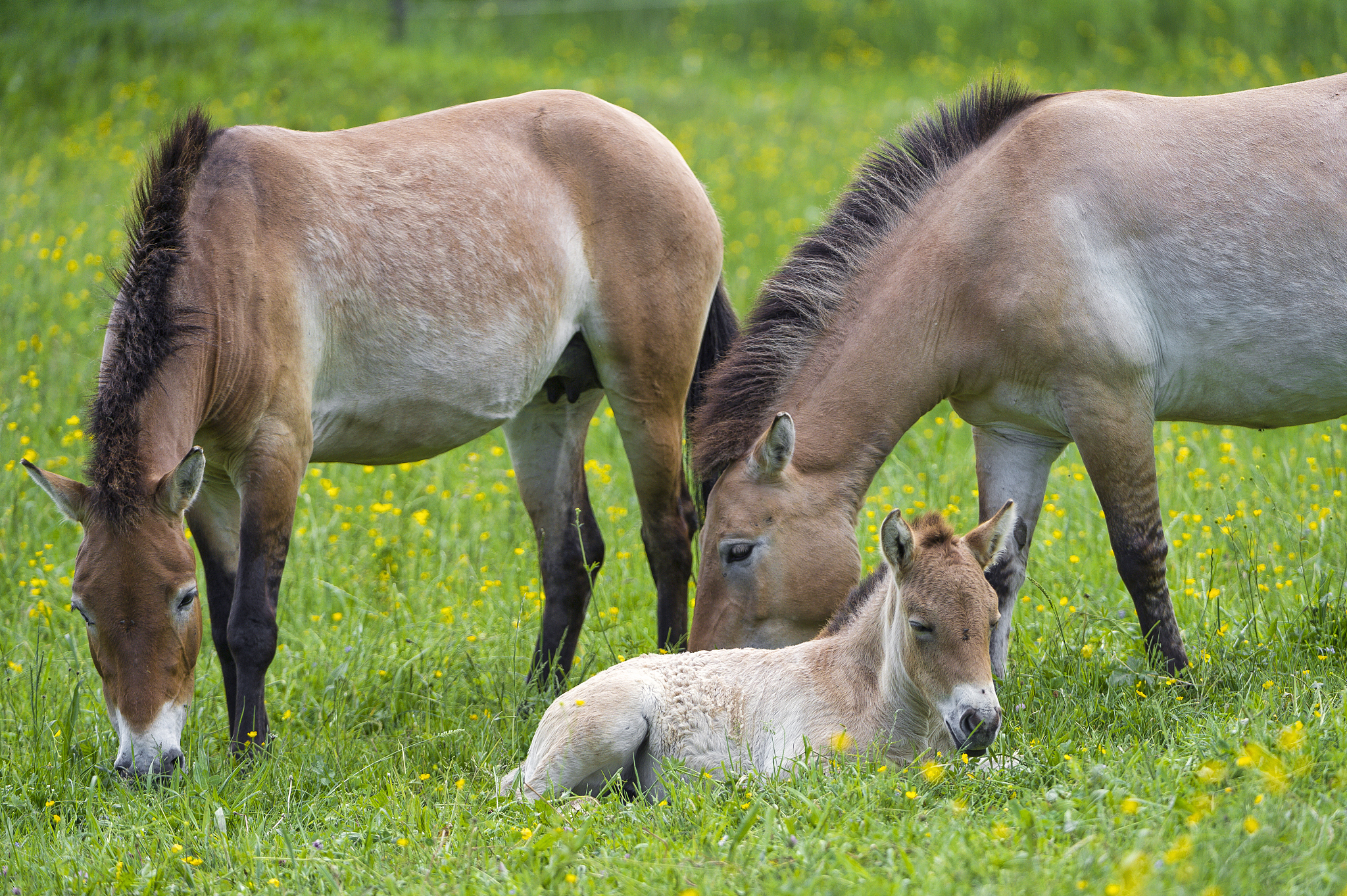
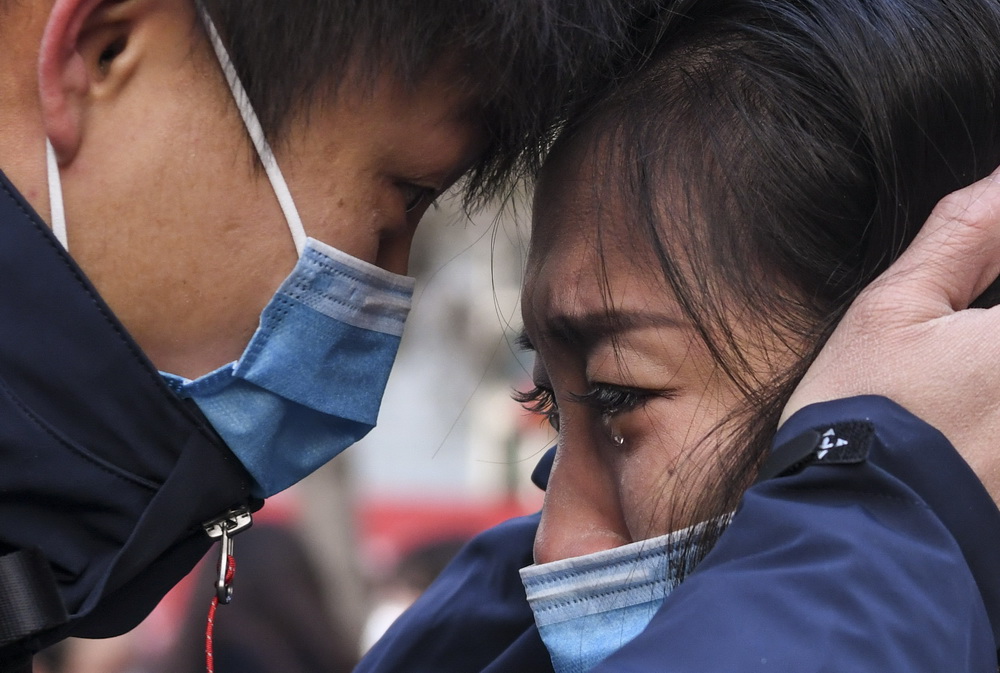

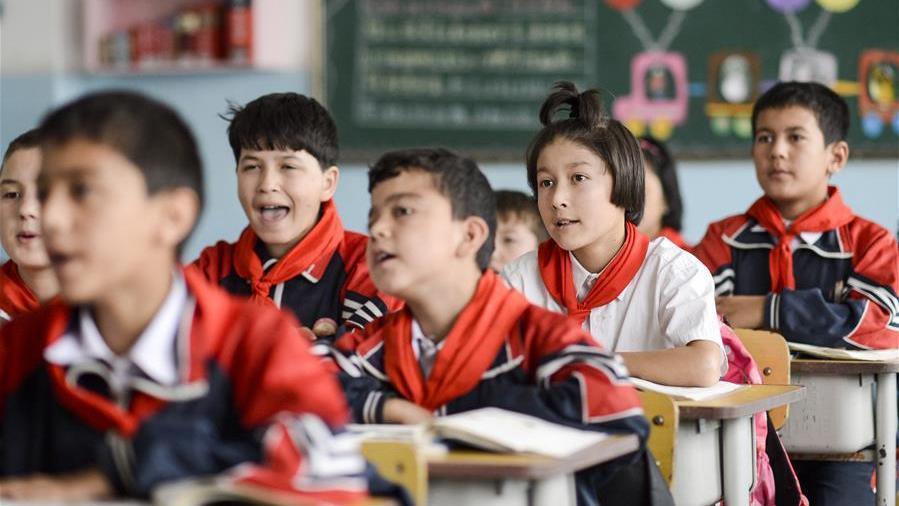


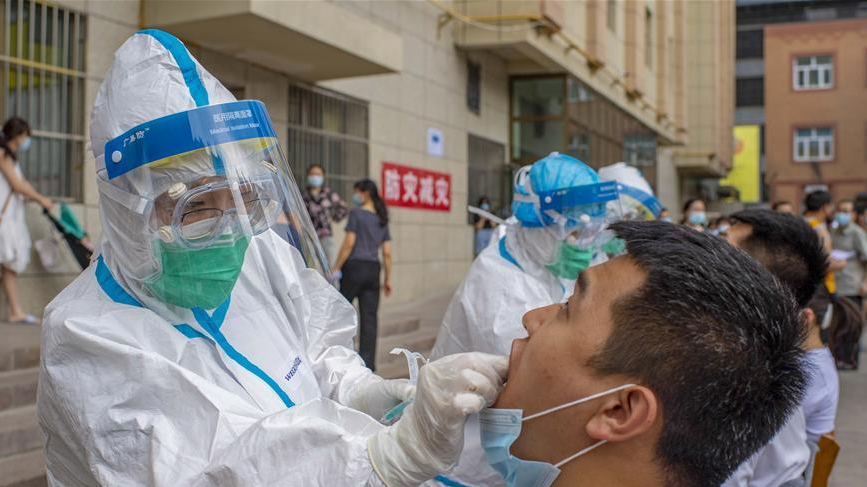


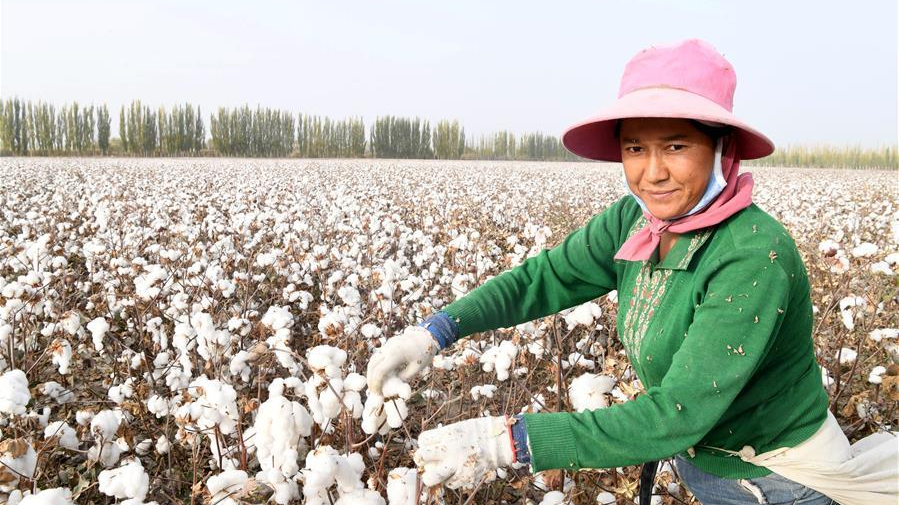

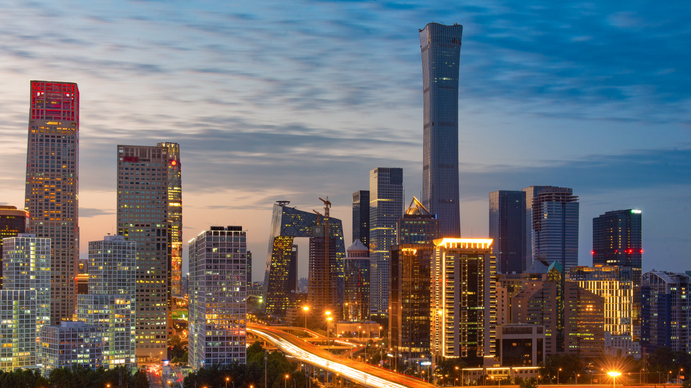

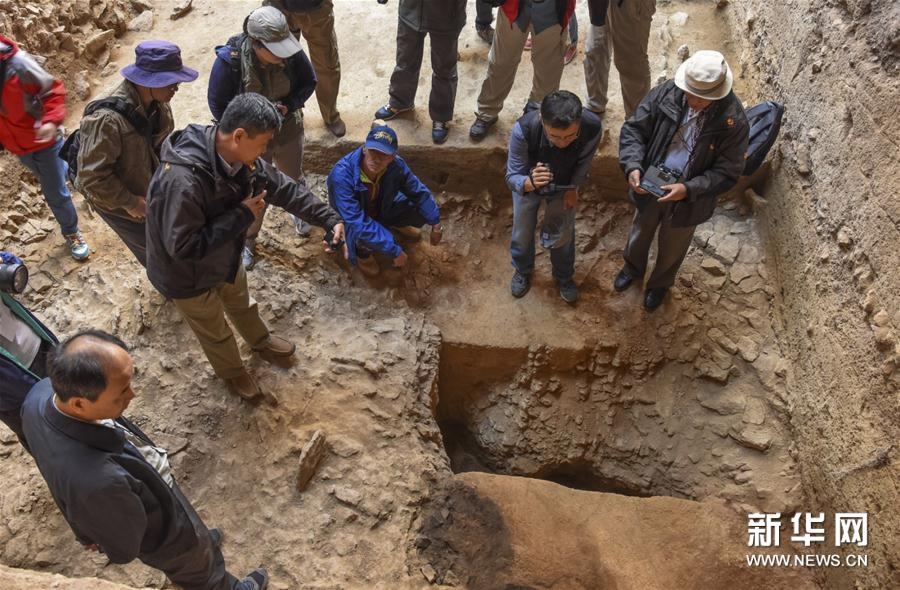

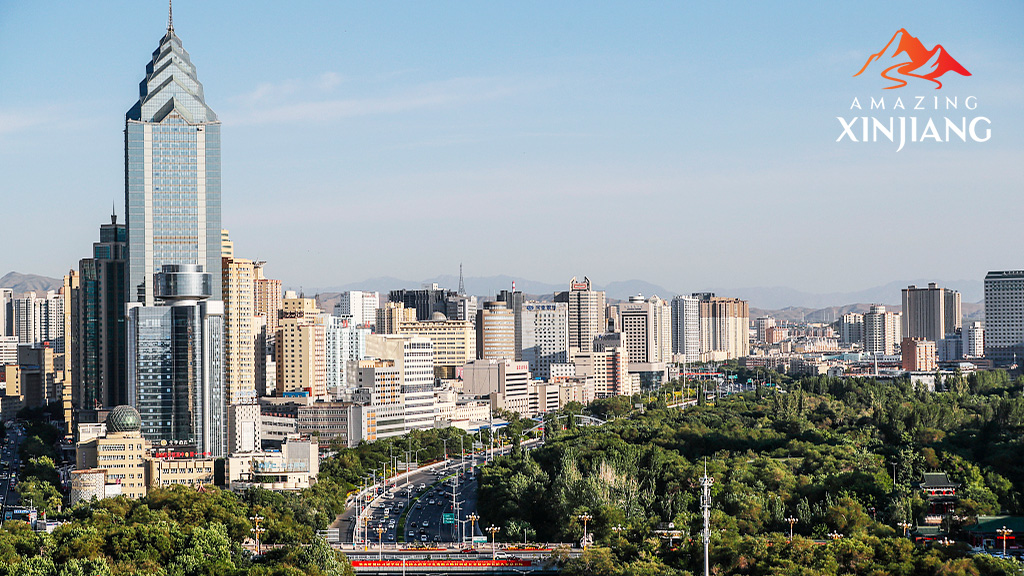
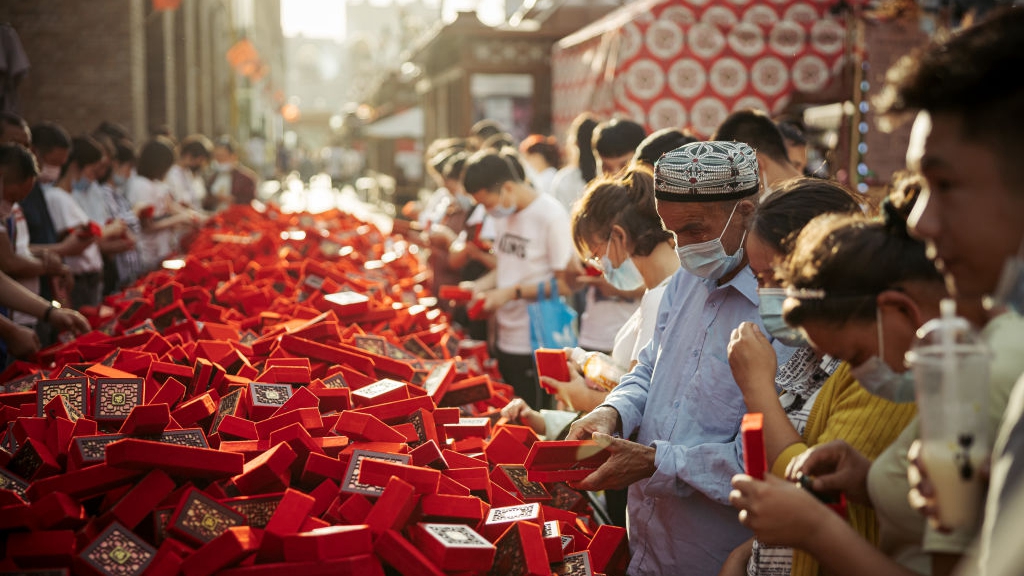

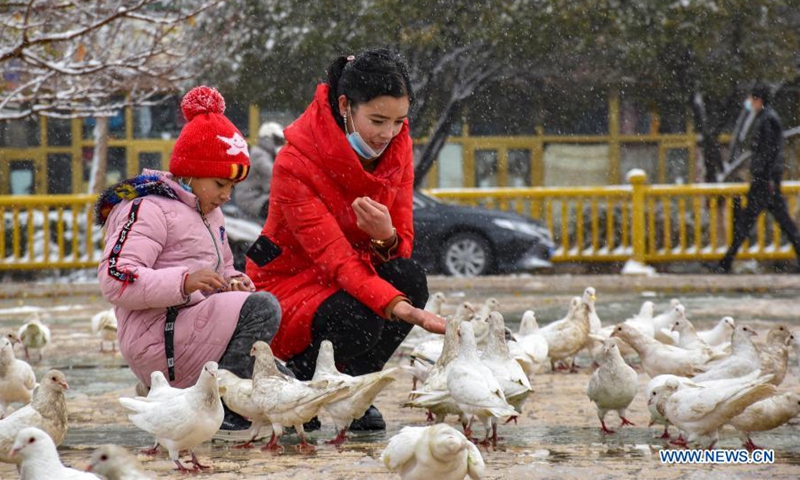
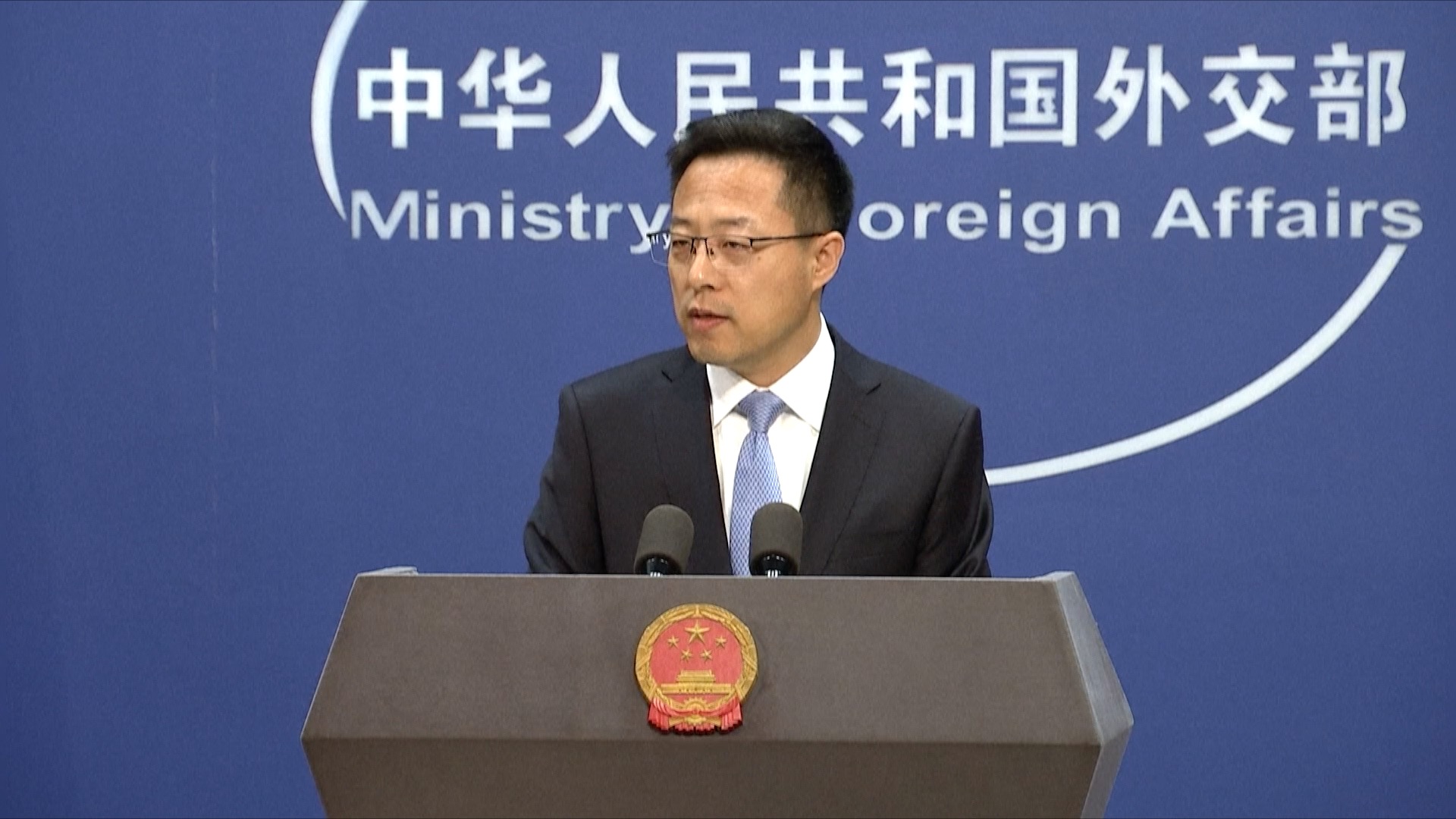
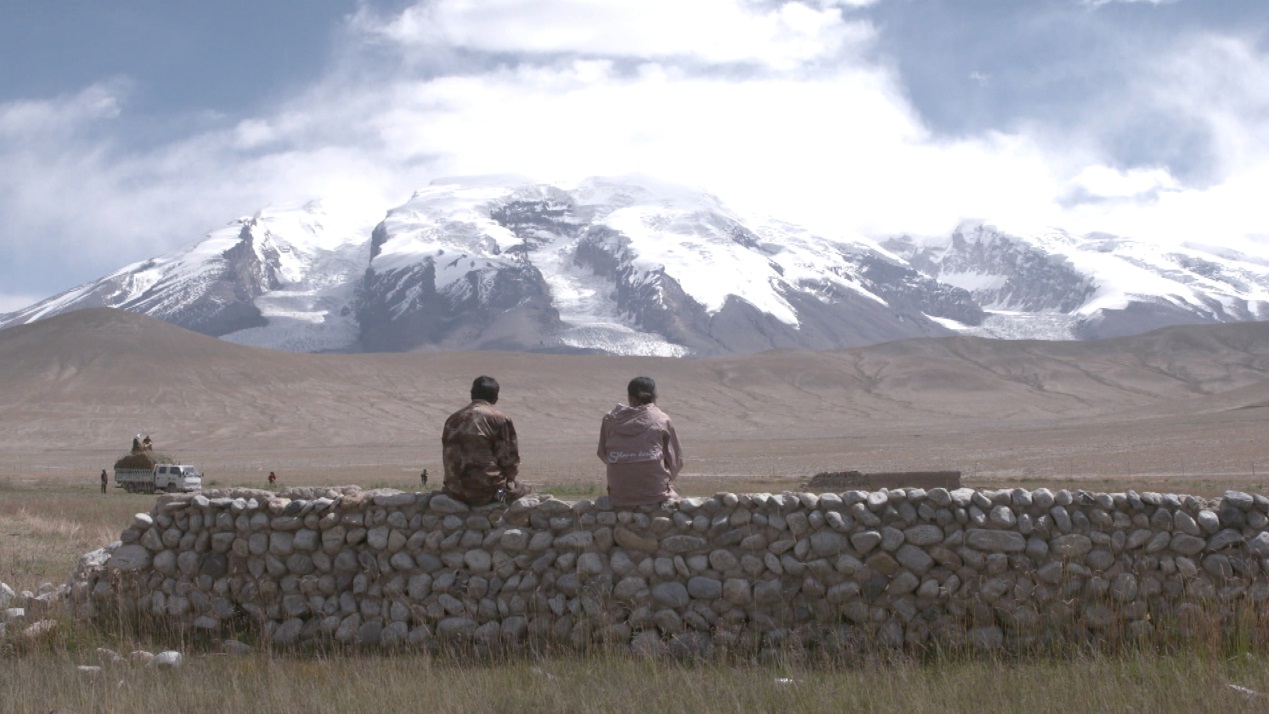

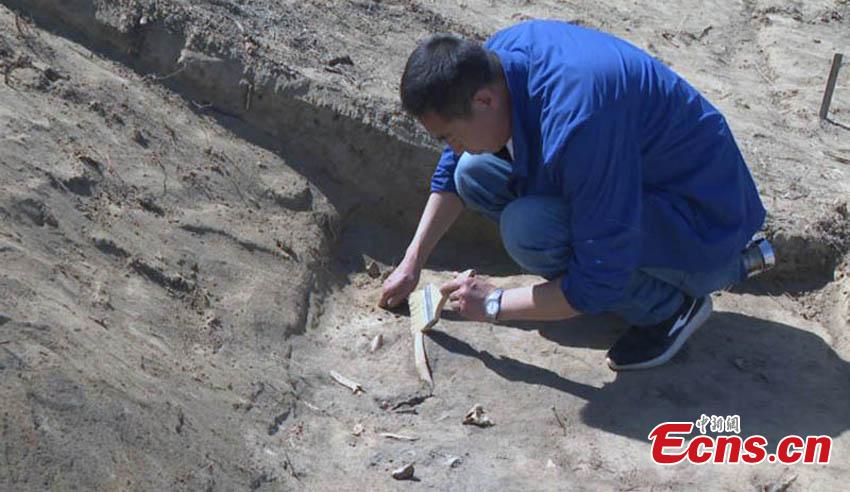
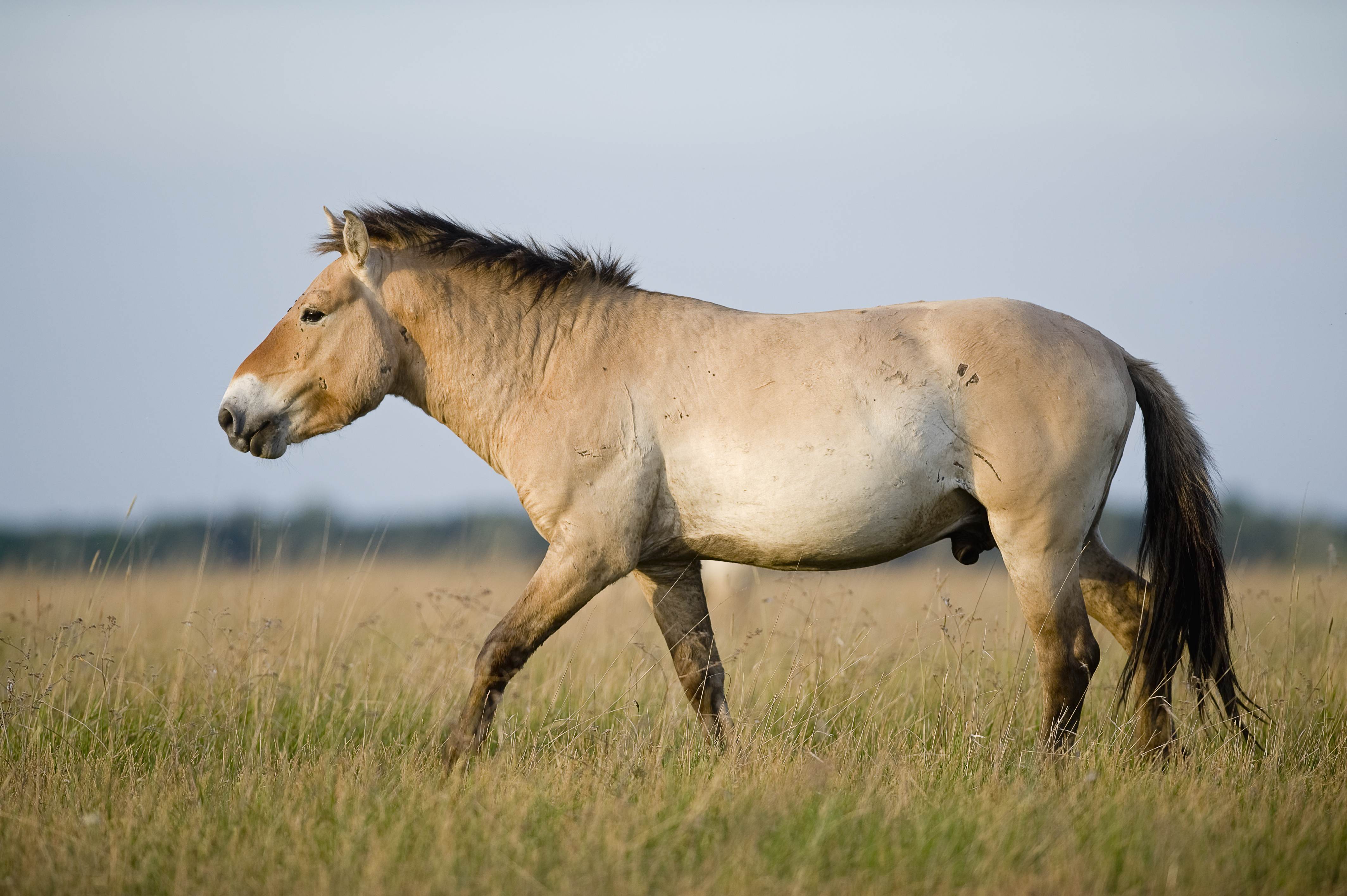

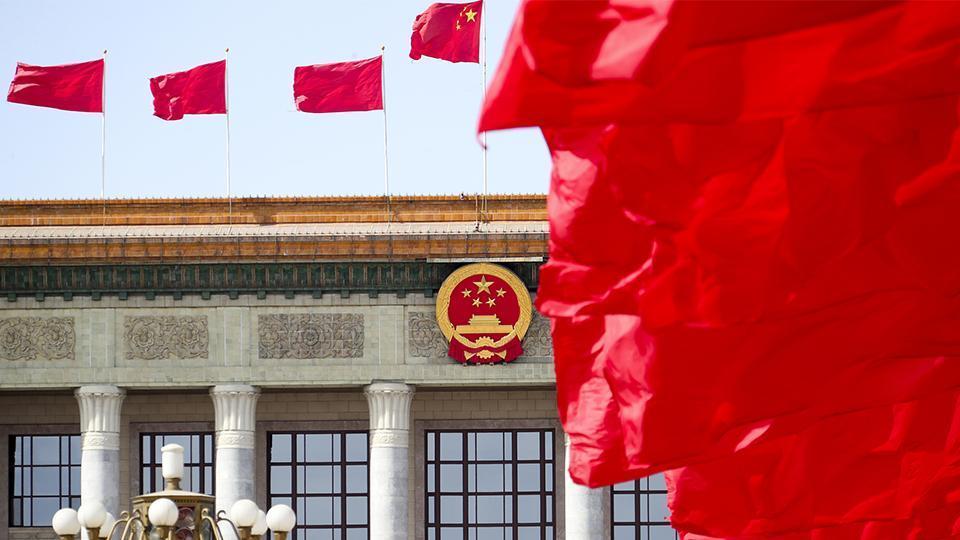
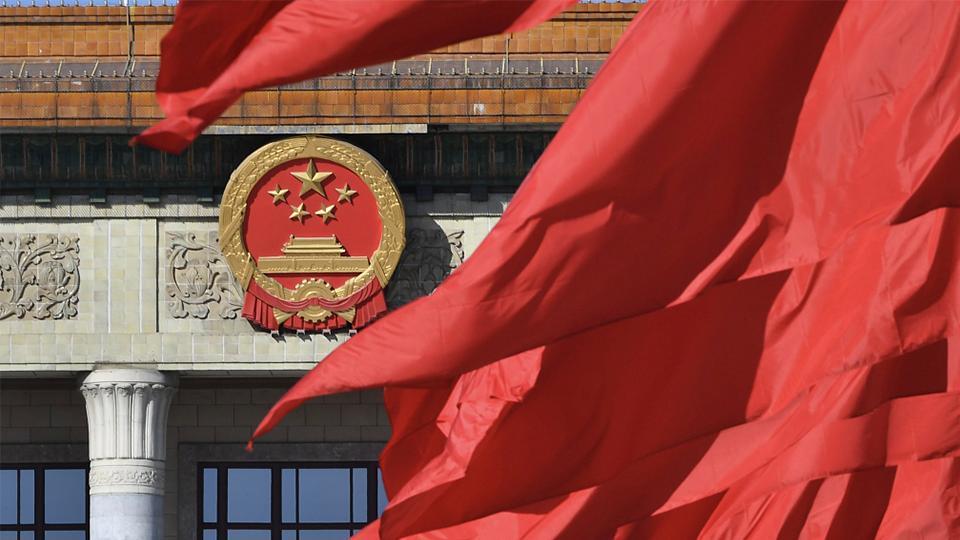



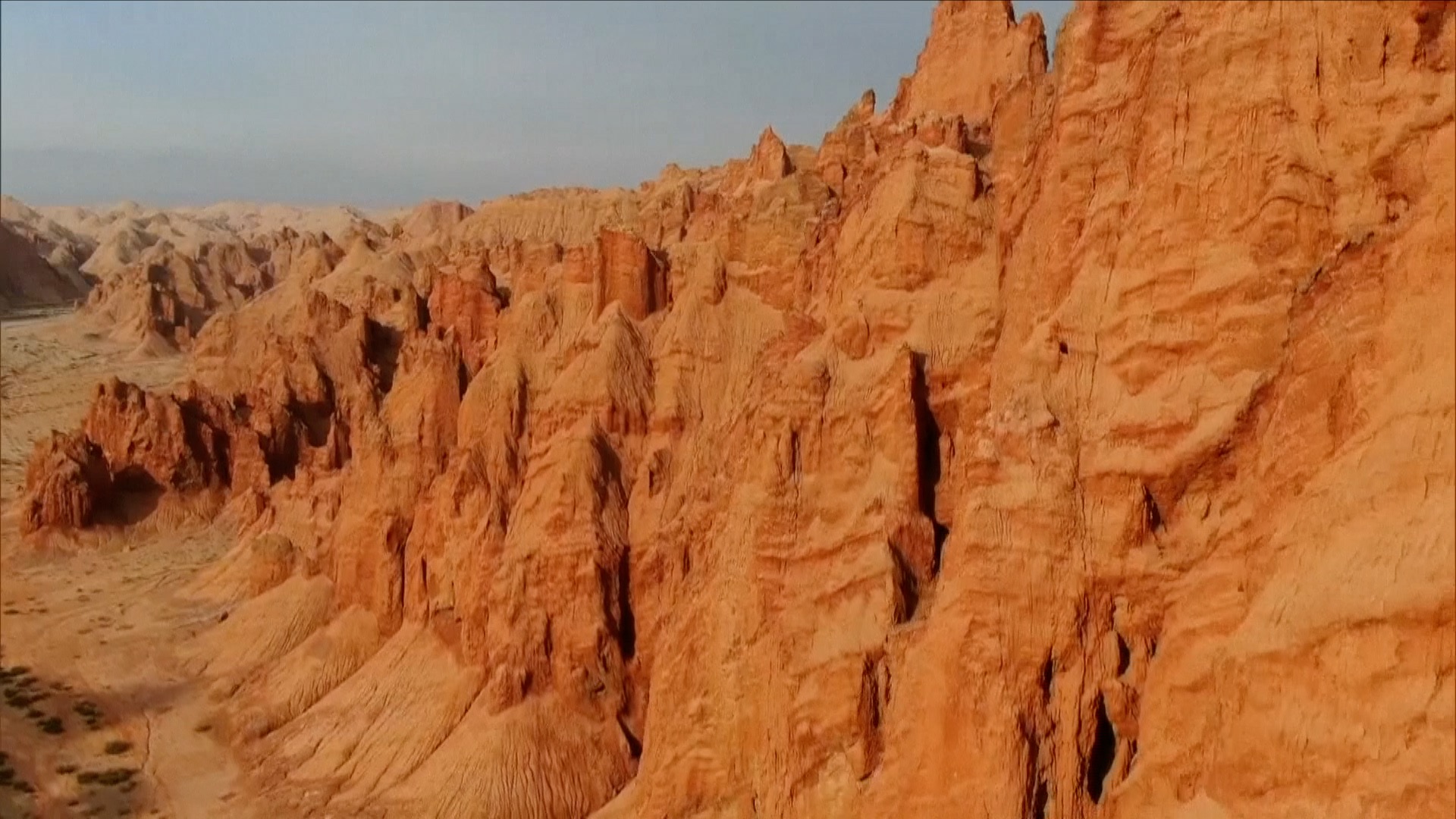


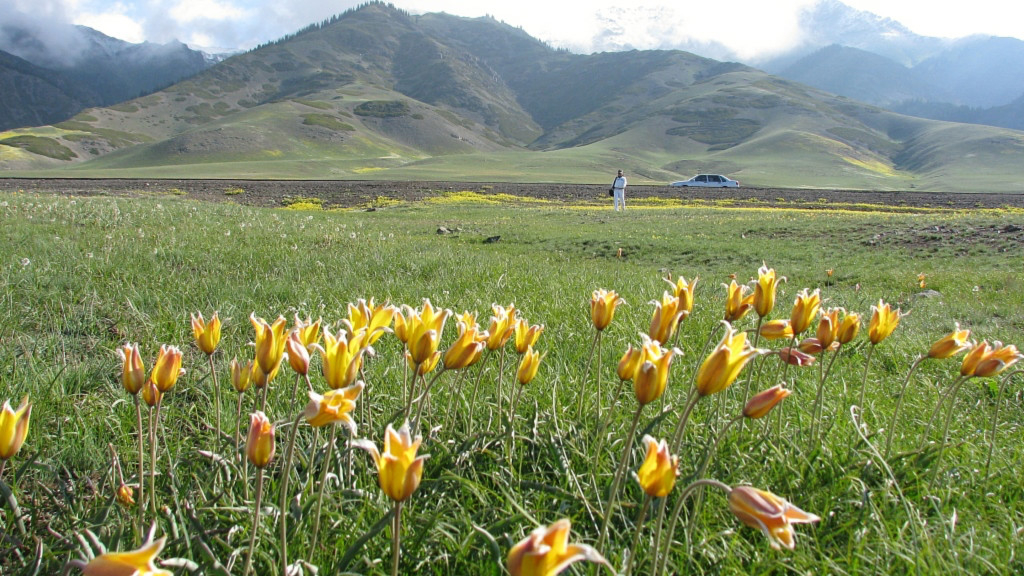
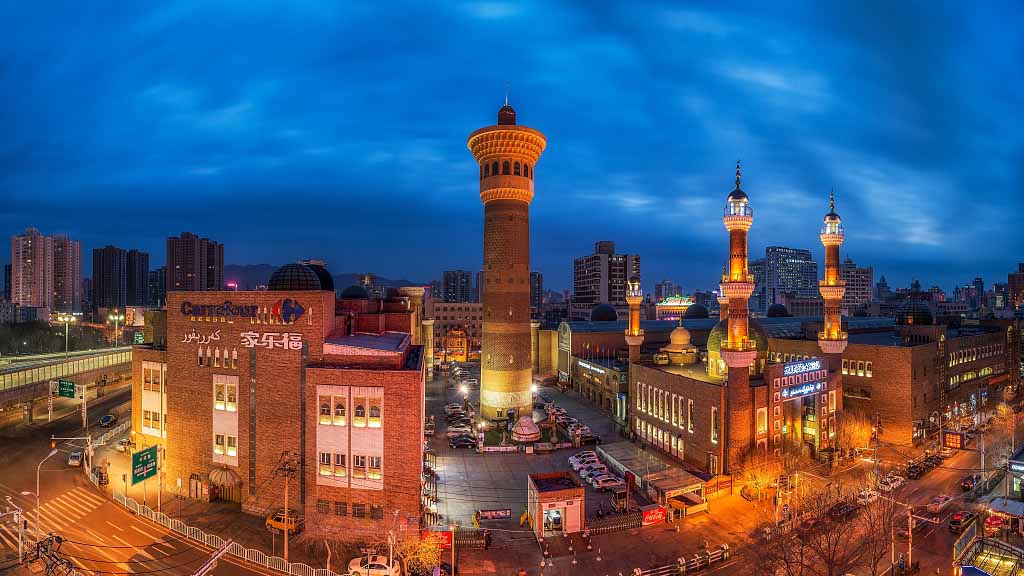
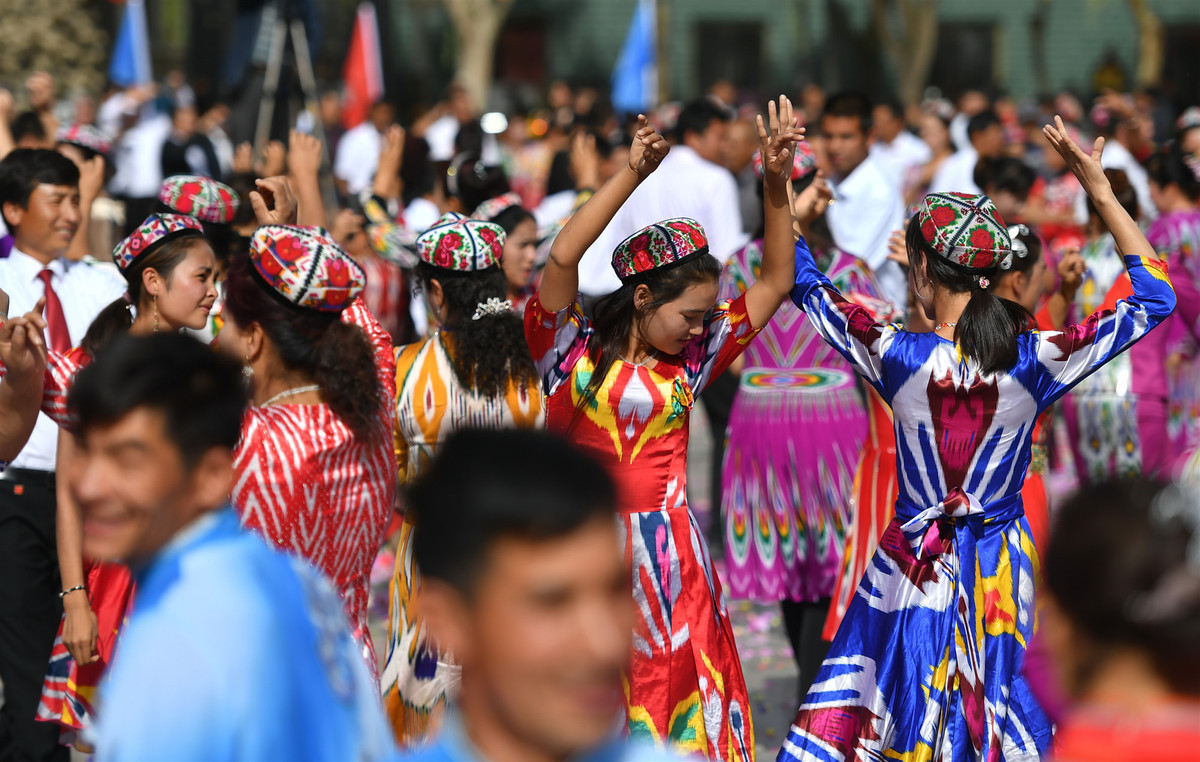

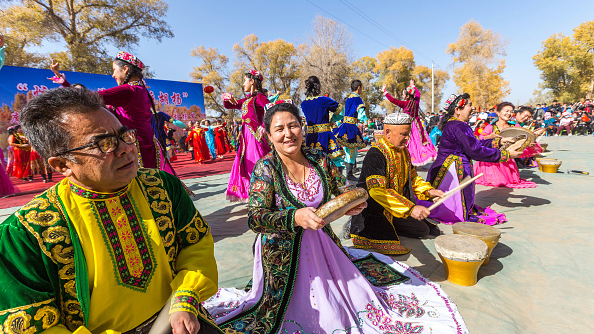
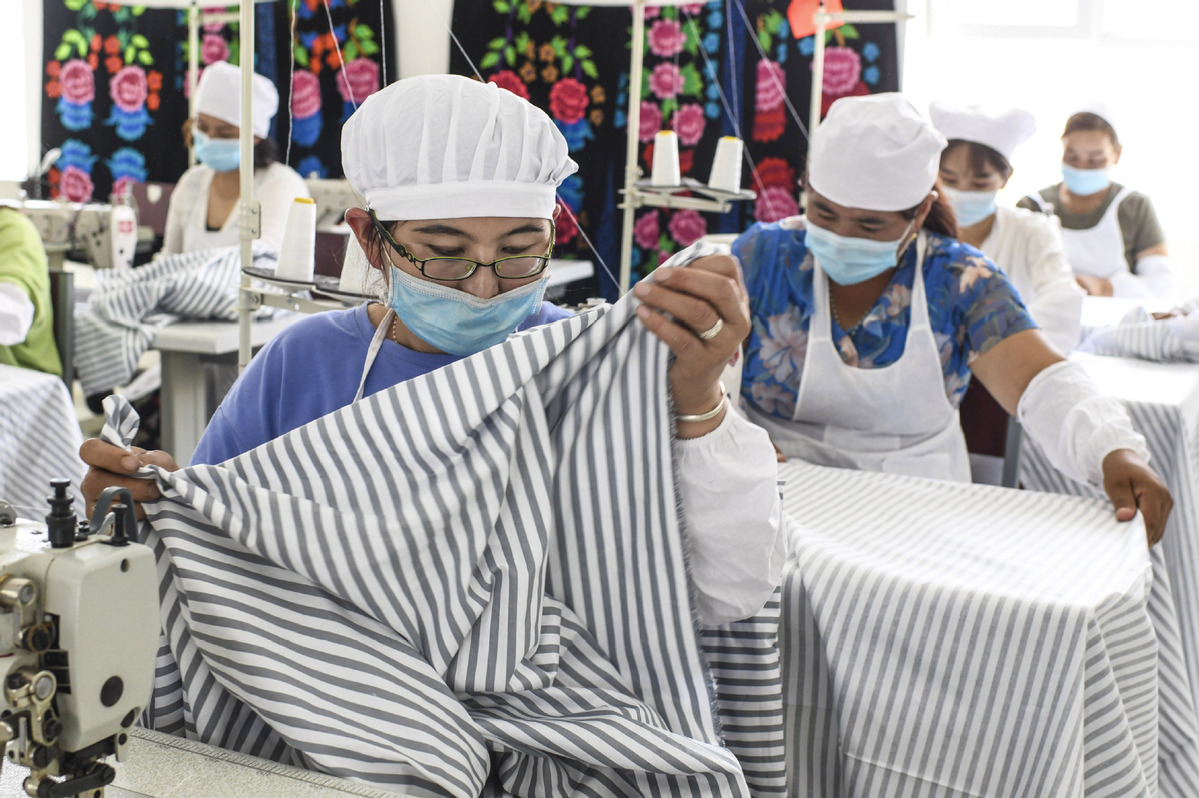


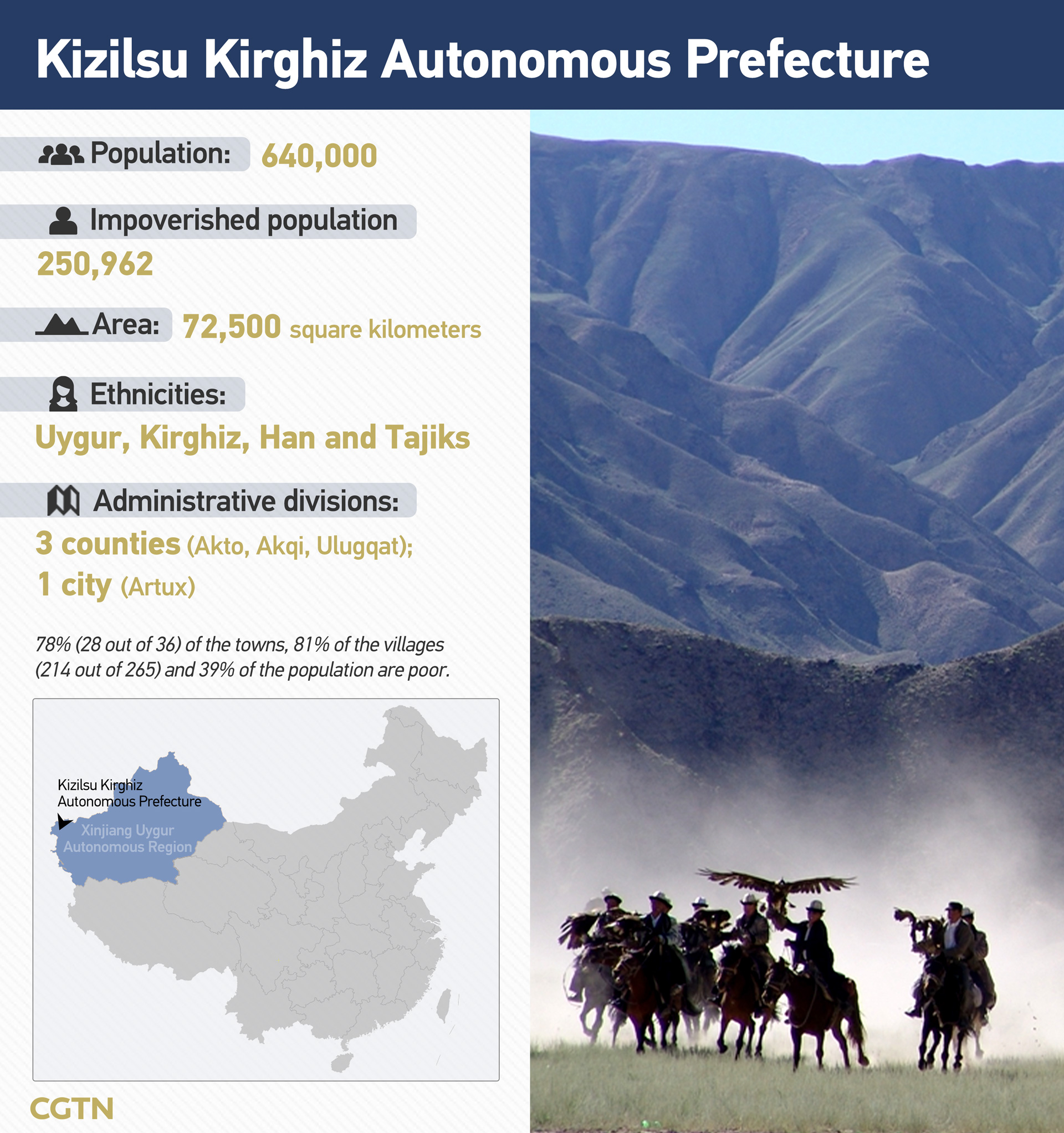

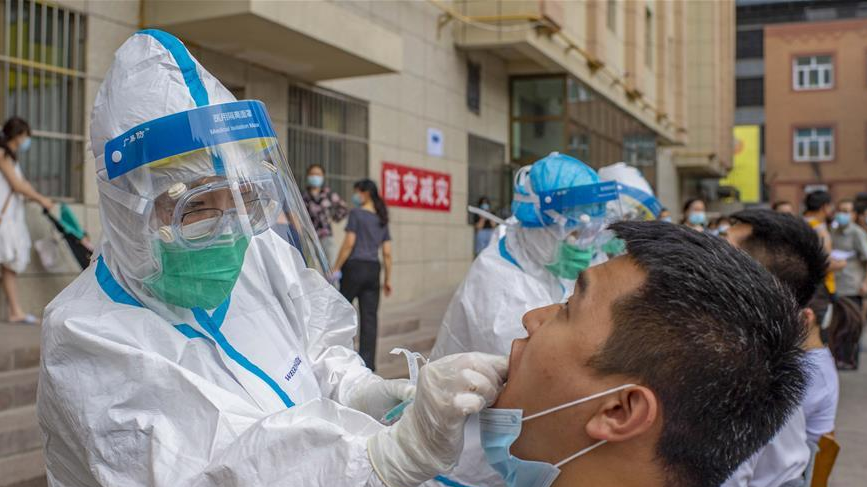



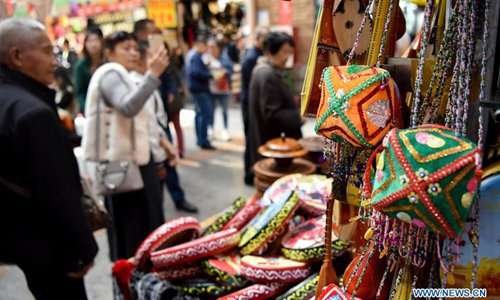





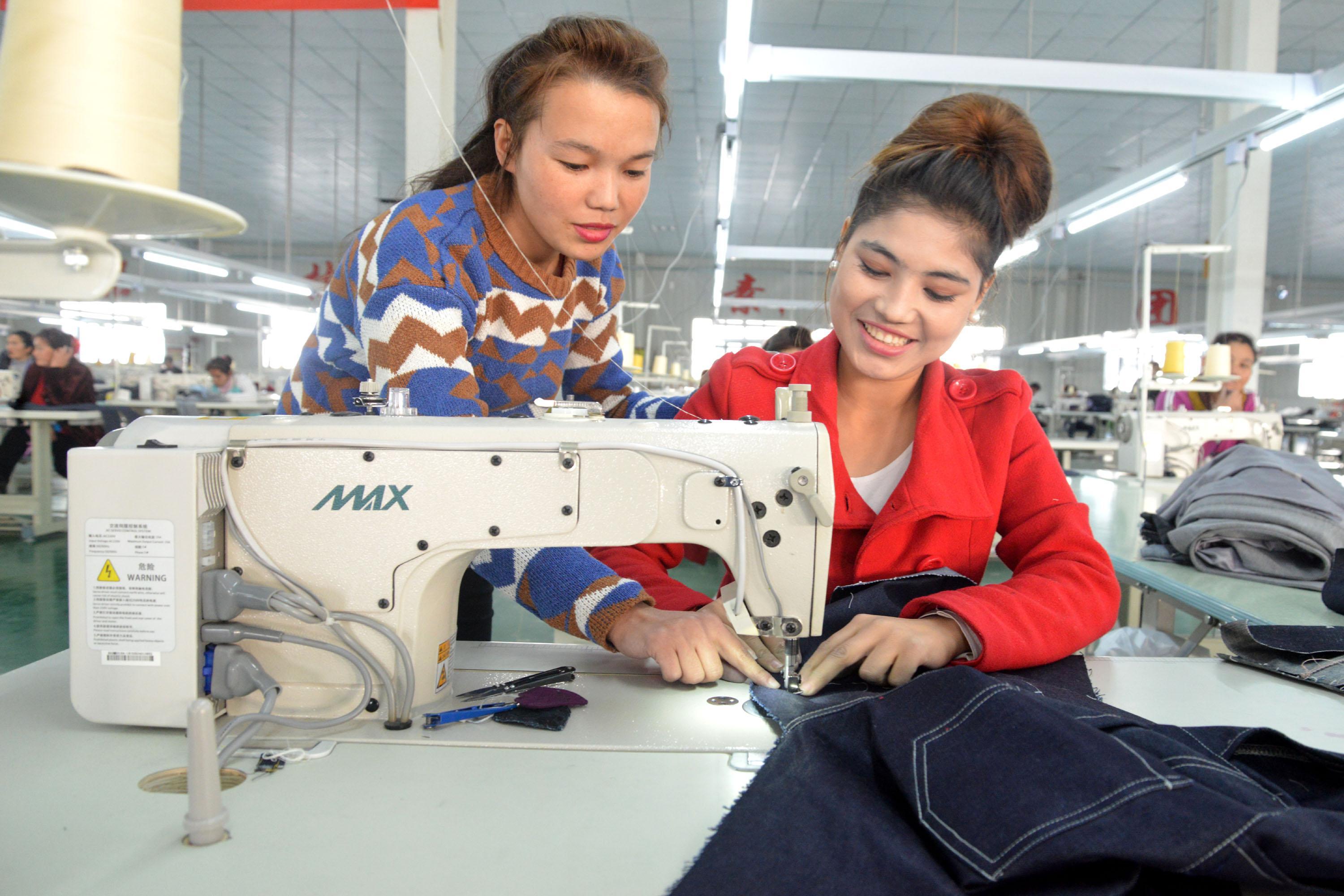
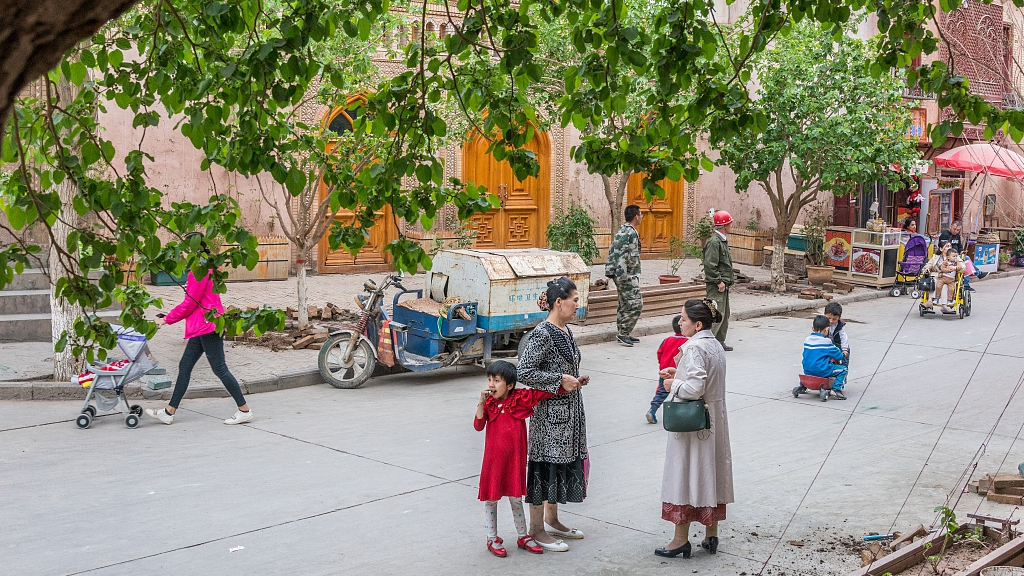
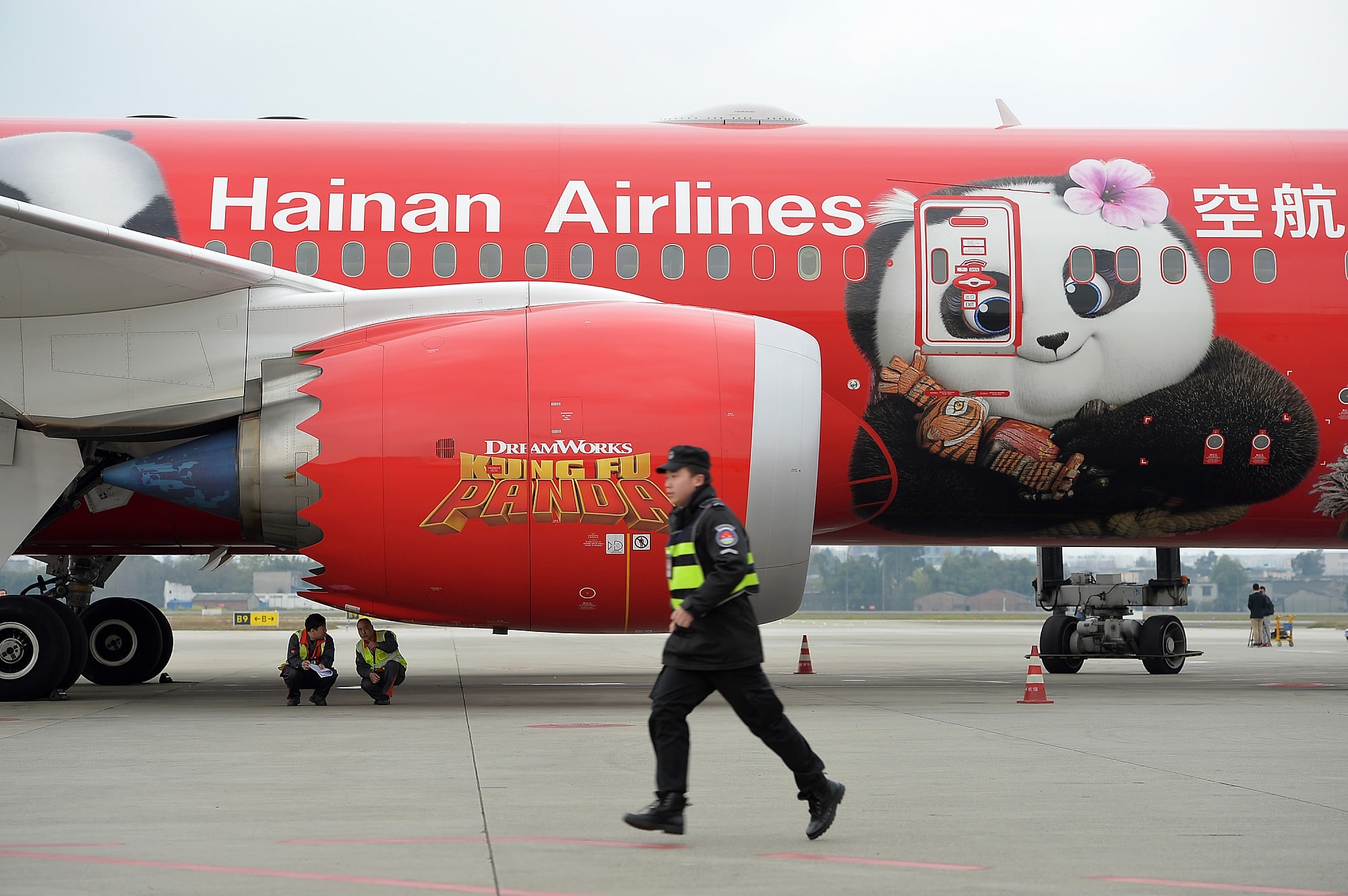
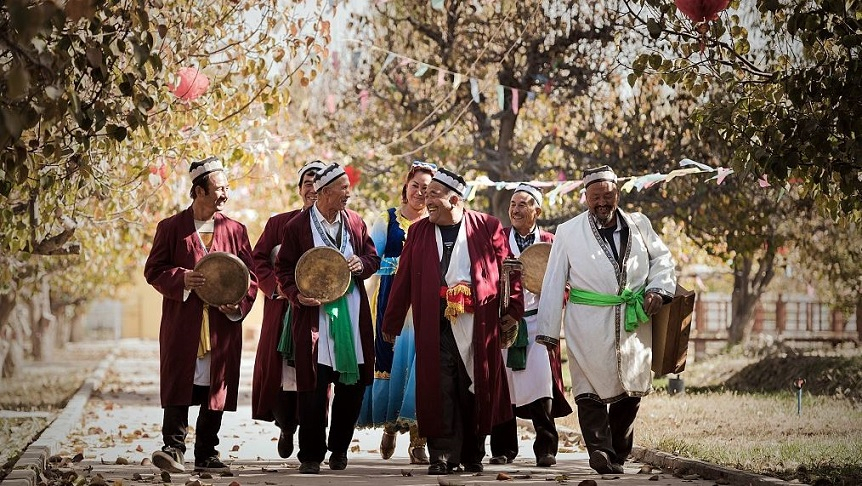
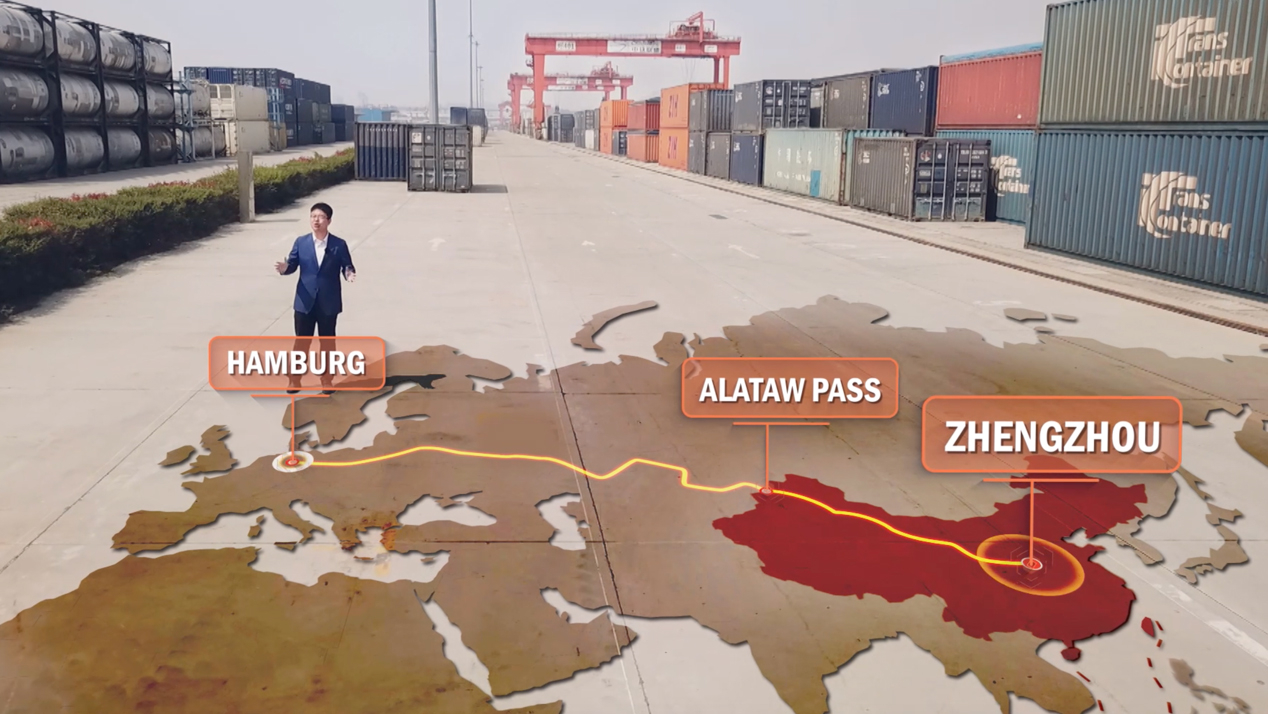
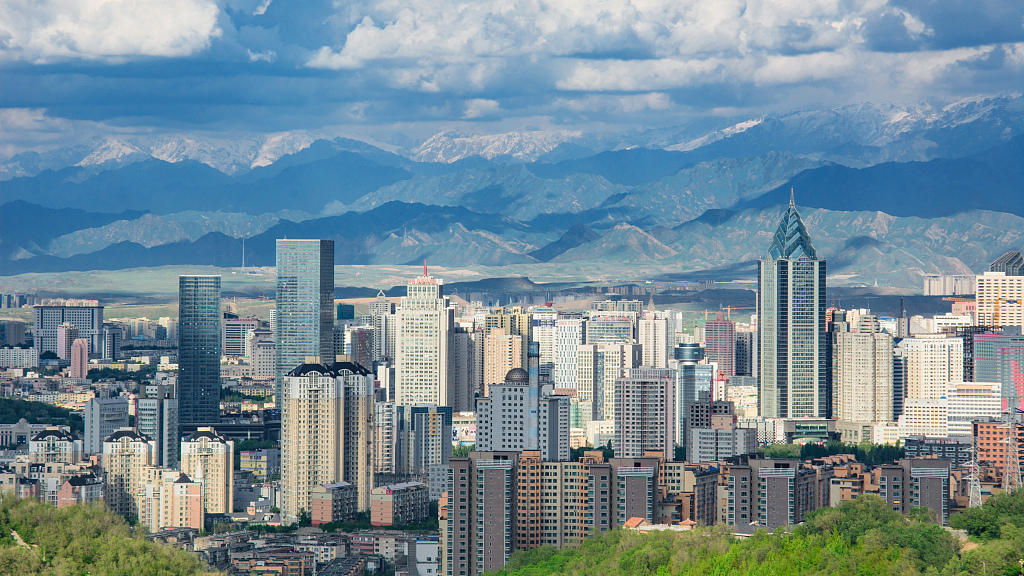

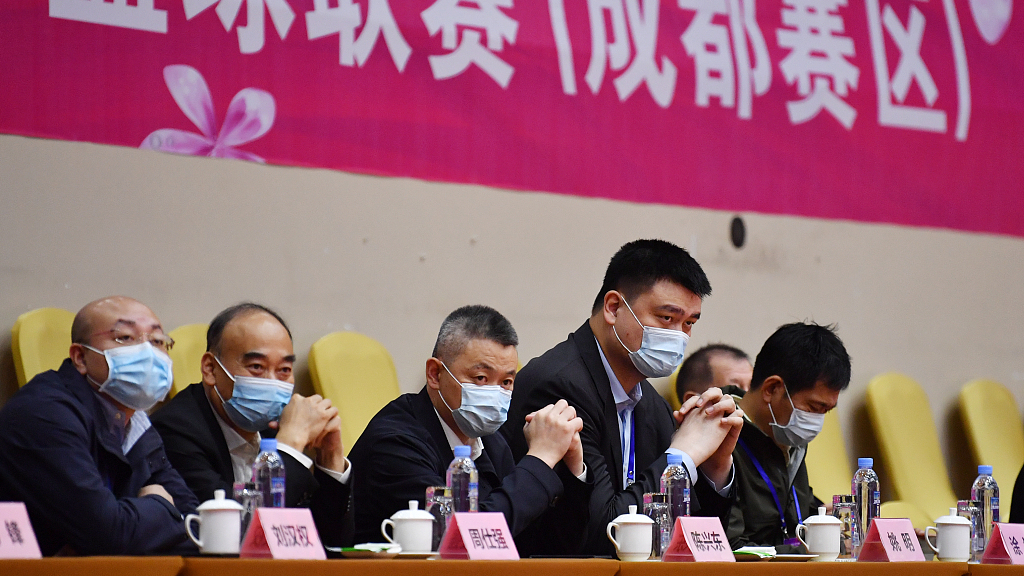
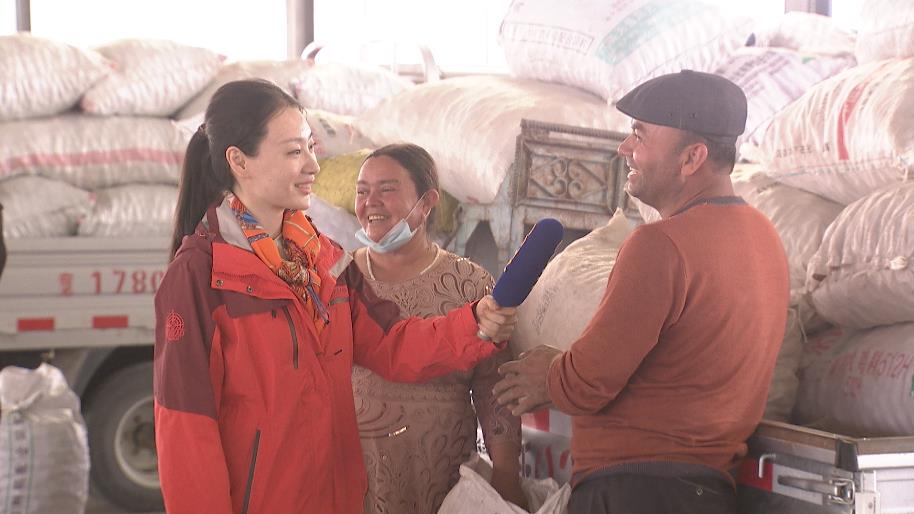

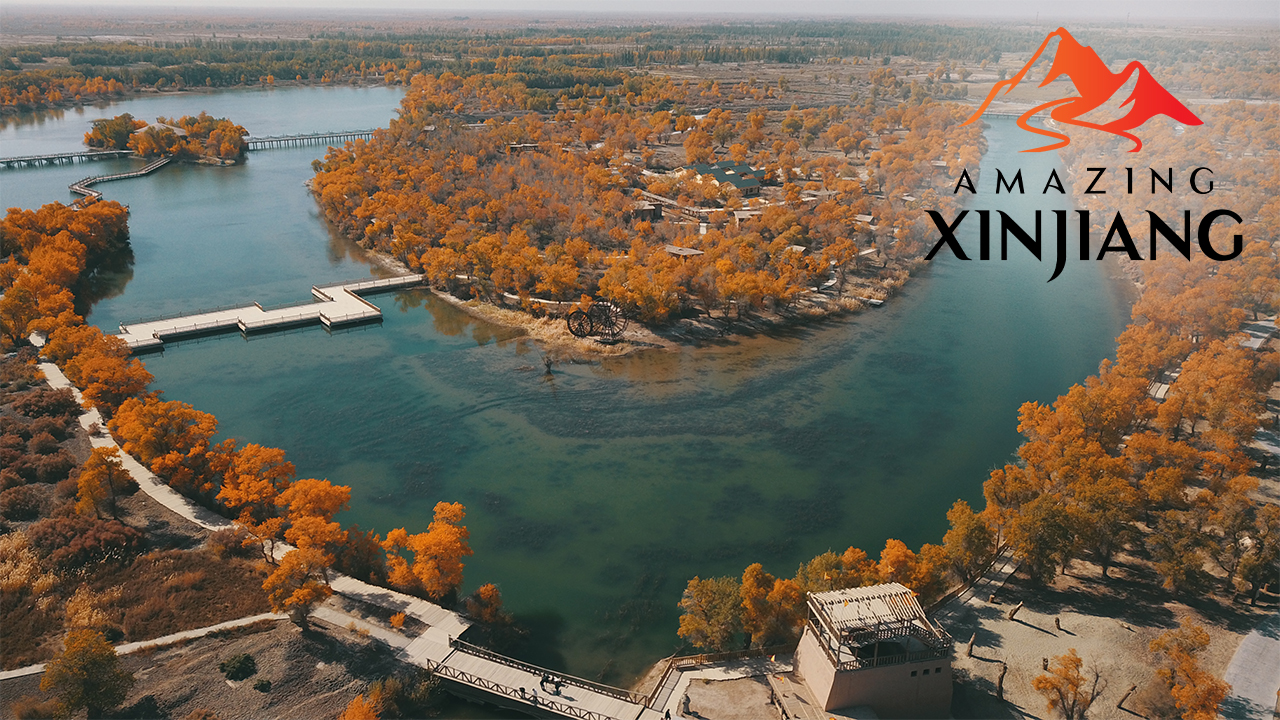
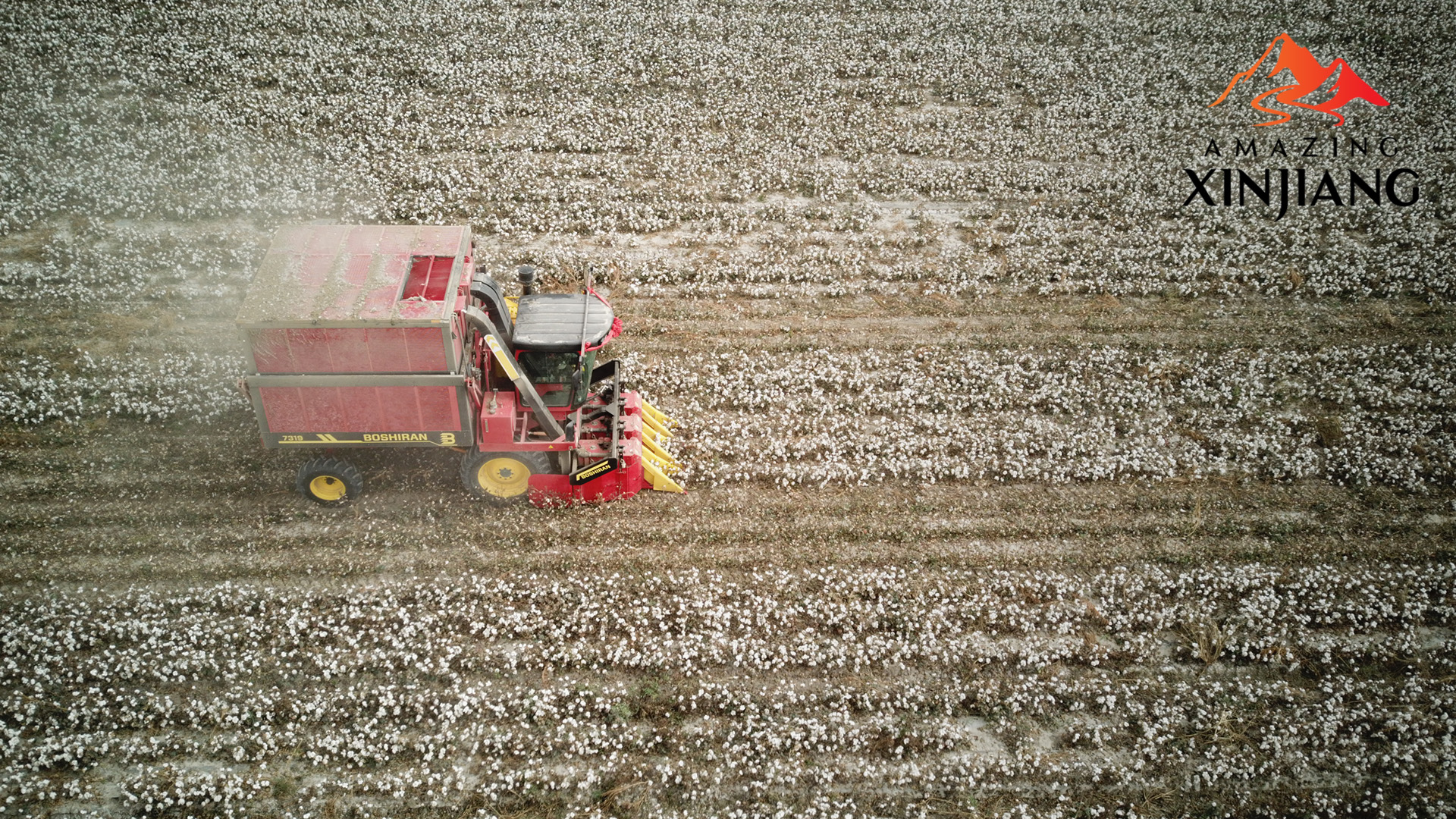

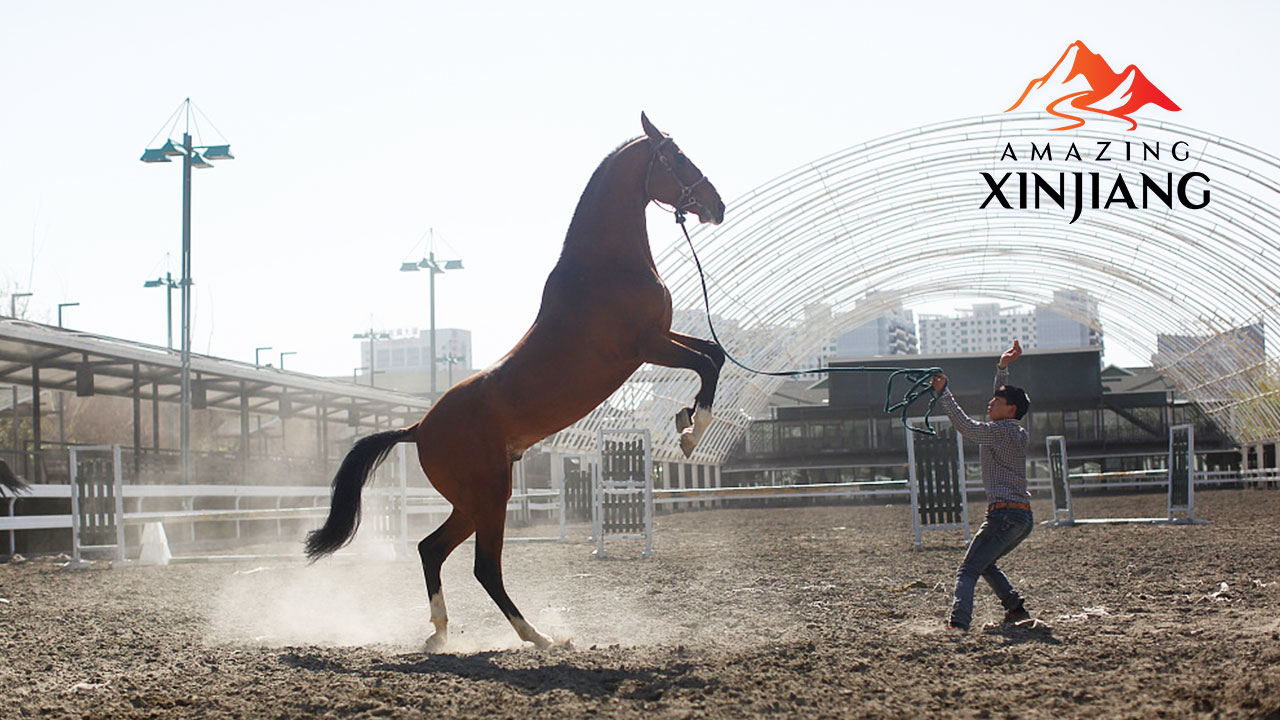

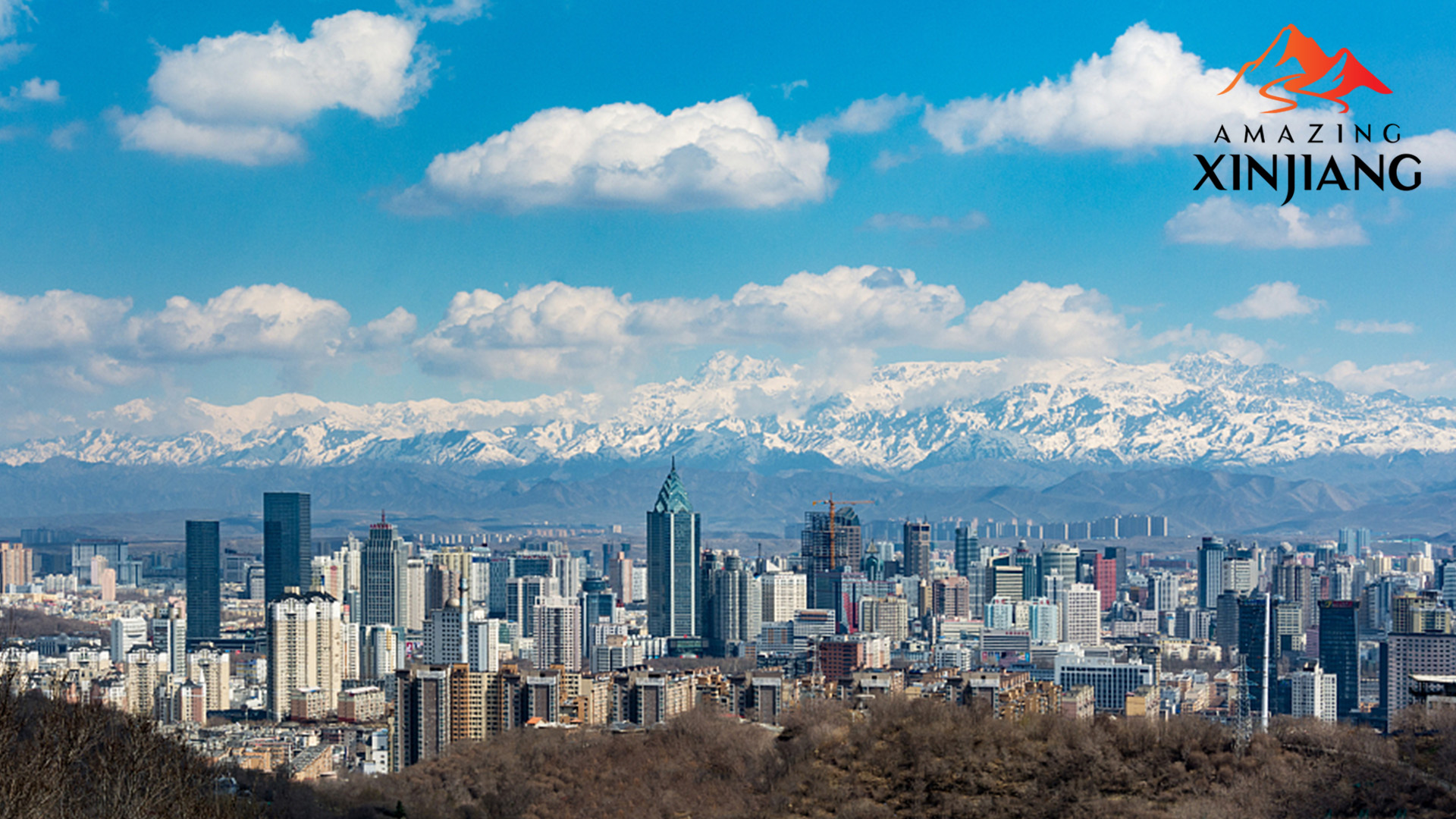
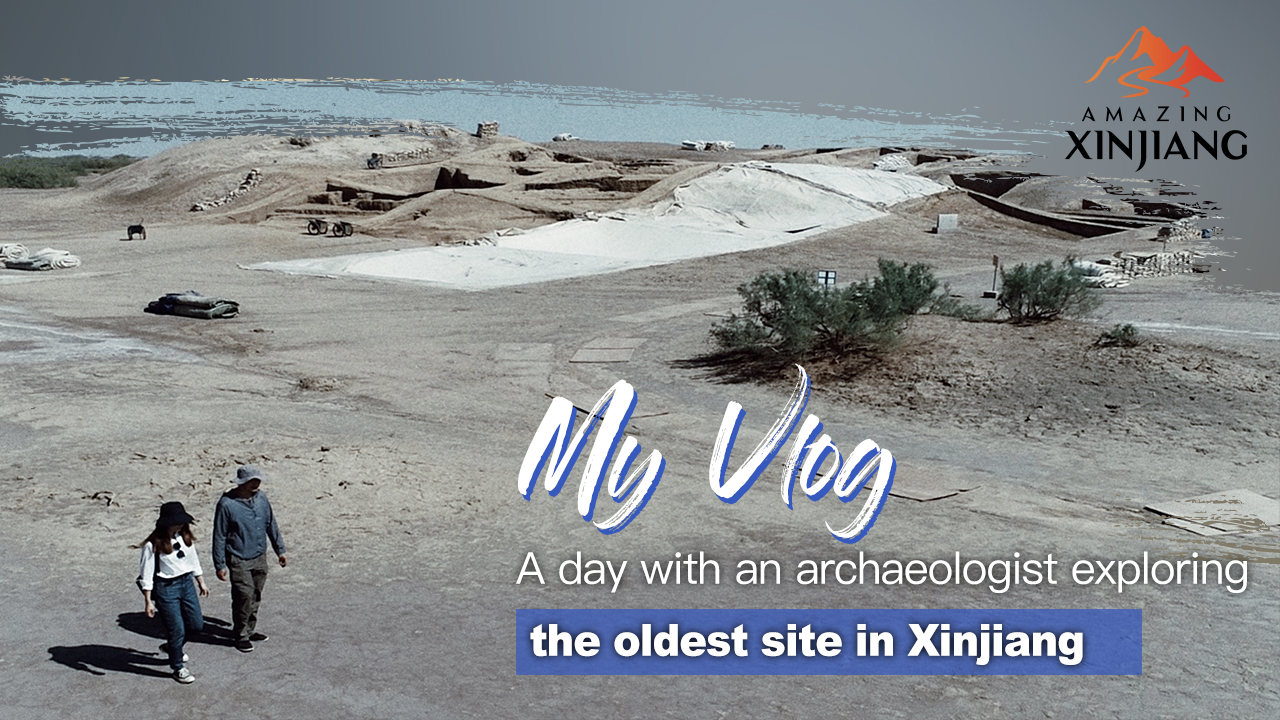
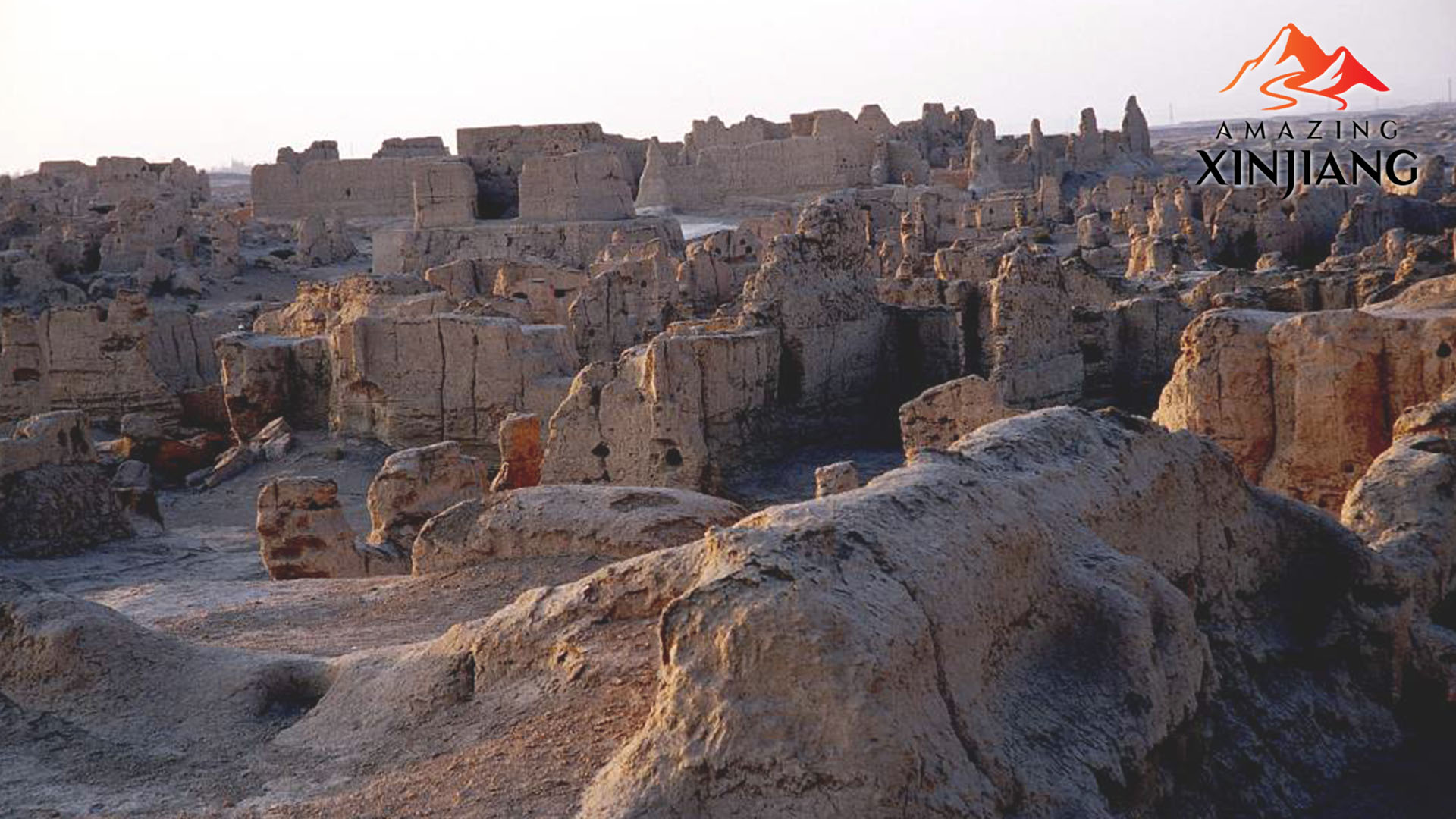
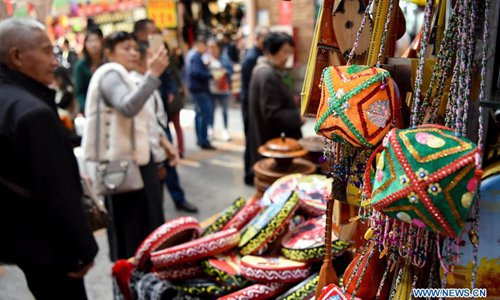








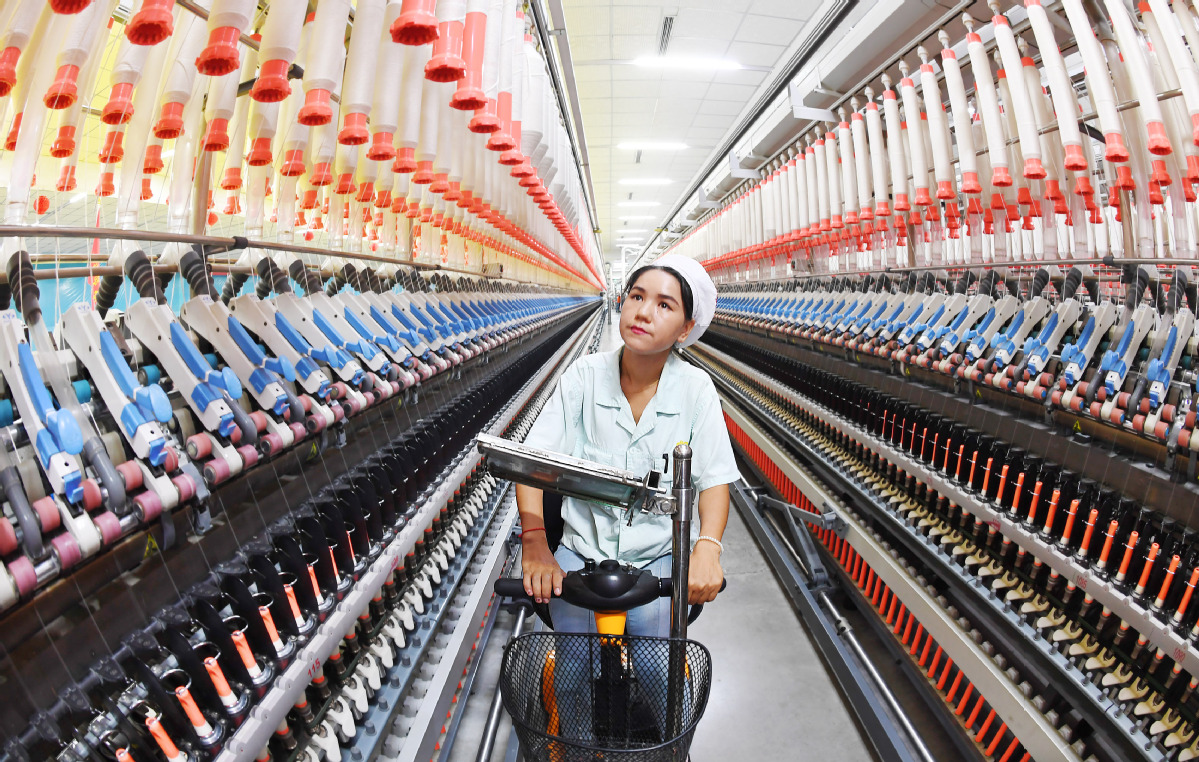
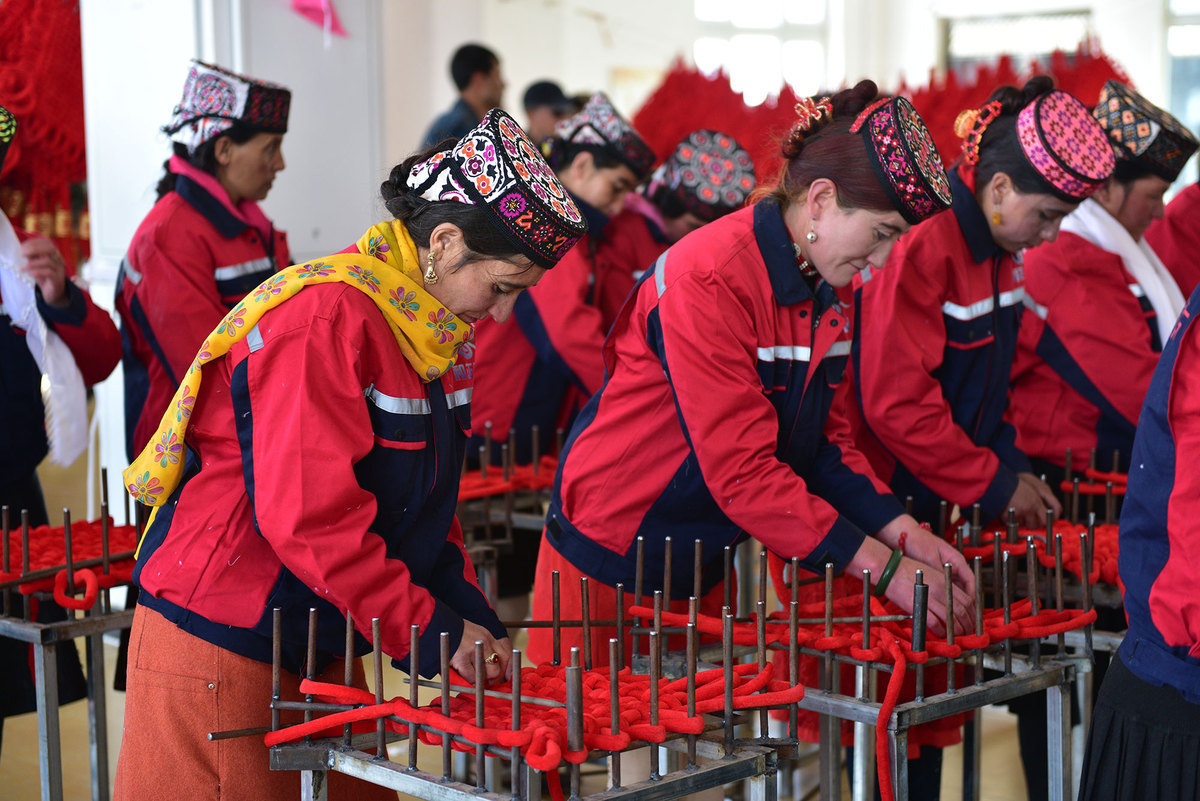

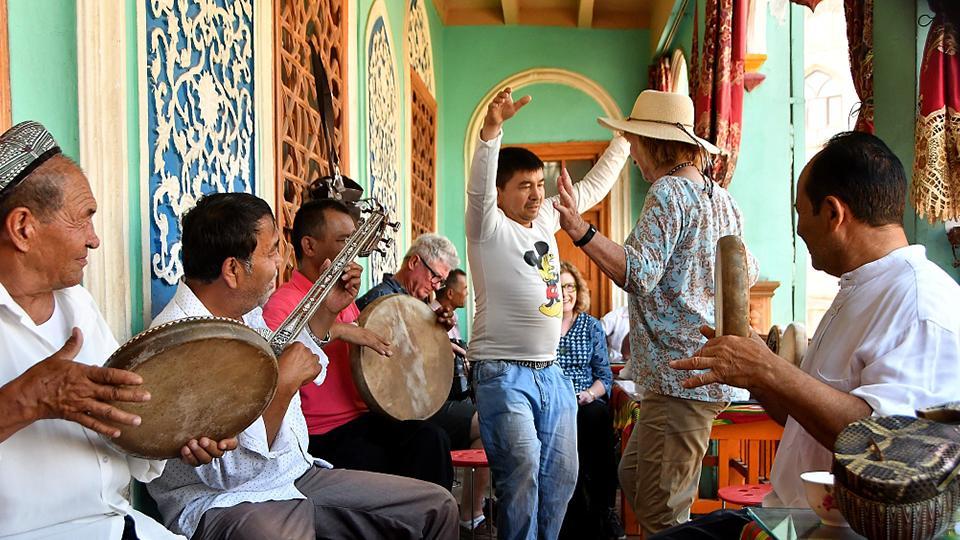
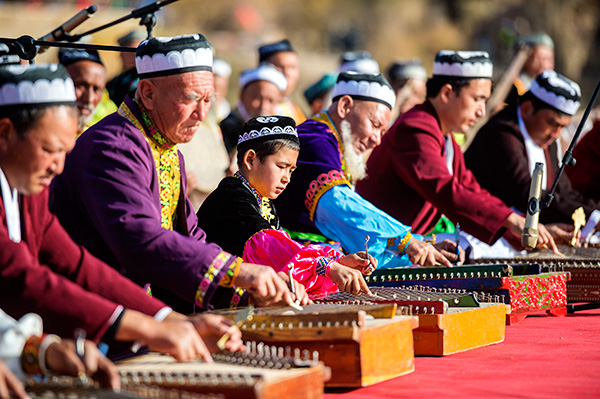









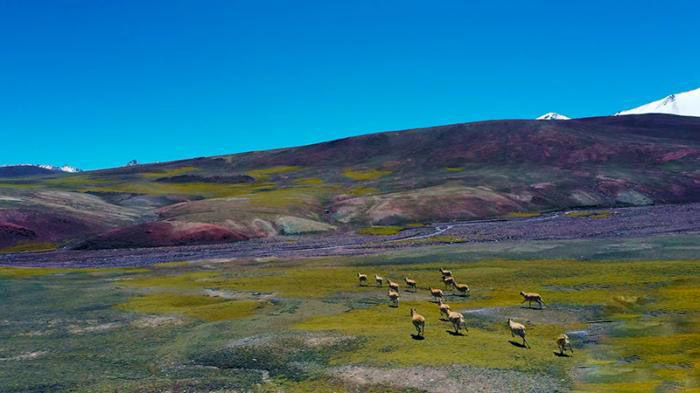




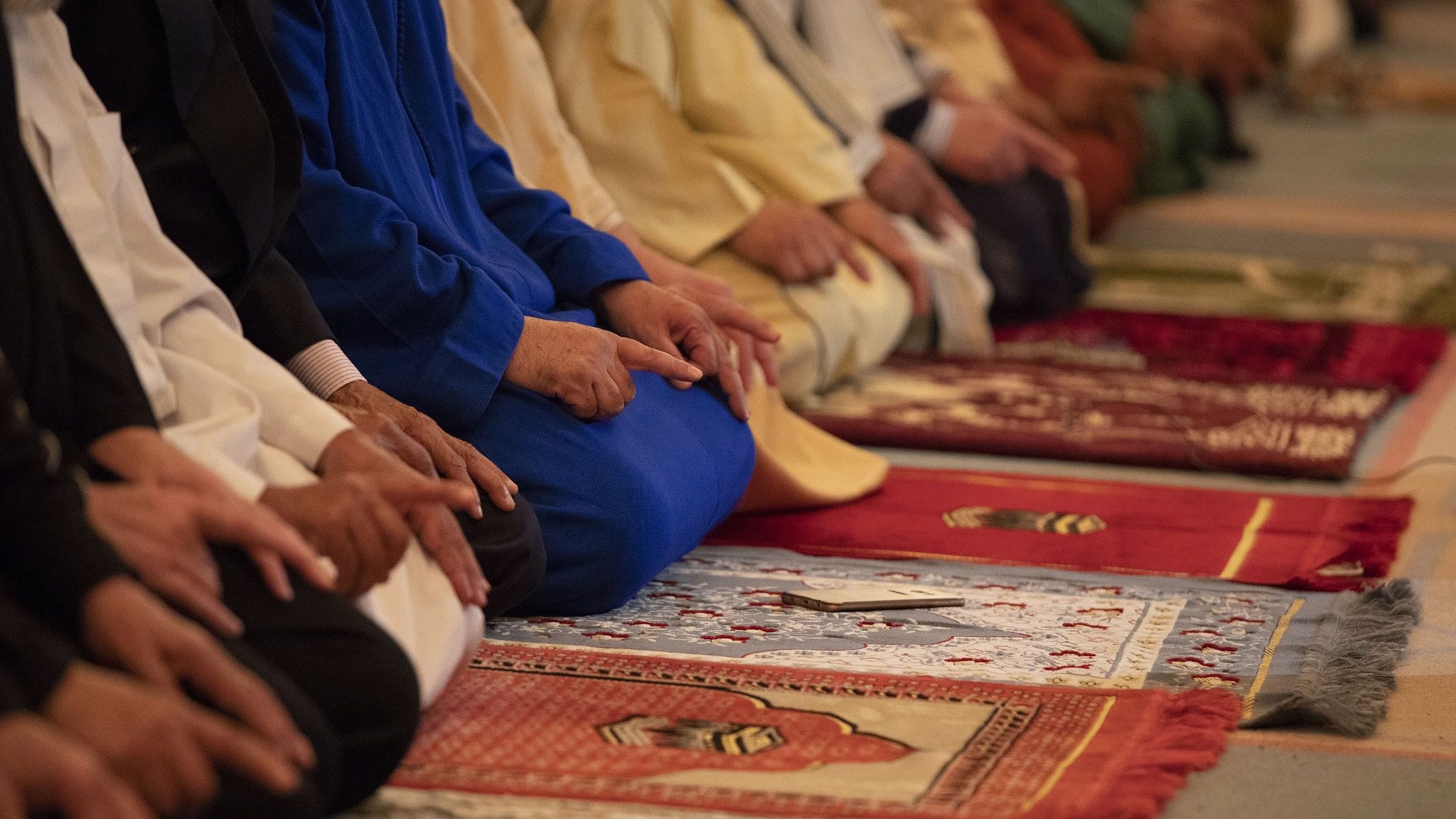








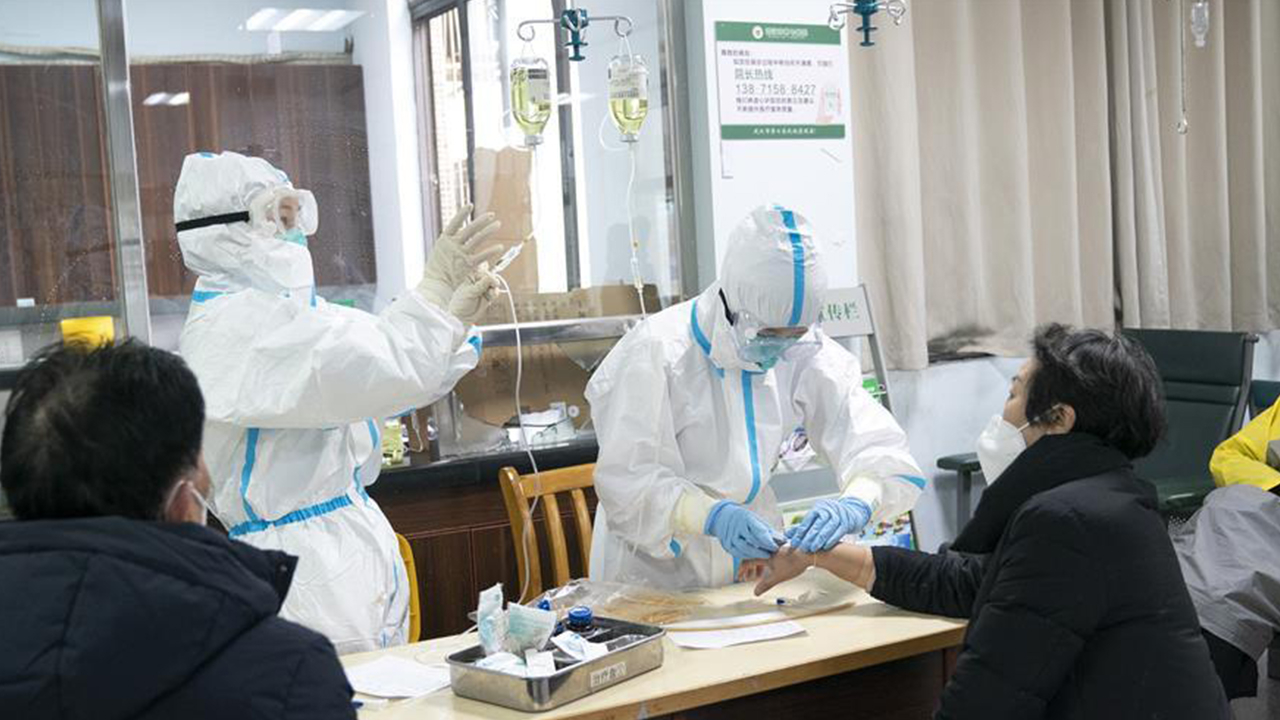
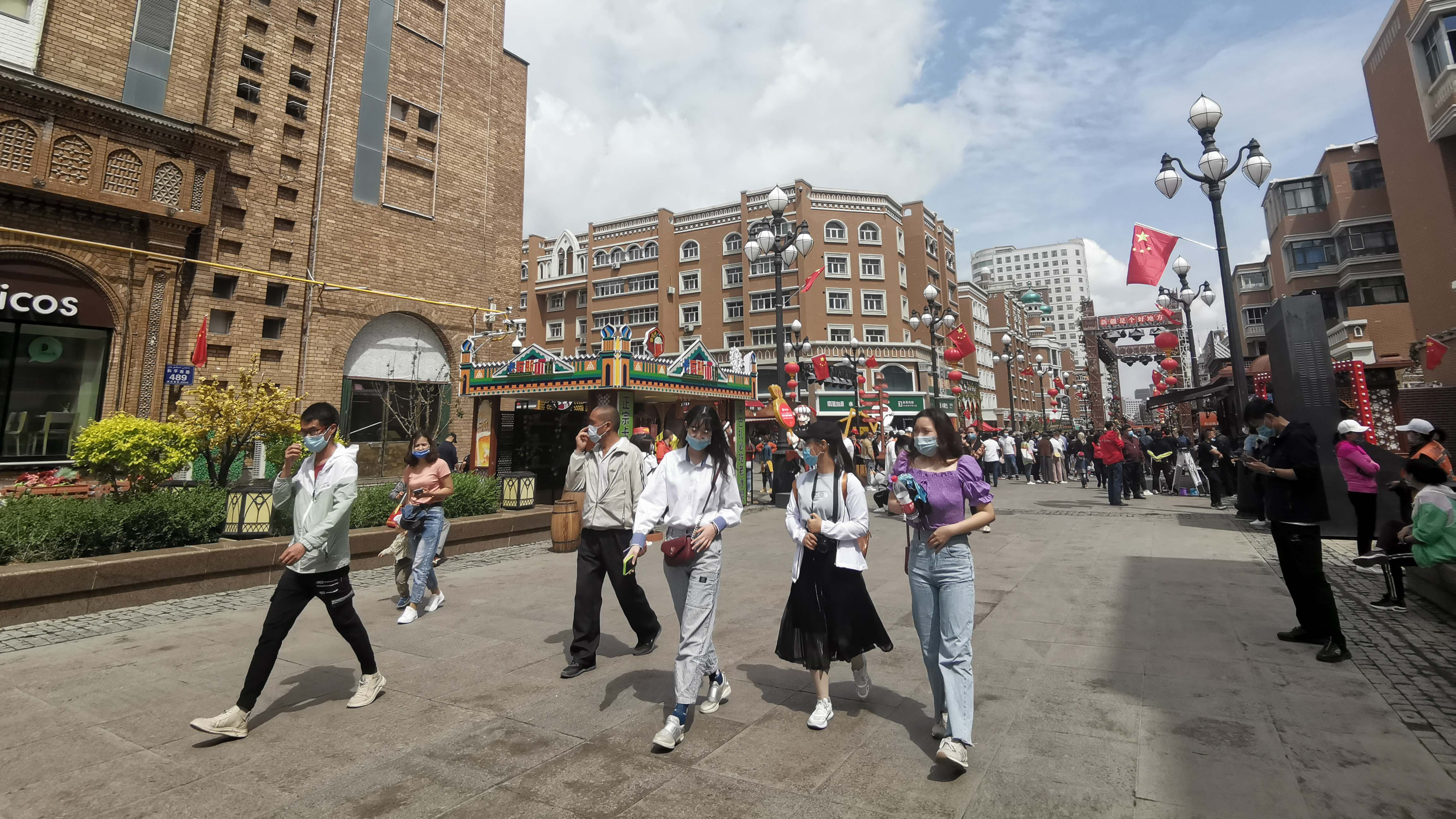
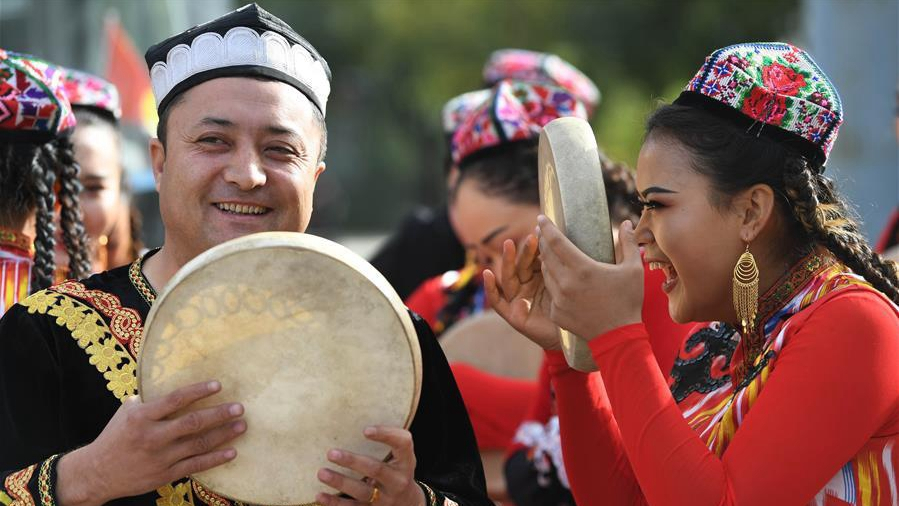
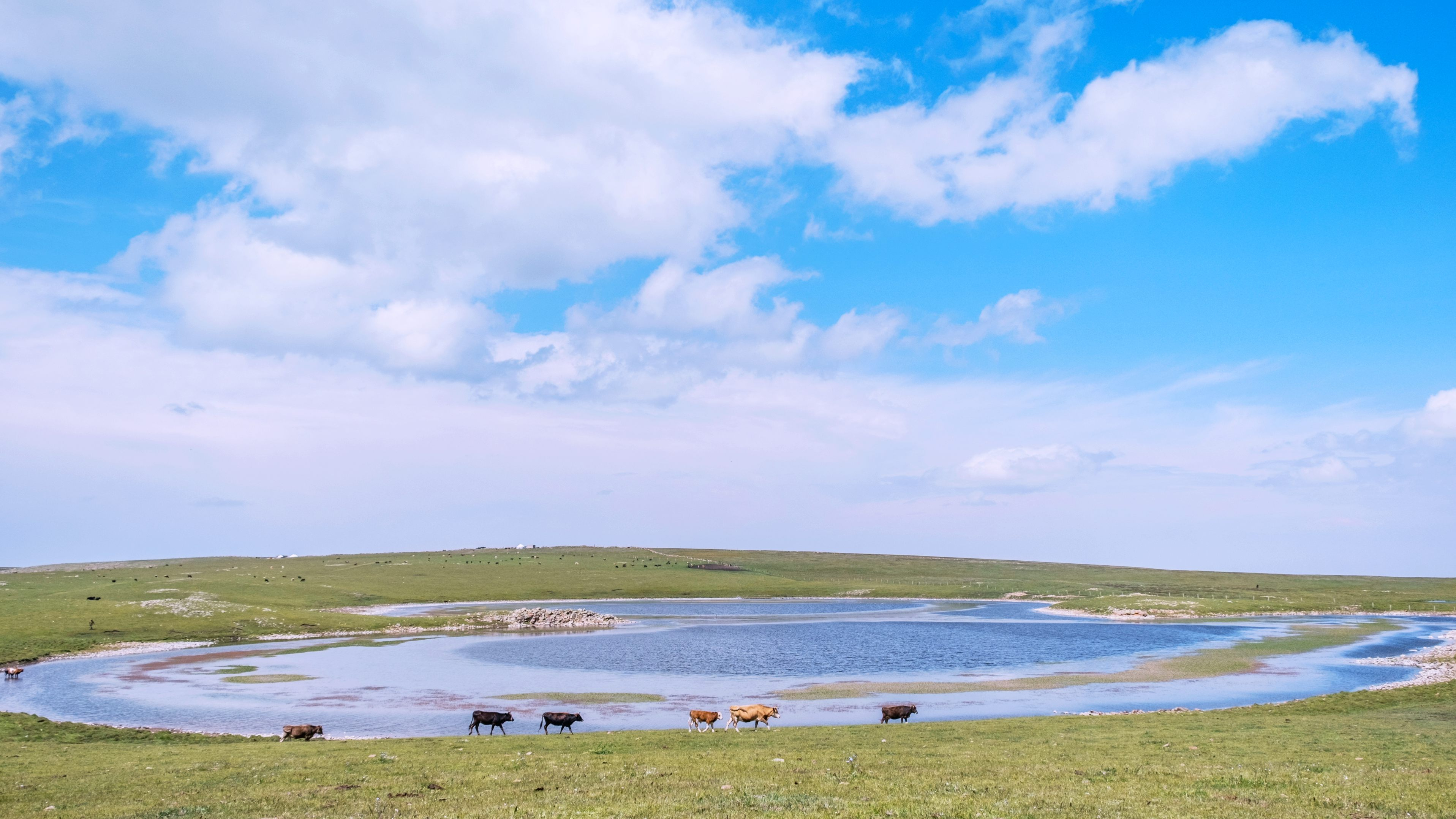
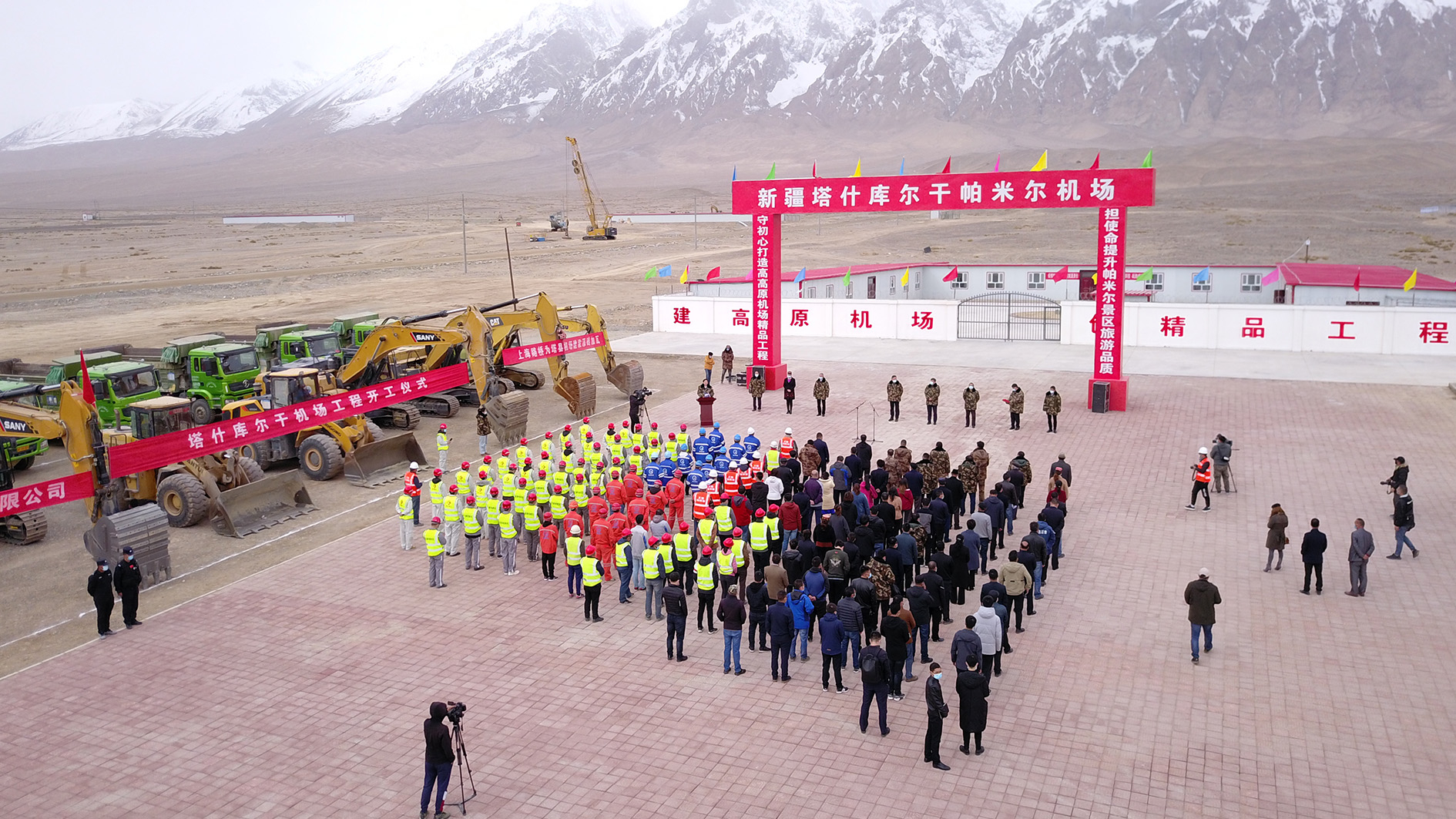
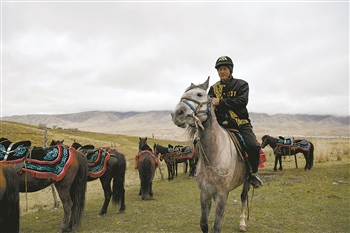
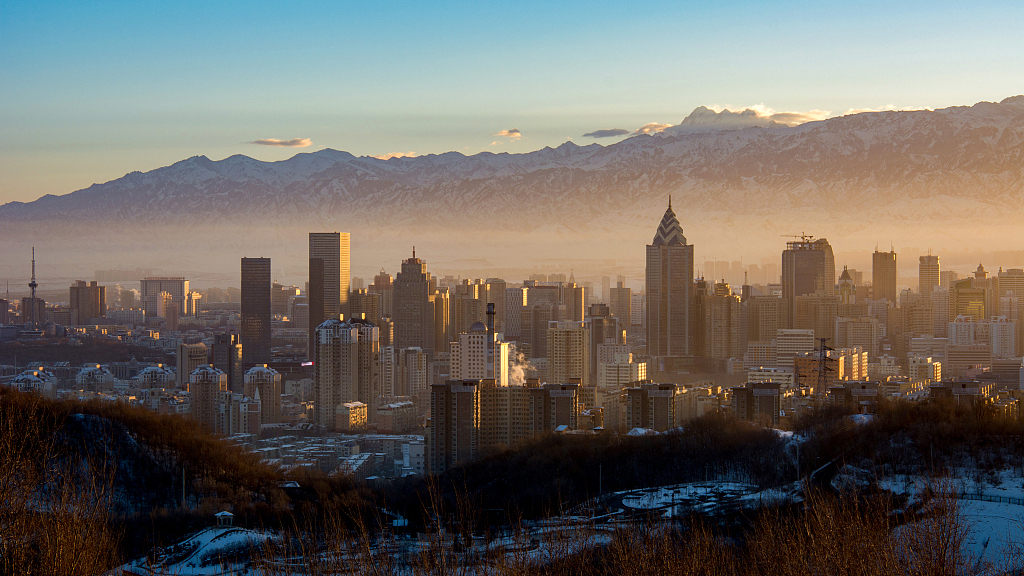
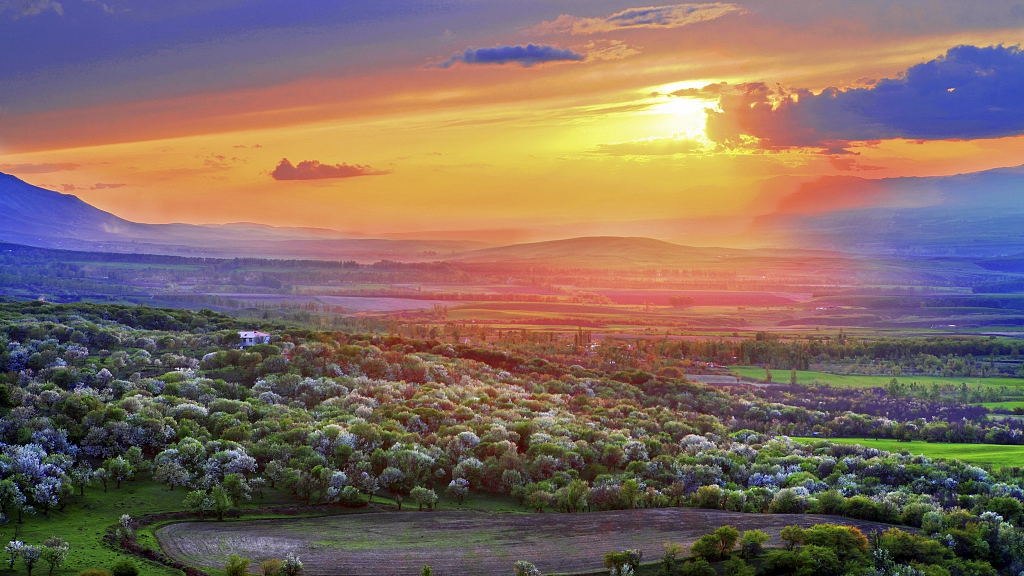







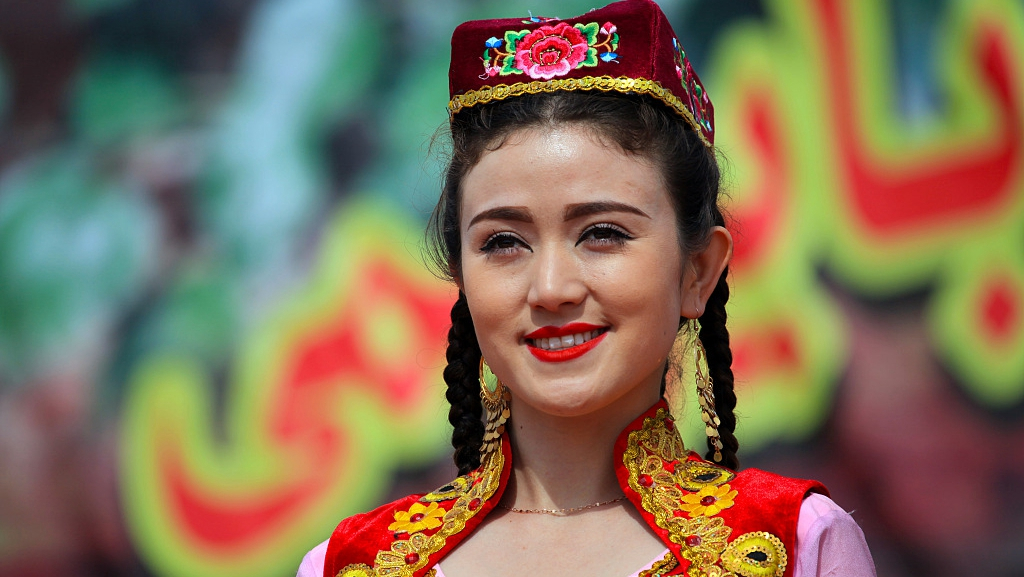



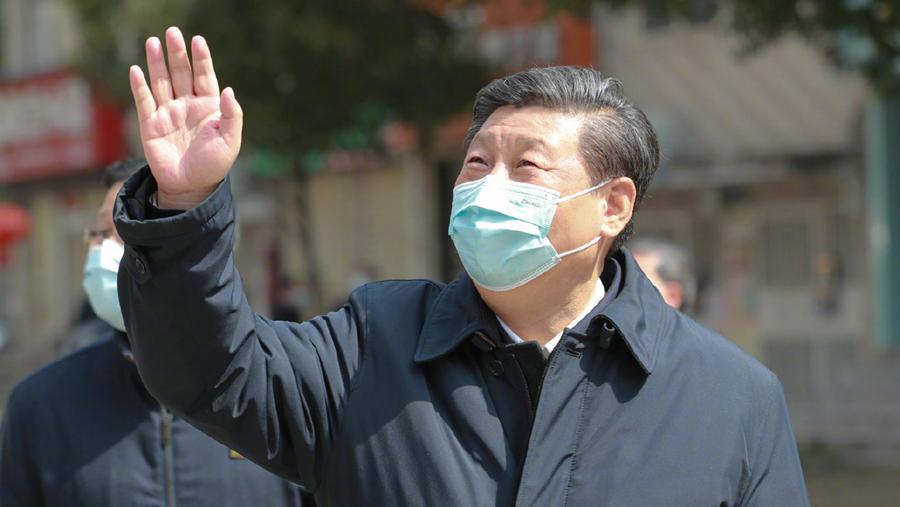


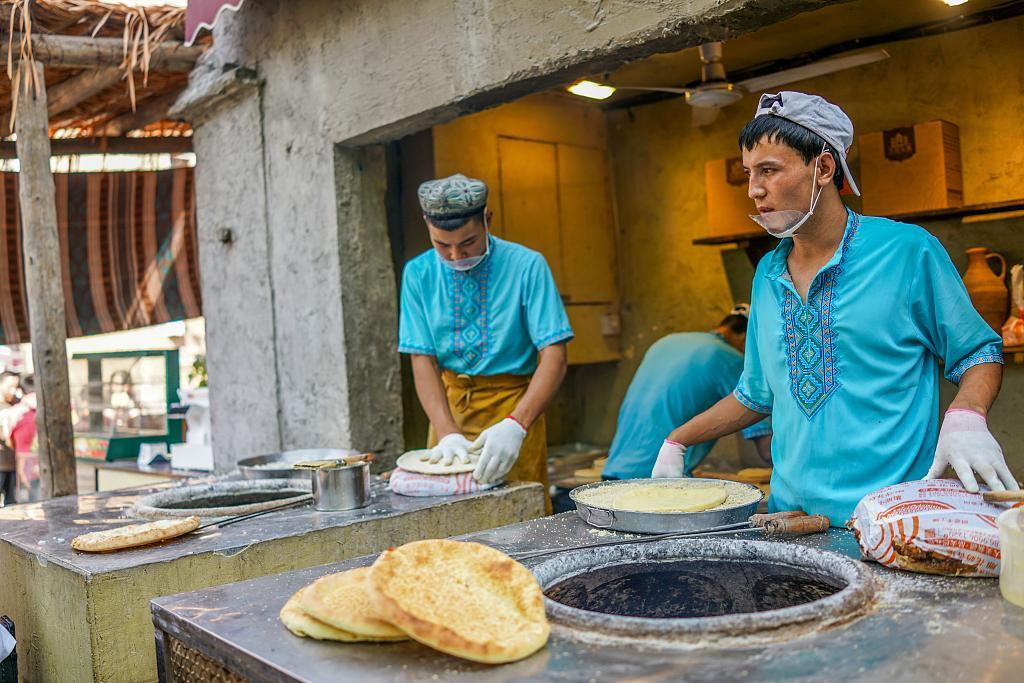
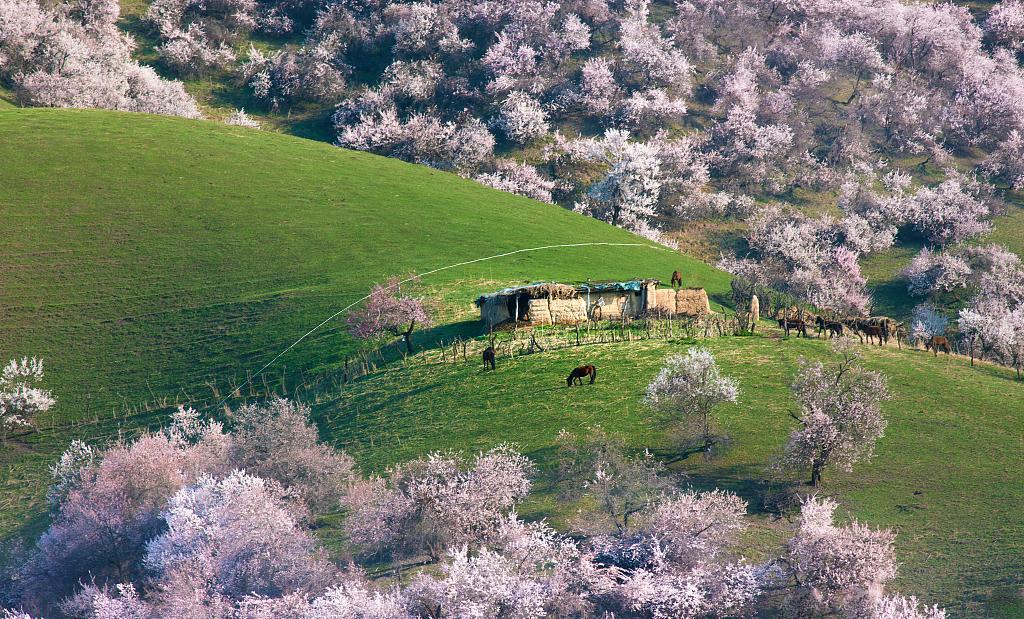

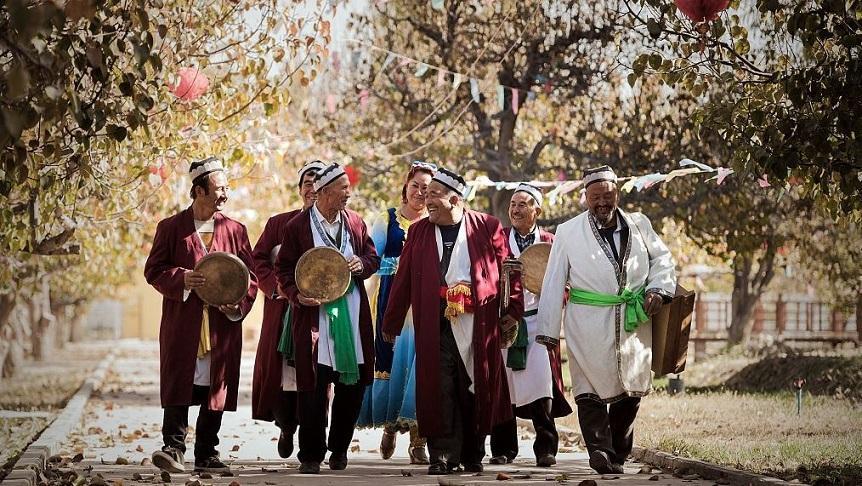

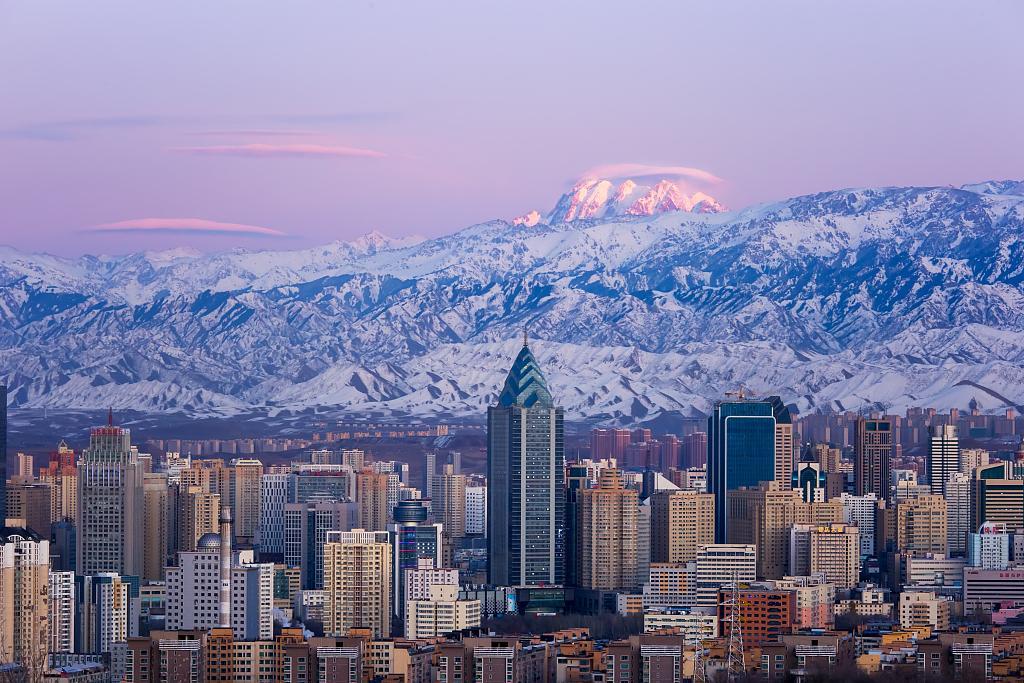

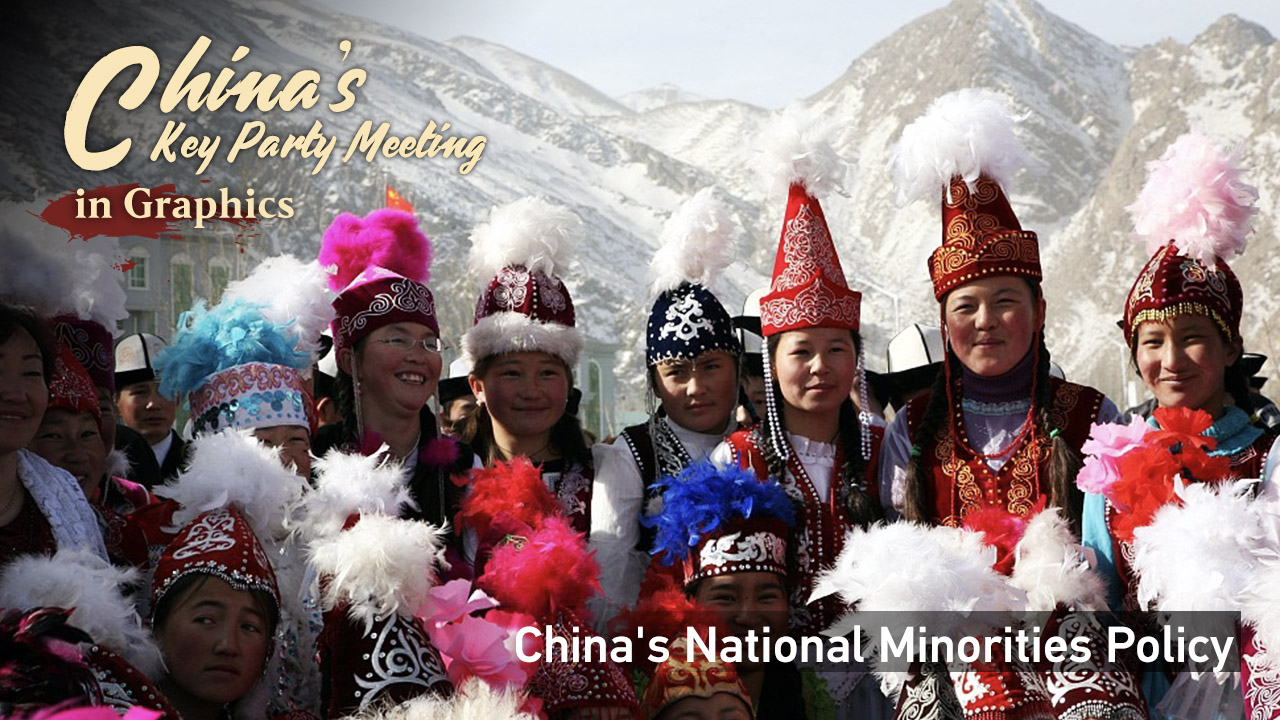
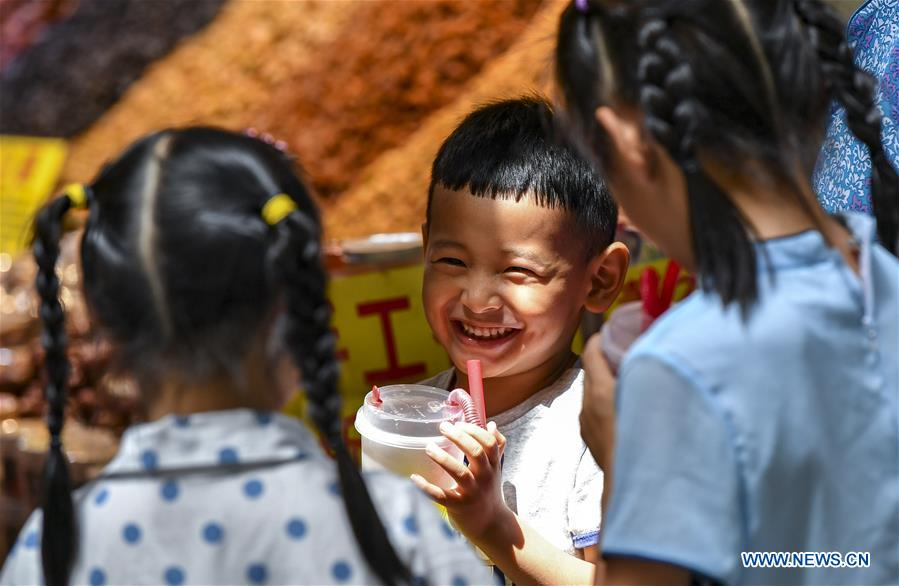
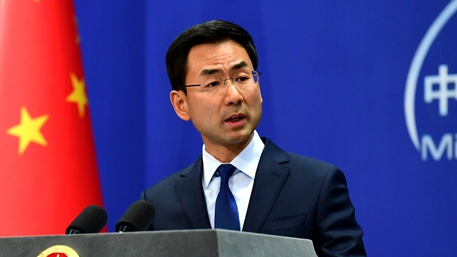

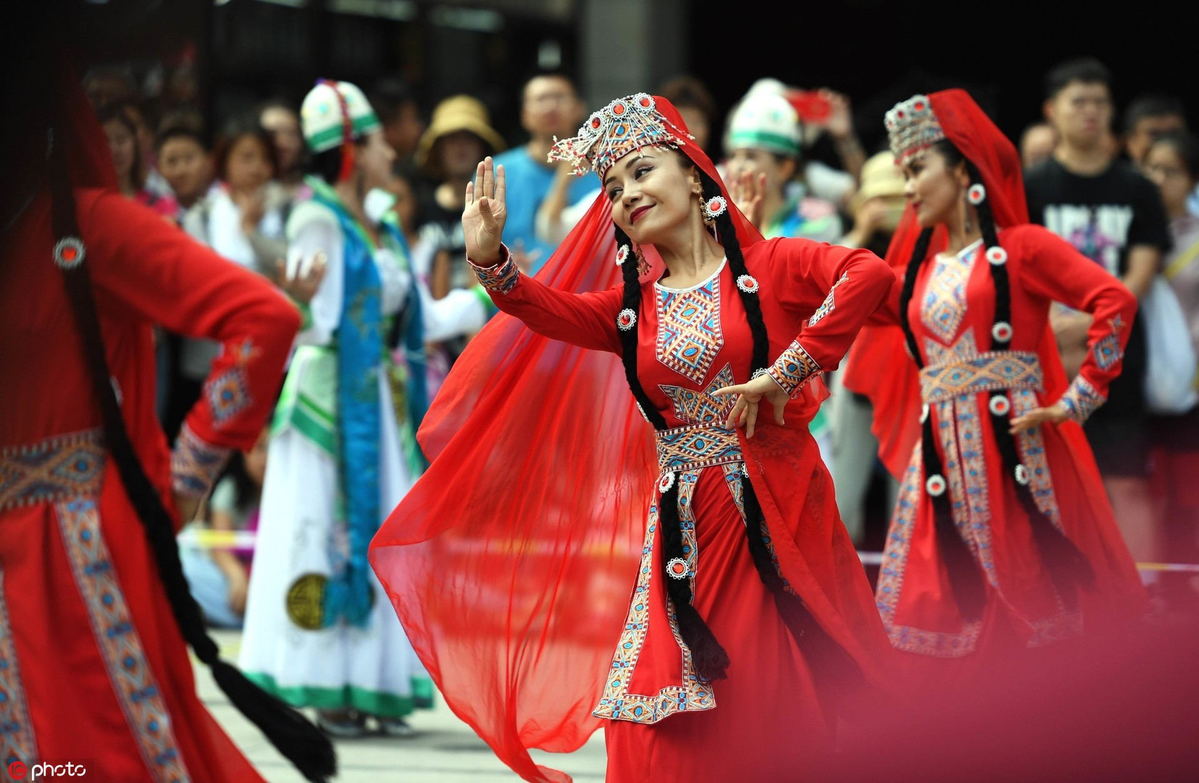


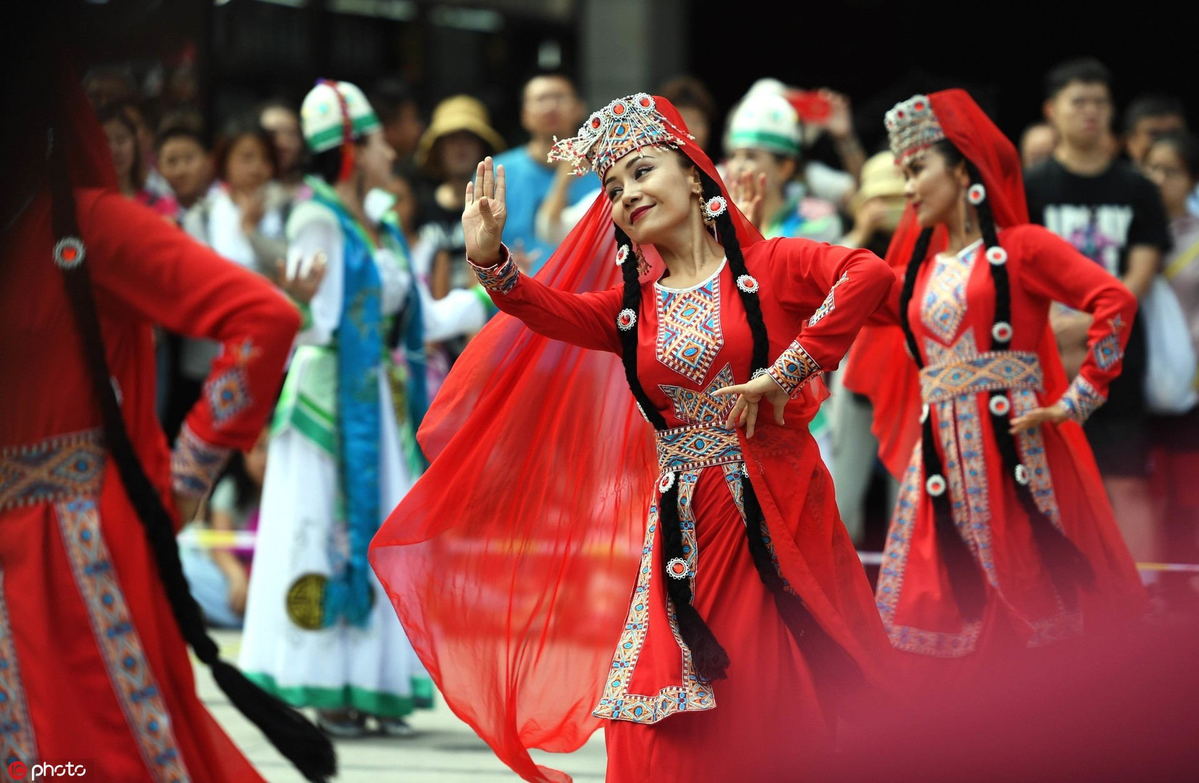
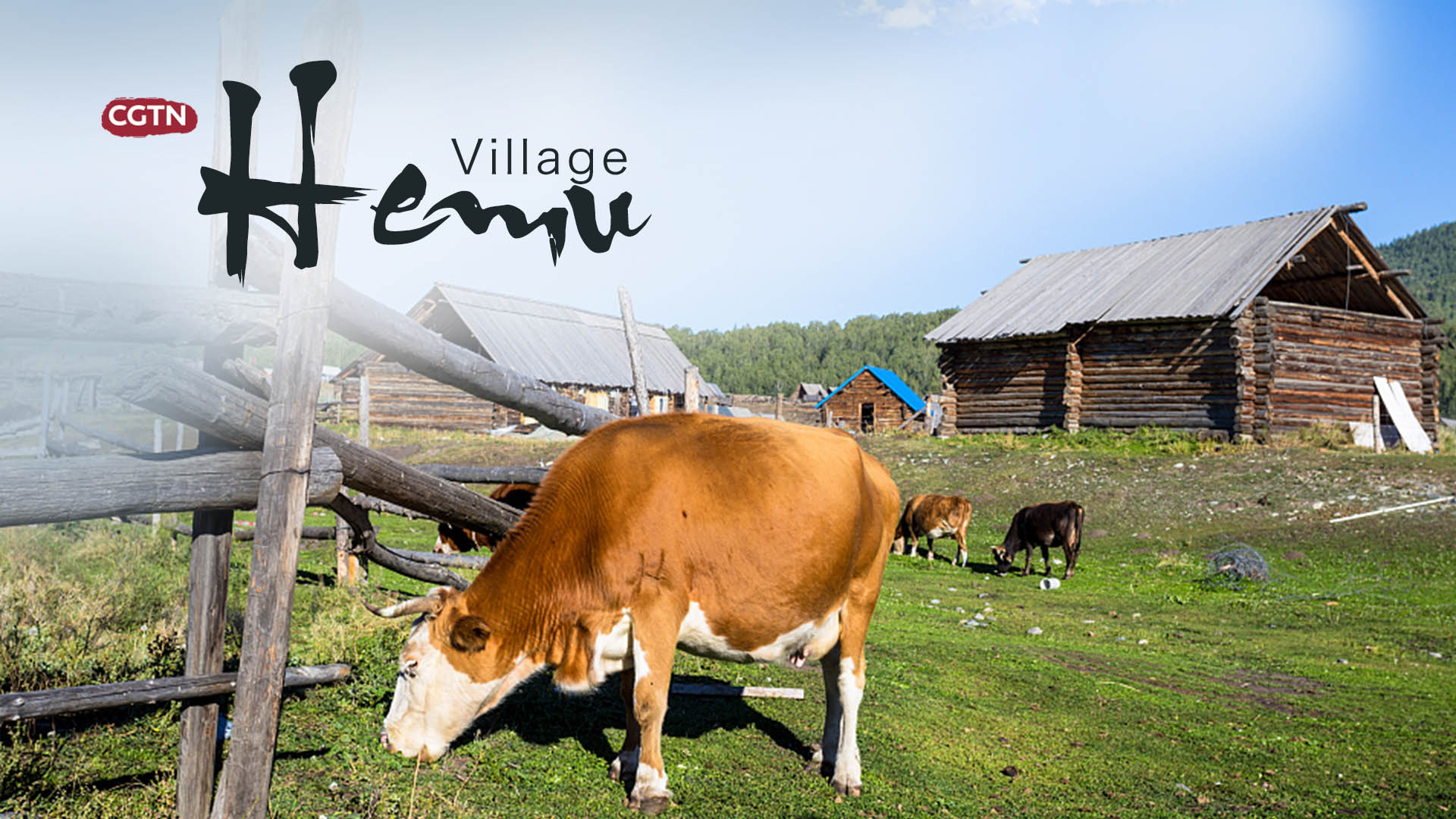




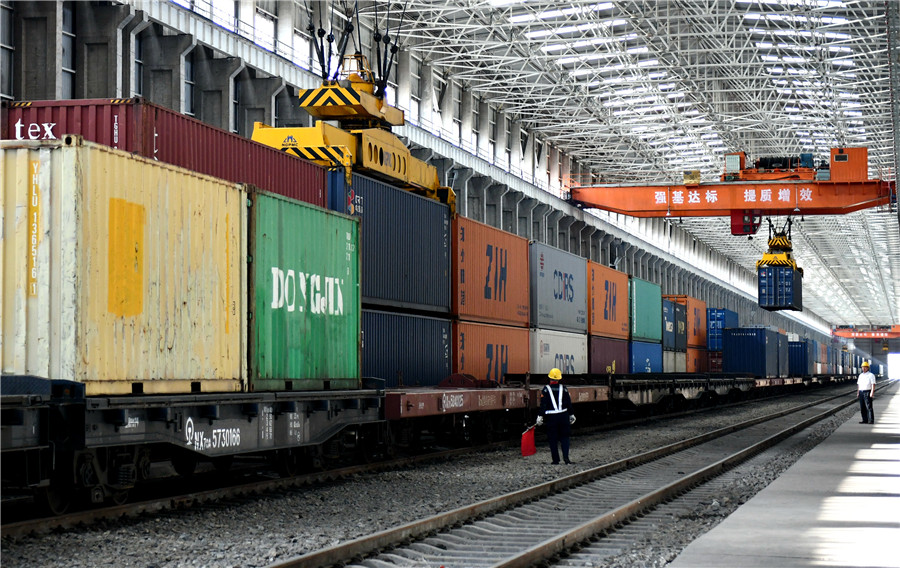
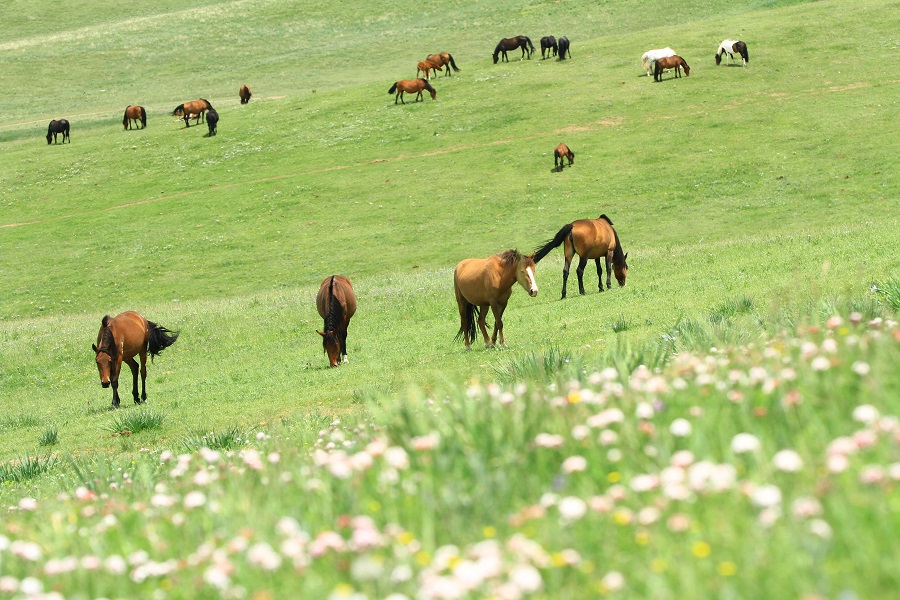
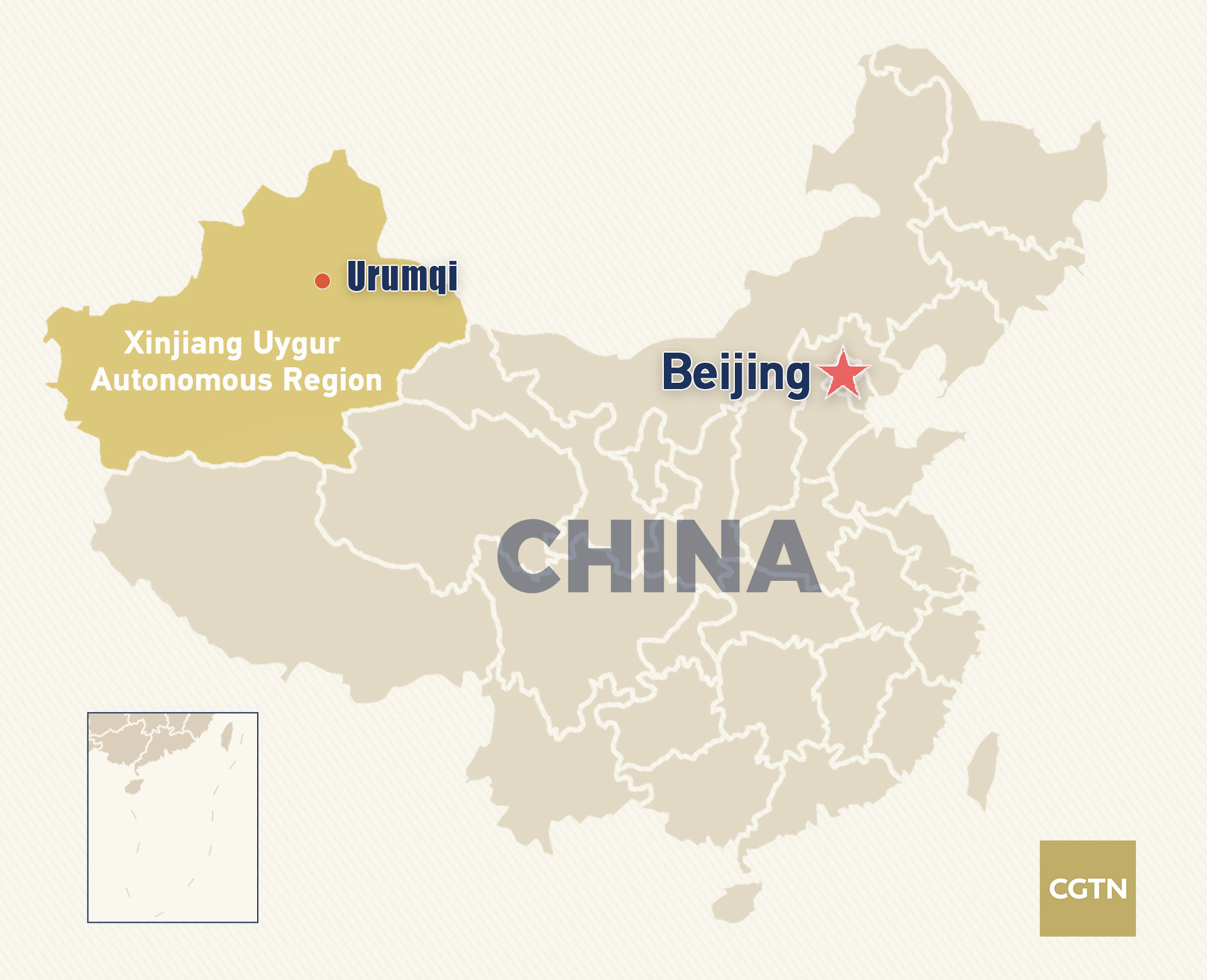
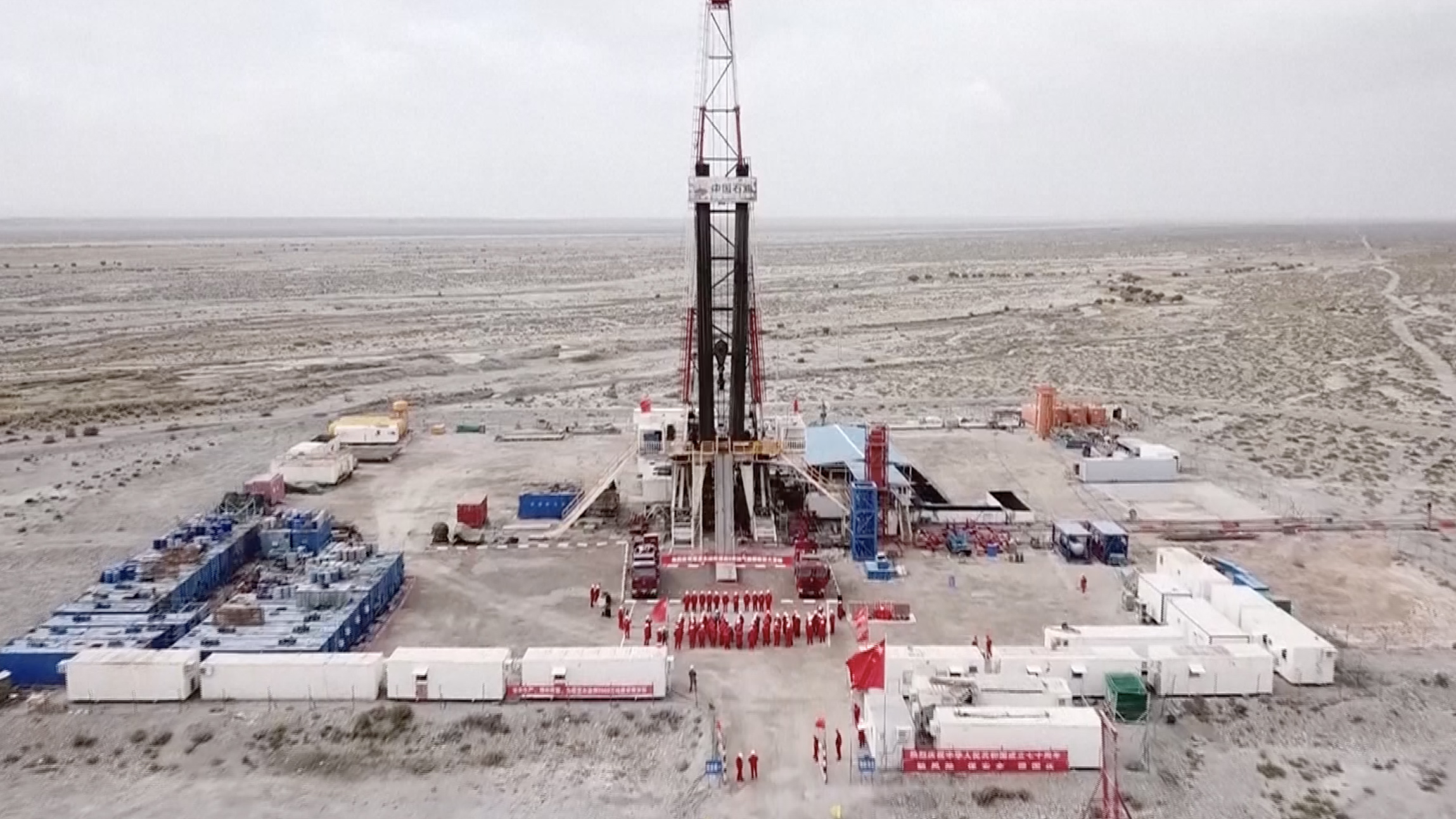









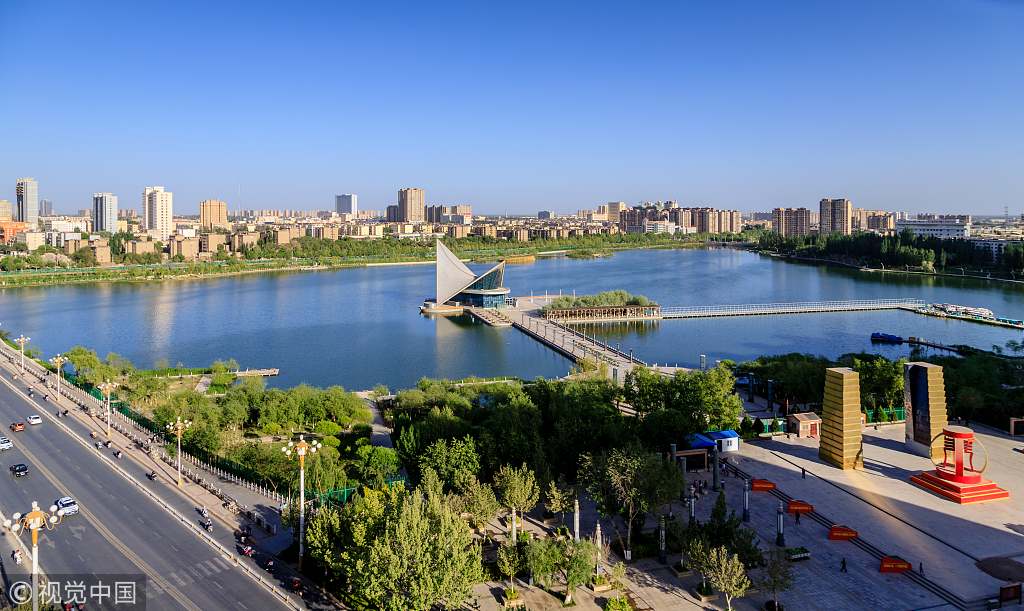
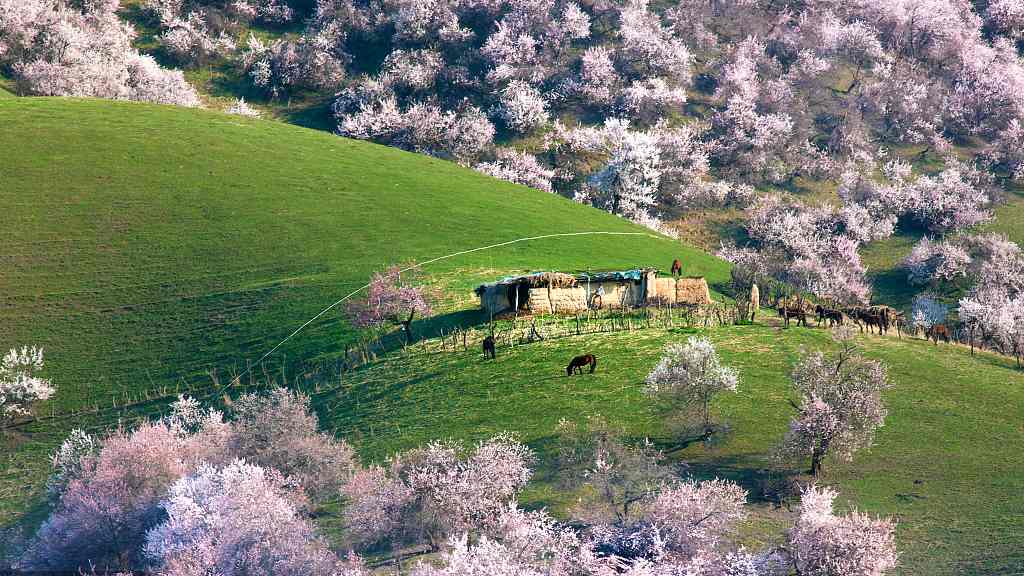
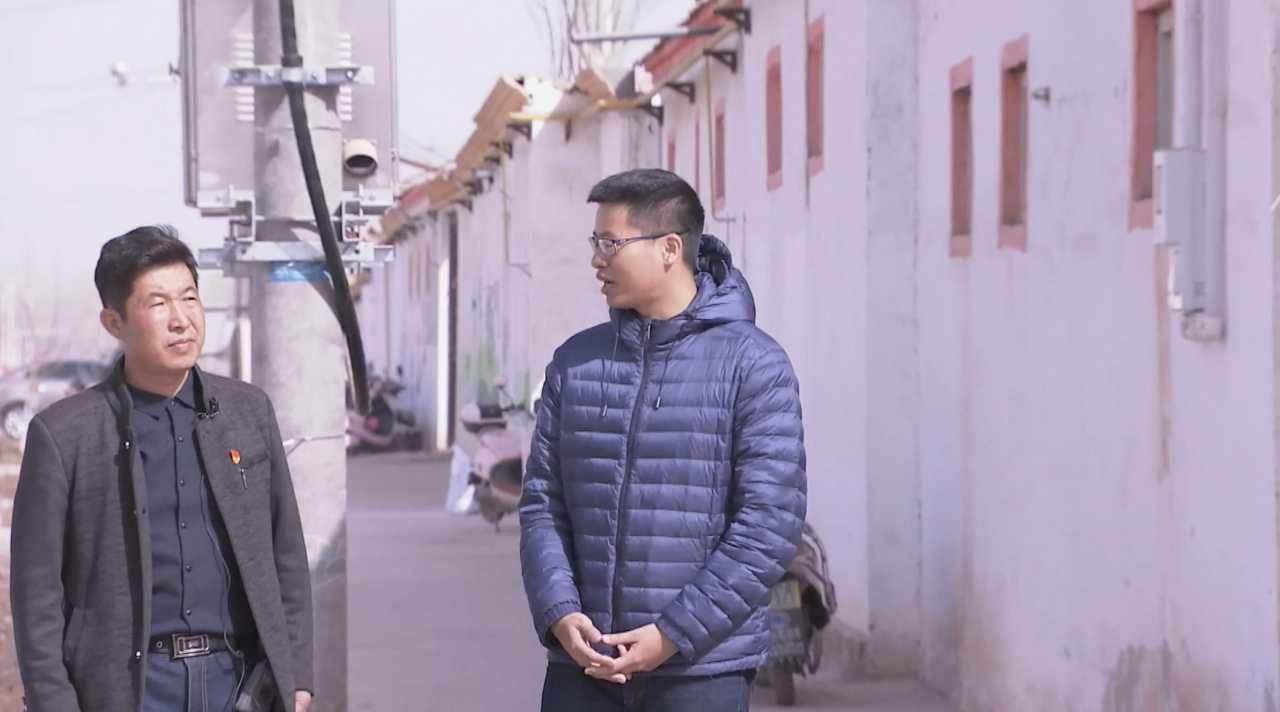


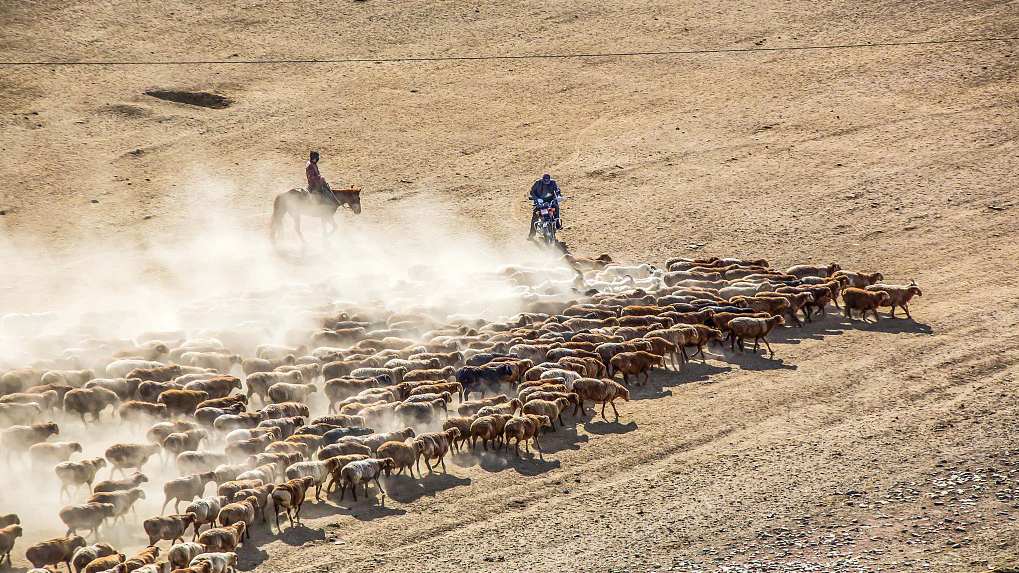












.png)


























.jpg)





.png)



















.png)





















.png)

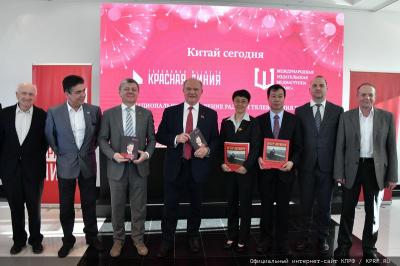

.png)




.png)





.png)
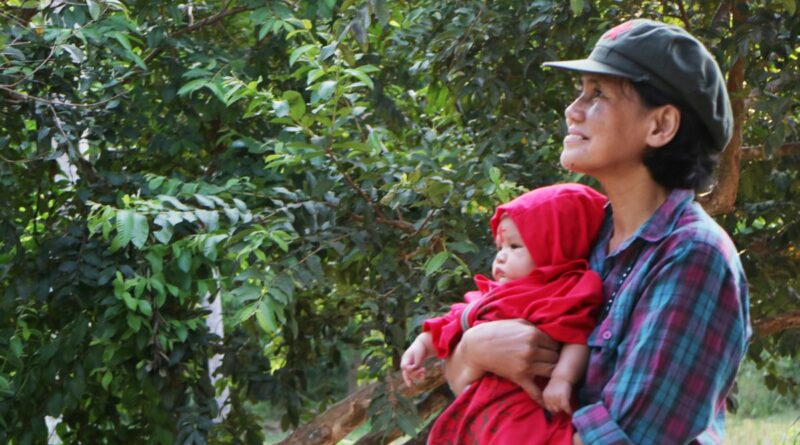




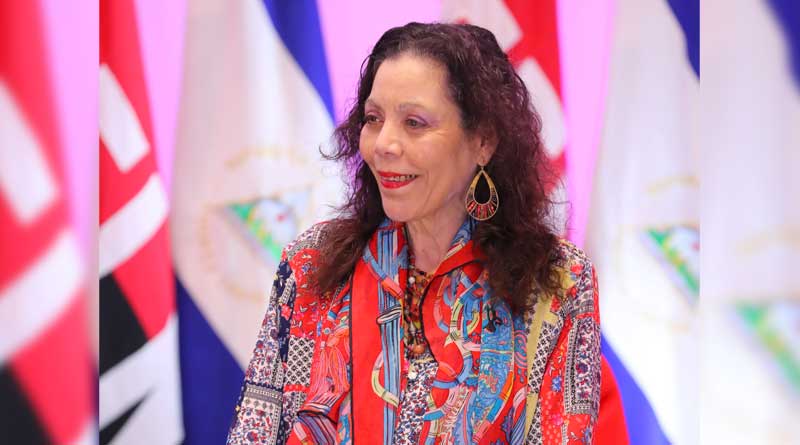














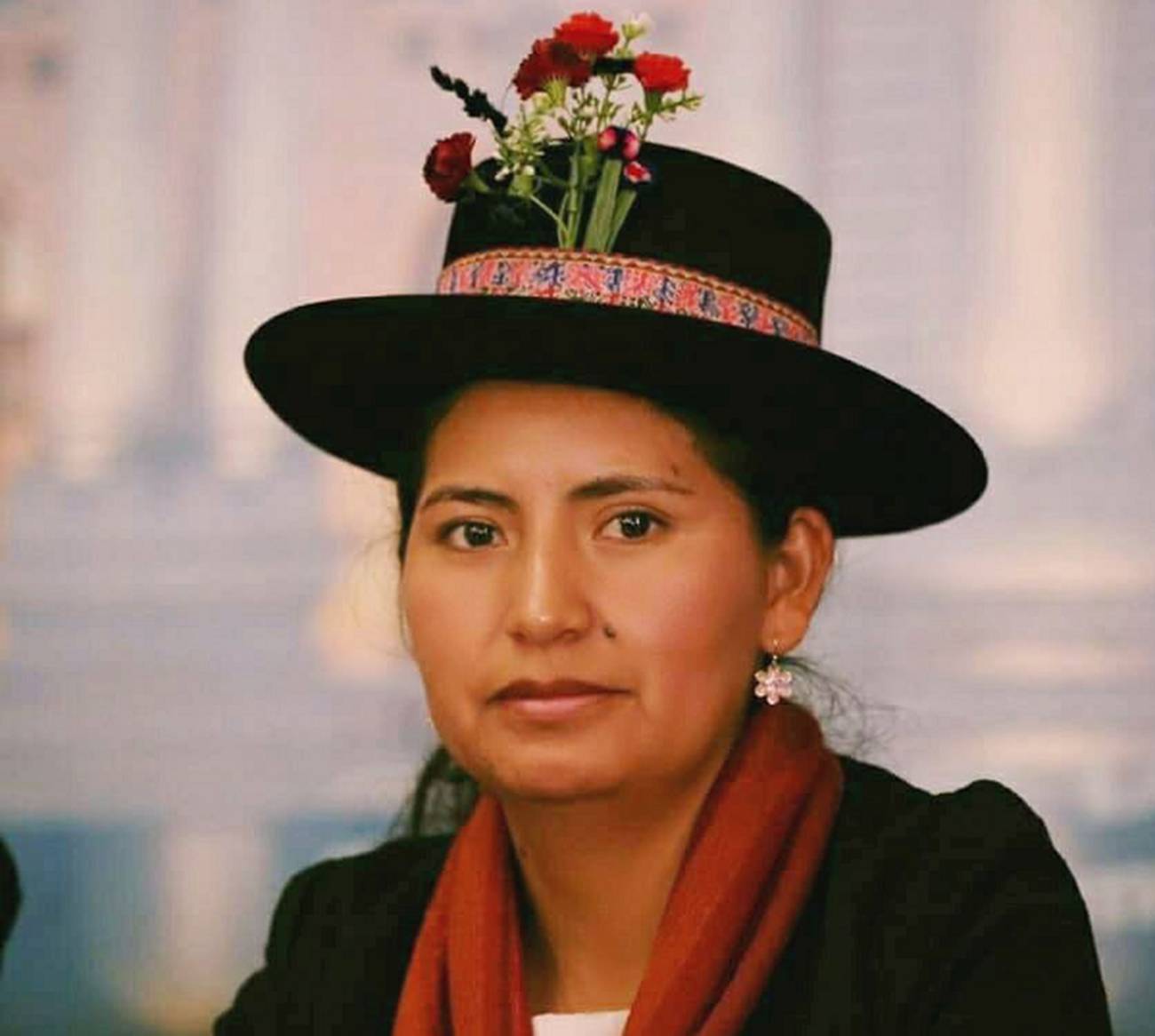








.png)
/regions/2022/04/21/6261763fc435e_logo-candidatecml-page-0001.jpg)



.jpg)


















.png)

.png)

.png)

























































